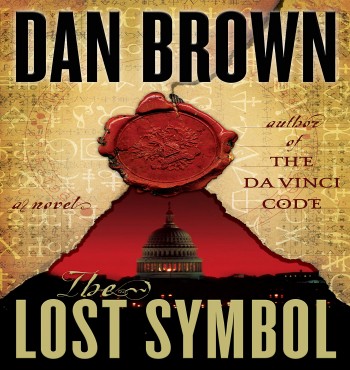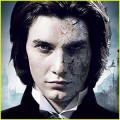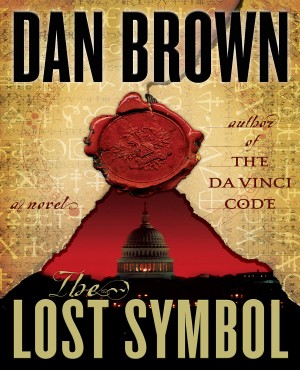

In this stunning follow-up to the global phenomenon The Da Vinci Code, Dan Brown demonstrates once again why he is the world’s most popular thriller writer. The Lost Symbol is a masterstroke of storytelling – a deadly race through a real-world labyrinth of codes, secrets, and unseen truths…all under the watchful eye of Brown’s most terrifying villain to date. Set within the hidden chambers, tunnels, and temples of Washington, DC., The Lost Symbol accelerates through a startling landscape toward an unthinkable finale.As the story opens, Harvard symbologist Robert Langdon is summoned unexpectedly to deliver an evening lecture in the U.S. Capitol Building. Within minutes of his arrival, however, the night takes a bizarre turn. A disturbing object – artfully encoded with five symbols – is discovered in the Capitol Building. Langdon recognizes the object as an ancient invitation…one meant to usher its recipient into a long-lost world of esoteric wisdom.
Contents
Epilogue
Acknowledgement
Image Credits
About the Author
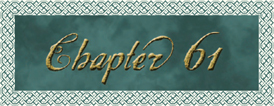
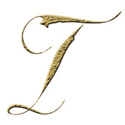 ONIGHT WAS not the first time Warren Bellamy had been blindfolded. Like all of his Masonic brothers, he had worn the ritual “hoodwink” during his ascent to the upper echelons of Masonry. That, however, had taken place among trusted friends. Tonight was different. These rough-handed men had bound him, placed a bag on his head, and were now marching him through the library stacks.
ONIGHT WAS not the first time Warren Bellamy had been blindfolded. Like all of his Masonic brothers, he had worn the ritual “hoodwink” during his ascent to the upper echelons of Masonry. That, however, had taken place among trusted friends. Tonight was different. These rough-handed men had bound him, placed a bag on his head, and were now marching him through the library stacks.
The agents had physically threatened Bellamy and demanded to know the whereabouts of Robert Langdon. Knowing his aging body couldn’t take much punishment, Bellamy had told his lie quickly.
“Langdon never came down here with me!” he had said, gasping for air. “I told him to go up to the balcony and hide behind the Moses statue, but I don’t know where he is now!” The story apparently had been convincing, because two of the agents had run off in pursuit. Now the remaining two agents were marching him in silence through the stacks.
Bellamy’s only solace was in knowing Langdon and Katherine were whisking the pyramid off to safety. Soon Langdon would be contacted by a man who could offer sanctuary. Trust him. The man Bellamy had called knew a great deal about the Masonic Pyramid and the secret it held—the location of a hidden spiral staircase that led down into the earth to the hiding place of potent ancient wisdom buried long ago. Bellamy had finally gotten through to the man as they were escaping the reading room, and he felt confident that his short message would be understood perfectly.
Now, as he moved in total darkness, Bellamy pictured the stone pyramid and golden capstone in Langdon’s bag. It has been many years since those two pieces were in the same room.
Bellamy would never forget that painful night. The first of many for Peter. Bellamy had been asked to come to the Solomon estate in Potomac for Zachary Solomon’s eighteenth birthday. Zachary, despite being a rebellious child, was a Solomon, which meant tonight, following family tradition, he would receive his inheritance. Bellamy was one of Peter’s dearest friends and a trusted Masonic brother, and therefore was asked to attend as a witness. But it was not only the transference of money that Bellamy had been asked to witness. There was far more than money at stake tonight.
Bellamy had arrived early and waited, as requested, in Peter’s private study. The wonderful old room smelled of leather, wood fires, and loose-leaf tea. Warren was seated when Peter led his son, Zachary, into the room. When the scrawny eighteen-year-old saw Bellamy, he frowned. “What are you doing here?”
“Bearing witness,” Bellamy offered. “Happy birthday, Zachary.”
The boy mumbled and looked away.
“Sit down, Zach,” Peter said.
Zachary sat in the solitary chair facing his father’s huge wooden desk. Solomon bolted the study door. Bellamy took a seat off to one side.
Solomon addressed Zachary in a serious tone. “Do you know why you’re here?”
“I think so,” Zachary said.
Solomon sighed deeply. “I know you and I have not seen eye to eye for quite some time, Zach. I’ve done my best to be a good father and to prepare you for this moment.”
Zachary said nothing.
“As you know, every Solomon child, upon reaching adulthood, is presented with his or her birthright—a share of the Solomon fortune—which is intended to be a seed … a seed for you to nurture, make grow, and use to help nourish mankind.”
Solomon walked to a vault in the wall, unlocked it, and removed a large black folder. “Son, this portfolio contains everything you need to legally transfer your financial inheritance into your own name.” He laid it on the desk. “The aim is that you use this money to build a life of productivity, prosperity, and philanthropy.”
Zachary reached for the folder. “Thanks.”
“Hold on,” his father said, putting his hand on the portfolio. “There’s something else I need to explain.”
Zachary shot his father a contemptuous look and slumped back down.
“There are aspects of the Solomon inheritance of which you are not yet aware.” His father was staring straight into Zachary’s eyes now. “You are my firstborn, Zachary, which means you are entitled to a choice.”
The teenager sat up, looking intrigued.
“It is a choice that may well determine the direction of your future, and so I urge you to ponder it carefully.”
“What choice?”
His father took a deep breath. “It is the choice … between wealth or wisdom.”
Zachary gave him a blank stare. “Wealth or wisdom? I don’t get it.”
Solomon stood, walking again to the vault, where he pulled out a heavy stone pyramid with Masonic symbols carved into it. Peter heaved the stone onto the desk beside the portfolio. “This pyramid was created long ago and has been entrusted to our family for generations.”
“A pyramid?” Zachary didn’t look very excited.
“Son, this pyramid is a map … a map that reveals the location of one of humankind’s greatest lost treasures. This map was created so that the treasure could one day be rediscovered.” Peter’s voice swelled now with pride. “And tonight, following tradition, I am able to offer it to you … under certain conditions.”
Zachary eyed the pyramid suspiciously. “What’s the treasure?”
Bellamy could tell that this coarse question was not what Peter had hoped for. Nonetheless, his demeanor remained steady.
“Zachary, it’s hard to explain without a lot of background. But this treasure … in essence … is something we call the Ancient Mysteries.”
Zachary laughed, apparently thinking his father was joking.
Bellamy could see the melancholy growing now in Peter’s eyes.
“This is very difficult for me to describe, Zach. Traditionally, by the time a Solomon is eighteen years of age, he is about to embark on his years of higher education in—”
“I told you!” Zachary fired back. “I’m not interested in college!”
“I don’t mean college,” his father said, his voice still calm and quiet. “I’m talking about the brotherhood of Freemasonry. I’m talking about an education in the enduring mysteries of human science. If you had plans to join me within their ranks, you would be on the verge of receiving the education necessary to understand the importance of your decision tonight.”
Zachary rolled his eyes. “Spare me the Masonic lecture again. I know I’m the first Solomon who doesn’t want to join. But so what? Don’t you get it? I have no interest in playing dress-up with a bunch of old men!”
His father was silent for a long time, and Bellamy noticed the fine age lines that had started to appear around Peter’s still-youthful eyes.
“Yes, I get it,” Peter finally said. “Times are different now. I understand that Masonry probably appears strange to you, or maybe even boring. But I want you to know, that doorway will always be open for you should you change your mind.”
“Don’t hold your breath,” Zach grumbled.
“That’s enough!” Peter snapped, standing up. “I realize life has been a struggle for you, Zachary, but I am not your only guidepost. There are good men waiting for you, men who will welcome you within the Masonic fold and show you your true potential.”
Zachary chuckled and glanced over at Bellamy. “Is that why you’re here, Mr. Bellamy? So you Masons can gang up on me?”
Bellamy said nothing, instead directing a respectful gaze back at Peter Solomon—a reminder to Zachary of who held the power in this room.
Zachary turned back to his father.
“Zach,” Peter said, “we’re getting nowhere … so let me just tell you this. Whether or not you comprehend the responsibility being offered to you tonight, it is my family obligation to present it.” He motioned to the pyramid. “It is a rare privilege to guard this pyramid. I urge you to consider this opportunity for a few days before making your decision.”
“Opportunity?” Zachary said. “Babysitting a rock?”
“There are great mysteries in this world, Zach,” Peter said with a sigh. “Secrets that transcend your wildest imagination. This pyramid protects those secrets. And even more important, there will come a time, probably within your lifetime, when this pyramid will at last be deciphered and its secrets unearthed. It will be a moment of great human transformation … and you have a chance to play a role in that moment. I want you to consider it very carefully. Wealth is commonplace, but wisdom is rare.” He motioned to the portfolio and then to the pyramid. “I beg you to remember that wealth without wisdom can often end in disaster.”
Zachary looked like he thought his father was insane. “Whatever you say, Dad, but there’s no way I’m giving up my inheritance for this.” He gestured to the pyramid.
Peter folded his hands before him. “If you choose to accept the responsibility, I will hold your money and the pyramid for you until you have successfully completed your education within the Masons. This will take years, but you will emerge with the maturity to receive both your money and this pyramid. Wealth and wisdom. A potent combination.”
Zachary shot up. “Jesus, Dad! You don’t give up, do you? Can’t you see that I don’t give a damn about the Masons or stone pyramids and ancient mysteries?” He reached down and scooped up the black portfolio, waving it in front of his father’s face. “This is my birthright! The same birthright of the Solomons who came before me! I can’t believe you’d try to trick me out of my inheritance with lame stories about ancient treasure maps!” He tucked the portfolio under his arm and marched past Bellamy to the study’s patio door.
“Zachary, wait!” His father rushed after him as Zachary stalked out into the night. “Whatever you do, you can never speak of the pyramid you have seen!” Peter Solomon’s voice cracked. “Not to anyone! Ever!”
But Zachary ignored him, disappearing into the night.
Peter Solomon’s gray eyes were filled with pain as he returned to his desk and sat heavily in his leather chair. After a long silence, he looked up at Bellamy and forced a sad smile. “That went well.”
Bellamy sighed, sharing in Solomon’s pain. “Peter, I don’t mean to sound insensitive … but … do you trust him?”
Solomon stared blankly into space.
“I mean …” Bellamy pressed, “not to say anything about the pyramid?”
Solomon’s face was blank. “I really don’t know what to say, Warren. I’m not sure I even know him anymore.”
Bellamy rose and walked slowly back and forth before the large desk. “Peter, you have followed your family duty, but now, considering what just happened, I think we need to take precautions. I should return the capstone to you so you can find a new home for it. Someone else should watch over it.”
“Why?” Solomon asked.
“If Zachary tells anyone about the pyramid … and mentions my being present tonight …”
“He knows nothing of the capstone, and he’s too immature to know the pyramid has any significance. We don’t need a new home for it. I’ll keep the pyramid in my vault. And you will keep the capstone wherever you keep it. As we always have.”
It was six years later, on Christmas Day, with the family still healing from Zachary’s death, that the enormous man claiming to have killed him in prison broke into the Solomon estate. The intruder had come for the pyramid, but he had taken with him only Isabel Solomon’s life.
Days later, Peter summoned Bellamy to his office. He locked the door and took the pyramid out of his vault, setting it on the desk between them. “I should have listened to you.”
Bellamy knew Peter was racked with guilt over this. “It wouldn’t have mattered.”
Solomon drew a tired breath. “Did you bring the capstone?”
Bellamy pulled a small cube-shaped package from his pocket. The faded brown paper was tied with twine and bore a wax seal of Solomon’s ring. Bellamy laid the package on the desk, knowing the two halves of the Masonic Pyramid were closer together tonight than they should be. “Find someone else to watch this. Don’t tell me who it is.”
Solomon nodded.
“And I know where you can hide the pyramid,” Bellamy said. He told Solomon about the Capitol Building subbasement. “There’s no place in Washington more secure.”
Bellamy recalled Solomon liking the idea right away because it felt symbolically apt to hide the pyramid in the symbolic heart of our nation. Typical Solomon, Bellamy had thought. The idealist even in a crisis.
Now, ten years later, as Bellamy was being shoved blindly through the Library of Congress, he knew the crisis tonight was far from over. He also now knew whom Solomon had chosen to guard the capstone … and he prayed to God that Robert Langdon was up to the job.
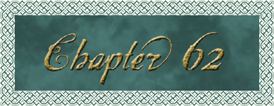
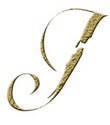 ’M UNDER Second Street.
’M UNDER Second Street.
Langdon’s eyes remained tightly shut as the conveyor rumbled through the darkness toward the Adams Building. He did his best not to picture the tons of earth overhead and the narrow tube through which he was now traveling. He could hear Katherine breathing several yards ahead of him, but so far, she had not uttered a word.
She’s in shock. Langdon was not looking forward to telling her about her brother’s severed hand. You have to, Robert. She needs to know.
“Katherine?” Langdon finally said, without opening his eyes. “Are you okay?”
A tremulous, disembodied voice replied somewhere up ahead. “Robert, the pyramid you’re carrying. It’s Peter’s, isn’t it?”
“Yes,” Langdon replied.
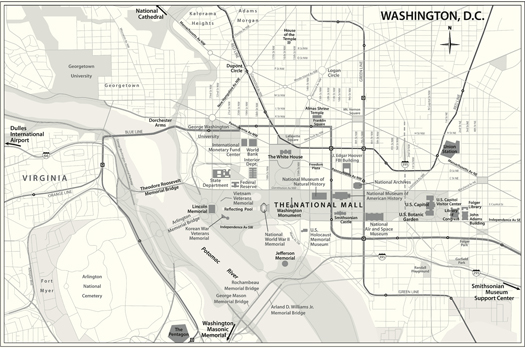
A long silence followed. “I think … that pyramid is why my mother was murdered.”
Langdon was well aware that Isabel Solomon had been murdered ten years ago, but he didn’t know the details, and Peter had never mentioned anything about a pyramid. “What are you talking about?”
Katherine’s voice filled with emotion as she recounted the harrowing events of that night, how the tattooed man had broken into their estate. “It was a long time ago, but I’ll never forget that he demanded a pyramid. He said he heard about the pyramid in prison, from my nephew, Zachary … right before he killed him.”
Langdon listened in amazement. The tragedy within the Solomon family was almost beyond belief. Katherine continued, telling Langdon that she had always believed the intruder was killed that night … that is, until this same man had resurfaced today, posing as Peter’s psychiatrist and luring Katherine to his home. “He knew private things about my brother, my mother’s death, and even my work, “she said anxiously, “things he could only have learned from my brother. And so I trusted him … and that’s how he got inside the Smithsonian Museum Support Center.” Katherine took a deep breath and told Langdon she was nearly certain the man had destroyed her lab tonight.
Langdon listened in utter shock. For several moments, the two of them lay together in silence on the moving conveyor. Langdon knew he had an obligation to share with Katherine the rest of tonight’s terrible news. He began slowly, and as gently as he possibly could he told her how her brother had entrusted him with a small package years earlier, how Langdon had been tricked into bringing this package to Washington tonight, and finally, about her brother’s hand having been found in the Rotunda of the Capitol Building.
Katherine’s reaction was deafening silence.
Langdon could tell she was reeling, and he wished he could reach out and comfort her, but lying end to end in the narrow blackness made it impossible. “Peter’s okay,” he whispered. “He’s alive, and we’ll get him back.” Langdon tried to give her hope. “Katherine, his captor promised me your brother would be returned alive … as long as I decipher the pyramid for him.”
Still Katherine said nothing.
Langdon kept talking. He told her about the stone pyramid, its Masonic cipher, the sealed capstone, and, of course, about Bellamy’s claims that this pyramid was in fact the Masonic Pyramid of legend … a map that revealed the hiding place of a long spiral staircase that led deep into the earth … down hundreds of feet to a mystical ancient treasure that had been buried in Washington long ago.
Katherine finally spoke, but her voice was flat and emotionless. “Robert, open your eyes.”
Open my eyes? Langdon had no desire to have even the slightest glimpse of how cramped this space really was.
“Robert!” Katherine demanded, urgently now. “Open your eyes! We’re here!”
Langdon’s eyes flew open as his body emerged through an opening similar to the one it had entered at the other end. Katherine was already climbing off the conveyor belt. She lifted his daybag off the belt as Langdon swung his legs over the edge and jumped down onto the tile floor just in time, before the conveyor turned the corner and headed back the way it came. The space around them was a circulation room much like the one they had come from in the other building. A small sign read ADAMS BUILDING: CIRCULATION ROOM 3.
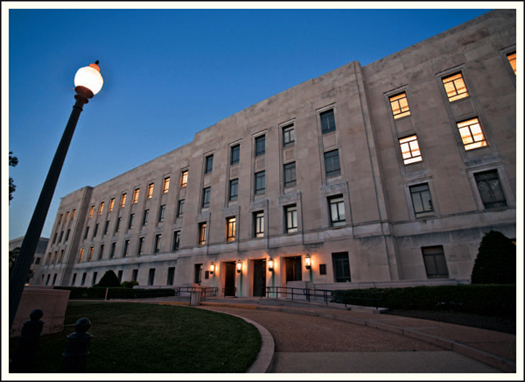
LIBRARY OF CONGRESS, ADAMS BUILDING
62.1: © Richard Nowitz
Langdon felt like he had just emerged from some kind of subterranean birth canal. Born again. He turned immediately to Katherine. “Are you okay?”
Her eyes were red, and she had obviously been crying, but she nodded with a resolute stoicism. She picked up Langdon’s daybag and carried it across the room without a word, setting it on a cluttered desk. She lit the desk’s halogen clamp lamp, unzipped the bag, folded down the sides, and peered inside.
The granite pyramid looked almost austere in the clean halogen light. Katherine ran her fingers over the engraved Masonic cipher, and Langdon sensed deep emotion churning within her. Slowly, she reached into the daybag and pulled out the cube-shaped package. She held it under the light, examining it closely.
“As you can see,” Langdon quietly said, “the wax seal is embossed with Peter’s Masonic ring. He said this ring was used to seal the package more than a century ago.”
Katherine said nothing.
“When your brother entrusted the package to me,” Langdon told her, “he said it would give me the power to create order out of chaos. I’m not entirely sure what that means, but I’ve got to assume the capstone reveals something important, because Peter was insistent that it not fall into the wrong hands. Mr. Bellamy just told me the same thing, urging me to hide the pyramid and not let anyone open the package.”
Katherine turned now, looking angry. “Bellamy told you not to open the package?”
“Yes. He was adamant.”
Katherine looked incredulous. “But you said this capstone is the only way we can decipher the pyramid, right?”
“Probably, yes.”
Katherine’s voice was rising now. “And you said deciphering the pyramid is what you were told to do. It’s the only way we can get Peter back, right?”
Langdon nodded.
“Then, Robert, why wouldn’t we open the package and decipher this thing right now?!”
Langdon didn’t know how to respond. “Katherine, I had the same exact reaction, and yet Bellamy told me that keeping this pyramid’s secret intact was more important than anything … including your brother’s life.”
Katherine’s pretty features hardened, and she tucked a wisp of hair behind her ears. When she spoke, her voice was resolved. “This stone pyramid, whatever it is, has cost me my entire family. First my nephew, Zachary, then my mother, and now my brother. And let’s face it, Robert, if you hadn’t called tonight to warn me …”
Langdon could feel himself trapped between Katherine’s logic and Bellamy’s steadfast urging.
“I may be a scientist,” she said, “but I also come from a family of well-known Masons. Believe me, I’ve heard all the stories about the Masonic Pyramid and its promise of some great treasure that will enlighten mankind. Honestly, I find it hard to imagine such a thing exists. However, if it does exist … perhaps it’s time to unveil it.” Katherine slid a finger beneath the old twine on the package.
Langdon jumped. “Katherine, no! Wait!”
She paused, but her finger remained beneath the string. “Robert, I’m not going to let my brother die for this. Whatever this capstone says … whatever lost treasures this engraving might reveal … those secrets end tonight.”
With that, Katherine yanked defiantly on the twine, and the brittle wax seal exploded.
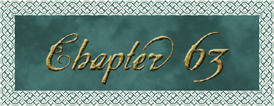
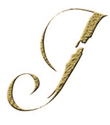 N A QUIET neighborhood just west of Embassy Row in Washington, there exists a medieval-style walled garden whose roses, it is said, spring from twelfth-century plants. The garden’s Carderock gazebo—known as Shadow House—sits elegantly amid meandering pathways of stones dug from George Washington’s private quarry.
N A QUIET neighborhood just west of Embassy Row in Washington, there exists a medieval-style walled garden whose roses, it is said, spring from twelfth-century plants. The garden’s Carderock gazebo—known as Shadow House—sits elegantly amid meandering pathways of stones dug from George Washington’s private quarry.
Tonight the silence of the gardens was broken by a young man who rushed through the wooden gate, shouting as he came.
“Hello?” he called out, straining to see in the moonlight. “Are you in here?”
The voice that replied was frail, barely audible. “In the gazebo … just taking some air.”
The young man found his withered superior seated on the stone bench beneath a blanket. The hunched old man was tiny, with elfin features. The years had bent him in two and stolen his eyesight, but his soul remained a force to be reckoned with.
Catching his breath, the young man told him, “I just … took a call … from your friend … Warren Bellamy.”
“Oh?” The old man perked up. “About what?”
“He didn’t say, but he sounded like he was in a big hurry. He told me he left you a message on your voice mail, which you need to listen to right away.”
“That’s all he said?”
“Not quite.” The young man paused. “He told me to ask you a question.” Every strange question. “He said he needed your response right away.”
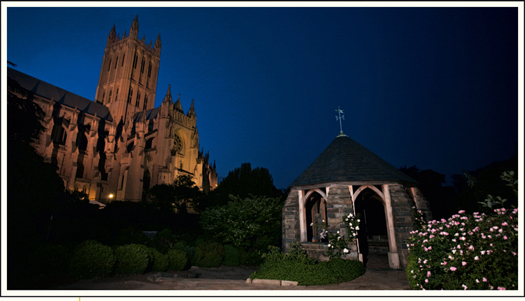
THE SHADOW HOUSE, NATIONAL CATHEDRAL
63.1: © Richard Nowitz
The old man leaned closer. “What question?”
As the young man spoke Mr. Bellamy’s question, the pall that crossed the old man’s face was visible even in the moonlight. Immediately, he threw off his blanket and began struggling to his feet.
“Please help me inside. Right away.”
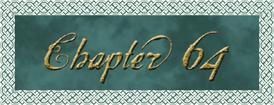
 O MORE SECRETS, thought Katherine Solomon.
O MORE SECRETS, thought Katherine Solomon.
On the table in front of her, the wax seal that had been intact for generations now lay in pieces. She finished removing the faded brown paper from her brother’s precious package. Beside her, Langdon looked decidedly uneasy. From within the paper, Katherine extracted a small box made of gray stone. Resembling a polished granite cube, the box had no hinges, no latch, and no apparent way inside. It reminded Katherine of a Chinese puzzle box.
“It looks like a solid block,” she said, running her fingers over the edges. “Are you sure the X-ray showed it was hollow? With a capstone inside?”
“It did,” Langdon said, moving next to Katherine and scrutinizing the mysterious box. He and Katherine peered at the box from different angles, attempting to find a way in.
“Got it,” Katherine said as her fingernail located the hidden slit along one of the box’s top edges. She set the box down on the desk and then carefully pried open the lid, which rose smoothly, like the top of a fine jewelry box.
When the lid fell back, Langdon and Katherine both drew audible breaths. The interior of the box seemed to be glowing. The inside was shining with an almost supernatural effulgence. Katherine had never seen a piece of gold this large, and it took her an instant to realize that the precious metal was simply reflecting the radiance of the desk lamp.
“It’s spectacular,” she whispered. Despite being sealed in a dark stone cube for over a century, the capstone had not faded or tarnished in any way. Gold resists the entropic laws of decay; that’s one of the reasons the ancients considered it magical. Katherine felt her pulse quicken as she leaned forward, peering down over the small golden point. “There’s an inscription.”
Langdon moved closer, their shoulders now touching. His blue eyes flashed with curiosity. He had told Katherine about the ancient Greek practice of creating a symbolon—a code broken into parts—and how this capstone, long separated from the pyramid itself, would hold the key to deciphering the pyramid. Allegedly, this inscription, whatever it said, would bring order from this chaos.
Katherine held the little box up to the light and peered straight down over the capstone.
Though small, the inscription was perfectly visible—a small bit of elegantly engraved text on the face of one side. Katherine read the six simple words.
Then she read them again.
“No!” she declared. “That can’t be what it says!”
Across the street, Director Sato hurried up the long walkway outside the Capitol Building toward her rendezvous point on First Street. The update from her field team had been unacceptable. No Langdon. No pyramid. No capstone. Bellamy was in custody, but he was not telling them the truth. At least not yet.
I’ll make him talk.
She glanced back over her shoulder at one of Washington’s newest vistas—the Capitol Dome framed above the new visitor center. The illuminated dome only accentuated the significance of what was truly at stake tonight. Dangerous times.
Sato was relieved to hear her cell phone ring and see her analyst’s ID on the screen.
“Nola,” Sato answered. “What have you got?”
Nola Kaye gave her the bad news. The X-ray of the capstone’s inscription was too faint to read, and the image-enhancing filters had not helped.
Shit. Sato chewed at her lip. “How about the sixteen-letter grid?”
“I’m still trying,” Nola said, “but so far I’ve found no secondary encryption scheme that’s applicable. I’ve got a computer reshuffling the letters in the grid and looking for anything identifiable, but there are over twenty trillion possibilities.”
“Stay on it. Let me know.” Sato hung up, scowling. Her hopes of deciphering the pyramid using only a photograph and X-ray were fading fast. I need that pyramid and capstone … and I’m running out of time.
Sato arrived at First Street just as a black Escalade SUV with dark windows roared across the double yellow and skidded to a stop in front of her at their rendezvous point. A lone agent got out.
“Any word yet on Langdon?” Sato demanded.
“Confidence is high,” the man said, emotionless. “Backup just arrived. All library exits are surrounded. We even have air support coming in. We’ll flush him with tear gas, and he’ll have nowhere to run.”
“And Bellamy?”
Good. Her shoulder was still smarting.
The agent handed Sato a plastic Ziploc bag containing cell phone, keys, and wallet. “Bellamy’s effects.”
“Nothing else?”
“No, ma’am. The pyramid and package must still be with Langdon.”
“Okay,” Sato said. “Bellamy knows plenty he’s not telling. I’d like to question him personally.”
“Yes, ma’am. To Langley, then?”
Sato took a deep breath and paced a moment beside the SUV. Strict protocols governed the interrogation of U.S. civilians, and questioning Bellamy was highly illegal unless it was done at Langley on video with witnesses, attorneys, blah, blah, blah … “Not Langley,” she said, trying to think of somewhere closer. And more private.
The agent said nothing, standing at attention beside the idling SUV, waiting for orders.
Sato lit a cigarette, took a long drag, and gazed down at the Ziploc bag of Bellamy’s items. His key ring, she had noticed, included an electronic fob adorned with four letters—USBG. Sato knew, of course, which government building this fob accessed. The building was very close and, at this hour, very private.
She smiled and pocketed the fob. Perfect.
When she told the agent where she wanted to take Bellamy, she expected the man to look surprised, but he simply nodded and opened the passenger door for her, his cold stare revealing nothing.
Sato loved professionals.
Langdon stood in the basement of the Adams Building and stared in disbelief at the elegantly inscribed words on the face of the golden capstone.
That’s all it says?
Beside him, Katherine held the capstone under the light and shook her head. “There’s got to be more,” she insisted, sounding cheated. “This is what my brother has been protecting all these years?”
Langdon had to admit he was mystified. According to Peter and Bellamy, this capstone was supposed to help them decipher the stone pyramid. In light of those claims, Langdon had expected something illuminating and helpful. More like obvious and useless. Once again, he read the six words delicately inscribed on the face of the capstone.

The secret hides within The Order?
At first glance, the inscription appeared to be stating the obvious—that the letters on the pyramid were out of “order” and that their secret lay in finding their proper sequence. This reading, however, in addition to being self-evident, seemed unlikely for another reason. “The words the and order are capitalized,” Langdon said.
Katherine nodded blankly. “I saw that.”
The secret hides within The Order. Langdon could think of only one logical implication. “ ‘The Order’ must be referencing the Masonic Order.“
“I agree,” Katherine said, “but it’s still no help. It tells us nothing.”
Langdon had to concur. After all, the entire story of the Masonic Pyramid revolved around a secret hidden within the Masonic Order.
“Robert, didn’t my brother tell you this capstone would give you power to see order where others saw only chaos?”
He nodded in frustration. For the second time tonight, Robert Langdon was feeling unworthy.
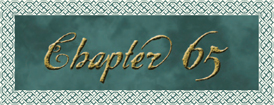
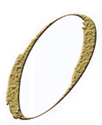 NCE MAL’AKH had finished dealing with his unexpected visitor—a female security guard from Preferred Security—he fixed the paint on the window through which she had glimpsed his sacred work space.
NCE MAL’AKH had finished dealing with his unexpected visitor—a female security guard from Preferred Security—he fixed the paint on the window through which she had glimpsed his sacred work space.
Now, ascending out of the soft blue haze of the basement, he emerged through a hidden doorway into his living room. Inside, he paused, admiring his spectacular painting of the Three Graces and savoring the familiar smells and sounds of his home.
Soon I will be leaving forever. Mal’akh knew that after tonight he would be unable to return to this place. After tonight, he thought, smiling, I will have no need for this place.
He wondered if Robert Langdon yet understood the true power of the pyramid … or the importance of the role for which fate had chosen him. Langdon has yet to call me, Mal’akh thought, after double-checking for messages on his disposable phone. It was now 10:02 P.M. He has less than two hours.
Mal’akh went upstairs to his Italian-marble bathroom and turned on the steam shower to let it heat up. Methodically, he stripped off his clothes, eager to begin his cleansing ritual.
He drank two glasses of water to calm his starving stomach. Then he walked to the full-length mirror and studied his naked body. His two days of fasting had accentuated his musculature, and he could not help but admire that which he had become. By dawn, I will be so much more.
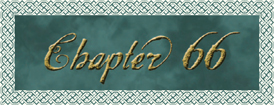
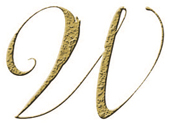 E SHOULD get out of here,” Langdon said to Katherine. “It’s only a matter of time before they figure out where we are.” He hoped Bellamy had managed to escape.
E SHOULD get out of here,” Langdon said to Katherine. “It’s only a matter of time before they figure out where we are.” He hoped Bellamy had managed to escape.
Katherine still seemed fixated on the gold capstone, looking incredulous that the inscription was so unhelpful. She had taken the capstone out of the box, examined every side, and was now carefully putting it back in the box.
The secret hides within The Order, Langdon thought. Big help.
Langdon found himself wondering now if perhaps Peter had been misinformed about the contents of the box. This pyramid and capstone had been created long before Peter was born, and Peter was simply doing as his forefathers had told him, keeping a secret that was probably as much a mystery to him as it was to Langdon and Katherine.
What did I expect? Langdon wondered. The more he learned tonight about the Legend of the Masonic Pyramid, the less plausible it all seemed. I’m searching for a hidden spiral staircase covered by a huge stone? Something told Langdon he was chasing shadows. Nonetheless, deciphering this pyramid seemed his best chance at saving Peter.
“Robert, does the year 1514 mean anything to you?”
Fifteen-fourteen? The question seemed apropos of nothing. Langdon shrugged. “No. Why?”
Katherine handed him the stone box. “Look. The box is dated. Have a look under the light.”
Langdon took a seat at the desk and studied the cube-shaped box beneath the light. Katherine put a soft hand on his shoulder, leaning in to point out the tiny text she had found carved on the exterior of the box, near the bottom corner of one side.
“Fifteen-fourteen A.D.,” she said, pointing into the box.
Sure enough, the carving depicted the number 1514, followed by an unusual stylization of the letters A and D.
![]()
“This date,” Katherine was saying, sounding suddenly hopeful, “maybe it’s the link we’re missing? This dated cube looks a lot like a Masonic cornerstone, so maybe it’s pointing to a real cornerstone? Maybe to a building built in 1514 A.D.?”
Langdon barely heard her.
Fifteen-fourteen A.D. is not a date.
The symbol  , as any scholar of medieval art would recognize, was a well-known symbature—a symbol used in place of a signature. Many of the early philosophers, artists, and authors signed their work with their own unique symbol or monogram rather than their name. This practice added a mysterious allure to their work and also protected them from persecution should their writings or artwork be deemed counterestablishment.
, as any scholar of medieval art would recognize, was a well-known symbature—a symbol used in place of a signature. Many of the early philosophers, artists, and authors signed their work with their own unique symbol or monogram rather than their name. This practice added a mysterious allure to their work and also protected them from persecution should their writings or artwork be deemed counterestablishment.
In the case of this symbature, the letters A.D. did not stand for Anno Domini … they were German for something else entirely.
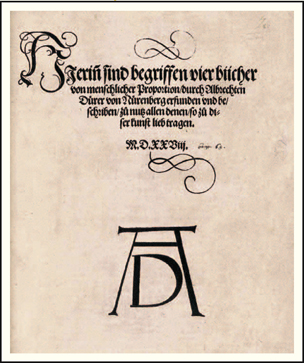
STYLIZED MEDIEVAL SIGNATURE
Langdon instantly saw all the pieces fall into place. Within seconds, he was certain he knew exactly how to decipher the pyramid. “Katherine, you did it,” he said, packing up. “That’s all we needed. Let’s go. I’ll explain on the way.”
Katherine looked amazed. “The date 1514 A.D. actually means something to you?”
Langdon winked at her and headed for the door. “A.D. isn’t a date, Katherine. It’s a person.”
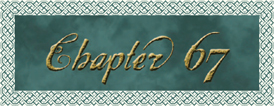
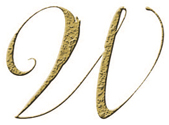 EST OF Embassy Row, all was silent again inside the walled garden with its twelfth-century roses and Shadow House gazebo. On the other side of an entry road, the young man was helping his hunched superior walk across an expansive lawn.
EST OF Embassy Row, all was silent again inside the walled garden with its twelfth-century roses and Shadow House gazebo. On the other side of an entry road, the young man was helping his hunched superior walk across an expansive lawn.
He’s letting me guide him?
Normally, the blind old man refused help, preferring to navigate by memory alone while on the grounds of his sanctuary. Tonight, however, he was apparently in a hurry to get inside and return Warren Bellamy’s phone call.
“Thank you,” the old man said as they entered the building that held his private study. “I can find my way from here.”
“Sir, I would be happy to stay and help—”
“That’s all for tonight,” he said, letting go of his helper’s arm and shuffling hurriedly off into the darkness. “Good night.”
The young man exited the building and walked back across the great lawn to his modest dwelling on the grounds. By the time he entered his flat, he could feel his curiosity gnawing at him. The old man clearly had been upset by the question posed by Mr. Bellamy … and yet the question had seemed strange, almost meaningless.
Is there no help for the widow’s son?
In his wildest imagination, he could not guess what this could mean. Puzzled, he went to his computer and typed in a search for this precise phrase.
To his great surprise, page after page of references appeared, all citing this exact question. He read the information in wonderment. It seemed Warren Bellamy was not the first person in history to ask this strange question. These same words had been uttered centuries ago … by King Solomon as he mourned a murdered friend. The question was allegedly still spoken today by Masons, who used it as a kind of encoded cry for help. Warren Bellamy, it seemed, was sending a distress call to a fellow Mason.
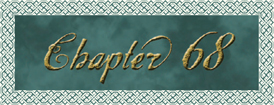
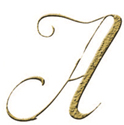 LBRECHT DÜRER?
LBRECHT DÜRER?
Katherine was trying to put the pieces together as she hurried with Langdon through the basement of the Adams Building. A.D. stands for Albrecht Dürer? The famous sixteenth-century German engraver and painter was one of her brother’s favorite artists, and Katherine was vaguely familiar with his work. Even so, she could not imagine how Dürer would be any help to them in this case. For one thing, he’s been dead more than four hundred years.
“Dürer is symbolically perfect,” Langdon was saying as they followed the trail of illuminated EXIT signs. “He was the ultimate Renaissance mind—artist, philosopher, alchemist, and a lifelong student of the Ancient Mysteries. To this day, nobody fully understands the messages hidden in Dürer’s art.”
“That may be true,” she said. “But how does ‘1514 Albrecht Dürer’ explain how to decipher the pyramid?”
They reached a locked door, and Langdon used Bellamy’s key card to get through.
“The number 1514,” Langdon said as they hurried up the stairs, “is pointing us to a very specific piece of Dürer’s work.” They came into a huge corridor. Langdon glanced around and then pointed left. “This way.” They moved quickly again. “Albrecht Dürer actually hid the number 1514 in his most mysterious piece of art—Melencolia I—which he completed in the year 1514. It’s considered the seminal work of the Northern European Renaissance.”
Peter had once shown Katherine Melencolia I in an old book on ancient mysticism, but she didn’t recall any hidden number 1514.
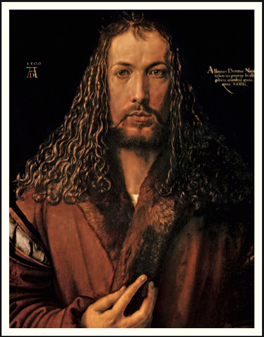
ALBRECHT DÜRER
68.1: Alte Pinakothek, Munich, Germany/The Bridgeman Art Library
“As you may know,” Langdon said, sounding excited, “Melencolia I depicts mankind’s struggle to comprehend the Ancient Mysteries. The symbolism in Melencolia I is so complex it makes Leonardo da Vinci look overt.”
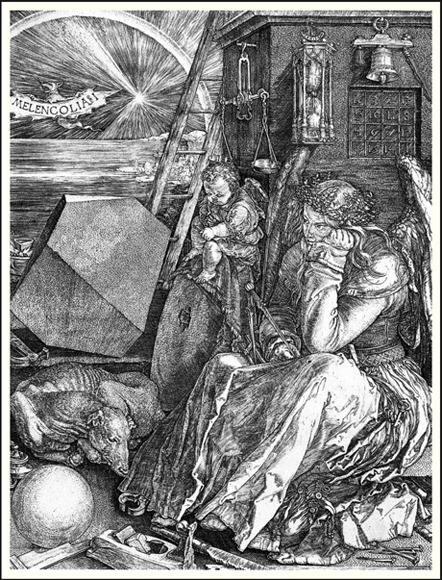
MELENCOLIA I, ALBRECHT DÜRER
Katherine stopped abruptly and looked at Langdon. “Robert, Melencolia I is here in Washington. It hangs in the National Gallery.”
“Yes,” he said with a smile, “and something tells me that’s not a coincidence. The gallery is closed at this hour, but I know the curator and—”
“Forget it, Robert, I know what happens when you go to museums.” Katherine headed off into a nearby alcove, where she saw a desk with a computer.
Langdon followed, looking unhappy.
“Let’s do this the easier way.” It seemed Professor Langdon, the art connoisseur, was having an ethical dilemma about using the Internet when an original was so nearby. Katherine stepped behind the desk and powered up the computer. When the machine finally came to life, she realized she had another problem. “There’s no icon for a browser.”
“It’s an internal library network.” Langdon pointed to an icon on the desktop. “Try that.”
Katherine clicked on the icon marked DIGITAL COLLECTIONS. The computer accessed a new screen, and Langdon pointed again. Katherine clicked on his choice of icon: FINE PRINTS COLLECTION. The screen refreshed. FINE PRINTS: SEARCH.
“Type in ‘Albrecht Dürer.’ ”
Katherine entered the name and then clicked the search key. Within seconds, the screen began displaying a series of thumbnail images. All of the images looked to be similar in style—intricate black-and-white engravings. Dürer had apparently done dozens of similar engravings.
Katherine scanned the alphabetical list of his artwork.
Adam and Eve
Betrayal of Christ
Four Horsemen of the Apocalypse
Great Passion
Last Supper
Seeing all the biblical titles, Katherine recalled that Dürer practiced something called Mystic Christianity—a fusion of early Christianity, alchemy, astrology, and science.
Science …
The image of her lab in flames rushed through her mind. She could barely process the long-term ramifications, but for the moment, her thoughts turned to her assistant, Trish. I hope she made it out.
Langdon was saying something about Dürer’s version of the Last Supper, but Katherine was barely listening. She had just seen the link for Melencolia I.
She clicked the mouse, and the page refreshed with general information.
Melencolia I, 1514
Albrecht Dürer
(engraving on laid paper)
Rosenwald Collection
National Gallery of Art
Washington, D.C.
When she scrolled down, a high-res digital image of Dürer’s masterpiece appeared in all its glory.
Katherine stared in bewilderment, having forgotten just how strange it was.
Langdon gave an understanding chuckle. “As I said, it’s cryptic.”
Melencolia I consisted of a brooding figure with giant wings, seated in front of a stone building, surrounded by the most disparate and bizarre collection of objects imaginable—measuring scales, an emaciated dog, carpenter’s tools, an hourglass, various geometric solids, a hanging bell, a putto, a blade, a ladder.
Katherine vaguely recalled her brother telling her that the winged figure was a representation of “human genius”—a great thinker with chin in hand, looking depressed, still unable to achieve enlightenment. The genius is surrounded with all of the symbols of his human intellect—objects of science, math, philosophy, nature, geometry, even carpentry—and yet is still unable to climb the ladder to true enlightenment. Even the human genius has difficulty comprehending the Ancient Mysteries.
“Symbolically,” Langdon said, “this represents mankind’s failed attempt to transform human intellect into godlike power. In alchemical terms, it represents our inability to turn lead into gold.”
“Not a particularly encouraging message,” Katherine agreed. “So how does it help us?” She did not see the hidden number 1514 that Langdon was talking about.
“Order from chaos,” Langdon said, flashing a lopsided grin. “Just as your brother promised.” He reached in his pocket and pulled out the grid of letters he had written earlier from the Masonic cipher. “Right now, this grid is meaningless.” He spread the paper out on the desk.
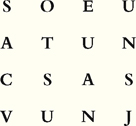
Katherine eyed the grid. Definitely meaningless.
“But Dürer will transform it.”
“And how might he do that?”
“Linguistic alchemy.” Langdon motioned to the computer screen. “Look carefully. Hidden in this masterpiece is something that will make sense of our sixteen letters.” He waited. “Do you see it yet? Look for the number 1514.”
Katherine was in no mood to play classroom. “Robert, I see nothing—an orb, a ladder, a knife, a polyhedron, a scale? I give up.”
“Look! There in the background. Carved into that building behind the angel? Beneath the bell? Dürer engraved a square that is full of numbers.”
Katherine now saw the square that contained numbers, among them 1514.
“Katherine, that square is the key to deciphering the pyramid!”
She shot him a surprised look.
“That’s not just any square,” Langdon said, grinning. “That, Ms. Solomon, is a magic square.”
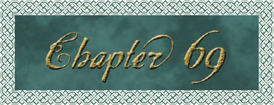
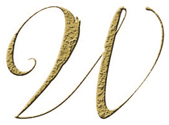 HERE THE hell are they taking me?
HERE THE hell are they taking me?
Bellamy was still blindfolded in the back of an SUV. After a short stop somewhere close to the Library of Congress, the vehicle had continued on … but only for a minute. Now the SUV had stopped again, having again traveled only about a block.
Bellamy heard muffled voices talking.
“Sorry … impossible …” an authoritative voice was saying. “… closed at this hour …”
The man driving the SUV replied with equal authority. “CIA investigation … national security …” Apparently the exchange of words and IDs was persuasive, because the tone shifted immediately.
“Yes, of course … service entrance …” There was the loud grinding of what sounded like a garage door, and as it opened, the voice added, “Shall I accompany you? Once you’re inside, you won’t be able to get through—”
“No. We have access already.”
If the guard was surprised, it was too late. The SUV was moving again. It advanced about fifty yards and then came to a stop. The heavy door rumbled closed again behind them.
Silence.
Bellamy realized he was trembling.
With a bang, the SUV’s rear hatch flew open. Bellamy felt a sharp pain in his shoulders as someone dragged him out by his arms, then lifted him to his feet. Without a word, a powerful force led him across a wide expanse of pavement. There was a strange, earthy smell here that he could not place. There were footsteps of someone else walking with them, but whoever it was had yet to speak.
They stopped at a door, and Bellamy heard an electronic ping. The door clicked open. Bellamy was manhandled through several corridors and could not help but notice that the air was warmer and more humid. An indoor pool, maybe? No. The smell in the air was not chlorine … it was far more earthy and primal.
Where the hell are we?! Bellamy knew he could not be more than a block or two from the Capitol Building. Again they stopped, and again he heard the electronic beep of a security door. This one slid open with a hiss. As they pushed him through, the smell that hit him was unmistakable.
Bellamy now realized where they were. My God! He came here often, although never through the service entrance. This magnificent glass building was only three hundred yards from the Capitol Building and was technically part of the Capitol Complex. I run this place! Bellamy now realized it was his own key fob that was giving them access.
Powerful arms pushed him through the doorway, leading him down a familiar, winding walkway. The heavy, damp warmth of this place usually felt comforting to him. Tonight, he was sweating.
What are we doing here?!
Bellamy was halted suddenly and seated on a bench. The man with the muscles unhooked his handcuffs only long enough to reaffix them to the bench behind his back.
“What do you want from me?” Bellamy demanded, heart pounding wildly.
The only response he received was the sound of boots walking off and the glass door sliding shut.
Then silence.
Dead silence.
They’re just going to leave me here? Bellamy was sweating more heavily now as he struggled to release his hands. I can’t even take off my blindfold?
“Help!” he shouted. “Anybody!”
Even as he called out in panic, Bellamy knew nobody was going to hear him. This massive glass room—known as the Jungle—was entirely airtight when the doors were closed.
They left me in the Jungle, he thought. Nobody will find me until morning.
Then he heard it.
The sound was barely audible, but it terrified Bellamy like no sound he had ever heard in his life. Something breathing. Very close.
He was not alone on the bench.
The sudden hiss of a sulfur match sizzled so close to his face that he could feel the heat. Bellamy recoiled, instinctively yanking hard at his chains.
Then, without warning, a hand was on his face, removing his blindfold.
The flame before him reflected in the black eyes of Inoue Sato as she pressed the match against the cigarette dangling from her lips, only inches away from Bellamy’s face.
She glared at him in the moonlight that filtered down through the glass ceiling. She looked pleased to see his fear.
“So, Mr. Bellamy,” Sato said, shaking out the match. “Where shall we begin?”
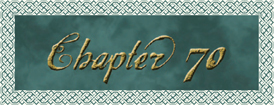
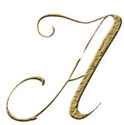 MAGIC SQUARE. Katherine nodded as she eyed the numbered square in Dürer’s engraving. Most people would have thought Langdon had lost his mind, but Katherine had quickly realized he was right.
MAGIC SQUARE. Katherine nodded as she eyed the numbered square in Dürer’s engraving. Most people would have thought Langdon had lost his mind, but Katherine had quickly realized he was right.
The term magic square referred not to something mystical but to something mathematical—it was the name given to a grid of consecutive numbers arranged in such a way that all the rows, columns, and diagonals added up to the same thing. Created some four thousand years ago by mathematicians in Egypt and India, magic squares were still believed by some to hold magical powers. Katherine had read that even nowadays devout Indians drew special three-by-three magic squares called the Kubera Kolam on their pooja altars. Primarily, though, modern man had relegated magic squares to the category of “recreational mathematics,” some people still deriving pleasure from the quest to discover new “magical” configurations. Sudoku for geniuses.
Katherine quickly analyzed Dürer’s square, adding up the numbers in several rows and columns.
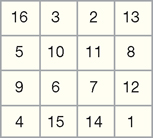
“Thirty-four,” she said. “Every direction adds up to thirty-four.”
“Exactly,” Langdon said. “But did you know that this magic square is famous because Dürer accomplished the seemingly impossible?” He quickly showed Katherine that in addition to making the rows, columns, and diagonals add up to thirty-four, Dürer had also found a way to make the four quadrants, the four center squares, and even the four corner squares add up to that number. “Most amazing, though, was Dürer’s ability to position the numbers 15 and 14 together in the bottom row as an indication of the year in which he accomplished this incredible feat!”
Katherine scanned the numbers, amazed by all the combinations.
Langdon’s tone grew more excited now. “Extraordinarily, Melencolia I represents the very first time in history that a magic square appeared in European art. Some historians believe this was Dürer’s encoded way of indicating that the Ancient Mysteries had traveled outside the Egyptian Mystery Schools and were now held by the European secret societies.” Langdon paused. “Which brings us back to … this.”
He motioned to the slip of paper bearing the grid of letters from the stone pyramid.
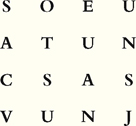
“I assume the layout looks familiar now?” Langdon asked.
“Four-by-four square.”
Langdon picked up the pencil and carefully transcribed Dürer’s numbered magic square onto the slip of paper, directly beside the lettered square. Katherine was now seeing just how easy this was going to be. He stood poised, pencil in hand, and yet … strangely, after all this enthusiasm, he seemed to hesitate.
“Robert?”
He turned to her, his expression one of trepidation. “Are you sure we want to do this? Peter expressly—”
“Robert, if you don’t want to decipher this engraving, then I will.” She held out her hand for the pencil.
Langdon could tell there would be no deterring her and so he acquiesced, turning his attention back to the pyramid. Carefully, he superimposed the magic square over the pyramid’s grid of letters and assigned each letter a number. Then he created a new grid, placing the Masonic cipher’s letters in the new order as defined by the sequence in Dürer’s magic square.
When Langdon was finished, they both examined the result.
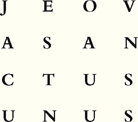
Katherine immediately felt confused. “It’s still gibberish.”
Langdon remained silent a long moment. “Actually, Katherine, it’s not gibberish.” His eyes brightened again with the thrill of discovery. “It’s … Latin.”
In a long, dark corridor, an old blind man shuffled as quickly as he could toward his office. When he finally arrived, he collapsed in his desk chair, his old bones grateful for the reprieve. His answering machine was beeping. He pressed the button and listened.
“It’s Warren Bellamy,” said the hushed whisper of his friend and Masonic brother. “I’m afraid I have alarming news …”
Katherine Solomon’s eyes shot back to the grid of letters, reexamining the text. Sure enough, a Latin word now materialized before her eyes. Jeova.
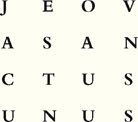
Katherine had not studied Latin, but this word was familiar from her reading of ancient Hebrew texts. Jeova. Jehovah. As her eyes continued to trace downward, reading the grid like a book, she was surprised to realize she could read the entire text of the pyramid.
Jeova Sanctus Unus.
She knew its meaning at once. This phrase was ubiquitous in modern translations of Hebrew scripture. In the Torah, the God of the Hebrews was known by many names—Jeova, Jehovah, Jeshua, Yahweh, the Source, the Elohim—but many Roman translations had consolidated the confusing nomenclature into a single Latin phrase: Jeova Sanctus Unus.
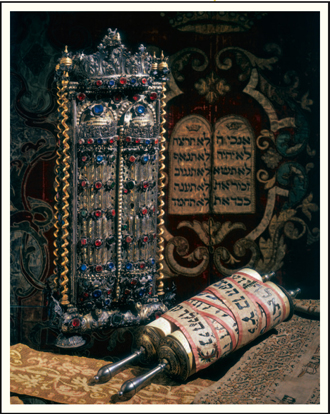
TORAH SCROLL
70.1: Ann Ronan Picture Library, London/HIP/Art Resource, NY
“One true God?” she whispered to herself. The phrase certainly did not seem like something that would help them find her brother. “That’s this pyramid’s secret message? One true God? I thought this was a map.”
Langdon looked equally perplexed, the excitement in his eyes evaporating. “This decryption obviously is correct, but …”
“The man who has my brother wants to know a location.” She tucked her hair behind her ear. “This is not going to make him very happy.”
“Katherine,” Langdon said, heaving a sigh. “I’ve been afraid of this. All night, I’ve had a feeling we’re treating as reality a collection of myths and allegories. Maybe this inscription is pointing to a metaphorical location—telling us that the true potential of man can be accessed only through the one true God.”
“But that makes no sense!” Katherine replied, her jaw now clenched in frustration. “My family protected this pyramid for generations! One true God? That’s the secret? And the CIA considers this an issue of national security? Either they’re lying or we’re missing something!”
Just then, his phone began to ring.
In a cluttered office lined with old books, the old man hunched over his desk, clutching a phone receiver in his arthritic hand.
The line rang and rang.
At last, a tentative voice answered. “Hello?” The voice was deep but uncertain.
The old man whispered, “I was told you require sanctuary.”
The man on the line seemed startled. “Who is this? Did Warren Bell—”
“No names, please,” the old man said. “Tell me, have you successfully protected the map that was entrusted to you?”
A startled pause. “Yes … but I don’t think it matters. It doesn’t say much. If it is a map, it seems to be more metaphorical than—”
“No, the map is quite real, I assure you. And it points to a very real location. You must keep it safe. I cannot impress upon you enough how important this is. You are being pursued, but if you can travel unseen to my location, I will provide sanctuary … and answers.”
The man hesitated, apparently uncertain.
“My friend,” the old man began, choosing his words carefully. “There is a refuge in Rome, north of the Tiber, which contains ten stones from Mount Sinai, one from heaven itself, and one with the visage of Luke’s dark father. Do you know my location?”
There was a long pause on the line, and then the man replied, “Yes, I do.”
The old man smiled. I thought you might, Professor. “Come at once. Make sure you’re not followed.”
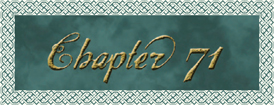
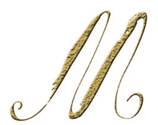 AL’AKH STOOD naked in the billowing warmth of his steam shower. He felt pure again, having washed off the last remaining scent of ethanol. As the eucalyptus-infused vapors permeated his skin, he could feel his pores opening to the heat. Then he began his ritual.
AL’AKH STOOD naked in the billowing warmth of his steam shower. He felt pure again, having washed off the last remaining scent of ethanol. As the eucalyptus-infused vapors permeated his skin, he could feel his pores opening to the heat. Then he began his ritual.
First, he rubbed depilatory chemicals across his tattooed body and scalp, removing any traces of body hair. Hairless were the gods of the seven islands of Heliades. Then he massaged Abramelin oil into his softened and receptive flesh. Abramelin is the sacred oil of the great Magi. Then he turned his shower lever hard to the left, and the water turned ice cold. He stood beneath the frigid water for a full minute to close his pores and trap the heat and energy within his core. The cold served as a reminder of the icy river in which this transformation had begun.
When he stepped from the shower, he was shivering, but within seconds, his core heat emanated up through his layers of flesh and warmed him. Mal’akh’s insides felt like a furnace. He stood naked before the mirror and admired his form … perhaps the last time he would see himself as a mere mortal.
His feet were the talons of a hawk. His legs—Boaz and Jachin—were the ancient pillars of wisdom. His hips and abdomen were the archways of mystical power. Hanging beneath the archway, his massive sex organ bore the tattooed symbols of his destiny. In another life, this heavy shaft of flesh had been his source of carnal pleasure. But no longer.
I have been purified.
Like the mystical eunuch monks of Katharoi, Mal’akh had removed his testicles. He had sacrificed his physical potency for a more worthy one. Gods have no gender. Having shed the human imperfection of gender along with the earthly pull of sexual temptation, Mal’akh had become like Ouranos, Attis, Sporus, and the great castrati magicians of Arthurian legend. Every spiritual metamorphosis is preceded by a physical one. Such was the lesson of all the great gods … from Osiris, to Tammuz, to Jesus, to Shiva, to the Buddha himself.
I must shed the man who clothes me.
Abruptly, Mal’akh drew his gaze upward, past the double-headed phoenix on his chest, past the collage of ancient sigils adorning his face, and directly to the top of his head. He tipped his head toward the mirror, barely able to see the circle of bare flesh that waited there. This location on the body was sacred. Known as the fontanel, it was the one area of the human skull that remained open at birth. An oculus to the brain. Although this physiological portal closes within a matter of months, it remains a symbolic vestige of the lost connection between the outer and inner worlds.
Mal’akh studied the sacred patch of virginal skin, which was enclosed by the crownlike circle of an ouroboros—a mystical snake devouring its own tail. The bare flesh seemed to stare back at him … bright with promise.
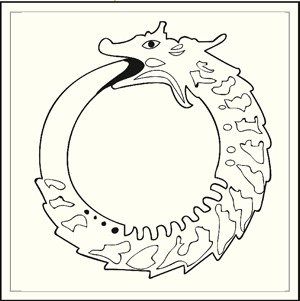
OUROBOROS
71.1: Dorling Kindersley/Getty Images
Robert Langdon soon would uncover the great treasure that Mal’akh required. Once Mal’akh possessed it, the void on top of his head would be filled, and he would at last be prepared for his final transformation.
Mal’akh padded across his bedroom and took from his bottom drawer a long strip of white silk. As he had done many times before, he wrapped it around his groin and buttocks. Then he went downstairs.
In his office, his computer had received an e-mail message.
It was from his contact:
WHAT YOU REQUIRE IS NOW WITHIN REACH.
I WILL CONTACT YOU WITHIN THE HOUR. PATIENCE.
Mal’akh smiled. It was time to make final preparations.
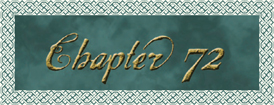
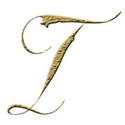 HE CIA field agent was in a foul mood as he descended from the reading-room balcony. Bellamy lied to us. The agent had seen no heat signatures whatsoever upstairs near the Moses statue, nor anywhere else upstairs for that matter. So where the hell did Langdon go?
HE CIA field agent was in a foul mood as he descended from the reading-room balcony. Bellamy lied to us. The agent had seen no heat signatures whatsoever upstairs near the Moses statue, nor anywhere else upstairs for that matter. So where the hell did Langdon go?
The agent retraced his steps now to the only place they’d spotted any heat signatures at all—the library’s distribution hub. He descended the stairs again, moving beneath the octagonal console. The noise of the rumbling conveyors was grating. Advancing into the space, he flipped down his thermal goggles and scanned the room. Nothing. He looked toward the stacks, where the mangled door still showed hot from the explosion. Other than that, he saw no—
Holy shit!
The agent jumped back as an unexpected luminescence drifted into his field of vision. Like a pair of ghosts, the dimly glowing imprints of two humanoids had just emerged from the wall on a conveyor belt. Heat signatures.
Stunned, the agent watched as the two apparitions circled the room on the conveyor loop and then disappeared headfirst into a narrow hole in the wall. They rode the conveyor out? That’s insanity.
In addition to realizing they had just lost Robert Langdon through a hole in the wall, the field agent was now aware that he had another problem. Langdon’s not alone?
He was just about to switch on his transceiver and call the team leader, but the team leader beat him to it.
“All points, we’ve got an abandoned Volvo on the plaza in front of the library. Registered to one Katherine Solomon. Eyewitness says she entered the library not long ago. We suspect she’s with Robert Langdon. Director Sato has ordered that we find them both immediately.”
“I’ve got heat signatures for both of them!” shouted the field agent in the distribution room. He explained the situation.
“For Christ’s sake!” the team leader replied. “Where the hell does the conveyor go?”
The field agent was already consulting the employee reference schematic on the bulletin board. “Adams Building,” he replied. “One block from here.”
“All points. Redirect to the Adams Building! NOW!”
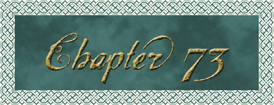
 ANCTUARY. ANSWERS.
ANCTUARY. ANSWERS.
The words echoed in Langdon’s mind as he and Katherine burst through a side door of the Adams Building and out into the cold winter night. The mysterious caller had conveyed his location cryptically, but Langdon had understood. Katherine’s reaction to their destination had been surprisingly sanguine: Where better to find One True God?
Now the question was how to get there.
Langdon spun in place, trying to get his bearings. It was dark, but thankfully the weather had cleared. They were standing in a small courtyard. In the distance, the Capitol Dome looked startlingly far away, and Langdon realized this was the first moment he had stepped outside since arriving at the Capitol several hours ago.
So much for my lecture.
“Robert, look.” Katherine pointed toward the silhouette of the Jefferson Building.
Langdon’s first reaction on seeing the building was astonishment that they had traveled so far underground on a conveyor belt. His second reaction, however, was alarm. The Jefferson Building was now abuzz with activity—trucks and cars pulling in, men shouting. Is that a searchlight?
Langdon grabbed Katherine’s hand. “Come on.”
They ran northeast across the courtyard, quickly disappearing from view behind an elegant U-shaped building, which Langdon realized was the Folger Shakespeare Library. This particular building seemed appropriate camouflage for them tonight, as it housed the original Latin manuscript of Francis Bacon’s New Atlantis, the utopian vision on which the American forefathers had allegedly modeled a new world based on ancient knowledge. Even so, Langdon would not be stopping.
We need a cab.
They arrived at the corner of Third Street and East Capitol. The traffic was sparse, and Langdon felt fading hope as he scanned for taxis. He and Katherine hurried northward on Third Street, putting distance between themselves and the Library of Congress. It was not until they had gone an entire block that Langdon finally spotted a cab rounding the corner. He flagged it down, and the cab pulled over.
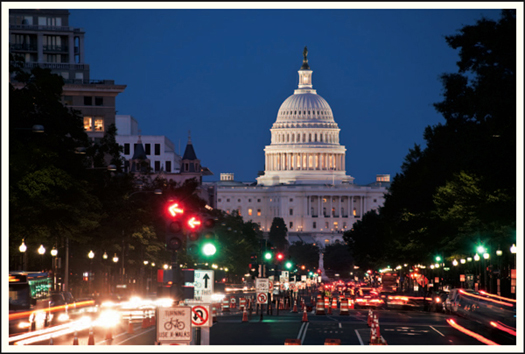
WASHINGTON, D.C., AT NIGHT
73.1: © Richard Nowitz
Middle Eastern music played on his radio, and the young Arab driver gave them a friendly smile. “Where to?” the driver asked as they jumped into the car.
“We need to go to—”
“Northwest!” Katherine interjected, pointing up Third Street away from the Jefferson Building. “Drive toward Union Station, then left on Massachusetts Avenue. We’ll tell you when to stop.”
The driver shrugged, closed the Plexiglas divider, and turned his music back on.
Katherine shot Langdon an admonishing look as if to say: “Leave no trail. “She pointed out the window, directing Langdon’s attention to a black helicopter that was skimming in low, approaching the area. Shit. Sato was apparently dead serious about recovering Solomon’s pyramid.
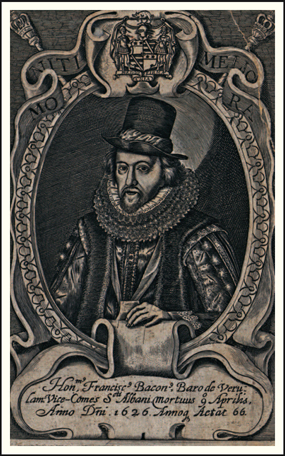
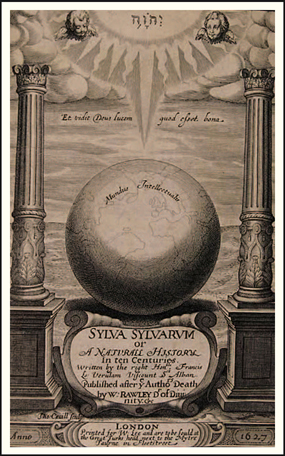
PAGES FROM THE NEW ATLANTIS, FRANCIS BACON
73.2: Bacon, Francis, Sylva sylvarum: or, A natural history in ten centuries (1664), Rare Books and Special Collections, University of Sydney Library
As they watched the helicopter land between the Jefferson and Adams buildings, Katherine turned to him, looking increasingly worried. “Can I see your cell phone for a second?”
Langdon handed her his phone.
“Peter told me you have an eidetic memory?” she said, rolling down her window. “And that you remember every phone number you’ve ever dialed?”
“That’s true, but—”
Katherine hurled his phone out into the night. Langdon spun in his seat and watched as his cell phone cartwheeled and splintered into pieces on the pavement behind them. “Why did you do that!”
“Off the grid,” Katherine said, her eyes grave. “This pyramid is our only hope of finding my brother, and I have no intention of letting the CIA steal it from us.”
In the front seat, Omar Amirana bobbed his head and hummed along with his music. Tonight had been slow, and he felt blessed to finally have a fare. His cab was just passing Stanton Park, when the familiar voice of his company dispatcher crackled over the radio.
“This is Dispatch. All vehicles in the area of the National Mall. We have just received a bulletin from government authorities regarding two fugitives in the area of the Adams Building …”
Omar listened in amazement as Dispatch described the precise couple in his cab. He stole an uneasy glance in his rearview mirror. Omar had to admit, the tall guy did look familiar somehow. Did I see him on America’s Most Wanted?
Gingerly, Omar reached for his radio handset. “Dispatch?” he said, speaking quietly into the transceiver. “This is cab one-three-four. The two people you asked about—they are in my cab … right now.”
Dispatch immediately advised Omar what to do. Omar’s hands were trembling as he called the phone number Dispatch had given him. The voice that answered was tight and efficient, like that of a soldier.
“This is Agent Turner Simkins, CIA field ops. Who is this?”
“Um … I’m the taxi driver?” Omar said. “I was told to call about the two—”
“Are the fugitives currently in your vehicle? Answer only yes or no.”
“Yes.”
“Can they hear this conversation? Yes or no?”
“No. The slider is—”
“Where are you taking them?”
“Northwest on Massachusetts.”
“Specific destination?”
“They didn’t say.”
The agent hesitated. “Is the male passenger carrying a leather bag?”
Omar glanced in the rearview mirror, and his eyes went wide. “Yes! That bag doesn’t have explosives or anything in—”
“Listen carefully,” the agent said. “You are in no danger so long as you follow my directions exactly. Is that clear?”
“Yes, sir.”
“What is your name?”
“Omar,” he said, breaking a sweat.
“Listen, Omar,” the man said calmly. “You’re doing great. I want you to drive as slowly as possible while I get my team out in front of you. Do you understand?”
“Yes, sir.”
“Also, is your cab equipped with an intercom system so you can communicate with them in the backseat?”
“Yes, sir.”
“Good. Here’s what I want you to do.”
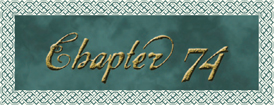
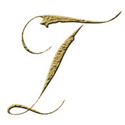 HE JUNGLE, as it is known, is the centerpiece of the U.S. Botanic Garden (USBG)—America’s living museum—located adjacent to the U.S. Capitol Building. Technically a rain forest, the Jungle is housed in a towering greenhouse, complete with soaring rubber trees, strangler figs, and a canopy catwalk for more daring tourists.
HE JUNGLE, as it is known, is the centerpiece of the U.S. Botanic Garden (USBG)—America’s living museum—located adjacent to the U.S. Capitol Building. Technically a rain forest, the Jungle is housed in a towering greenhouse, complete with soaring rubber trees, strangler figs, and a canopy catwalk for more daring tourists.
Normally, Warren Bellamy felt nurtured by the Jungle’s earthy smells and the sunlight glinting through the mist that filtered down from the vapor nozzles in the glass ceiling. Tonight, however, lit only by moonlight, the Jungle terrified him. He was sweating profusely, writhing against the cramps that now stabbed at his arms, still pinned painfully behind him.
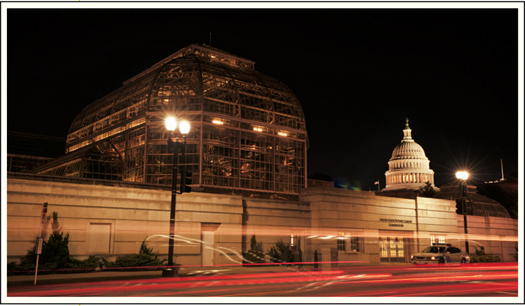
THE JUNGLE, U.S. BOTANIC GARDEN
74.1: © Richard Nowitz
Director Sato paced before him, puffing calmly on her cigarette—the equivalent of ecoterrorism in this carefully calibrated environment. Her face looked almost demonic in the smoke-filled moonlight that streamed down through the glass ceiling overhead.
“So then,” Sato continued, “when you arrived at the Capitol tonight, and you discovered that I was already there … you made a decision. Rather than making your presence known to me, you descended quietly into the SBB, where, at great risk to yourself, you attacked Chief Anderson and myself, and you helped Langdon escape with the pyramid and capstone.” She rubbed her shoulder. “An interesting choice.”
A choice I would make again, Bellamy thought. “Where is Peter?” he demanded angrily.
“How would I know?” Sato said.
“You seem to know everything else!” Bellamy fired back at her, making no attempt to hide his suspicion that she was somehow behind all this. “You knew to go to the Capitol Building. You knew to find Robert Langdon. And you even knew to X-ray Langdon’s bag to find the capstone. Obviously, someone is giving you a lot of inside information.”
Sato laughed coldly and stepped closer to him. “Mr. Bellamy, is that why you attacked me? Do you think I’m the enemy? Do you think I’m trying to steal your little pyramid?” Sato took a drag on her cigarette and blew the smoke out of her nostrils. “Listen carefully. No one understands better than I do the importance of keeping secrets. I believe, as you do, that there is certain information to which the masses should not be privy. Tonight, however, there are forces at work that I fear you have not yet grasped. The man who kidnapped Peter Solomon holds enormous power … a power that you apparently have yet to realize. Believe me, he is a walking time bomb … capable of initiating a series of events that will profoundly change the world as you know it.”
“I don’t understand.” Bellamy shifted on the bench, his arms aching in his handcuffs.
“You don’t need to understand. You need to obey. Right now, my only hope of averting a major disaster is to cooperate with this man … and to give him exactly what he wants. Which means, you are going to call Mr. Langdon and tell him to turn himself in, along with the pyramid and capstone. Once Langdon is in my custody, he will decrypt the pyramid’s inscription, obtain whatever information this man is demanding, and provide him with exactly what he wants.”
The location of the spiral staircase that leads to the Ancient Mysteries? “I can’t do that. I’ve taken vows of secrecy.”
Sato erupted. “I don’t give a damn what you’ve vowed, I will throw you in prison so fast—”
“Threaten me all you like,” Bellamy said defiantly. “I will not help you.”
Sato took a deep breath and spoke now in a fearsome whisper. “Mr. Bellamy, you have no idea what’s really going on tonight, do you?”
The tense silence hung for several seconds, finally broken by the sound of Sato’s phone. She plunged her hand into her pocket and eagerly snatched it out. “Talk to me,” she answered, listening carefully to the reply. “Where is their taxi now? How long? Okay, good. Bring them to the U.S. Botanic Garden. Service entrance. And make sure you get me that goddamn pyramid and capstone.”
Sato hung up and turned back to Bellamy with a smug smile. “Well then … it seems you’re fast outliving your usefulness.”
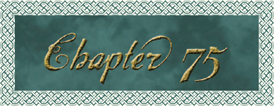
 OBERT LANGDON stared blankly into space, feeling too tired to urge the slow-moving taxi driver to pick up the pace. Beside him, Katherine had fallen silent, too, looking frustrated by their lack of understanding of what made the pyramid so special. They had again been through everything they knew about the pyramid, the capstone, and the evening’s strange events; they still had no ideas as to how this pyramid could possibly be considered a map to anything at all.
OBERT LANGDON stared blankly into space, feeling too tired to urge the slow-moving taxi driver to pick up the pace. Beside him, Katherine had fallen silent, too, looking frustrated by their lack of understanding of what made the pyramid so special. They had again been through everything they knew about the pyramid, the capstone, and the evening’s strange events; they still had no ideas as to how this pyramid could possibly be considered a map to anything at all.
Jeova Sanctus Unus? The secret hides within The Order?
Their mysterious contact had promised them answers if they could meet him at a specific place. A refuge in Rome, north of the Tiber. Langdon knew the forefathers’ “new Rome” had been renamed Washington early in her history, and yet vestiges of their original dream remained: the Tiber’s waters still flowed into the Potomac; senators still convened beneath a replica of St. Peter’s dome; and Vulcan and Minerva still watched over the Rotunda’s long-extinguished flame.
The answers sought by Langdon and Katherine were apparently waiting for them just a few miles ahead. Northwest on Massachusetts Avenue. Their destination was indeed a refuge … north of Washington’s Tiber Creek. Langdon wished the driver would speed up.
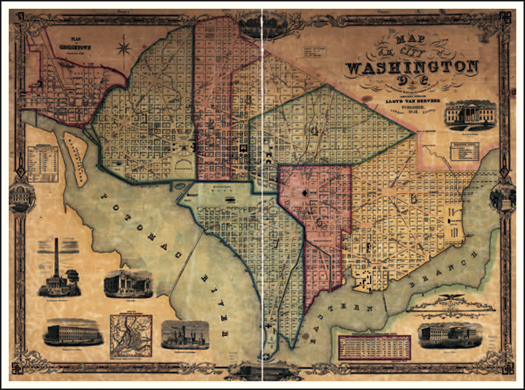
EARLY SURVEY MAP OF WASHINGTON, D.C., 1851
75.1: Library of Congress, Geography and Map Division
Abruptly, Katherine jolted upright in her seat, as if she had made a sudden realization. “Oh my God, Robert!” She turned to him, her face going white. She hesitated a moment and then spoke emphatically. “We’re going the wrong way!”
“No, this is right,” Langdon countered. “It’s northwest on Massachu—”
“No! I mean we’re going to the wrong place!”
Langdon was mystified. He had already told Katherine how he knew what location was being described by the mysterious caller. It contains ten stones from Mount Sinai, one from heaven itself, and one with the visage of Luke’s dark father. Only one building on earth could make those claims. And that was exactly where this taxi was headed.
“Katherine, I’m certain the location is correct.”
“No!” she shouted. “We don’t need to go there anymore. I figured out the pyramid and capstone! I know what this is all about!”
Langdon was amazed. “You understand it?”
“Yes! We have to go to Freedom Plaza instead!”
Now Langdon was lost. Freedom Plaza, although nearby, seemed totally irrelevant.
“Jeova Sanctus Unus!” Katherine said. “The One True God of the Hebrews. The sacred symbol of the Hebrews is the Jewish star—the Seal of Solomon—an important symbol to the Masons!” She fished a dollar bill out of her pocket. “Give me your pen.”
Bewildered, Langdon pulled a pen from his jacket.
“Look.” She spread the bill out on her thigh and took his pen, pointing to the Great Seal on the back. “If you superimpose Solomon’s seal on the Great Seal of the United States …” She drew the symbol of a Jewish star precisely over the pyramid. “Look what you get!”
Langdon looked down at the bill and then back at Katherine as if she were mad.
“Robert, look more closely! Don’t you see what I’m pointing at?”
He glanced back at the drawing.
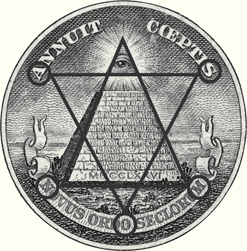
What in the world is she getting at? Langdon had seen this image before. It was popular among conspiracy theorists as “proof” that the Masons held secret influence over our early nation. When the six-pointed star was laid perfectly over the Great Seal of the United States, the star’s top vertex fit perfectly over the Masonic all-seeing eye … and, quite eerily, the other five vertices clearly pointed to the letters M-A-S-O-N.
“Katherine, that’s just a coincidence, and I still don’t see how it has anything to do with Freedom Plaza.”
“Look again!” she said, sounding almost angry now. “You’re not looking where I am pointing! Right there. Don’t you see it?”
An instant later, Langdon saw it.
CIA field-operations leader Turner Simkins stood outside the Adams Building and pressed his cell phone tightly to his ear, straining to hear the conversation now taking place in the back of the taxi. Something just happened. His team was about to board the modified Sikorsky UH-60 helicopter to head northwest and set up a roadblock, but now it seemed the situation had suddenly changed.
Seconds ago, Katherine Solomon had begun insisting they were going to the wrong destination. Her explanation—something about the dollar bill and Jewish stars—made no sense to the team leader, nor, apparently, to Robert Langdon. At least at first. Now, however, Langdon seemed to have grasped her meaning.
“My God, you’re right!” Langdon blurted. “I didn’t see it earlier!”
Suddenly Simkins could hear someone banging on the driver’s divider, and then it slid open. “Change of plans,” Katherine shouted to the driver. “Take us to Freedom Plaza!”
“Freedom Plaza?” the cabbie said, sounding nervous. “Not northwest on Massachusetts?”
“Forget that!” Katherine shouted. “Freedom Plaza! Go left here! Here! HERE!”
Agent Simkins heard the cab screeching around a corner. Katherine was talking excitedly again to Langdon, saying something about the famous bronze cast of the Great Seal embedded in the plaza.
“Ma’am, just to confirm,” the cabbie’s voice interjected, sounding tense. “We’re going to Freedom Plaza—on the corner of Pennsylvania and Thirteenth?”
“Yes!” Katherine said. “Hurry!”
“It’s very close. Two minutes.”
Simkins smiled. Nicely done, Omar. As he dashed toward the idling helicopter, he shouted to his team. “We’ve got them! Freedom Plaza! Move!”
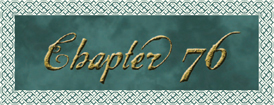
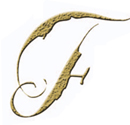 REEDOM PLAZA is a map.
REEDOM PLAZA is a map.
Located at the corner of Pennsylvania Avenue and Thirteenth Street, the plaza’s vast surface of inlaid stone depicts the streets of Washington as they were originally envisioned by Pierre L’Enfant. The plaza is a popular tourist destination not only because the giant map is fun to walk on, but also because Martin Luther King Jr., for whom Freedom Plaza is named, wrote much of his “I Have a Dream” speech in the nearby Willard Hotel.
D.C. cabdriver Omar Amirana brought tourists to Freedom Plaza all the time, but tonight, his two passengers were obviously no ordinary sightseers. The CIA is chasing them? Omar had barely come to a stop at the curb before the man and woman had jumped out.
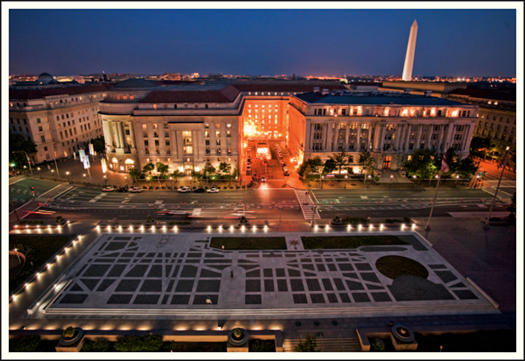
FREEDOM PLAZA
76.1: © Richard Nowitz
“Stay right here!” the man in the tweed coat told Omar. “We’ll be right back!”
Omar watched the two people dash out onto the wide-open spaces of the enormous map, pointing and shouting as they scanned the geometry of intersecting streets. Omar grabbed his cell phone off the dashboard. “Sir, are you still there?”
“Yes, Omar!” a voice shouted, barely audible over a thundering noise on his end of the line. “Where are they now?”
“Out on the map. It seems like they’re looking for something.”
“Do not let them out of your sight,” the agent shouted. “I’m almost there!”
Omar watched as the two fugitives quickly found the plaza’s famous Great Seal—one of the largest bronze medallions ever cast. They stood over it a moment and quickly began pointing to the southwest. Then the man in tweed came racing back toward the cab. Omar quickly set his phone down on the dashboard as the man arrived, breathless.
“Which direction is Alexandria, Virginia?” he demanded.
“Alexandria?” Omar pointed southwest, the exact same direction the man and woman had just pointed toward.
“I knew it!” the man whispered beneath his breath. He spun and shouted back to the woman. “You’re right! Alexandria!”
The woman now pointed across the plaza to an illuminated “Metro” sign nearby. “The Blue Line goes directly there. We want King Street Station!”
Omar felt a surge of panic. Oh no.
The man turned back to Omar and handed him entirely too many bills for the fare. “Thanks. We’re all set.” He hoisted his leather bag and ran off.
“Wait! I can drive you! I go there all the time!”
But it was too late. The man and woman were already dashing across the plaza. They disappeared down the stairs into the Metro Center subway station.
Omar grabbed his cell phone. “Sir! They ran down into the subway! I couldn’t stop them! They’re taking the Blue Line to Alexandria!”
“Stay right there!” the agent shouted. “I’ll be there in fifteen seconds!”
Omar looked down at the wad of bills the man had given him. The bill on top was apparently the one they had been writing on. It had a Jewish star on top of the Great Seal of the United States. Sure enough, the star’s points fell on letters that spelled MASON.
Without warning, Omar felt a deafening vibration all around him, as if a tractor trailer were about to collide with his cab. He looked up, but the street was deserted. The noise increased, and suddenly a sleek black helicopter dropped down out of the night and landed hard in the middle of the plaza map.

SIKORSKY UH-60 BLACKHAWK HELICOPTER
76.2: Purestock/Getty Images
A group of black-clad men jumped out. Most ran toward the subway station, but one came dashing toward Omar’s cab. He yanked open the passenger door. “Omar? Is that you?”
Omar nodded, speechless.
“Did they say where they were headed?” the agent demanded.
“Alexandria! King Street Station,” Omar blurted. “I offered to drive, but—”
“Did they say where in Alexandria they were going?”
“No! They looked at the medallion of the Great Seal on the plaza, then they asked about Alexandria, and they paid me with this.” He handed the agent the dollar bill with the bizarre diagram. As the agent studied the bill, Omar suddenly put it all together. The Masons! Alexandria! One of the most famous Masonic buildings in America was in Alexandria. “That’s it!” he blurted. “The George Washington Masonic Memorial! It’s directly across from King Street Station!”
“That it is,” the agent said, apparently having just come to the same realization as the rest of the agents came sprinting back from the station.
“We missed them!” one of the men yelled. “Blue Line just left! They’re not down there!”
Agent Simkins checked his watch and turned back to Omar. “How long does the subway take to Alexandria?”
“Ten minutes at least. Probably more.”
“Omar, you’ve done an excellent job. Thank you.”
“Sure. What’s this all about?!”
But Agent Simkins was already running back to the chopper, shouting as he went. “King Street Station! We’ll get there before they do!”
Bewildered, Omar watched the great black bird lift off. It banked hard to the south across Pennsylvania Avenue, and then thundered off into the night.
Underneath the cabbie’s feet, a subway train was picking up speed as it headed away from Freedom Plaza. On board, Robert Langdon and Katherine Solomon sat breathless, neither one saying a word as the train whisked them toward their destination.
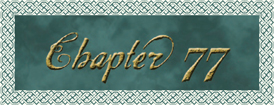
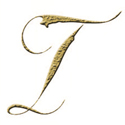 HE MEMORY always began the same way.
HE MEMORY always began the same way.
He was falling … plummeting backward toward an ice-covered river at the bottom of a deep ravine. Above him, the merciless gray eyes of Peter Solomon stared down over the barrel of Andros’s handgun. As he fell, the world above him receded, everything disappearing as he was enveloped by the cloud of billowing mist from the waterfall upstream.
For an instant, everything was white, like heaven.
Then he hit the ice.
Cold. Black. Pain.
He was tumbling … being dragged by a powerful force that pounded him relentlessly across rocks in an impossibly cold void. His lungs ached for air, and yet his chest muscles had contracted so violently in the cold that he was unable even to inhale.
I’m under the ice.
The ice near the waterfall was apparently thin on account of the turbulent water, and Andros had broken directly through it. Now he was being washed downstream, trapped beneath a transparent ceiling. He clawed at the underside of the ice, trying to break out, but he had no leverage. The searing pain from the bullet hole in his shoulder was evaporating, as was the sting of the bird shot; both were blotted out now by the crippling throb of his body going numb.
The current was accelerating, slingshotting him around a bend in the river. His body screamed for oxygen. Suddenly he was tangled in branches, lodged against a tree that had fallen into the water. Think! He groped wildly at the branch, working his way toward the surface, finding the spot where the branch pierced up through the ice. His fingertips found the tiny space of open water surrounding the branch, and he pulled at the edges, trying to break the hole wider; once, twice, the opening was growing, now several inches across.
Propping himself against the branch, he tipped his head back and pressed his mouth against the small opening. The winter air that poured into his lungs felt warm. The sudden burst of oxygen fueled his hope. He planted his feet on the tree trunk and pressed his back and shoulders forcefully upward. The ice around the fallen tree, perforated by branches and debris, was weakened already, and as he drove his powerful legs into the trunk, his head and shoulders broke through the ice, crashing up into the winter night. Air poured into his lungs. Still mostly submerged, he wriggled desperately upward, pushing with his legs, pulling with his arms, until finally he was out of the water, lying breathless on the bare ice.
Andros tore off his soaked ski mask and pocketed it, glancing back upstream for Peter Solomon. The bend in the river obscured his view. His chest was burning again. Quietly, he dragged a small branch over the hole in the ice in order to hide it. The hole would be frozen again by morning.
As Andros staggered into the woods, it began to snow. He had no idea how far he had run when he stumbled out of the woods onto an embankment beside a small highway. He was delirious and hypothermic. The snow was falling harder now, and a single set of headlights approached in the distance. Andros waved wildly, and the lone pickup truck immediately pulled over. It had Vermont plates. An old man in a red plaid shirt jumped out.
Andros staggered toward him, holding his bleeding chest. “A hunter … shot me! I need a … hospital!”
Without hesitation, the old man helped Andros up into the passenger seat of the truck and turned up the heater. “Where’s the nearest hospital?!”
Andros had no idea, but he pointed south. “Next exit.” We’re not going to a hospital.
The old man from Vermont was reported missing the next day, but nobody had any idea where on his journey from Vermont he might have disappeared in the blinding snowstorm. Nor did anyone link his disappearance to the other news story that dominated the headlines the next day—the shocking murder of Isabel Solomon.
When Andros awoke, he was lying in a desolate bedroom of a cheap motel that had been boarded up for the season. He recalled breaking in and binding his wounds with torn bedsheets, and then burrowing into a flimsy bed beneath a pile of musty blankets. He was famished.
He limped to the bathroom and saw the pile of bloody bird-shot pellets in the sink. He vaguely recalled prying them out of his chest. Raising his eyes to the dirty mirror, he reluctantly unwrapped his bloody bandages to survey the damage. The hard muscles of his chest and abdomen had stopped the bird shot from penetrating too deep, and yet his body, once perfect, was now ruined with wounds. The single bullet fired by Peter Solomon had apparently gone cleanly through his shoulder, leaving a bloody crater.
Making matters worse, Andros had failed to obtain that for which he had traveled all this distance. The pyramid. His stomach growled, and he limped outside to the man’s truck, hoping maybe to find food. The pickup was now covered with heavy snow, and Andros wondered how long he had been sleeping in this old motel. Thank God I woke up. Andros found no food anywhere in the front seat, but he did find some arthritis painkillers in the glove compartment. He took a handful, washing them down with several mouthfuls of snow.
I need food.
A few hours later, the pickup that pulled out from behind the old motel looked nothing like the truck that had pulled in two days earlier. The cab cap was missing, as were the hubcaps, bumper stickers, and all of the trim. The Vermont plates were gone, replaced by those from an old maintenance truck Andros had found parked by the motel Dumpster, into which he had thrown all the bloody sheets, bird shot, and other evidence that he had ever been at the motel.
Andros had not given up on the pyramid, but for the moment it would have to wait. He needed to hide, heal, and above all, eat. He found a roadside diner where he gorged himself on eggs, bacon, hash browns, and three glasses of orange juice. When he was done, he ordered more food to go. Back on the road, Andros listened to the truck’s old radio. He had not seen a television or newspaper since his ordeal, and when he finally heard a local news station, the report stunned him.
“FBI investigators,” a news announcer said, “continue their search for the armed intruder who murdered Isabel Solomon in her Potomac home two days ago. The murderer is believed to have fallen through the ice and been washed out to sea.”
Andros froze. Murdered Isabel Solomon? He drove on in bewildered silence, listening to the full report.
It was time to get far, far away from this place.
The Upper West Side apartment offered breathtaking views of Central Park. Andros had chosen it because the sea of green outside his window reminded him of his lost view of the Adriatic. Although he knew he should be happy to be alive, he was not. The emptiness had never left him, and he found himself fixated on his failed attempt to steal Peter Solomon’s pyramid.
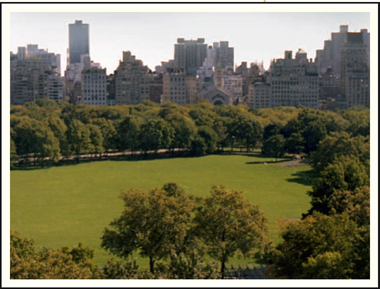
CENTRAL PARK, NEW YORK CITY
77.1: Joan Baron/Photo Researchers, Inc.
Andros had spent long hours researching the Legend of the Masonic Pyramid, and although nobody seemed to agree on whether or not the pyramid was real, they all concurred on its famous promise of vast wisdom and power. The Masonic Pyramid is real, Andros told himself. My inside information is irrefutable.
Fate had placed the pyramid within Andros’s reach, and he knew that ignoring it was like holding a winning lottery ticket and never cashing it in. I am the only non-Mason alive who knows the pyramid is real … as well as the identity of the man who guards it.
Months had passed, and although his body had healed, Andros was no longer the cocky specimen he had been in Greece. He had stopped working out, and he had stopped admiring himself naked in the mirror. He felt as if his body were beginning to show signs of age. His once-perfect skin was a patchwork of scars, and this only depressed him further. He still relied on the painkillers that had nursed him through his recovery, and he felt himself slipping back to the lifestyle that had put him in Soganlik Prison. He didn’t care. The body craves what the body craves.
One night, he was in Greenwich Village buying drugs from a man whose forearm had been tattooed with a long, jagged lightning bolt. Andros asked him about it, and the man told him the tattoo was covering a long scar he had gotten in a car accident. “Seeing the scar every day reminded me of the accident,” the dealer said, “and so I tattooed over it with a symbol of personal power. I took back control.”
That night, high on his new stash of drugs, Andros staggered into a local tattoo parlor and took off his shirt. “I want to hide these scars,” he announced. I want to take back control.
“Hide them?” The tattoo artist eyed his chest. “With what?”
“Tattoos.”
“Yes … I mean tattoos of what?”
Andros shrugged, wanting nothing more than to hide the ugly reminders of his past. “I don’t know. You choose.”
The artist shook his head and handed Andros a pamphlet on the ancient and sacred tradition of tattooing. “Come back when you’re ready.”
Andros discovered that the New York Public Library had in its collection fifty-three books on tattooing, and within a few weeks, he had read them all. Having rediscovered his passion for reading, he began carrying entire backpacks of books back and forth between the library and his apartment, where he voraciously devoured them while overlooking Central Park.
These books on tattoos had opened a door to a strange world Andros had never known existed—a world of symbols, mysticism, mythology, and the magical arts. The more he read, the more he realized how blind he had been. He began keeping notebooks of his ideas, his sketches, and his strange dreams. When he could no longer find what he wanted at the library, he paid rare-book dealers to purchase for him some of the most esoteric texts on earth.
De Praestigiis Daemonum … Lemegeton … Ars Almadel … Grimorium Verum … Ars Notoria … and on and on. He read them all, becoming more and more certain that the world still had many treasures yet to offer him. There are secrets out there that transcend human understanding.
Then he discovered the writings of Aleister Crowley—a visionary mystic from the early 1900s—whom the church had deemed “the most evil man who ever lived.” Great minds are always feared by lesser minds. Andros learned about the power of ritual and incantation. He learned that sacred words, if properly spoken, functioned like keys that opened gateways to other worlds. There is a shadow universe beyond this one … a world from which I can draw power. And although Andros longed to harness that power, he knew there were rules and tasks to be completed beforehand.
Become something holy, Crowley wrote. Make yourself sacred.
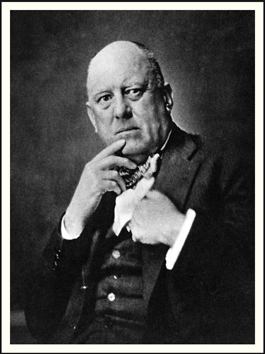
ALEISTER CROWLEY
77.2: Topham/The Image Works
The ancient rite of “sacred making” had once been the law of the land. From the early Hebrews who made burnt offerings at the Temple, to the Mayans who beheaded humans atop the pyramids of Chichén Itzá, to Jesus Christ, who offered his body on the cross, the ancients understood God’s requirement for sacrifice. Sacrifice was the original ritual by which humans drew favor from the gods and made themselves holy.
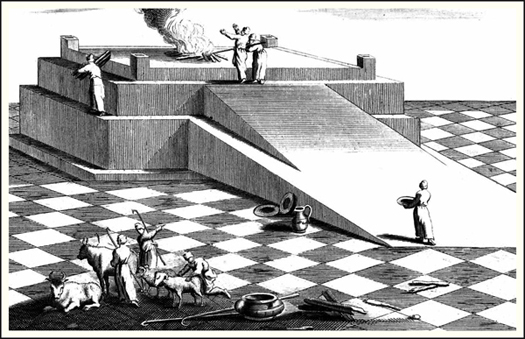
THE ALTAR OF BURNT OFFERINGS OF THE ANCIENT HEBREWS
77.3: Mary Evans Picture Library/The Image Works
Sacra—sacred.
Face—make.
Even though the rite of sacrifice had been abandoned eons ago, its power remained. There had been a handful of modern mystics, including Aleister Crowley, who practiced the Art, perfecting it over time, and transforming themselves gradually into something more. Andros craved to transform himself as they had. And yet he knew he would have to cross a dangerous bridge to do so.
Blood is all that separates the light from the dark.
One night, a crow flew through Andros’s open bathroom window and got trapped in his apartment. Andros watched the bird flutter around for a while and then finally stop, apparently accepting its inability to escape. Andros had learned enough to recognize a sign. I am being urged onward.
Clutching the bird in one hand, he stood at the makeshift altar in his kitchen and raised a sharp knife, speaking aloud the incantation he had memorized.
“Camiach, Eomiahe, Emial, Macbal, Emoii, Zazean … by the most holy names of the angels in the Book of Assamaian, I conjure thee that thou assist me in this operation by the power of the One True God.”
Andros now lowered the knife and carefully pierced the large vein on the right wing of the panicked bird. The crow began to bleed. As he watched the stream of red liquid flowing down into the metal cup he had placed as a receptacle, he felt an unexpected chill in the air. Nonetheless, he continued.
“Almighty Adonai, Arathron, Ashai, Elohim, Elohi, Elion, Asher Eheieh, Shaddai … be my aid, so that this blood may have power and efficacy in all wherein I shall wish, and in all that I shall demand.”
That night, he dreamed of birds … of a giant phoenix rising from a billowing fire. The next morning, he awoke with an energy he had not felt since childhood. He went running in the park, faster and farther than he’d imagined possible. When he could run no longer, he stopped to do push-ups and sit-ups. Countless repetitions. Still he had energy.
That night, again, he dreamed of the phoenix.
Autumn had fallen again on Central Park, and the wildlife were scurrying about searching for food for winter. Andros despised the cold, and yet his carefully hidden traps were now overflowing with live rats and squirrels. He took them home in his backpack, performing rituals of increasing complexity.
Emanual, Massiach, Yod, He, Vaud … please find me worthy.
The blood rituals fueled his vitality. Andros felt younger every day. He continued to read day and night—ancient mystical texts, epic medieval poems, the early philosophers—and the more he learned about the true nature of things, the more he realized that all hope for mankind was lost. They are blind … wandering aimlessly in a world they will never understand.
Andros was still a man, but he sensed he was evolving into something else. Something greater. Something sacred. His massive physique had emerged from dormancy, more powerful now than ever before. He finally understood its true purpose. My body is but a vessel for my most potent treasure … my mind.
Andros knew his true potential had not yet been realized, and he delved deeper. What is my destiny? All the ancient texts spoke of good and evil … and of man’s need to choose between them. I made my choice long ago, he knew, and yet he felt no remorse. What is evil, if not a natural law? Darkness followed light. Chaos followed order. Entropy was fundamental. Everything decayed. The perfectly ordered crystal eventually turned into random particles of dust.
There are those who create … and those who destroy.
It was not until Andros read John Milton’s Paradise Lost that he saw his destiny materialize before him. He read of the great fallen angel … the warrior demon who fought against the light … the valiant one … the angel called Moloch.
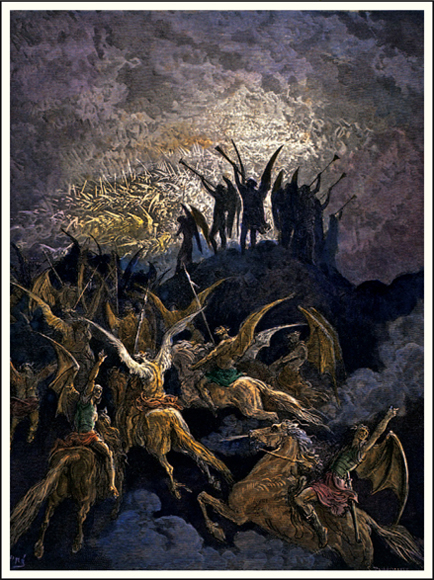
ILLUSTRATION FROM JOHN MILTON’S PARADISE LOST
77.4: Charles Walker/Topham/The Image Works
Moloch walked the earth as a god. The angel’s name, Andros later learned, when translated to the ancient tongue, became Mal’akh.
And so shall I.
Like all great transformations, this one had to begin with a sacrifice … but not of rats, nor birds. No, this transformation required a true sacrifice.
There is but one worthy sacrifice.
Suddenly he had a sense of clarity unlike anything he had ever experienced in his life. His entire destiny had materialized. For three straight days he sketched on an enormous sheet of paper. When he was done, he had created a blueprint of what he would become.
He hung the life-size sketch on his wall and gazed into it as if into a mirror.
I am a masterpiece.
The next day, he took his drawing to the tattoo parlor.
He was ready.
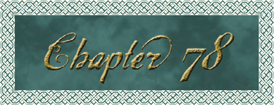
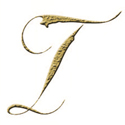 HE GEORGE WASHINGTON Masonic Memorial stands atop Shuter’s Hill in Alexandria, Virginia. Built in three distinct tiers of increasing architectural complexity from bottom to top—Doric, Ionic, and Corinthian—the structure stands as a physical symbol of man’s intellectual ascent. Inspired by the ancient Pharos lighthouse of Alexandria, Egypt, this soaring tower is capped by an Egyptian pyramid with a flamelike finial.
HE GEORGE WASHINGTON Masonic Memorial stands atop Shuter’s Hill in Alexandria, Virginia. Built in three distinct tiers of increasing architectural complexity from bottom to top—Doric, Ionic, and Corinthian—the structure stands as a physical symbol of man’s intellectual ascent. Inspired by the ancient Pharos lighthouse of Alexandria, Egypt, this soaring tower is capped by an Egyptian pyramid with a flamelike finial.
Inside the spectacular marble foyer sits a massive bronze of George Washington in full Masonic regalia, along with the actual trowel he used to lay the cornerstone of the Capitol Building. Above the foyer, nine different levels bear names like the Grotto, the Crypt Room, and the Knights Templar Chapel. Among the treasures housed within these spaces are over twenty thousand volumes of Masonic writings, a dazzling replica of the Ark of the Covenant, and even a scale model of the throne room in King Solomon’s Temple.
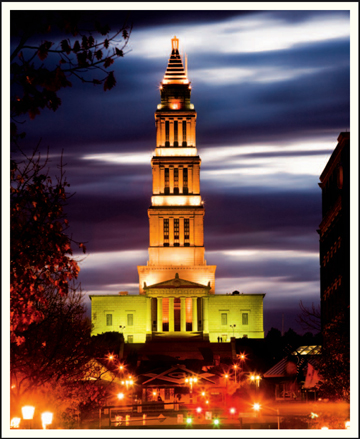
GEORGE WASHINGTON MASONIC MEMORIAL, ALEXANDRIA, VIRGINIA
78.1: Philip Scalia/Alamy
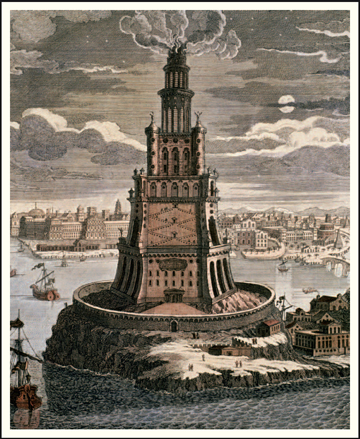
ANCIENT PHAROS LIGHTHOUSE OF ALEXANDRIA, EGYPT
78.2: O’Shea Gallery, London, UK/The Bridgeman Art Library
CIA agent Simkins checked his watch as the modified UH-60 chopper skimmed in low over the Potomac. Six minutes until their train arrives. He exhaled and gazed out the window at the shining Masonic Memorial on the horizon. He had to admit, the brilliantly shining tower was as impressive as any building on the National Mall. Simkins had never been inside the memorial, and tonight would be no different. If all went according to plan, Robert Langdon and Katherine Solomon would never make it out of the subway station.
“Over there!” Simkins shouted to the pilot, pointing down at the King Street subway station across from the memorial. The pilot banked the helicopter and set it down on a grassy area at the foot of Shuter’s Hill.
Pedestrians looked up in surprise as Simkins and his team piled out, dashed across the street, and ran down into King Street Station. In the stairwell, several departing passengers leaped out of the way, plastering themselves to the walls as the phalanx of armed men in black thundered past them.
The King Street Station was larger than Simkins had anticipated, apparently serving several different lines—Blue, Yellow, and Amtrak. He raced over to the Metro map on the wall, found Freedom Plaza and the direct line to this location.
“Blue Line, southbound platform!” Simkins shouted. “Get down there and clear everyone out!” His team dashed off.
Simkins rushed over to the ticket booth, flashed his identification, and shouted to the woman inside. “The next train from Metro Center—what time is it due?!”
The woman inside looked frightened. “I’m not sure. Blue Line arrives every eleven minutes. There’s no set schedule.”
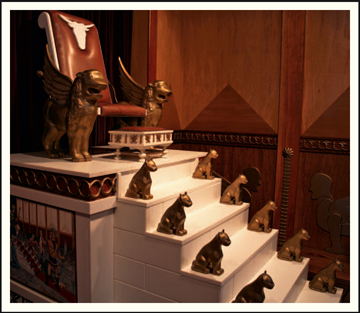
A REPLICA OF KING SOLOMON’S THRONE AT THE GEORGE WASHINGTON MASONIC MEMORIAL
78.3: William S. Kuta/Alamy
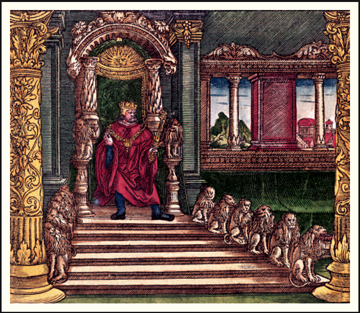
KING SOLOMON ON HIS THRONE, FROM THE LUTHER BIBLE
78.4: Bible Society, London, UK/The Bridgeman Art Library
“How long since the last train?”
“Five … six minutes, maybe? No more than that.”
Simkins did the math. Perfect. The next train had to be Langdon’s.
Inside a fast-moving subway car, Katherine Solomon shifted uncomfortably on the hard plastic seat. The bright fluorescent lights overhead hurt her eyes, and she fought the impulse to let her eyelids close, even for a second. Langdon sat beside her in the empty car, staring blankly down at the leather bag at his feet. His eyelids looked heavy, too, as if the rhythmic sway of the moving car were lulling him into a trance.
Katherine pictured the strange contents of Langdon’s bag. Why does the CIA want this pyramid? Bellamy had said that Sato might be pursuing the pyramid because she knew its true potential. But even if this pyramid somehow did reveal the hiding place of ancient secrets, Katherine found it hard to believe that its promise of primeval mystical wisdom would interest the CIA.
Then again, she reminded herself, the CIA had been caught several times running parapsychological or psi programs that bordered on ancient magic and mysticism. In 1995, the “Stargate/Scannate” scandal had exposed a classified CIA technology called remote viewing—a kind of telepathic mind travel that enabled a “viewer” to transport his mind’s eye to any location on earth and spy there, without being physically present. Of course, the technology was nothing new. Mystics called it astral projection, and yogis called it out-of-body experience. Unfortunately, horrified American taxpayers called it absurd, and the program had been scuttled. At least publicly.
Ironically, Katherine saw remarkable connections between the CIA’s failed programs and her own breakthroughs in Noetic Science.
Katherine felt eager to call the police and find out if they had discovered anything in Kalorama Heights, but she and Langdon were phoneless now, and making contact with the authorities would probably be a mistake anyway; there was no telling how far Sato’s reach extended.
Patience, Katherine. Within minutes, they would be in a safe hiding place, guests of a man who had assured them he could provide answers. Katherine hoped his answers, whatever they might be, would help her save her brother.
“Robert?” she whispered, glancing up at the subway map. “Next stop is ours.”
Langdon emerged slowly from his daydream. “Right, thanks.” As the train rumbled toward the station, he collected his daybag and gave Katherine an uncertain glance. “Let’s just hope our arrival is uneventful.”
By the time Turner Simkins dashed down to join his men, the subway platform had been entirely cleared, and his team was fanning out, taking up positions behind the support pillars that ran the length of the platform. A distant rumble echoed in the tunnel at the other end of the platform, and as it grew louder, Simkins felt the push of stale warm air billowing around him.
No escape, Mr. Langdon.
Simkins turned to the two agents he had told to join him on the platform. “Identification and weapons out. These trains are automated, but they all have a conductor who opens the doors. Find him.”
The train’s headlamp now appeared down the tunnel, and the sound of squealing brakes pierced the air. As the train burst into the station and began slowing down, Simkins and his two agents leaned out over the track, waving CIA identification badges and straining to make eye contact with the conductor before he could open the doors.
The train was closing fast. In the third car, Simkins finally saw the startled face of the conductor, who was apparently trying to figure out why three men in black were all waving identification badges at him. Simkins jogged toward the train, which was now nearing a full stop.
“CIA!” Simkins shouted, holding up his ID. “Do NOT open the doors!” As the train glided slowly past him, he went toward the conductor’s car, shouting in at him. “Do not open your doors! Do you understand?! Do NOT open your doors!”
The train came to a full stop, its wide-eyed conductor nodding repeatedly. “What’s wrong?!” the man demanded through his side window.
“Don’t let this train move,” Simkins said. “And don’t open the doors.”
“Okay.”
“Can you let us into the first car?”
The conductor nodded. Looking fearful, he stepped out of the train, closing the door behind him. He escorted Simkins and his men to the first car, where he manually opened the door.
“Lock it behind us,” Simkins said, pulling his weapon. Simkins and his men stepped quickly into the stark light of the first car. The conductor locked the door behind them.
The first car contained only four passengers—three teenage boys and an old woman—all of whom looked understandably startled to see three armed men entering. Simkins held up his ID. “Everything’s fine. Just stay seated.”
Simkins and his men now began their sweep, pushing toward the back of the sealed train one car at a time—“squeezing toothpaste,” as it was called during his training at the Farm. Very few passengers were on this train, and halfway to the back, the agents still had seen nobody even remotely resembling the description of Robert Langdon and Katherine Solomon. Nonetheless, Simkins remained confident. There was absolutely no place to hide on a subway car. No bathrooms, no storage, and no alternative exits. Even if the targets had seen them board the train and fled to the back, there was no way out. Prying open a door was almost impossible, and Simkins had men watching the platform and both sides of the train anyway.
Patience.
By the time Simkins reached the second-to-last car, however, he was feeling edgy. This penultimate car had only one passenger—a Chinese man. Simkins and his agents moved through, scanning for any place to hide. There was none.
“Last car,” Simkins said, raising his weapon as the threesome moved toward the threshold of the train’s final section. As they stepped into the last car, all three of them immediately stopped and stared.
What the … ?! Simkins raced to the rear of the deserted cabin, searching behind all the seats. He spun back to his men, blood boiling. “Where the hell did they go?!”
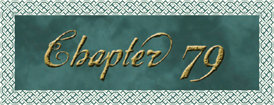
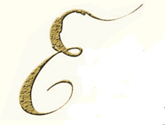 IGHT MILES due north of Alexandria, Virginia, Robert Langdon and Katherine Solomon strode calmly across a wide expanse of frost-covered lawn.
IGHT MILES due north of Alexandria, Virginia, Robert Langdon and Katherine Solomon strode calmly across a wide expanse of frost-covered lawn.
“You should be an actress,” Langdon said, still impressed by Katherine’s quick thinking and improvisational skills.
“You weren’t half bad yourself.” She gave him a smile.
At first, Langdon had been mystified by Katherine’s abrupt antics in the taxi. Without warning, she had suddenly demanded they go to Freedom Plaza based on some revelation about a Jewish star and the Great Seal of the United States. She drew a well-known conspiracy-theory image on a dollar bill and then insisted Langdon look closely where she was pointing.
Finally, Langdon realized that Katherine was pointing not at the dollar bill but at a tiny indicator bulb on the back of the driver’s seat. The bulb was so covered with grime that he had not even noticed it. As he leaned forward, however, he could see that the bulb was illuminated, emitting a dull red glow. He could also see the two faint words directly beneath the lit bulb.
—INTERCOM ON—
Startled, Langdon glanced back at Katherine, whose frantic eyes were urging him to look into the front seat. He obeyed, stealing a discreet glance through the divider. The cabby’s cell phone was on the dash, wide open, illuminated, facing the intercom speaker. An instant later, Langdon understood Katherine’s actions.
They know we’re in this cab … they’ve been listening to us.
Langdon had no idea how much time he and Katherine had until their taxi was stopped and surrounded, but he knew they had to act fast. Instantly, he’d begun playing along, realizing that Katherine’s desire to go to Freedom Plaza had nothing to do with the pyramid but rather with its being a large subway station—Metro Center—from which they could take the Red, Blue, or Orange lines in any of six different directions.
They jumped out of the taxi at Freedom Plaza, and Langdon took over, doing some improvising of his own, leaving a trail to the Masonic Memorial in Alexandria before he and Katherine ran down into the subway station, dashing past the Blue Line platforms and continuing on to the Red Line, where they caught a train in the opposite direction.
Traveling six stops northbound to Tenleytown, they emerged all alone into a quiet, upscale neighborhood. Their destination, the tallest structure for miles, was immediately visible on the horizon, just off Massachusetts Avenue on a vast expanse of manicured lawn.
Now “off the grid,” as Katherine called it, the two of them walked across the damp grass. On their right was a medieval-style garden, famous for its ancient rosebushes and Shadow House gazebo. They moved past the garden, directly toward the magnificent building to which they had been summoned. A refuge containing ten stones from Mount Sinai, one from heaven itself, and one with the visage of Luke’s dark father.
“I’ve never been here at night,” Katherine said, gazing up at the brightly lit towers. “It’s spectacular.”
Langdon agreed, having forgotten how impressive this place truly was. This neo-Gothic masterpiece stood at the north end of Embassy Row. He hadn’t been here for years, not since writing a piece about it for a kids’ magazine in hopes of generating some excitement among young Americans to come see this amazing landmark. His article—“Moses, Moon Rocks, and Star Wars”—had been part of the tourist literature for years.
Washington National Cathedral, Langdon thought, feeling an unexpected anticipation at being back after all these years. Where better to ask about One True God?
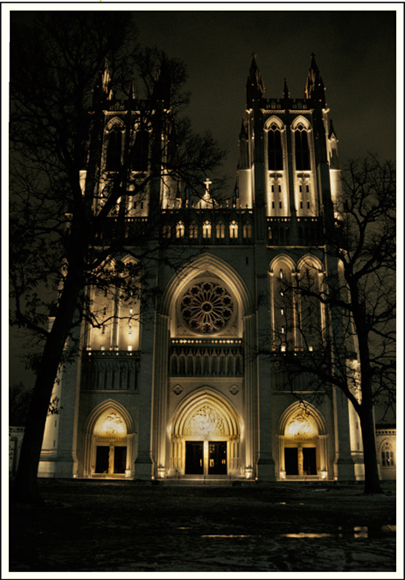
WASHINGTON NATIONAL CATHEDRAL
79.1: Nadia M.B. Hughes/National Geographic/Getty Images
“This cathedral really has ten stones from Mount Sinai?” Katherine asked, gazing up at the twin bell towers.
Langdon nodded. “Near the main altar. They symbolize the Ten Commandments given to Moses on Mount Sinai.”
“And there’s a lunar rock?”
A rock from heaven itself. “Yes. One of the stained-glass windows is called the Space Window and has a fragment of moon rock embedded in it.”
“Okay, but you can’t be serious about the last thing.” Katherine glanced over, her pretty eyes flashing skepticism. “A statue of … Darth Vader?”
Langdon chuckled. “Luke Skywalker’s dark father? Absolutely. Vader is one of the National Cathedral’s most popular grotesques.” He pointed high into the northwest tower.
“Tough to see him at night, but he’s there.”
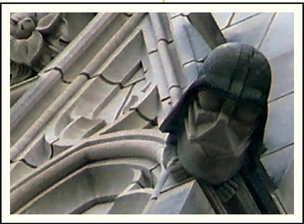
DARTH VADER GROTESQUE, WASHINGTON NATIONAL CATHEDRAL
79.2: public domain image by Cyraxote
“What in the world is Darth Vader doing on Washington National Cathedral?”
“A contest for kids to design a grotesque that depicted the face of evil. Darth won.”
They reached the grand staircase to the main entrance, which was set back in an eighty-foot archway beneath a breathtaking rose window. As they began climbing, Langdon’s mind shifted to the mysterious stranger who had called him. No names, please … Tell me, have you successfully protected the map that was entrusted to you? Langdon’s shoulder ached from carrying the heavy stone pyramid, and he was looking forward to setting it down. Sanctuary and answers.
As they approached the top of the stairs, they were met with an imposing pair of wooden doors. “Do we just knock?” Katherine asked.
Langdon had been wondering the same thing, except that now one of the doors was creaking open.
“Who’s there?” a frail voice said. The face of a withered old man appeared in the doorway. He wore priest’s robes and a blank stare. His eyes were opaque and white, clouded with cataracts.
“My name is Robert Langdon,” he replied. “Katherine Solomon and I are seeking sanctuary.”
The blind man exhaled in relief. “Thank God. I’ve been expecting you.”
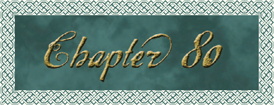
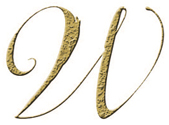 ARREN BELLAMY felt a sudden ray of hope.
ARREN BELLAMY felt a sudden ray of hope.
Inside the Jungle, Director Sato had just received a phone call from a field agent and had immediately flown into a tirade. “Well, you damn well better find them!” she shouted into her phone. “We’re running out of time!” She had hung up and was now stalking back and forth in front of Bellamy as if trying to decide what to do next.
Finally, she stopped directly in front of him and turned. “Mr. Bellamy, I’m going to ask you this once, and only once.” She stared deep into his eyes. “Yes or no—do you have any idea where Robert Langdon might have gone?”
Bellamy had more than a good idea, but he shook his head. “No.”
Sato’s piercing gaze had never left his eyes. “Unfortunately, part of my job is to know when people are lying.”
Bellamy averted his eyes. “Sorry, I can’t help you.”
“Architect Bellamy,” Sato said, “tonight just after seven P.M., you were having dinner in a restaurant outside the city when you received a phone call from a man who told you he had kidnapped Peter Solomon.”
Bellamy felt an instant chill and returned his eyes to hers. How could you possibly know that?!
“The man,” Sato continued, “told you that he had sent Robert Langdon to the Capitol Building and given Langdon a task to complete … a task that required your help. He warned that if Langdon failed in this task, your friend Peter Solomon would die. Panicked, you called all of Peter’s numbers but failed to reach him. Understandably, you then raced to the Capitol.”
Bellamy could not imagine how Sato knew about this phone call.
“As you fled the Capitol,” Sato said behind the smoldering tip of her cigarette, “you sent a text message to Solomon’s kidnapper, assuring him that you and Langdon had been successful in obtaining the Masonic Pyramid.”
Where is she getting her information? Bellamy wondered. Not even Langdon knows I sent that text message. Immediately after entering the tunnel to the Library of Congress, Bellamy had stepped into the electrical room to plug in the construction lighting. In the privacy of that moment, he had decided to send a quick text message to Solomon’s captor, telling him about Sato’s involvement, but reassuring him that he—Bellamy—and Langdon had obtained the Masonic Pyramid and would indeed cooperate with his demands. It was a lie, of course, but Bellamy hoped the reassurance might buy time, both for Peter Solomon and also to hide the pyramid. “Who told you I sent a text?” Bellamy demanded.
Sato tossed Bellamy’s cell phone on the bench next to him. “Hardly rocket science.”
Bellamy now remembered his phone and keys had been taken from him by the agents who captured him.
“As for the rest of my inside information,” Sato said, “the Patriot Act gives me the right to place a wiretap on the phone of anyone I consider a viable threat to national security. I consider Peter Solomon to be such a threat, and last night I took action.”
Bellamy could barely get his mind around what she was telling him. “You’re tapping Peter Solomon’s phone?”
“Yes. This is how I knew the kidnapper called you at the restaurant. You called Peter’s cell phone and left an anxious message explaining what had just happened.”
Bellamy realized she was right.
“We had also intercepted a call from Robert Langdon, who was in the Capitol Building, deeply confused to learn he had been tricked into coming there. I went to the Capitol at once, arriving before you because I was closer. As for how I knew to check the X-ray of Langdon’s bag … in light of my realization that Langdon was involved in all of this, I had my staff reexamine a seemingly innocuous early-morning call between Langdon and Peter Solomon’s cell phone, in which the kidnapper, posing as Solomon’s assistant, persuaded Langdon to come for a lecture and also to bring a small package that Peter had entrusted to him. When Langdon was not forthcoming with me about the package he was carrying, I requested the X-ray of his bag.”
Bellamy could barely think. Admittedly, everything Sato was saying was feasible, and yet something was not adding up. “But … how could you possibly think Peter Solomon is a threat to national security?”
“Believe me, Peter Solomon is a serious national-security threat,” she snapped. “And frankly, Mr. Bellamy, so are you.”
Bellamy sat bolt upright, the handcuffs chafing against his wrists. “I beg your pardon?!”
She forced a smile. “You Masons play a risky game. You keep a very, very dangerous secret.”
Is she talking about the Ancient Mysteries?
“Thankfully, you’ve always done a good job of keeping your secrets hidden. Unfortunately, recently you’ve been careless, and tonight, your most dangerous secret is about to be unveiled to the world. And unless we can stop that from happening, I assure you the results will be catastrophic.”
Bellamy stared in bewilderment.
“If you had not attacked me,” Sato said, “you would have realized that you and I are on the same team.”
The same team. The words sparked in Bellamy an idea that seemed almost impossible to fathom. Is Sato a member of Eastern Star? The Order of the Eastern Star—often considered a sister organization to the Masons—embraced a similar mystical philosophy of benevolence, secret wisdom, and spiritual open-mindedness. The same team? I’m in handcuffs! She’s tapping Peter’s phone!
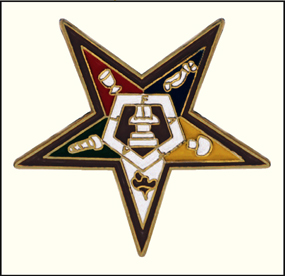
LOGO OF THE ORDER OF THE EASTERN STAR
80.1: Courtesy of National Sportswear & Emblem, Ltd.
“You will help me stop this man,” Sato said. “He has the potential to bring about a cataclysm from which this country might not recover.” Her face was like stone.
“Then why aren’t you tracking him?”
Sato looked incredulous. “Do you think I’m not trying? My trace on Solomon’s cell phone went dead before we got a location. His other number appears to be a disposable phone—which is almost impossible to track. The private-jet company told us that Langdon’s flight was booked by Solomon’s assistant, on Solomon’s cell phone, with Solomon’s Marquis Jet card. There is no trail. Not that it matters anyway. Even if we find out exactly where he is, I can’t possibly risk moving in and trying to grab him.”
“Why not?!”
“I’d prefer not to share that, as the information is classified,” Sato said, patience clearly waning. “I am asking you to trust me on this.”
“Well, I don’t!”
Sato’s eyes were like ice. She turned suddenly and shouted across the Jungle. “Agent Hartmann! The briefcase, please.”
Bellamy heard the hiss of the electronic door, and an agent strode into the Jungle. He was carrying a sleek titanium briefcase, which he set on the ground beside the OS director.
“Leave us,” Sato said.
As the agent departed, the door hissed again, and then everything fell silent.
Sato picked up the metal case, laid it across her lap, and popped the clasps. Then she raised her eyes slowly to Bellamy. “I did not want to do this, but our time is running out, and you’ve left me no choice.”
Bellamy eyed the strange briefcase and felt a swell of fear. Is she going to torture me? He strained at his cuffs again. “What’s in that case?!”
Sato smiled grimly. “Something that will persuade you to see things my way. I guarantee it.”
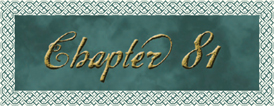
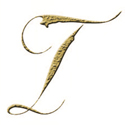 HE SUBTERRANEAN space in which Mal’akh performed the Art was ingeniously hidden. His home’s basement, to those who entered, appeared quite normal—a typical cellar with boiler, fuse box, woodpile, and a hodgepodge of storage. This visible cellar, however, was only a portion of Mal’akh’s underground space. A sizable area had been walled off for his clandestine practices.
HE SUBTERRANEAN space in which Mal’akh performed the Art was ingeniously hidden. His home’s basement, to those who entered, appeared quite normal—a typical cellar with boiler, fuse box, woodpile, and a hodgepodge of storage. This visible cellar, however, was only a portion of Mal’akh’s underground space. A sizable area had been walled off for his clandestine practices.
Mal’akh’s private work space was a suite of small rooms, each with a specialized purpose. The area’s sole entrance was a steep ramp secretly accessible through his living room, making the area’s discovery virtually impossible.
Tonight, as Mal’akh descended the ramp, the tattooed sigils and signs on his flesh seemed to come alive in the cerulean glow of his basement’s specialized lighting. Moving into the bluish haze, he walked past several closed doors and headed directly for the largest room at the end of the corridor.
The “sanctum sanctorum,” as Mal’akh liked to call it, was a perfect twelve-foot square. Twelve are the signs of the zodiac. Twelve are the hours of the day. Twelve are the gates of heaven. In the center of the chamber was a stone table, a seven-by-seven square. Seven are the seals of Revelation. Seven are the steps of the Temple. Centered over the table hung a carefully calibrated light source that cycled through a spectrum of preordained colors, completing its cycle every six hours in accordance with the sacred Table of Planetary Hours. The hour of Yanor is blue. The hour of Nasnia is red. The hour of Salam is white.
Now was the hour of Caerra, meaning the light in the room had modulated to a soft purplish hue. Wearing only a silken loincloth wrapped around his buttocks and neutered sex organ, Mal’akh began his preparations.
He carefully combined the suffumigation chemicals that he would later ignite to sanctify the air. Then he folded the virgin silk robe that he would eventually don in place of his loincloth. And finally, he purified a flask of water for the anointing of his offering. When he was done, he placed all of these prepared ingredients on a side table.
Next he went to a shelf and retrieved a small ivory box, which he carried to the side table and placed with the other items. Although he was not yet ready to use it, he could not resist opening the lid and admiring this treasure.
The knife.
Inside the ivory box, nestled in a cradle of black velvet, shone the sacrificial knife that Mal’akh had been saving for tonight. He had purchased it for $1.6 million on the Middle Eastern antiquities black market last year.
The most famous knife in history.
Unimaginably old and believed lost, this precious blade was made of iron, attached to a bone handle. Over the ages, it had been in the possession of countless powerful individuals. In recent decades, however, it had disappeared, languishing in a secret private collection. Mal’akh had gone to enormous lengths to obtain it. The knife, he suspected, had not drawn blood for decades … possibly centuries. Tonight, this blade would again taste the power of the sacrifice for which it was honed.
Mal’akh gently lifted the knife from its cushioned compartment and reverently polished the blade with a silk cloth soaked in purified water. His skills had progressed greatly since his first rudimentary experiments in New York. The dark Art that Mal’akh practiced had been known by many names in many languages, but by any name, it was a precise science. This primeval technology had once held the key to the portals of power, but it had been banished long ago, relegated to the shadows of occultism and magic. Those few who still practiced this Art were considered madmen, but Mal’akh knew better. This is not work for those with dull faculties. The ancient dark Art, like modern science, was a discipline involving precise formulas, specific ingredients, and meticulous timing.
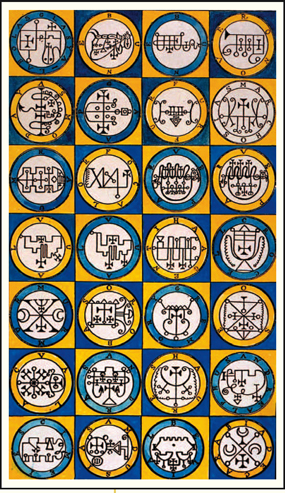
SIGILS OF DEMONS, FROM THE SOLOMONIC TRADITION
81.1: C.Walker/Topham/The Image Works
This Art was not the impotent black magic of today, often practiced halfheartedly by curious souls. This Art, like nuclear physics, had the potential to unleash enormous power. The warnings were dire: The unskilled practitioner runs the risk of being struck by a reflux current and destroyed.
Mal’akh finished admiring the sacred blade and turned his attention to a lone sheet of thick vellum lying on the table before him. He had made this vellum himself from the skin of a baby lamb. As was the protocol, the lamb was pure, having not yet reached sexual maturity. Beside the vellum was a quill pen he had made from the feather of a crow, a silver saucer, and three glimmering candles arranged around a solid-brass bowl. The bowl contained one inch of thick crimson liquid.
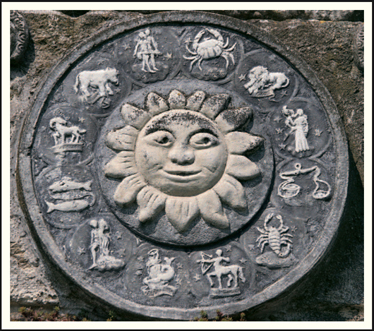
SIGNS OF THE ZODIAC
81.2: © iStockphoto.com/w-ings
The liquid was Peter Solomon’s blood.
Blood is the tincture of eternity.
Mal’akh picked up the quill pen, placed his left hand on the vellum, and dipping the quill tip in the blood, he carefully traced the outline of his open palm. When he was done, he added the five symbols of the Ancient Mysteries, one on each fingertip of the drawing.
The crown … to represent the king I shall become.
The star … to represent the heavens which have ordained my destiny.
The sun … to represent the illumination of my soul.
The lantern … to represent the feeble light of human understanding.
And the key … to represent the missing piece, that which tonight I shall at last possess.
Mal’akh completed his blood tracing and held up the vellum, admiring his work in the light of the three candles. He waited until the blood was dry and then folded the thick vellum three times. While chanting an ethereal ancient incantation, Mal’akh touched the vellum to the third candle, and it burst into flames. He set the flaming vellum on the silver saucer and let it burn. As it did, the carbon in the animal skin dissolved to a powdery black char. When the flame went out, Mal’akh carefully tapped the ashes into the brass bowl of blood. Then he stirred the mixture with the crow’s feather.
The liquid turned a deeper crimson, nearly black.
Holding the bowl in both palms, Mal’akh raised it over his head and gave thanks, intoning the blood eukharistos of the ancients. Then he carefully poured the blackened mixture into a glass vial and corked it. This would be the ink with which Mal’akh would inscribe the untattooed flesh atop his head and complete his masterpiece.
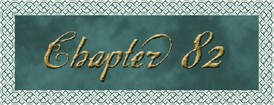
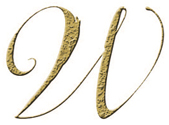 ASHINGTON NATIONAL Cathedral is the sixth-largest cathedral in the world and soars higher than a thirty-story skyscraper. Embellished with over two hundred stained-glass windows, a fifty-three-bell carillon, and a 10,647-pipe organ, this Gothic masterpiece can accommodate more than three thousand worshippers.
ASHINGTON NATIONAL Cathedral is the sixth-largest cathedral in the world and soars higher than a thirty-story skyscraper. Embellished with over two hundred stained-glass windows, a fifty-three-bell carillon, and a 10,647-pipe organ, this Gothic masterpiece can accommodate more than three thousand worshippers.
Tonight, however, the great cathedral was deserted.
Reverend Colin Galloway—dean of the cathedral—looked like he had been alive forever. Stooped and withered, he wore a simple black cassock and shuffled blindly ahead without a word. Langdon and Katherine followed in silence through the darkness of the four-hundred-foot-long nave’s central aisle, which was curved ever so slightly to the left to create a softening optical illusion. When they reached the Great Crossing, the dean guided them through the rood screen—the symbolic divider between the public area and the sanctuary beyond.
The scent of frankincense hung in the air of the chancel. This sacred space was dark, illuminated only by indirect reflections in the foliated vaults overhead. Flags of the fifty states hung above the quire, which was ornately appointed with several carved reredos depicting biblical events. Dean Galloway continued on, apparently knowing this walk by heart. For a moment, Langdon thought they were headed straight for the high altar, where the ten stones from Mount Sinai were embedded, but the old dean finally turned left and groped his way through a discreetly hidden door that led into an administrative annex.
They moved down a short hallway to an office door bearing a brass nameplate:

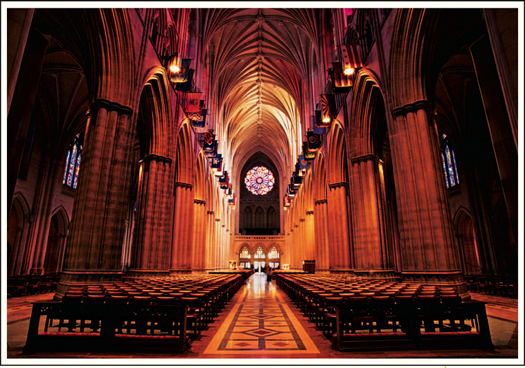
CENTER AISLE, WASHINGTON NATIONAL CATHEDRAL
82.1: Corbis Premium RF/Alamy
Galloway opened the door and turned on the lights, apparently accustomed to remembering this courtesy for his guests. He ushered them in and closed the door.
The dean’s office was small but elegant, with high bookshelves, a desk, a carved armoire, and a private bathroom. On the walls hung sixteenth-century tapestries and several religious paintings. The old dean motioned to the two leather chairs directly opposite his desk. Langdon sat with Katherine and felt grateful finally to set his heavy shoulder bag on the floor at his feet.
Sanctuary and answers, Langdon thought, settling into the comfortable chair.
The aged man shuffled around behind his desk and eased himself down into his high-backed chair. Then, with a weary sigh, he raised his head, staring blankly out at them through clouded eyes. When he spoke, his voice was unexpectedly clear and strong.
“I realize we have never met,” the old man said, “and yet I feel I know you both.” He took out a handkerchief and dabbed his mouth. “Professor Langdon, I am familiar with your writings, including the clever piece you did on the symbolism of this cathedral. And, Ms. Solomon, your brother, Peter, and I have been Masonic brothers for many years now.”
“Peter is in terrible trouble,” Katherine said.
“So I have been told.” The old man sighed. “And I will do everything in my power to help you.”
Langdon saw no Masonic ring on the dean’s finger, and yet he knew many Masons, especially those within the clergy, chose not to advertise their affiliation.
As they began to talk, it became clear that Dean Galloway already knew some of the night’s events from Warren Bellamy’s phone message. As Langdon and Katherine filled him in on the rest, the dean looked more and more troubled.
“And this man who has taken our beloved Peter,” the dean said, “he is insisting you decipher the pyramid in exchange for Peter’s life?”
“Yes,” Langdon said. “He thinks it’s a map that will lead him to the hiding place of the Ancient Mysteries.”
The dean turned his eerie, opaque eyes toward Langdon. “My ears tell me you do not believe in such things.”
Langdon did not want to waste time going down this road. “It doesn’t matter what I believe. We need to help Peter. Unfortunately, when we deciphered the pyramid, it pointed nowhere.”
The old man sat straighter. “You’ve deciphered the pyramid?”
Katherine interceded now, quickly explaining that despite Bellamy’s warnings and her brother’s request that Langdon not unwrap the package, she had done so, feeling her first priority was to help her brother however she could. She told the dean about the golden capstone, Albrecht Dürer’s magic square, and how it decrypted the sixteen-letter Masonic cipher into the phrase Jeova Sanctus Unus.
“That’s all it says?” the dean asked. “One True God?”
“Yes, sir,” Langdon replied. “Apparently the pyramid is more of a metaphorical map than a geographic one.”
The dean held out his hands. “Let me feel it.”
Langdon unzipped his bag and pulled out the pyramid, which he carefully hoisted up on the desk, setting it directly in front of the reverend.
Langdon and Katherine watched as the old man’s frail hands examined every inch of the stone—the engraved side, the smooth base, and the truncated top. When he was finished, he held out his hands again. “And the capstone?”
Langdon retrieved the small stone box, set it on the desk, and opened the lid. Then he removed the capstone and placed it into the old man’s waiting hands. The dean performed a similar examination, feeling every inch, pausing on the capstone’s engraving, apparently having some trouble reading the small, elegantly inscribed text.
“ ‘The secret hides within The Order,’ ” Langdon offered. “And the words the and order are capitalized.”
The old man’s face was expressionless as he positioned the capstone on top of the pyramid and aligned it by sense of touch. He seemed to pause a moment, as if in prayer, and reverently ran his palms over the complete pyramid several times. Then he reached out and located the cube-shaped box, taking it in his hands, feeling it carefully, his fingers probing inside and out.
When he was done, he set down the box and leaned back in his chair. “So tell me,” he demanded, his voice suddenly stern. “Why have you come to me?”
The question took Langdon off guard. “We came, sir, because you told us to. And Mr. Bellamy said we should trust you.”
“And yet you did not trust him?”
“I’m sorry?”
The dean’s white eyes stared directly through Langdon. “The package containing the capstone was sealed. Mr. Bellamy told you not to open it, and yet you did. In addition, Peter Solomon himself told you not to open it. And yet you did.”
“Sir,” Katherine intervened, “we were trying to help my brother. The man who has him demanded we decipher—”
“I can appreciate that,” the dean declared, “and yet what have you achieved by opening the package? Nothing. Peter’s captor is looking for a location, and he will not be satisfied with the answer of Jeova Sanctus Unus.“
“I agree,” Langdon said, “but unfortunately that’s all the pyramid says. As I mentioned, the map seems to be more figurative than—”
“You’re mistaken, Professor,” the dean said. “The Masonic Pyramid is a real map. It points to a real location. You do not understand that, because you have not yet deciphered the pyramid fully. Not even close.”
Langdon and Katherine exchanged startled looks.
The dean laid his hands back on the pyramid, almost caressing it. “This map, like the Ancient Mysteries themselves, has many layers of meaning. Its true secret remains veiled from you.”
“Dean Galloway,” Langdon said, “we’ve been over every inch of the pyramid and capstone, and there’s nothing else to see.”
“Not in its current state, no. But objects change.”
“Sir?”
“Professor, as you know, the promise of this pyramid is one of miraculous transformative power. Legend holds that this pyramid can change its shape … alter its physical form to reveal its secrets. Like the famed stone that released Excalibur into the hands of King Arthur, the Masonic Pyramid can transform itself if it so chooses … and reveal its secret to the worthy.”
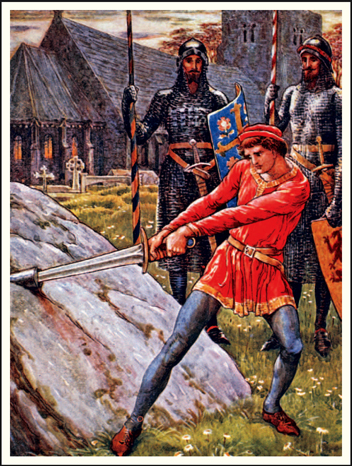
ARTHUR WITHDRAWING EXCALIBUR FROM THE STONE, WALTER CRANE
82.2: The Stapleton Collection/Art Resource, NY
Langdon now sensed that the old man’s advanced years had perhaps robbed him of his faculties. “I’m sorry, sir. Are you saying this pyramid can undergo a literal physical transformation?”
“Professor, if I were to reach out with my hand and transform this pyramid right before your eyes, would you believe what you had witnessed?”
Langdon had no idea how to respond. “I suppose I would have no choice.”
“Very well, then. In a moment, I shall do exactly that.” He dabbed his mouth again. “Let me remind you that there was an era when even the brightest minds perceived the earth as flat. For if the earth were round, then surely the oceans would spill off. Imagine how they would have mocked you if you proclaimed, ‘Not only is the world a sphere, but there is an invisible, mystical force that holds everything to its surface’!”
“There’s a difference,” Langdon said, “between the existence of gravity … and the ability to transform objects with a touch of your hand.”
“Is there? Is it not possible that we are still living in the Dark Ages, still mocking the suggestion of ‘mystical’ forces that we cannot see or comprehend? History, if it has taught us anything at all, has taught us that the strange ideas we deride today will one day be our celebrated truths. I claim I can transform this pyramid with a touch of my finger, and you question my sanity. I would expect more from an historian. History is replete with great minds who have all proclaimed the same thing … great minds who have all insisted that man possesses mystical abilities of which he is unaware.”
Langdon knew the dean was correct. The famous Hermetic aphorism—Know ye not that ye are gods?—was one of the pillars of the Ancient Mysteries. As above, so below … Man created in God’s image … Apotheosis. This persistent message of man’s own divinity—of his hidden potential—was the recurring theme in the ancient texts of countless traditions. Even the Holy Bible cried out in Psalms 82:6: Ye are gods!
“Professor,” the old man said, “I realize that you, like many educated people, live trapped between worlds—one foot in the spiritual, one foot in the physical. Your heart yearns to believe … but your intellect refuses to permit it. As an academic, you would be wise to learn from the great minds of history.” He paused and cleared his throat. “If I’m remembering correctly, one of the greatest minds ever to live proclaimed: ‘That which is impenetrable to us really exists. Behind the secrets of nature remains something subtle, intangible, and inexplicable. Veneration for this force beyond anything that we can comprehend is my religion.’ ”
“Who said that?” Langdon said. “Gandhi?”
“No,” Katherine interjected. “Albert Einstein.”
Katherine Solomon had read every word Einstein had ever written and was struck by his profound respect for the mystical, as well as his predictions that the masses would one day feel the same. The religion of the future, Einstein had predicted, will be a cosmic religion. It will transcend personal God and avoid dogma and theology.
Robert Langdon appeared to be struggling with the idea. Katherine could sense his rising frustration with the old Episcopal priest, and she understood. After all, they had traveled here for answers, and they had found instead a blind man who claimed he could transform objects with a touch of his hands. Even so, the old man’s overt passion for mystical forces reminded Katherine of her brother.
“Father Galloway,” Katherine said, “Peter is in trouble. The CIA is chasing us. And Warren Bellamy sent us to you for help. I don’t know what this pyramid says or where it points, but if deciphering it means that we can help Peter, we need to do that. Mr. Bellamy may have preferred to sacrifice my brother’s life to hide this pyramid, but my family has experienced nothing but pain because of it. Whatever secret it may hold, it ends tonight.”
“You are correct,” the old man replied, his tone dire. “It will all end tonight. You’ve guaranteed that.” He sighed. “Ms. Solomon, when you broke the seal on that box, you set in motion a series of events from which there will be no return. There are forces at work tonight that you do not yet comprehend. There is no turning back.”
Katherine stared dumbfounded at the reverend. There was something apocalyptic about his tone, as if he were referring to the Seven Seals of Revelation or Pandora’s box.
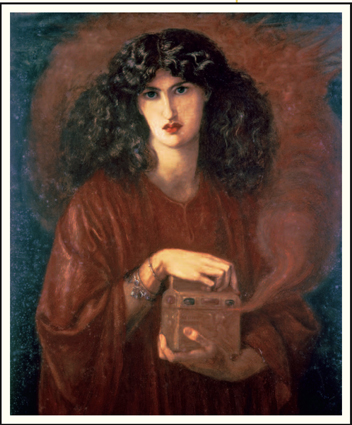
PANDORA, DANTE CHARLES GABRIEL ROSSETTI
82.3: Private Collection/The Bridgeman Art Library
“Respectfully, sir,” Langdon interceded, “I can’t imagine how a stone pyramid could set in motion anything at all.”
“Of course you can’t, Professor.” The old man stared blindly through him. “You do not yet have eyes to see.”
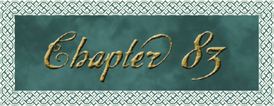
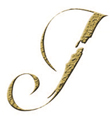 N THE moist air of the Jungle, the Architect of the Capitol could feel the sweat now rolling down his back. His handcuffed wrists ached, but all of his attention remained riveted on the ominous titanium briefcase that Sato had just opened on the bench between them.
N THE moist air of the Jungle, the Architect of the Capitol could feel the sweat now rolling down his back. His handcuffed wrists ached, but all of his attention remained riveted on the ominous titanium briefcase that Sato had just opened on the bench between them.
The contents of this case, Sato had told him, will persuade you to see things my way. I guarantee it.
The tiny Asian woman had unclasped the metal case away from Bellamy’s line of sight, and he had yet to see its contents, but his imagination was running wild. Sato’s hands were doing something inside the case, and Bellamy half expected her to extract a series of glistening, razor-sharp tools.
Suddenly a light source flickered inside the case, growing brighter, illuminating Sato’s face from beneath. Her hands kept moving inside, and the light changed hue. After a few moments, she removed her hands, grasped the entire case, and turned it toward Bellamy so he could see inside.
Bellamy found himself squinting into the glow of what appeared to be some kind of futuristic laptop with a handheld phone receiver, two antennae, and a double keyboard. His initial surge of relief turned quickly to confusion.
The screen bore the CIA logo and the text:
SECURE LOG-IN
USER: INOUE SATO
SECURITY CLEARANCE: LEVEL 5
Beneath the laptop’s log-in window, a progress icon was spinning:
ONE MOMENT PLEASE …
DECRYPTING FILE …
Bellamy’s gaze shot back up to Sato, whose eyes were locked on his. “I had not wanted to show you this,” she said. “But you’ve left me no choice.”
The screen flickered again, and Bellamy glanced back down as the file opened, its contents filling the entire LCD.
For several moments, Bellamy stared at the screen, trying to make sense of what he was looking at. Gradually, as it began to dawn on him, he felt the blood draining from his face. He stared in horror, unable to look away. “But this is … impossible!” he exclaimed. “How … could this be!”
Sato’s face was grim. “You tell me, Mr. Bellamy. You tell me.”
As the Architect of the Capitol began to fully comprehend the ramifications of what he was seeing, he could feel his entire world teetering precariously on the brink of disaster.
My God … I’ve made a terrible, terrible mistake!
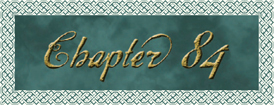
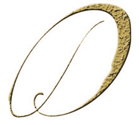 EAN GALLOWAY felt alive.
EAN GALLOWAY felt alive.
Like all mortals, he knew the time was coming when he would shed his mortal shell, but tonight was not the night. His corporeal heart was beating strong and fast … and his mind felt sharp. There is work to be done.
As he ran his arthritic hands across the pyramid’s smooth surfaces, he could scarcely believe what he was feeling. I never imagined I would live to witness this moment. For generations, the pieces of the symbolon map had been kept safely apart from one another. Now they were united at last. Galloway wondered if this was the foretold time.
Strangely, fate had selected two non-Masons to assemble the pyramid. Somehow, this seemed fitting. The Mysteries are moving out of the inner circles … out of darkness … into the light.
“Professor,” he said, turning his head in the direction of Langdon’s breathing. “Did Peter tell you why he wanted you to watch over the little package?”
“He said powerful people wanted to steal it from him,” Langdon replied. The dean nodded.
“Yes, Peter told me the same thing.”
“He did?” Katherine said suddenly on his left. “You and my brother spoke about this pyramid?”
“Of course,” Galloway said. “Your brother and I have spoken on many things. I was once the Worshipful Master at the House of the Temple, and he comes to me for guidance at times. It was about a year ago that he came to me, deeply troubled. He sat exactly where you are now, and he asked me if I believed in supernatural premonitions.”
“Premonitions?” Katherine sounded concerned. “You mean like … visions?”
“Not exactly. It was more visceral. Peter said he was feeling the growing presence of a dark force in his life. He sensed something was watching him … waiting … intending to do him great harm.”
“Obviously he was right,” Katherine said, “considering that the same man who killed our mother and Peter’s son had come to Washington and become one of Peter’s own Masonic brothers.”
“True,” Langdon said, “but it doesn’t explain the involvement of the CIA.”
Galloway was not so sure. “Men in power are always interested in greater power.”
“But … the CIA?” Langdon challenged. “And mystical secrets? Something doesn’t add up.”
“Sure it does,” Katherine said. “The CIA thrives on technological advancement and has always experimented with the mystical sciences—ESP, remote viewing, sensory deprivation, pharmacologically induced highly mentalized states. It’s all the same thing—tapping the unseen potential of the human mind. If there’s one thing I’ve learned from Peter, it’s this: Science and mysticism are very closely related, distinguishable only by their approaches. They have identical goals … but different methods.”
“Peter tells me,” Galloway said, “that your field of study is a kind of modern mystical science?”
“Noetics,” Katherine said, nodding. “And it’s proving man has powers unlike anything we can imagine.” She motioned to a stained-glass window depicting the familiar image of the “Luminous Jesus,” that of Christ with rays of light flowing from his head and hands. “In fact, I just used a supercooled charge-coupled device to photograph the hands of a faith healer at work. The photos looked a lot like the image of Jesus in your stained-glass window … streams of energy pouring through the healer’s fingertips.”
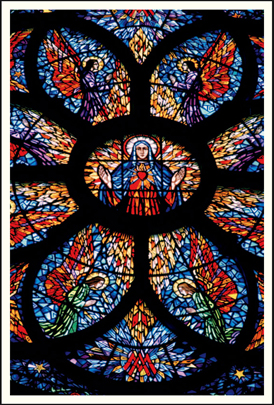
LUMINOUS JESUS STAINED GLASS WINDOW, WASHINGTON NATIONAL CATHEDRAL
84.1: Stock Connection Blue/Alamy
The well-trained mind, Galloway thought, hiding a smile. How do you think Jesus healed the sick?
“I realize,” Katherine said, “that modern medicine ridicules healers and shamans, but I saw this with my own eyes. My CCD cameras clearly photographed this man transmitting a massive energy field from his fingertips … and literally changing the cellular makeup of his patient. If that’s not godlike power, then I don’t know what is.”
Dean Galloway let himself smile. Katherine had the same fiery passion as her brother. “Peter once compared Noetic Scientists to the early explorers who were mocked for embracing the heretical notion of a spherical earth. Almost overnight, these explorers went from fools to heroes, discovering uncharted worlds and expanding the horizons of everyone on the planet. Peter thinks you will do this as well. He has very high hopes for your work. After all, every great philosophical shift in history began with a single bold idea.”
Galloway knew, of course, that one needn’t go to a lab to witness proof of this bold new idea, this proposal of man’s untapped potential. This very cathedral held healing prayer circles for the sick, and repeatedly had witnessed truly miraculous results, medically documented physical transformations. The question was not whether God had imbued man with great powers … but rather how we liberate those powers.
The old dean placed his hands reverently around the sides of the Masonic Pyramid and spoke very quietly. “My friends, I do not know exactly where this pyramid points … but I do know this. There is a great spiritual treasure buried out there somewhere … a treasure that has waited patiently in darkness for generations. I believe it is a catalyst that has the power to transform this world.” He now touched the golden tip of the capstone. “And now that this pyramid is assembled … the time is fast approaching. And why shouldn’t it? The promise of a great transformational enlightenment has been prophesied forever.”
“Father,” Langdon said, his tone challenging, “we’re all familiar with the Revelation of Saint John and the literal meaning of the Apocalypse, but biblical prophecy hardly seems—”
“Oh, heavens, the Book of Revelation is a mess!” the dean said. “Nobody knows how to read that. I’m talking about clear minds writing in clear language—the predictions of Saint Augustine, Sir Francis Bacon, Newton, Einstein, the list goes on and on, all anticipating a transformative moment of enlightenment. Even Jesus himself said, ‘Nothing is hidden that will not be made known, nor secret that will not come to light.’ ”
“It’s a safe prediction to make,” Langdon said. “Knowledge grows exponentially. The more we know, the greater our ability to learn, and the faster we expand our knowledge base.”
“Yes,” Katherine added. “We see this in science all the time. Each new technology we invent becomes a tool with which to invent new technologies … and it snowballs. That’s why science has advanced more in the last five years than in the previous five thousand. Exponential growth. Mathematically, as time passes, the exponential curve of progress becomes almost vertical, and new development occurs incredibly fast.”
Silence fell in the dean’s office, and Galloway sensed that his two guests still had no idea how this pyramid could possibly help them reveal anything further. That is why fate brought you to me, he thought. I have a role to play.
For many years, the Reverend Colin Galloway, along with his Masonic brothers, had played the role of gatekeeper. Now it was all changing.
I am no longer a gatekeeper … I am a guide.
“Professor Langdon?” Galloway said, reaching out across his desk. “Take my hand if you will.”
Robert Langdon felt uncertain as he stared across at Dean Galloway’s outstretched palm.
Are we going to pray?
Politely, Langdon reached out and placed his right hand in the dean’s withered hand. The old man grasped it firmly but did not begin to pray. Instead, he found Langdon’s index finger and guided it downward into the stone box that had once housed the golden capstone.
“Your eyes have blinded you,” the dean said. “If you saw with your fingertips as I do, you would realize this box has something left to teach you.”
Dutifully, Langdon worked his fingertip around the inside of the box, but he felt nothing. The inside was perfectly smooth.
“Keep looking,” Galloway prompted.
Finally, Langdon’s fingertip felt something—a tiny raised circle—a minuscule dot in the center of the base of the box. He removed his hand and peered inside. The little circle was virtually invisible to the naked eye. What is that?
“Do you recognize that symbol?” Galloway asked.
“Symbol?” Langdon replied. “I can barely see anything at all.”
“Push down on it.”
Langdon did as he asked, pressing his fingertip down onto the spot. What does he think will happen?
“Hold your finger down,” the dean said. “Apply pressure.”
Langdon glanced over at Katherine, who looked puzzled as she tucked a wisp of hair behind her ears.
A few seconds later, the old dean finally nodded. “Okay, remove your hand. The alchemy is complete.”
Alchemy? Robert Langdon removed his hand from the stone box and sat in bewildered silence. Nothing had changed at all. The box just sat there on the desk.
“Nothing,” Langdon said.
“Look at your fingertip,” the dean replied. “You should see a transformation.”
Langdon looked at his finger, but the only transformation he could see was that he now had an indentation on his skin made by the circular nubbin—a tiny circle with a dot in the middle.

“Now do you recognize this symbol?” the dean asked.
Although Langdon recognized the symbol, he was more impressed that the dean had been able to feel the detail of it. Seeing with one’s fingertips was apparently a learned skill.
“It’s alchemical,” Katherine said, sliding her chair closer and examining Langdon’s finger. “It’s the ancient symbol for gold.”
“Indeed it is.” The dean smiled and patted the box. “Professor, congratulations. You have just achieved what every alchemist in history has strived for. From a worthless substance, you’ve created gold.”
Langdon frowned, unimpressed. The little parlor trick seemed to be no help at all. “An interesting idea, sir, but I’m afraid this symbol—a circle with a round dot in the middle—has dozens of meanings. It’s called a circumpunct, and it’s one of the most widely used symbols in history.”
“What are you talking about?” the dean asked, sounding skeptical.
Langdon was stunned that a Mason was not more familiar with the spiritual importance of this symbol. “Sir, the circumpunct has countless meanings. In ancient Egypt, it was the symbol for Ra—the sun god—and modern astronomy still uses it as the solar symbol. In Eastern philosophy, it represents the spiritual insight of the Third Eye, the divine rose, and the sign of illumination. The Kabbalists use it to symbolize the Kether—the highest Sephiroth and ‘the most hidden of all hidden things.’ Early mystics called it the Eye of God and it’s the origin of the All-Seeing Eye on the Great Seal. The Pythagoreans used the circumpunct as the symbol of the Monad—the Divine Truth, the Prisca Sapientia, the at-one-ment of mind and soul, and the—”
“Enough!” Dean Galloway was chuckling now. “Professor, thank you. You are correct, of course.”
Langdon now realized he had just been played. He knew all that.
“The circumpunct,” Galloway said, still smiling to himself, “is essentially the symbol of the Ancient Mysteries. For this reason, I would suggest that its presence in this box is not mere coincidence. Legend holds that the secrets of this map are hidden in the smallest of details.”
“Fine,” Katherine said, “but even if this symbol was inscribed there intentionally, it doesn’t bring us any closer to deciphering the map, does it?”
“You mentioned earlier that the wax seal you broke was embossed with Peter’s ring?”
“That’s correct.”
“And you said you have that ring with you?”
“I do.” Langdon reached into his pocket, found the ring, took it out of the plastic bag, and placed it on the desk in front of the dean.
Galloway picked up the ring and began feeling its surfaces. “This unique ring was created at the same time as the Masonic Pyramid, and traditionally, it is worn by the Mason in charge of protecting the pyramid. Tonight, when I felt the tiny circumpunct on the bottom of the stone box, I realized that the ring is, in fact, part of the symbolon.”
“It is?”
“I’m certain of it. Peter is my closest friend, and he wore this ring for many years. I am quite familiar with it.” He handed the ring to Langdon. “See for yourself.”
Langdon took the ring and examined it, running his fingers over the double-headed phoenix, the number 33, the words ORDO AB CHAO, and also the words All is revealed at the thirty-third degree. He felt nothing helpful. Then, as his fingers traced down around the outside of the band, he stopped short. Startled, he turned the ring over and eyed the very bottom of its band.
“Did you find it?” Galloway said.
“I think so, yes!” Langdon said.
Katherine slid her chair closer. “What?”
“The degree sign on the band,” Langdon said, showing her. “It’s so small that you don’t really notice it with your eyes, but if you feel it, you can tell it’s actually indented—like a tiny circular incision.” The degree sign was centered on the bottom of the band … and admittedly looked to be the same size as the raised nubbin in the bottom of the cube.
“Is it the same size?” Katherine moved closer still, sounding excited now.
“There’s one way to find out.” He took the ring and lowered it into the box, aligning the two tiny circles. As he pushed down, the raised circle on the box slid into the ring’s opening, and there was a faint but decisive click.
They all jumped.
Langdon waited, but nothing happened.
“What was that?!” the priest said.
“Nothing,” Katherine replied. “The ring locked into place … but nothing else happened.”
“No great transformation?” Galloway looked puzzled.
We’re not done, Langdon realized, gazing down at the ring’s embossed insignia—a double-headed phoenix and the number 33. All is revealed at the thirty-third degree. His mind filled with thoughts of Pythagoras, sacred geometry, and angles; he wondered if perhaps degrees had a mathematical meaning.
Slowly, heart beating faster now, he reached down and grasped the ring, which was affixed to the base of the cube. Then, slowly, he began turning the ring to the right. All is revealed at the thirty-third degree.
He turned the ring ten degrees … twenty degrees … thirty degrees—
What happened next, Langdon never saw coming.
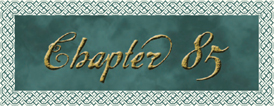
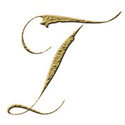 RANSFORMATION.
RANSFORMATION.
Dean Galloway heard it happen, and so he didn’t need to see it.
Across the desk from him, Langdon and Katherine were dead silent, no doubt staring in mute astonishment at the stone cube, which had just transformed itself loudly before their very eyes.
Galloway couldn’t help but smile. He had anticipated the result, and although he still had no idea how this development would ultimately help them solve the riddle of the pyramid, he was enjoying the rare chance to teach a Harvard symbologist something about symbols.
“Professor,” the dean said, “few people realize that the Masons venerate the shape of the cube—or ashlar, as we call it—because it is a three-dimensional representation of another symbol … a much older, two-dimensional symbol.” Galloway didn’t need to ask if the professor recognized the ancient symbol now lying before them on the desk. It was one of the most famous symbols in the world.
Robert Langdon’s thoughts churned as he stared at the transformed box on the desk in front of him. I had no idea …
Moments ago, he had reached into the stone box, grasped the Masonic ring, and gently turned it. As he rotated the ring through thirty-three degrees, the cube had suddenly changed before his eyes. The square panels that made up the sides of the box fell away from one another as their hidden hinges released. The box collapsed all at once, its side panels and lid falling outward, slapping loudly on the desk.
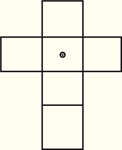
The cube becomes a cross, Langdon thought. Symbolic alchemy.
Katherine looked bewildered by the sight of the collapsed cube. “The Masonic Pyramid relates to … Christianity?”
For a moment, Langdon had wondered the same thing. After all, the Christian crucifix was a respected symbol within the Masons, and certainly there were plenty of Christian Masons. However, Masons were also Jews, Muslims, Buddhists, Hindus, and those who had no name for their God. The presence of an exclusively Christian symbol seemed restrictive. Then the true meaning of this symbol had dawned on him.
“It’s not a crucifix,” Langdon said, standing up now. “The cross with the circumpunct in the middle is a binary symbol—two symbols fused to create one.”
“What are you saying?” Katherine’s eyes followed him as he paced the room.
“The cross,” Langdon said, “was not a Christian symbol until the fourth century. Long before that, it was used by the Egyptians to represent the intersection of two dimensions—the human and the celestial. As above, so below. It was a visual representation of the juncture where man and God become one.”
“Okay.”
“The circumpunct,” Langdon said, “we already know has many meanings—one of its most esoteric being the rose, the alchemical symbol for perfection. But, when you place a rose on the center of a cross, you create another symbol entirely—the Rose Cross.”
Galloway reclined in his chair, smiling. “My, my. Now you’re cooking.”
Katherine stood now, too. “What am I missing?”
“The Rose Cross,” Langdon explained, “is a common symbol in Freemasonry. In fact, one of the degrees of the Scottish Rite is called ‘Knights of the Rose Cross’ and honors the early Rosicrucians, who contributed to Masonic mystical philosophy.
Peter may have mentioned the Rosicrucians to you. Dozens of great scientists were members—John Dee, Elias Ashmole, Robert Fludd—”
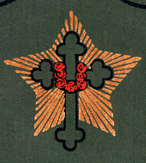
THE ROSE CROSS
85.1: Charles Walker/Topfoto /The Image Works (detail)
“Absolutely,” Katherine said. “I’ve read all of the Rosicrucian manifestos in my research.”
Every scientist should, Langdon thought. The Order of the Rose Cross—or more formally the Ancient and Mystical Order Rosae Crucis—had an enigmatic history that had greatly influenced science and closely paralleled the legend of the Ancient Mysteries … early sages possessing secret wisdom that was passed down through the ages and studied by only the brightest minds. Admittedly, history’s list of famous Rosicrucians was a who’s who of European Renaissance luminaries: Paracelsus, Bacon, Fludd, Descartes, Pascal, Spinoza, Newton, Leibniz.
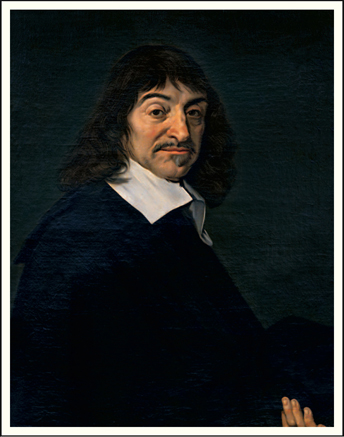
RENÉ DESCARTES
85.2: Louvre, Paris, France/Giraudon/The Bridgeman Art Library
According to Rosicrucian doctrine, the order was “built on esoteric truths of the ancient past,” truths which had to be “concealed from the average man” and which promised great insight into “the spiritual realm.” The brotherhood’s symbol had blossomed over the years into a flowering rose on an ornate cross, but it had begun as a more modest dotted circle on an unadorned cross—the simplest manifestation of the rose on the simplest manifestation of the cross.
“Peter and I often discuss Rosicrucian philosophy,” Galloway told Katherine.
As the dean began outlining the interrelationship between Masonry and Rosicrucianism, Langdon felt his attention drawn back to the same nagging thought he’d had all night. Jeova Sanctus Unus. This phrase is linked to alchemy somehow. He still could not remember exactly what Peter had told him about the phrase, but for some reason, the mention of Rosicrucianism seemed to have rekindled the thought. Think, Robert!
“The Rosicrucian founder,” Galloway was saying, “was allegedly a German mystic who went by the name Christian Rosenkreuz—a pseudonym obviously, perhaps even for Francis Bacon, who some historians believe founded the group himself, although there is no proof of—”
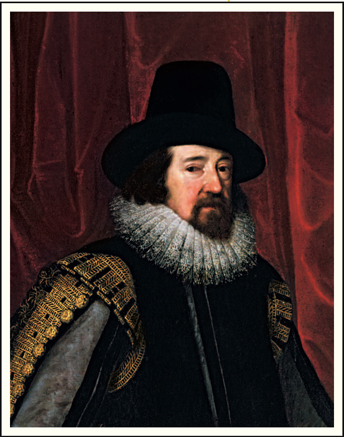
FRANCIS BACON
85.3: Private Collection/The Bridgeman Art Library
“A pseudonym!” Langdon declared suddenly, startling even himself. “That’s it! Jeova Sanctus Unus! It’s a pseudonym!”
“What are you talking about?” Katherine demanded.
Langdon’s pulse had quickened now. “All night, I’ve been trying to remember what Peter told me about Jeova Sanctus Unus and its relationship to alchemy. Finally I remembered! It’s not about alchemy so much as about an alchemist! A very famous alchemist!”
Galloway chuckled. “It’s about time, Professor. I mentioned his name twice and also the word pseudonym.”
Langdon stared at the old dean. “You knew?”
“Well, I had my suspicions when you told me the engraving said Jeova Sanctus Unus and had been decrypted using Dürer’s alchemical magic square, but when you found the Rose Cross, I was certain. As you probably know, the personal papers of the scientist in question included a very heavily annotated copy of the Rosicrucian manifestos.”
“Who?” Katherine asked.
“One of the world’s greatest scientists!” Langdon replied. “He was an alchemist, a member of the Royal Society of London, a Rosicrucian, and he signed some of his most secretive science papers with a pseudonym—‘Jeova Sanctus Unus’!”
“One True God?” Katherine said. “Modest guy.”
“Brilliant guy, actually,” Galloway corrected. “He signed his name that way because, like the ancient Adepts, he understood himself as divine. In addition, because the sixteen letters in Jeova Sanctus Unus could be rearranged to spell his name in Latin, making it a perfect pseudonym.”
Katherine now looked puzzled. “Jeova Sanctus Unus is an anagram of a famous alchemist’s name in Latin?”
Langdon grabbed a piece of paper and pencil off the dean’s desk, writing as he talked. “Latin interchanges the letters J for I and the letter V for U, which means Jeova Sanctus Unus can actually be perfectly rearranged to spell this man’s name.”
Langdon wrote down sixteen letters: Isaacus Neutonuus.
He handed the slip of paper to Katherine and said, “I think you’ve heard of him.”
“Isaac Newton?” Katherine demanded, looking at the paper. “That’s what the engraving on the pyramid was trying to tell us!”
For a moment, Langdon was back in Westminster Abbey, standing at Newton’s pyramidical tomb, where he had experienced a similar epiphany. And tonight, the great scientist surfaces again. It was no coincidence, of course … the pyramids, mysteries, science, hidden knowledge … it was all intertwined. Newton’s name had always been a recurring guidepost for those seeking secret knowledge.
“Isaac Newton,” Galloway said, “must have something to do with how to decipher the meaning of the pyramid. I can’t imagine what it would be, but—”
“Genius!” Katherine exclaimed, her eyes going wide. “That’s how we transform the pyramid!”
“You understand?” Langdon said.
“Yes!” she said. “I can’t believe we didn’t see it! It has been staring us right in the face. A simple alchemical process. I can transform this pyramid using basic science! Newtonian science!”
Langdon strained to understand.
“Dean Galloway,” Katherine said. “If you read the ring, it says—”
“Stop!” The old dean suddenly raised his finger in the air and motioned for silence. Gently, he cocked his head to the side, as if he were listening to something. After a moment, he stood up abruptly. “My friends, this pyramid obviously has secrets left to reveal. I don’t know what Ms. Solomon is getting at, but if she knows your next step, then I have played my role. Pack up your things and say no more to me. Leave me in darkness for the moment. I would prefer to have no information to share should our visitors try to force me.”
“Visitors?” Katherine said, listening. “I don’t hear anyone.”
“You will,” Galloway said, heading for the door. “Hurry.”
Across town, a cell tower was attempting to contact a phone that lay in pieces on Massachusetts Avenue. Finding no signal, it redirected the call to voice mail.
“Robert!” Warren Bellamy’s panicked voice shouted. “Where are you?! Call me! Something terrible is happening!”
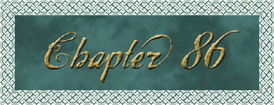
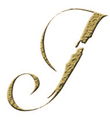 N THE cerulean glow of his basement lights, Mal’akh stood at the stone table and continued his preparations. As he worked, his empty stomach growled. He paid no heed. His days of servitude to the whims of his flesh were behind him. Transformation requires sacrifice.
N THE cerulean glow of his basement lights, Mal’akh stood at the stone table and continued his preparations. As he worked, his empty stomach growled. He paid no heed. His days of servitude to the whims of his flesh were behind him. Transformation requires sacrifice.
Like many of history’s most spiritually evolved men, Mal’akh had committed to his path by making the noblest of flesh sacrifices. Castration had been less painful than he had imagined. And, he had learned, far more common. Every year, thousands of men underwent surgical gelding—orchiectomy, as the process was known—their motivations ranging from transgender issues, to curbing sexual addictions, to deep-seated spiritual beliefs. For Mal’akh, the reasons were of the highest nature. Like the mythological self-castrated Attis, Mal’akh knew that achieving immortality required a clean break with the material world of male and female.
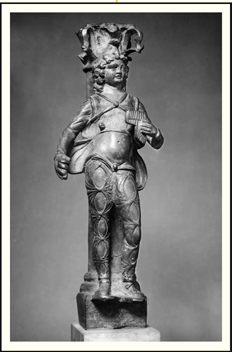
ATTIS
86.1: Alinari Archives/The Image Works
The androgyne is one.
Nowadays, eunuchs were shunned, although the ancients understood the inherent power of this transmutational sacrifice. Even the early Christians had heard Jesus Himself extol its virtues in Matthew 19:12: “There are those who have made themselves eunuchs for the sake of the kingdom of heaven. He who is able to accept this, let him accept it.”
Peter Solomon had made a flesh sacrifice, although a single hand was a small price in the grand scheme. By night’s end, however, Solomon would be sacrificing much, much more.
In order to create, I must destroy.
Such was the nature of polarity.
Peter Solomon, of course, deserved the fate that awaited him tonight. It would be a fitting end. Long ago, he had played the pivotal role in Mal’akh’s mortal life path. For this reason, Peter had been chosen to play the pivotal role in Mal’akh’s great transformation. This man had earned all the horror and pain he was about to endure. Peter Solomon was not the man the world believed he was. He sacrificed his own son.
Peter Solomon had once presented his son, Zachary, with an impossible choice—wealth or wisdom. Zachary chose poorly. The boy’s decision had begun a chain of events that eventually dragged the young man into the depths of hell. Soganlik Prison. Zachary Solomon had died in that Turkish prison. The whole world knew the story … but what they didn’t know was that Peter Solomon could have saved his son.
I was there, Mal’akh thought. I heard it all.
Mal’akh had never forgotten that night. Solomon’s brutal decision had meant the end of his son, Zach, but it had been the birth of Mal’akh.
Some must die that others may live.
As the light over Mal’akh’s head began changing color again, he realized the hour was late. He completed his preparations and headed back up the ramp. It was time to attend to matters of the mortal world.
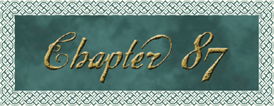
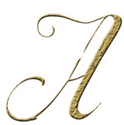 LL is revealed at the thirty-third degree, Katherine thought as she ran. I know how to transform the pyramid! The answer had been right in front of them all night.
LL is revealed at the thirty-third degree, Katherine thought as she ran. I know how to transform the pyramid! The answer had been right in front of them all night.
Katherine and Langdon were alone now, dashing through the cathedral’s annex, following signs for “The Garth.” Now, exactly as the dean had promised, they burst out of the cathedral into a massive, walled-in courtyard.
The cathedral garth was a cloistered, pentagonal garden with a bronze postmodern fountain. Katherine was amazed how loudly the fountain’s flowing water seemed to be reverberating in the courtyard. Then she realized it was not the fountain she was hearing.
“Helicopter!” she shouted as a beam of light pierced the night sky above them. “Get under that portico!”
The dazzling glare of a searchlight flooded the garth just as Langdon and Katherine reached the other side, slipping beneath a Gothic arch into a tunnel that led to the outside lawn. They waited, huddled in the tunnel, as the helicopter passed overhead and began circling the cathedral in wide arcs.
“I guess Galloway was right about hearing visitors,” Katherine said, impressed. Bad eyes make for great ears. Her own ears now pounded rhythmically with her racing pulse.
“This way,” Langdon said, clutching his daybag and moving through the passage.
Dean Galloway had given them a single key and a clear set of directions. Unfortunately, when they reached the end of the short tunnel, they found themselves separated from their destination by a wide-open expanse of lawn, currently flooded with light from the helicopter overhead.
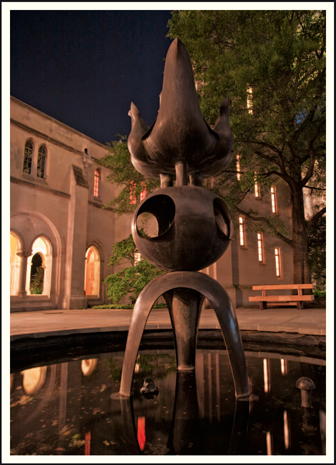
FOUNTAIN AT THE GARTH, WASHINGTON NATIONAL CATHEDRAL
87.1: © Richard Nowitz
“We can’t get across,” Katherine said.
“Hold on … look.” Langdon pointed to a black shadow that was materializing on the lawn to their left. The shadow began as an amorphous blob, but it was growing quickly, moving in their direction, becoming more defined, rushing at them faster and faster, stretching, and finally transforming itself into a massive black rectangle crowned by two impossibly tall spires.
“The cathedral facade is blocking the searchlight,” Langdon said.
“They’re landing out in front!”
Langdon grabbed Katherine’s hand. “Run! Now!”
Inside the cathedral, Dean Galloway felt a lightness in his step that he had not felt in years. He moved through the Great Crossing, down the nave toward the narthex and the front doors.
He could hear the helicopter hovering in front of the cathedral now, and he imagined its lights coming through the rose window in front of him, throwing spectacular colors all over the sanctuary. He recalled the days when he could see color. Ironically, the lightless void that had become his world had illuminated many things for him. I see more clearly now than ever.
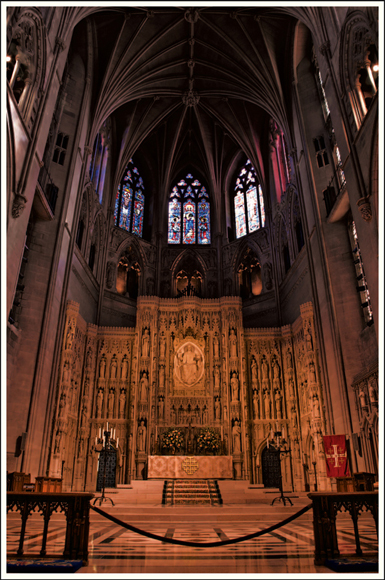
NAVE, WASHINGTON NATIONAL CATHEDRAL
87.2: Irene Abdou/Alamy
Galloway had been called to God as a young man and over his lifetime had loved the church as much as any man could. Like many of his colleagues who had given their lives in earnest to God, Galloway was weary. He had spent his life straining to be heard above the din of ignorance.
What did I expect?
From the Crusades, to the Inquisition, to American politics—the name Jesus had been hijacked as an ally in all kinds of power struggles. Since the beginning of time, the ignorant had always screamed the loudest, herding the unsuspecting masses and forcing them to do their bidding. They defended their worldly desires by citing Scripture they did not understand. They celebrated their intolerance as proof of their convictions. Now, after all these years, mankind had finally managed to utterly erode everything that had once been so beautiful about Jesus.
Tonight, encountering the symbol of the Rose Cross had fueled him with great hope, reminding him of the prophecies written in the Rosicrucian manifestos, which Galloway had read countless times in the past and could still recall.
Chapter One: Jehova will redeem humanity by revealing those secrets which he previously reserved only for the elect.
Chapter Four: The whole world shall become as one book and all the contradictions of science and theology shall be reconciled.
Chapter Seven: Before the end of the world, God shall create a great flood of spiritual light to alleviate the suffering of humankind.
Chapter Eight: Before this revelation is possible, the world must sleep away the intoxication of her poisoned chalice, which was filled with the false life of the theological vine.
Galloway knew the church had long ago lost her way, and he had dedicated his life to righting her course. Now, he realized, the moment was fast approaching.
It is always darkest before the dawn.
CIA field agent Turner Simkins was perched on the strut of the Sikorsky helicopter as it touched down on the frosty grass. He leaped off, joined by his men, and immediately waved the chopper back up into the air to keep an eye on all the exits.
Nobody leaves this building.
As the chopper rose back into the night sky, Simkins and his team ran up the stairs to the cathedral’s main entrance. Before he could decide which of the six doors to pound on, one of them swung open.
“Yes?” a calm voice said from the shadows.
Simkins could barely make out the hunched figure in priest’s robes. “Are you Dean Colin Galloway?”
“I’m looking for Robert Langdon. Have you seen him?”
The old man stepped forward now, staring past Simkins with eerie blank eyes. “Now, wouldn’t that be a miracle.”
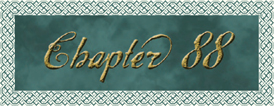
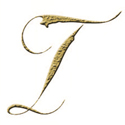 IME IS running out.
IME IS running out.
Security analyst Nola Kaye was already on edge, and the third mug of coffee she was now drinking had begun coursing through her like an electric current.
No word yet from Sato.
Finally, her phone rang, and Nola leaped on it. “OS,” she answered. “Nola here.”
“Nola, it’s Rick Parrish in systems security.”
Nola slumped. No Sato. “Hi, Rick. What can I do for you?”
“I wanted to give you a heads-up—our department may have information relevant to what you’re working on tonight.”
Nola set down her coffee. How the hell do you know what I’m working on tonight? “I beg your pardon?”
“Sorry, it’s the new CI program we’re beta-testing,” Parrish said. “It keeps flagging your workstation number.”
Nola now realized what he was talking about. The Agency was currently running a new piece of “collaborative integration” software designed to provide real-time alerts to disparate CIA departments when they happened to be processing related data fields. In an era of time-sensitive terrorist threats, the key to thwarting disaster was often as simple as a heads-up telling you that the guy down the hall was analyzing the very data you needed. As far as Nola was concerned, this CI software had proven more of a distraction than any real help—constant interruption software, she called it.
“Right, I forgot,” Nola said. “What have you got?” She was positive that nobody else in the building knew about this crisis, much less could be working on it. The only computer work Nola had done tonight was historical research for Sato on esoteric Masonic topics. Nonetheless, she was obliged to play the game.
“Well, it’s probably nothing,” Parrish said, “but we stopped a hacker tonight, and the CI program keeps suggesting I share the information with you.”
A hacker? Nola sipped her coffee. “I’m listening.”
“About an hour ago,” Parrish said, “we snagged a guy named Zoubianis trying to access a file on one of our internal databases. This guy claims it was a job for hire and that he has no idea why he was being paid to access this particular file or even that it was on a CIA server.”
“Okay.”
“We finished questioning him, and he’s clean. But here’s the weird thing—the same file he was targeting had been flagged earlier tonight by an internal search engine. It looks like someone piggybacked into our system, ran a specific keyword search, and generated a redaction. The thing is, the keywords they used are really strange. And there’s one in particular that the CI flagged as a high-priority match—one that’s unique to both of our data sets.” He paused. “Do you know the word … symbolon?”
Nola jolted upright, spilling coffee on her desk.
“The other keywords are just as unusual,” Parrish continued. “Pyramid, portal—”
“Get down here,” Nola commanded, mopping up her desk. “And bring everything you’ve got!”
“These words actually mean something to you?”
“NOW!”
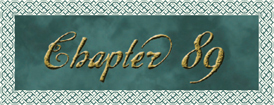
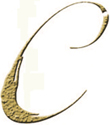 ATHEDRAL COLLEGE is an elegant, castlelike edifice located adjacent to the National Cathedral. The College of Preachers, as it was originally envisioned by the first Episcopal bishop of Washington, was founded to provide ongoing education for clergy after their ordination. Today, the college offers a wide variety of programs on theology, global justice, healing, and spirituality.
ATHEDRAL COLLEGE is an elegant, castlelike edifice located adjacent to the National Cathedral. The College of Preachers, as it was originally envisioned by the first Episcopal bishop of Washington, was founded to provide ongoing education for clergy after their ordination. Today, the college offers a wide variety of programs on theology, global justice, healing, and spirituality.
Langdon and Katherine had made the dash across the lawn and used Galloway’s key to slip inside just as the helicopter rose back over the cathedral, its floodlights turning night back into day. Now, standing breathless inside the foyer, they surveyed their surroundings. The windows provided sufficient illumination, and Langdon saw no reason to turn the lights on and take a chance of broadcasting their whereabouts to the helicopter overhead. As they moved down the central hallway, they passed a series of conference halls, classrooms, and sitting areas. The interior reminded Langdon of the neo-Gothic buildings of Yale University—breathtaking on the outside, and yet surprisingly utilitarian on the inside, their period elegance having been retrofitted to endure heavy foot traffic.
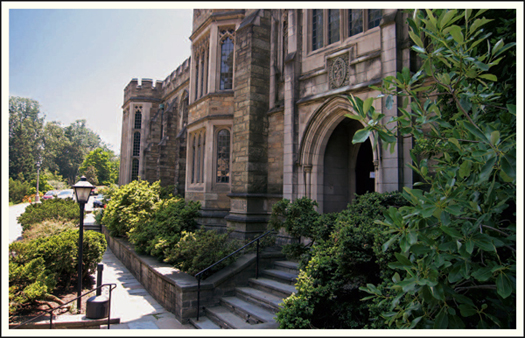
CATHEDRAL COLLEGE, WASHINGTON NATIONAL CATHEDRAL
89.1: © Photo DC
“Down here,” Katherine said, motioning toward the far end of the hall.
Katherine had yet to share with Langdon her new revelation regarding the pyramid, but apparently the reference to Isaacus Neutonuus had sparked it. All she had said as they crossed the lawn was that the pyramid could be transformed using simple science. Everything she needed, she believed, could probably be found in this building. Langdon had no idea what she needed or how Katherine intended to transform a solid piece of granite or gold, but considering he had just witnessed a cube metamorphose into a Rosicrucian cross, he was willing to have faith.
They reached the end of the hall and Katherine frowned, apparently not seeing what she wanted. “You said this building has dormitory facilities?”
“Yes, for residential conferences.”
“So they must have a kitchen in here somewhere, right?”
“You’re hungry?”
She frowned back at him. “No, I need a lab.”
Of course you do. Langdon spotted a descending staircase that bore a promising symbol. America’s favorite pictogram.
![]()
The basement kitchen was industrial looking—lots of stainless steel and big bowls—clearly designed to cook for large groups. The kitchen had no windows. Katherine closed the door and flipped on the lights. The exhaust fans came on automatically.
She began rooting around in the cupboards for whatever it was she needed. “Robert,” she directed, “put the pyramid out on the island, if you would.”
Feeling like the novice sous chef taking orders from Daniel Boulud, Langdon did as he was told, removing the pyramid from his bag and placing the gold capstone on top of it. When he finished, Katherine was busy filling an enormous pot with hot tap water.
“Would you please lift this to the stove for me?”
Langdon heaved the sloshing pot onto the stove as Katherine turned on the gas burner and cranked up the flame.
“Are we doing lobsters?” he asked hopefully.
“Very funny. No, we’re doing alchemy. And for the record, this is a pasta pot, not a lobster pot.” She pointed to the perforated strainer insert that she had removed from the pot and placed on the island beside the pyramid.
Silly me. “And boiling pasta is going to help us decipher the pyramid?”
Katherine ignored the comment, her tone turning serious. “As I’m sure you know, there is a historical and symbolic reason the Masons chose thirty-three as their highest degree.”
“Of course,” Langdon said. In the days of Pythagoras, six centuries before Christ, the tradition of numerology hailed the number 33 as the highest of all the Master Numbers. It was the most sacred figure, symbolizing Divine Truth. The tradition lived on within the Masons … and elsewhere. It was no coincidence that Christians were taught that Jesus was crucified at age thirty-three, despite no real historical evidence to that effect. Nor was it coincidence that Joseph was said to have been thirty-three when he married the Virgin Mary, or that Jesus accomplished thirty-three miracles, or that God’s name was mentioned thirty-three times in Genesis, or that, in Islam, all the dwellers of heaven were permanently thirty-three years old.
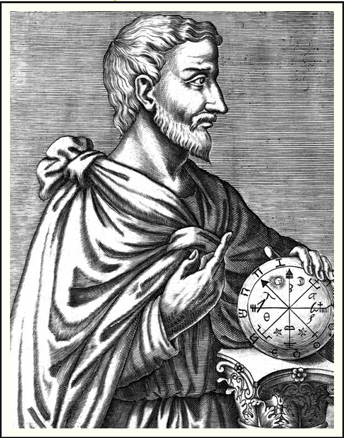
PYTHAGORAS
89.2: SSPL/Science Museum/The Image Works
“Thirty-three,” Katherine said, “is a sacred number in many mystical traditions.”
“Correct.” Langdon still had no idea what this had to do with a pasta pot.
“So it should come as no surprise to you that an early alchemist, Rosicrucian, and mystic like Isaac Newton also considered the number thirty-three special.”
“I’m sure he did,” Langdon replied. “Newton was deep into numerology, prophecy, and astrology, but what does—”
“All is revealed at the thirty-third degree.”
Langdon pulled Peter’s ring from his pocket and read the inscription. Then he glanced back at the pot of water. “Sorry, you lost me.”
“Robert, earlier tonight, we all assumed ‘thirty-third degree’ referred to the Masonic degree, and yet when we rotated that ring thirty-three degrees, the cube transformed and revealed a cross. At that moment, we realized the word degree was being used in another sense.”
“Yes. Degrees of arc.”
“Exactly. But degree has a third meaning as well.”
Langdon eyed the pot of water on the stove. “Temperature.”
“Exactly!” she said. “It was right in front of us all night. ‘All is revealed at the thirty-third degree.’ If we bring this pyramid’s temperature to thirty-three degrees … it may just reveal something.”
Langdon knew Katherine Solomon was exceptionally bright, and yet she seemed to be missing a rather obvious point. “If I’m not mistaken, thirty-three degrees is almost freezing. Shouldn’t we be putting the pyramid in the freezer?”
Katherine smiled. “Not if we want to follow the recipe written by the great alchemist and Rosicrucian mystic who signed his papers Jeova Sanctus Unus.”
Isaacus Neutonuus wrote recipes?
“Robert, temperature is the fundamental alchemical catalyst, and it was not always measured in Fahrenheit and Celsius. There are far older temperature scales, one of them invented by Isaac—”
“The Newton Scale!” Langdon said, realizing she was right.
“Yes! Isaac Newton invented an entire system of quantifying temperature based entirely on natural phenomena. The temperature of melting ice was Newton’s base point, and he called it ‘the zeroth degree.’ ” She paused. “I suppose you can guess what degree he assigned the temperature of boiling water—the king of all alchemical processes?”
“Thirty-three.”
“Yes, thirty-three! The thirty-third degree. On the Newton Scale, the temperature of boiling water is thirty-three degrees. I remember asking my brother once why Newton chose that number. I mean, it seemed so random. Boiling water is the most fundamental alchemical process, and he chose thirty-three? Why not a hundred? Why not something more elegant? Peter explained that, to a mystic like Isaac Newton, there was no number more elegant than thirty-three.”
All is revealed at the thirty-third degree. Langdon glanced at the pot of water and then over at the pyramid. “Katherine, the pyramid is made out of solid granite and solid gold. Do you really think boiling water is hot enough to transform it?”
The smile on her face told Langdon that Katherine knew something he did not know. Confidently, she walked over to the island, lifted the gold-capped, granite pyramid, and set it in the strainer. Then she carefully lowered it into the bubbling water. “Let’s find out, shall we?”

High above the National Cathedral, the CIA pilot locked the helicopter in auto-hover mode and surveyed the perimeter of the building and the grounds. No movement. His thermal imaging couldn’t penetrate the cathedral stone, and so he couldn’t tell what the team was doing inside, but if anyone tried to slip out, the thermal would pick it up.
It was sixty seconds later that a thermal sensor pinged. Working on the same principle as home-security systems, the detector had identified a strong temperature differential. Usually this meant a human form moving through a cool space, but what appeared on the monitor was more of a thermal cloud, a patch of hot air drifting across the lawn. The pilot found the source, an active vent on the side of Cathedral College.
Probably nothing, he thought. He saw these kinds of gradients all the time. Someone cooking or doing laundry. As he was about to turn away, though, he realized something odd. There were no cars in the parking lot and no lights on anywhere in the building.
He studied the UH-60’s imaging system for a long moment. Then he radioed down to his team leader. “Simkins, it’s probably nothing, but …”
“Incandescent temperature indicator!” Langdon had to admit, it was clever.
“It’s simple science,” Katherine said. “Different substances incandesce at different temperatures. We call them thermal markers. Science uses these markers all the time.”
Langdon gazed down at the submerged pyramid and capstone. Wisps of steam were beginning to curl over the bubbling water, although he was not feeling hopeful. He glanced at his watch, and his heart rate accelerated: 11:45 P.M. “You believe something here will luminesce as it heats up?”
“Not luminesce, Robert. Incandesce. There’s a big difference. Incandescence is caused by heat, and it occurs at a specific temperature. For example, when steel manufacturers temper beams, they spray a grid on them with a transparent coating that incandesces at a specific target temperature so they know when the beams are done. Think of a mood ring. Just put it on your finger, and it changes color from body heat.”
“Katherine, this pyramid was built in the 1800s! I can understand a craftsman making hidden release hinges in a stone box, but applying some kind of transparent thermal coating?”
“Perfectly feasible,” she said, glancing hopefully at the submerged pyramid. “The early alchemists used organic phosphors all the time as thermal markers. The Chinese made colored fireworks, and even the Egyptians—” Katherine stopped midsentence, staring intently into the roiling water.
“What?” Langdon followed her gaze into the turbulent water but saw nothing at all.
Katherine leaned in, staring more intently into the water. Suddenly she turned and ran across the kitchen toward the door.
“Where are you going?” Langdon shouted.
She slid to a stop at the kitchen light switch, flipped it off. The lights and exhaust fan went off, plunging the room into total darkness and silence. Langdon turned back to the pyramid and peered through the steam at the capstone beneath the water. By the time Katherine made it back to his side, his mouth had fallen open in disbelief.
Exactly as Katherine had predicted, a small section of the metal capstone was starting to glow beneath the water. Letters were starting to appear, and they were getting brighter as the water heated up.
“Text!” Katherine whispered.
Langdon nodded, dumbstruck. The glowing words were materializing just beneath the engraved inscription on the capstone. It looked like only three words, and although Langdon could not yet read what the words said, he wondered if they would unveil everything they had been looking for tonight. The pyramid is a real map, Galloway had told them, and it points to a real location.
As the letters shone brighter, Katherine turned off the gas, and the water slowly stopped churning. The capstone now came into focus beneath the water’s calm surface.
Three shining words were clearly legible.
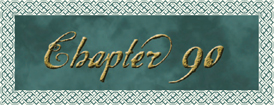
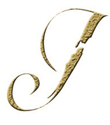 N THE dim light of the Cathedral College kitchen, Langdon and Katherine stood over the pot of water and stared at the transformed capstone beneath the surface. On the side of the golden capstone, an incandescent message was glowing.
N THE dim light of the Cathedral College kitchen, Langdon and Katherine stood over the pot of water and stared at the transformed capstone beneath the surface. On the side of the golden capstone, an incandescent message was glowing.
Langdon read the shining text, scarcely able to believe his eyes. He knew the pyramid was rumored to reveal a specific location … but he had never imagined that the location would be quite this specific.
Eight Franklin Square
“A street address,” he whispered, stunned.
Katherine looked equally amazed. “I don’t know what’s there, do you?”
Langdon shook his head. He knew Franklin Square was one of the older sections of Washington, but he wasn’t familiar with the address. He looked at the tip of the capstone, and read downward, taking in the entire text.
The
secret hides
within The Order
Eight Franklin Square
Is there some kind of Order on Franklin Square?
Is there a building that hides the opening to a deep spiral staircase?
Whether or not there was actually something buried at that address, Langdon had no idea. The important issue at this point was that he and Katherine had deciphered the pyramid and now possessed the information required to negotiate Peter’s release.
And not a moment too soon.
The glowing arms on Langdon’s Mickey Mouse watch indicated that they had less than ten minutes to spare.
“Make the call,” Katherine said, motioning to a phone on the wall in the kitchen. “Now!”
The sudden arrival of this moment startled Langdon, and he found himself hesitating.
“Are we sure about this?”
“I most certainly am.”
“I’m not telling him anything until we know Peter is safe.”
“Of course not. You remember the number, right?”
Langdon nodded and made his way over to the kitchen phone. He lifted the receiver and dialed the man’s cell-phone number. Katherine came over and placed her head next to his so she could listen in. As the line began to ring, Langdon prepared himself for the eerie whisper of the man who had tricked him earlier tonight.
Finally, the call connected.
There was no greeting, though. No voice. Only the sound of breathing at the other end.
Langdon waited and then finally spoke. “I have the information you want, but if you want it, you’ll have to give us Peter.”
“Who is this?” a woman’s voice replied.
Langdon jumped. “Robert Langdon,” he said reflexively. “Who are you?” For an instant he thought he must have dialed incorrectly.
“Your name is Langdon?” The woman sounded surprised. “There’s someone here asking for you.”
What? “I’m sorry, who is this?”
“Officer Paige Montgomery with Preferred Security.” Her voice seemed shaky. “Maybe you can help us with this. About an hour ago, my partner responded to a 911 call in Kalorama Heights … a possible hostage situation. I lost all contact with her, and so I called backup and came to check the residence. We found my partner dead in the backyard. The home owner was gone, and so we broke in. A cell phone was ringing on the hall table, and I—”
“You’re inside?” Langdon demanded.
“Yes, and the 911 tip … was a good one,” the woman stammered. “Sorry if I sound rattled, but my partner’s dead, and we found a man being held here against his will. He’s in bad shape, and we’re working on him now. He’s been asking for two people—one named Langdon and one named Katherine.”
“That’s my brother!” Katherine blurted into the receiver, pressing her head closer to Langdon’s. “I made the 911 call! Is he okay?!”
“Actually, ma’am, he’s …” The woman’s voice cracked. “He’s in bad shape. He’s missing his right hand …”
“Please,” Katherine urged. “I want to talk to him!”
“They’re working on him at the moment. He’s in and out of consciousness. If you’re anywhere in the area, you should get over here. He obviously wants to see you.”
“We’re about six minutes away!” Katherine said.
“Then I suggest you hurry.” There was a muffled noise in the background, and the woman then returned to the line. “Sorry, it looks like I’m needed. I’ll speak to you when you arrive.”
The line went dead.
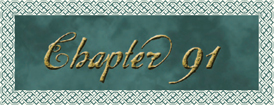
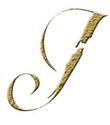 NSIDE CATHEDRAL College, Langdon and Katherine bounded up the basement stairs and hurried down a darkened hallway looking for a front exit. No longer did they hear the sounds of helicopter blades overhead, and Langdon felt hopeful they could slip out unseen and find their way up to Kalorama Heights to see Peter.
NSIDE CATHEDRAL College, Langdon and Katherine bounded up the basement stairs and hurried down a darkened hallway looking for a front exit. No longer did they hear the sounds of helicopter blades overhead, and Langdon felt hopeful they could slip out unseen and find their way up to Kalorama Heights to see Peter.
They found him. He’s alive.
Thirty seconds earlier, when they’d hung up with the female security guard, Katherine had hurriedly hoisted the steaming pyramid and capstone out of the water. The pyramid was still dripping when she lowered it into Langdon’s leather bag. Now he could feel the heat radiating through the leather.
Excitement over Peter’s discovery had temporarily trumped any further reflection on the capstone’s glowing message—Eight Franklin Square—but there would be time for that once they got to Peter.
As they rounded the corner at the top of the stairs, Katherine stopped short and pointed into a sitting room across the hall. Through the bay window, Langdon could see a sleek black helicopter sitting silent on the lawn. A lone pilot stood beside it, facing away from them and talking on his radio. There was also a black Escalade with tinted windows parked nearby.
Staying in the shadows, Langdon and Katherine moved into the sitting room, and peered out the window to see if they could see the rest of the field team. Thankfully, the huge lawn outside the National Cathedral was empty.
“They must be inside the cathedral,” Langdon said.
“They’re not,” a deep voice said behind them.
Langdon and Katherine wheeled around to see who had spoken. In the doorway of the sitting room, two black-clad figures aimed laser-sighted rifles at them. Langdon could see a glowing red dot dancing on his chest.
“Nice to see you again, Professor,” said a familiar raspy voice. The agents parted, and the tiny form of Director Sato sliced effortlessly through, crossing the sitting room and stopping directly in front of Langdon. “You’ve made some exceedingly poor choices tonight.”
“The police found Peter Solomon,” Langdon declared forcefully. “He’s in bad shape, but he’ll live. It’s over.”
If Sato was surprised Peter had been found, she did not show it. Her eyes were unflinching as she walked to Langdon and stopped only inches away. “Professor, I can assure you, this is nowhere near over. And if the police are now involved, it has only become more serious. As I told you earlier this evening, this is an extremely delicate situation. You never should have run away with that pyramid.”
“Ma’am,” Katherine blurted, “I need to see my brother. You can have the pyramid, but you must let—”
“I must?” Sato demanded, spinning to Katherine. “Ms. Solomon, I assume?” She stared at Katherine with fire in her eyes and then turned back to Langdon. “Put the leather bag on the table.”
Langdon glanced down at the pair of laser sights on his chest. He set the leather bag on the coffee table. An agent approached cautiously, unzipped the bag, and pulled the two sides apart. A little puff of trapped steam billowed up out of the bag. He aimed his light inside, stared for a long, puzzled moment, and then nodded to Sato.
Sato walked over and peered into the bag. The wet pyramid and capstone glistened in the beam of the flashlight. Sato crouched down, looking very closely at the golden capstone, which Langdon realized she had only seen in X-ray.
“The inscription,” Sato demanded. “Does it mean anything to you? ‘The secret hides within The Order’?”
“We’re not sure, ma’am.”
“Why is the pyramid steaming hot?”
“We submerged it in boiling water,” Katherine said without hesitation. “It was part of the process of deciphering the code. We’ll tell you everything, but please let us go see my brother. He’s been through—”
“You boiled the pyramid?” Sato demanded.
“Turn off the flashlight,” Katherine said. “Look at the capstone. You can probably still see.”
The agent flicked off his light, and Sato knelt down before the capstone. Even from where Langdon was standing, he could see that the text on the capstone was still glowing slightly.
“Eight Franklin Square?” Sato said, sounding amazed.
“Yes, ma’am. That text was written with an incandescent lacquer or something. The thirty-third degree was actually—”
“And the address?” Sato demanded. “Is this what this guy wants?”
“Yes,” Langdon said. “He believes the pyramid is a map that will tell him the location of a great treasure—the key to unlocking the Ancient Mysteries.”
Sato looked again at the capstone, her expression one of disbelief. “Tell me,” she said, fear creeping into her voice, “have you contacted this man yet? Have you already given him this address?”
“We tried.” Langdon explained what had happened when they called the man’s cell phone.
Sato listened, running her tongue over her yellow teeth as he spoke. Despite looking ready to erupt with anger over the situation, she turned to one of her agents and spoke in a restrained whisper. “Send him in. He’s in the SUV.”
The agent nodded and spoke into his transceiver.
“Send who in?” Langdon said.
“The only person who has any hope of fixing the goddamn mess you made!”
“What mess?” Langdon fired back. “Now that Peter is safe, everything is—”
“For Christ’s sake!” Sato exploded. “This is not about Peter! I tried to tell you that at the Capitol Building, Professor, but you chose to work against me rather than with me! Now you’ve made an ungodly mess! When you destroyed your cell phone, which, by the way, we were tracking, you cut off your communication with this man. And this address you uncovered—whatever the hell it is—this address was our one chance to catch this lunatic. I needed you to play his game, to provide him with this address so we would know where the hell to catch him!”
Before Langdon could reply, Sato directed the remainder of her wrath at Katherine.
“And you, Ms. Solomon! You knew where this maniac lived? Why didn’t you tell me? You sent a rent-a-cop to this man’s house? Don’t you see you’ve ruined any chance we had of catching him there? I’m glad your brother is safe, but let me tell you this, we are facing a crisis tonight whose ramifications far outreach your family. They will be felt all around the world. The man who took your brother has enormous power, and we need to catch him immediately.”
As she finished her tirade, the tall, elegant silhouette of Warren Bellamy emerged from the shadows and stepped into the sitting room. He looked rumpled, bruised, and shaken … like he’d been through hell.
“Warren!” Langdon stood up. “Are you okay?”
“No,” he replied. “Not really.”
“Did you hear? Peter is safe!”
Bellamy nodded, looking dazed, as if nothing mattered anymore. “Yes, I just heard your conversation. I’m glad.”
“Warren, what the hell is going on?”
Sato intervened. “You boys can catch up in a minute. Right now, Mr. Bellamy is going to reach out to this lunatic and communicate with him. Just like he’s been doing all night.”
Langdon felt lost. “Bellamy hasn’t been communicating with this guy tonight! This guy doesn’t even know Bellamy is involved!”
Sato turned to Bellamy and raised her eyebrows.
Bellamy sighed. “Robert, I’m afraid I haven’t been entirely honest with you this evening.”
Langdon could only stare.
“I thought I was doing the right thing …” Bellamy said, looking frightened.
“Well,” Sato said, “now you will do the right thing … and we’d all better pray to God it works.” As if to substantiate Sato’s portentous tone, the mantel clock began chiming the hour. Sato took out a Ziploc bag of items and tossed it to Bellamy. “Here’s your stuff. Does your cell phone take photos?”
“Yes, ma’am.”
“Good. Hold up the capstone.”
The message Mal’akh had just received was from his contact—Warren Bellamy—the Mason he had sent to the Capitol Building earlier tonight to assist Robert Langdon. Bellamy, like Langdon, wanted Peter Solomon back alive and had assured Mal’akh he would help Langdon acquire and decipher the pyramid. All night, Mal’akh had been receiving e-mail updates, which had been automatically forwarded to his cell phone.
This should be interesting, Mal’akh thought, opening the message.
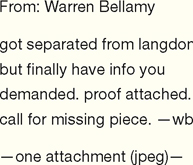
Call for missing piece? Mal’akh wondered, opening the attachment.
The attachment was a photo.
When Mal’akh saw it, he gasped out loud, and he could feel his heart start pounding with excitement. He was looking at a close-up of a tiny golden pyramid. The legendary capstone! The ornate engraving on the face carried a promising message: The secret hides within The Order.
Beneath the inscription, Mal’akh now saw something that stunned him. The capstone seemed to be glowing. In disbelief, he stared at the faintly radiant text and realized that the legend was literally true: The Masonic Pyramid transforms itself to reveal its secret to the worthy.
How this magical transformation had occurred, Mal’akh had no idea, and he didn’t care. The glowing text was clearly pointing to a specific location in D.C., exactly as prophesied. Franklin Square. Unfortunately, the photo of the capstone also included Warren Bellamy’s index finger, which was strategically positioned on the capstone to block out a critical piece of information.

Call for missing piece. Mal’akh now understood Bellamy’s meaning.
The Architect of the Capitol had been cooperative all night, but now he had chosen to play a very dangerous game.
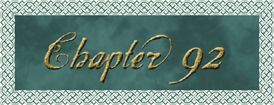
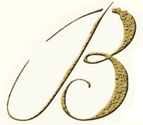 ENEATH THE watchful gaze of several armed CIA agents, Langdon, Katherine, and Bellamy waited with Sato in the Cathedral College sitting room. On the coffee table before them, Langdon’s leather bag was still open, the golden capstone peeking out the top. The words Eight Franklin Square had now faded away, leaving no evidence that they had ever existed.
ENEATH THE watchful gaze of several armed CIA agents, Langdon, Katherine, and Bellamy waited with Sato in the Cathedral College sitting room. On the coffee table before them, Langdon’s leather bag was still open, the golden capstone peeking out the top. The words Eight Franklin Square had now faded away, leaving no evidence that they had ever existed.
Katherine had pleaded with Sato to let her go see her brother, but Sato had simply shaken her head, eyes fixed on Bellamy’s cell phone. It sat on the coffee table and had yet to ring.
Why didn’t Bellamy just tell me the truth? Langdon wondered. Apparently, the Architect had been in contact with Peter’s captor all night, reassuring him that Langdon was making progress deciphering the pyramid. It was a bluff, an attempt to buy time for Peter. In fact, Bellamy was doing all he could to interfere with anyone who threatened to unveil the pyramid’s secret. Now, however, it seemed that Bellamy had switched sides. He and Sato were now prepared to risk the pyramid’s secret in hopes of catching this man.
“Take your hands off me!” shouted an elderly voice in the hall. “I’m blind, not inept! I know my way through the college!” Dean Galloway was still protesting loudly as a CIA agent manhandled him into the sitting room and forced him into one of the chairs.
“Who’s here?” Galloway demanded, his blank eyes staring dead ahead. “It sounds like a lot of you. How many do you need to detain an old man? Really now!”
“There are seven of us,” Sato declared. “Including Robert Langdon, Katherine Solomon, and your Masonic brother Warren Bellamy.”
Galloway slumped, all his bluster gone.
“We’re okay,” Langdon said. “And we just heard that Peter is safe. He’s in bad shape, but the police are with him.”
“Thank heavens,” Galloway said. “And the—”
A loud rattling caused everyone in the room to jump. It was Bellamy’s cell phone vibrating against the coffee table. Everyone fell silent.
“Okay, Mr. Bellamy,” Sato said. “Don’t blow it. You know the stakes.”
Bellamy took a deep breath and exhaled. Then he reached down and pressed the speakerphone button to connect the call.
“Bellamy here,” he said, speaking loudly toward the phone on the coffee table.
The voice that crackled back through the speaker was familiar, an airy whisper. It sounded like he was calling from a hands-free speakerphone inside a car. “It’s past midnight, Mr. Bellamy. I was about to put Peter out of his misery.”
There was an uneasy silence in the room. “Let me talk to him.”
“Impossible,” the man replied. “We’re driving. He’s tied up in the trunk.”
Langdon and Katherine exchanged looks and then began shaking their heads at everyone. He’s bluffing! He no longer has Peter!
Sato motioned for Bellamy to keep pressing.
“I want proof that Peter’s alive,” Bellamy said. “I’m not giving you the rest of—”
“Your Worshipful Master needs a doctor. Don’t waste time with negotiations. Tell me the street number on Franklin Square, and I’ll bring Peter to you there.”
“I told you, I want—”
“Now!” the man exploded. “Or I will pull over and Peter Solomon dies this instant!”
“You listen to me,” Bellamy said forcefully. “If you want the rest of the address, you’ll play by my rules. Meet me at Franklin Square. Once you deliver Peter alive, I’ll tell you the number of the building.”
“How do I know you won’t bring the authorities?”
“Because I can’t risk double-crossing you. Peter’s life is not the only card you hold. I know what’s really at stake tonight.”
“You do realize,” the man on the phone said, “that if I sense so much as a hint of anyone other than you at Franklin Square, I will keep driving, and you will never find even a trace of Peter Solomon. And of course … that will be the least of your worries.”
“I’ll come alone,” Bellamy replied somberly. “When you turn over Peter, I’ll give you everything you need.”
“Center of the square,” the man said. “It will take me at least twenty minutes to get there. I suggest you wait for me as long as it takes.”
The line went dead.
Instantly, the room sprang to life. Sato began shouting orders. Several field agents grabbed their radios and headed for the door. “Move! Move!”
In the chaos, Langdon looked to Bellamy for some kind of explanation as to what was actually going on tonight, but the older man was already being hurried out the door.
“I need to see my brother!” Katherine shouted. “You have to let us go!”
Sato walked over to Katherine. “I don’t have to do anything, Ms. Solomon. Is that clear?”
Katherine stood her ground and looked desperately into Sato’s small eyes.
“Ms. Solomon, my top priority is apprehending the man at Franklin Square, and you will sit here with one of my men until I accomplish that task. Then, and only then, will we deal with your brother.”
“You’re missing the point,” Katherine said. “I know exactly where this man lives! It’s literally five minutes up the road in Kalorama Heights, and there will be evidence there that will help you! Besides, you said you want to keep this quiet. Who knows what Peter will start telling the authorities once he’s stabilized.”
Sato pursed her lips, apparently registering Katherine’s point. Outside, the chopper blades began winding up. Sato frowned and then turned to one of her men. “Hartmann, you take the Escalade. Transport Ms. Solomon and Mr. Langdon to Kalorama Heights. Peter Solomon is not to speak to anyone. Is that understood?”
“Yes, ma’am,” the agent said.
“Call me when you get there. Tell me what you find. And don’t let these two out of your sight.”
Agent Hartmann gave a quick nod, pulled out the Escalade keys, and headed for the door.
Katherine was right behind him.
Sato turned to Langdon. “I’ll see you shortly, Professor. I know you think I’m the enemy, but I can assure you that’s not the case. Get to Peter at once. This isn’t over yet.”
Off to one side of Langdon, Dean Galloway was sitting quietly at the coffee table. His hands had found the stone pyramid, which was still sitting in Langdon’s open leather bag on the table in front of him. The old man was running his hands over the stone’s warm surface.
Langdon said, “Father, are you coming to see Peter?”
“I’d just slow you down.” Galloway removed his hands from the bag and zipped it up around the pyramid. “I’ll stay right here and pray for Peter’s recovery. We can all speak later. But when you show Peter the pyramid, would you please tell him something for me?”
“Of course.” Langdon hoisted the bag onto his shoulder.
“Tell him this.” Galloway cleared his throat. “The Masonic Pyramid has always kept her secret … sincerely.”
The old man winked. “Just tell Peter that. He will understand.”
With that, Dean Galloway bowed his head and began praying.
Perplexed, Langdon left him there and hurried outside. Katherine was already in the front seat of the SUV giving the agent directions. Langdon climbed in back and had barely closed the door before the giant vehicle was rocketing across the lawn, racing northward to Kalorama Heights.
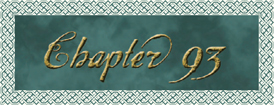
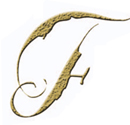 RANKLIN SQUARE is located in the northwest quadrant of downtown Washington, bordered by ? and Thirteenth streets. It is home to many historic buildings, most notably the Franklin School, from which Alexander Graham Bell sent the world’s first wireless message in 1880.
RANKLIN SQUARE is located in the northwest quadrant of downtown Washington, bordered by ? and Thirteenth streets. It is home to many historic buildings, most notably the Franklin School, from which Alexander Graham Bell sent the world’s first wireless message in 1880.
High above the square, a fast-moving UH-60 helicopter approached from the west, having completed its journey from the National Cathedral in a matter of minutes. Plenty of time, Sato thought, peering down at the square below. She knew it was critical that her men got into position undetected before their target arrived. He said he wouldn’t be here for at least twenty minutes.
On Sato’s command, the pilot performed a “touch-hover” on the roof of the tallest building around—the renowned One Franklin Square—a towering and prestigious office building with two gold spires on top. The maneuver was illegal, of course, but the chopper was there only a few seconds, and its skids barely touched the gravel rooftop. Once everyone had jumped out, the pilot immediately lifted off, banking to the east, where he would climb to “silent altitude” and provide invisible support from above.
Sato waited as her field team collected their things and prepared Bellamy for his task. The Architect was still looking dazed from having seen the file on Sato’s secure laptop. As I said … an issue of national security. Bellamy had quickly understood Sato’s meaning and was now fully cooperative.
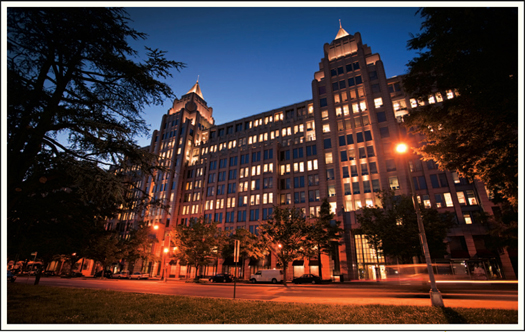
FRANKLIN SQUARE
93.1: © Richard Nowitz
“All set, ma’am,” Agent Simkins said.
On Sato’s command, the agents ushered Bellamy across the rooftop and disappeared down a stairwell, heading for ground level to take up their positions.
Sato walked to the edge of the building and gazed down. The rectangular wooded park below filled the entire block. Plenty of cover. Sato’s team fully understood the importance of making an undetected intercept. If their target sensed a presence here and decided just to slip away … the director didn’t even want to think about it.
The wind up here was gusty and cold. Sato wrapped her arms around herself, and planted her feet firmly to avoid getting blown over the edge. From this high vantage point, Franklin Square looked smaller than she recalled, with fewer buildings. She wondered which building was Eight Franklin Square. This was information she had requested from her analyst Nola, from whom she expected word at any moment.
Bellamy and the agents now appeared, looking like ants fanning out into the darkness of the wooded area. Simkins positioned Bellamy in a clearing near the center of the deserted park. Then Simkins and his team melted into the natural cover, disappearing from view. Within seconds, Bellamy was alone, pacing and shivering in the light of a streetlamp near the center of the park. Sato felt no pity.
She lit a cigarette and took a long drag, savoring the warmth as it permeated her lungs. Satisfied that everything below was in order, she stepped back from the edge to await her two phone calls—one from her analyst Nola and one from Agent Hartmann, whom she had sent to Kalorama Heights.
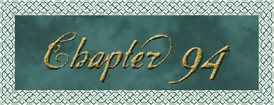
 LOW DOWN! Langdon gripped the backseat of the Escalade as it flew around a corner, threatening to tip up on two tires. CIA agent Hartmann was either eager to show off his driving skills to Katherine, or he had orders to get to Peter Solomon before Solomon recuperated enough to say anything he shouldn’t say to the local authorities.
LOW DOWN! Langdon gripped the backseat of the Escalade as it flew around a corner, threatening to tip up on two tires. CIA agent Hartmann was either eager to show off his driving skills to Katherine, or he had orders to get to Peter Solomon before Solomon recuperated enough to say anything he shouldn’t say to the local authorities.
The high-speed game of beat-the-red-light on Embassy Row had been worrisome enough, but now they were racing through the winding residential neighborhood of Kalorama Heights. Katherine shouted directions as they went, having been to this man’s house earlier that afternoon.
With every turn, the leather bag at Langdon’s feet rocked back and forth, and Langdon could hear the clank of the capstone, which had clearly been jarred from the top of the pyramid and was now bouncing around in the bottom of his bag. Fearing it might get damaged, he fished around inside until he found it. It was still warm, but the glowing text had now faded and disappeared, returning to its original engraving:
The secret hides within The Order.
As Langdon was about to place the capstone in a side pocket, he noticed its elegant surface was covered with tiny white gobs of something. Puzzled, he tried to wipe them off, but they were stuck on and hard to the touch … like plastic. What in the world? He could now see that the surface of the stone pyramid itself was also covered with the little white dots. Langdon used his fingernail and picked one off, rolling it between his fingers.
“Wax?” he blurted.
Katherine glanced over her shoulder. “What?”
“There are bits of wax all over the pyramid and capstone. I don’t understand it. Where could that possibly have come from?”
“Something in your bag, maybe?”
“I don’t think so.”
As they rounded a corner, Katherine pointed through the windshield and turned to Agent Hartmann. “That’s it! We’re here.”
Langdon glanced up and saw the spinning lights of a security vehicle parked in a driveway up ahead. The driveway gate was pulled aside and the agent gunned the SUV inside the compound.
The house was a spectacular mansion. Every light inside was ablaze, and the front door was wide open. A half-dozen vehicles were parked haphazardly in the driveway and on the lawn, apparently having arrived in a hurry. Some of the cars were still running and had their headlights shining, most on the house, but one askew, practically blinding them as they drove in.
Agent Hartmann skidded to a stop on the lawn beside a white sedan with a brightly colored decal: PREFERRED SECURITY. The spinning lights and the high beams in their face made it hard to see.
Katherine immediately jumped out and raced for the house. Langdon heaved his bag onto his shoulder without taking the time to zip it up. He followed Katherine at a jog across the lawn toward the open front door. The sounds of voices echoed within. Behind Langdon, the SUV chirped as Agent Hartmann locked the vehicle and hurried after them.
Katherine bounded up the porch stairs, through the main door, and disappeared into the entryway. Langdon crossed the threshold behind her and could see Katherine was already moving across the foyer and down the main hallway toward the sound of voices. Beyond her, visible at the end of the hall, was a dining-room table where a woman in a security uniform was sitting with her back to them.
“Officer!” Katherine shouted as she ran. “Where is Peter Solomon?”
Langdon rushed after her, but as he did so, an unexpected movement caught his eye. To his left, through the living-room window, he could see the driveway gate was now swinging shut. Odd. Something else caught his eye … something that had been hidden from him by the glare of the spinning lights and the blinding high beams when they drove in. The half-dozen cars parked haphazardly in the driveway looked nothing like the police cars and emergency vehicles Langdon had imagined they were.
A Mercedes? … a Hummer? … a Tesla Roadster?
In that instant, Langdon also realized the voices he heard in the house were nothing but a television blaring in the direction of the dining room.
Wheeling in slow motion, Langdon shouted down the hallway. “Katherine, wait!” But as he turned, he could see that Katherine Solomon was no longer running. She was airborne.
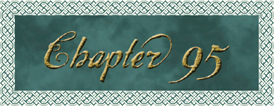
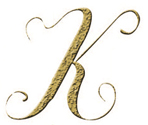 ATHERINE SOLOMON knew she was falling … but she couldn’t figure out why.
ATHERINE SOLOMON knew she was falling … but she couldn’t figure out why.
She had been running down the hall toward the security guard in the dining room when suddenly her feet had become entangled in an invisible obstacle, and her entire body had lurched forward, sailing through the air. Now she was returning to earth … in this case, a hardwood floor. Katherine crashed down on her stomach, the wind driven violently from her lungs. Above her, a heavy coat tree teetered precariously and then toppled over, barely missing her on the floor. She raised her head, still gasping for breath, puzzled to see that the female security guard in the chair had not moved a muscle. Stranger still, the toppled coat tree appeared to have a thin wire attached to the bottom, which had been stretched across the hallway.
Why in the world would someone … ?
“Katherine!” Langdon was shouting to her, and as Katherine rolled onto her side and looked back at him, she felt her blood turn to ice. Robert! Behind you! She tried to scream, but she was still gasping for breath. All she could do was watch in terrifying slow motion as Langdon rushed down the hall to help her, completely unaware that behind him, Agent Hartmann was staggering across the threshold and clutching his throat. Blood sprayed through Hartmann’s hands as he groped at the handle of a long screwdriver that protruded from his neck.
As the agent pitched forward, his attacker came into full view.
My God … no!
Naked except for a strange undergarment that looked like a loincloth, the massive man had apparently been hiding in the foyer. His muscular body was covered from head to toe with strange tattoos. The front door was swinging closed, and he was rushing down the hall after Langdon.
Agent Hartmann hit the floor just as the front door slammed shut. Langdon looked startled and whirled around, but the tattooed man was already on him, thrusting some kind of device into his back. There was a flash of light and a sharp electrical sizzle, and Katherine saw Langdon go rigid. Eyes frozen wide, Langdon lurched forward, collapsing down in a paralyzed heap. He fell hard on top of his leather bag, the pyramid tumbling out onto the floor.
Without so much as a glance down at his victim, the tattooed man stepped over Langdon and headed directly for Katherine. She was already crawling backward into the dining room, where she collided with a chair. The female security guard, who had been propped in that chair, now wobbled and dropped to the floor in a heap beside her. The woman’s lifeless expression was one of terror. Her mouth was stuffed with a rag.
The enormous man had reached her before Katherine had time to react. He seized her by the shoulders with impossible strength. His face, no longer covered by makeup, was an utterly terrifying sight. His muscles flexed, and she felt herself being flipped over onto her stomach like a rag doll. A heavy knee ground into her back, and for a moment, she thought she would break in two. He grabbed her arms and pulled them backward.
With her head now turned to one side and her cheek pressed into the carpet, Katherine could see Langdon, his body still jerking, facing away from her. Beyond that, Agent Hartmann lay motionless in the foyer.
Cold metal pinched Katherine’s wrists, and she realized she was being bound with wire. In terror, she tried to pull away, but doing so sent searing pain into her hands.
“This wire will cut you if you move,” the man said, finishing with her wrists and moving down to her ankles with frightening efficiency.
Katherine kicked at him, and he threw a powerful fist into the back of her right thigh, crippling her leg. Within seconds, her ankles were bound.
“Robert!” she now managed to call out.
Langdon was groaning on the floor in the hallway. He lay crumpled on his leather bag with the stone pyramid lying on its side near his head. Katherine realized the pyramid was her last hope.
“We deciphered the pyramid!” she told her attacker. “I’ll tell you everything!”
“Yes, you will.” With that, he pulled the cloth from the dead woman’s mouth and firmly stuffed it into Katherine’s.
It tasted like death.
Robert Langdon’s body was not his own. He lay, numb and immobile, his cheek pressed against the hardwood floor. He had heard enough about stun guns to know they crippled their victims by temporarily overloading the nervous system. Their action—something called electromuscular disruption—might as well have been a bolt of lightning. The excruciating jolt of pain seemed to penetrate every molecule of his body. Now, despite his mind’s focused intention, his muscles refused to obey the command he was sending them.
Get up!
Facedown, paralyzed on the floor, Langdon was gulping shallow breaths, scarcely able to inhale. He had yet to lay eyes on the man who had attacked him, but he could see Agent Hartmann lying in an expanding pool of blood. Langdon had heard Katherine struggling and arguing, but moments ago her voice had become muffled, as if the man had stuffed something in her mouth.
Get up, Robert! You’ve got to help her!
Langdon’s legs were tingling now, a fiery and painful recovery of feeling, but still they refused to cooperate. Move! His arms twitched as sensation started to come back, along with feeling in his face and neck. With great effort, he managed to rotate his head, dragging his cheek roughly across the hardwood floor as he turned his head to look down into the dining room.
Langdon’s sight line was impeded—by the stone pyramid, which had toppled out of his bag and was lying sideways on the floor, its base inches from his face.
For an instant, Langdon didn’t understand what he was looking at. The square of stone before him was obviously the base of the pyramid, and yet it looked somehow different. Very different. It was still square, and still stone … but it was no longer flat and smooth. The base of the pyramid was covered with engraved markings. How is this possible? He stared for several seconds, wondering if he was hallucinating. I looked at the base of this pyramid a dozen times … and there were no markings!
Langdon now realized why.
His breathing reflex kick-started, and he drew a sudden gasp of air, realizing that the Masonic Pyramid had secrets yet to share. I have witnessed another transformation.
In a flash, Langdon understood the meaning of Galloway’s last request. Tell Peter this: The Masonic Pyramid has always kept her secret … sincerely. The words had seemed strange at the time, but now Langdon understood that Dean Galloway was sending Peter a code. Ironically, this same code had been a plot twist in a mediocre thriller Langdon had read years ago.
Sin-cere.
Since the days of Michelangelo, sculptors had been hiding the flaws in their work by smearing hot wax into the cracks and then dabbing the wax with stone dust. The method was considered cheating, and therefore, any sculpture “without wax”—literally sine cera—was considered a “sincere” piece of art. The phrase stuck. To this day we still sign our letters “sincerely” as a promise that we have written “without wax” and that our words are true.

The engravings on the base of this pyramid had been concealed by the same method. When Katherine followed the capstone’s directions and boiled the pyramid, the wax melted away, revealing the writing on the base. Galloway had run his hands over the pyramid in the sitting room, apparently feeling the markings exposed on the bottom.
Now, if only for an instant, Langdon had forgotten all the danger he and Katherine faced. He stared at the incredible array of symbols on the base of the pyramid. He had no idea what they meant … or what they would ultimately reveal, but one thing was for certain. The Masonic Pyramid has secrets left to tell. Eight Franklin Square is not the final answer.
Whether it was this adrenaline-filled revelation or simply the extra few seconds lying there, Langdon did not know, but he suddenly felt control returning to his body.
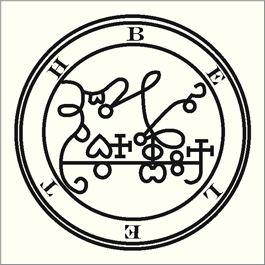
SIGIL
Painfully, he swept an arm to one side, pushing the leather bag out of the way to clear his sight line into the dining room.
To his horror, he saw that Katherine had been tied up, and a large rag had been stuffed deep into her mouth. Langdon flexed his muscles, trying to climb to his knees, but a moment later, he froze in utter disbelief. The dining-room doorway had just filled with a chilling sight—a human form unlike anything Langdon had ever seen.
What in the name of God … ?!
Langdon rolled, kicking with his legs, trying to back away, but the huge tattooed man grabbed him, flipping him onto his back and straddling his chest. He placed his knees on Langdon’s biceps, pinning Langdon painfully to the floor. The man’s chest bore a rippling double-headed phoenix. His neck, face, and shaved head were covered with a dazzling array of unusually intricate symbols—sigils, Langdon knew—which were used in the rituals of dark ceremonial magic.
Before Langdon could process anything more, the huge man clasped Langdon’s ears between his palms, lifted his head up off the floor, and, with incredible force, smashed it back down onto the hardwood.
Everything went black.
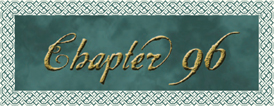
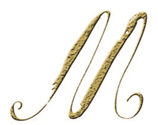 AL’AKH STOOD in his hallway and surveyed the carnage around him. His home looked like a battlefield.
AL’AKH STOOD in his hallway and surveyed the carnage around him. His home looked like a battlefield.
Robert Langdon lay unconscious at his feet.
Katherine Solomon was bound and gagged on the dining-room floor. The corpse of a female security guard lay crumpled nearby, having toppled off the chair where she was propped. This female guard, eager to save her own life, had done exactly as Mal’akh commanded. With a knife to her throat, she had answered Mal’akh’s cell phone and told the lie that had coaxed Langdon and Katherine to come racing out here. She had no partner, and Peter Solomon was certainly not okay. As soon as the woman had given her performance, Mal’akh had quietly strangled her.
To complete the illusion that Mal’akh was not home, he had phoned Bellamy using the hands-free speaker in one of his cars. I’m on the road, he had told Bellamy and whoever else had been listening. Peter is in my trunk. In fact, Mal’akh was driving only between his garage and his front yard, where he had left several of his myriad cars parked askew with the headlights on and the engines running.
The deception had worked perfectly.
Almost.
The only wrinkle was the bloody black-clad heap in the foyer with a screwdriver protruding from his neck. Mal’akh searched the corpse and had to chuckle when he found a high-tech transceiver and cell phone with a CIA logo. It seems even they are aware of my power. He removed the batteries and crushed both devices with a heavy bronze doorstop.
Mal’akh knew he had to move quickly now, especially if the CIA was involved. He strode back over to Langdon. The professor was out cold and would be for a while. Mal’akh’s eyes moved with trepidation now to the stone pyramid on the floor beside the professor’s open bag. His breath caught, and his heart pounded.
I have waited for years …
His hands trembled slightly as he reached down and picked up the Masonic Pyramid. As he ran his fingers slowly across the engravings, he felt awed by their promise. Before he became too entranced, he put the pyramid back in Langdon’s bag with the capstone and zipped it up.
I will assemble the pyramid soon … in a much safer location.
He threw Langdon’s bag over his shoulder and then tried to hoist Langdon himself, but the professor’s toned physique weighed much more than anticipated. Mal’akh settled on grabbing him beneath the armpits and dragging him across the floor. He’s not going to like where he ends up, Mal’akh thought.
As he dragged Langdon off, the television in the kitchen blared. The sound of voices from the TV had been part of the deception, and Mal’akh had yet to turn it off. The station was now broadcasting a televangelist leading his congregation in the Lord’s Prayer. Mal’akh wondered if any of his hypnotized viewers had any idea where this prayer really came from.
“… On earth as it is in heaven …” the group intoned.
Yes, Mal’akh thought. As above, so below.
“… And lead us not into temptation …”
Help us master the weakness of our flesh.
“… Deliver us from evil …” they all beseeched.
Mal’akh smiled. That could be difficult. The darkness is growing. Even so, he had to give them credit for trying. Humans who spoke to invisible forces and requested help were a dying breed in this modern world.
Mal’akh was dragging Langdon across the living room when the congregation declared, “Amen!”
Amon, Mal’akh corrected. Egypt is the cradle of your religion. The god Amon was the prototype for Zeus … for Jupiter … and for every modern face of God. To this day, every religion on earth shouted out a variation of his name. Amen! Amin! Aum!
The televangelist began quoting verses from the Bible describing hierarchies of angels, demons, and spirits that ruled in heaven and hell. “Protect your souls from evil forces!” he warned them. “Lift your hearts in prayer! God and his angels will hear you!”
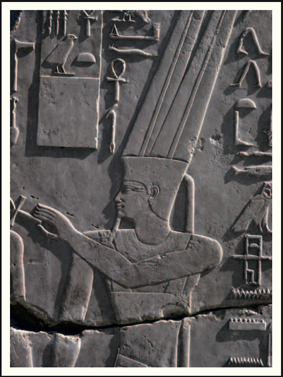
EGYPTIAN GOD AMON
96.1: Erich Lessing/Art Resource, NY
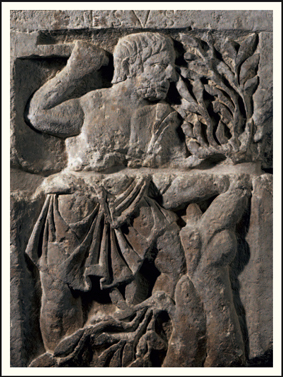
GREEK GOD ZEUS
96.2: Réunion des Musées Nationaux/Art Resource, NY
He’s right, Mal’akh knew. But so will the demons.
Mal’akh had learned long ago that through proper application of the Art, a practitioner could open a portal to the spiritual realm. The invisible forces that existed there, much like man himself, came in many forms, both good and evil. Those of Light healed, protected, and sought to bring order to the universe. Those of Dark functioned oppositely … bringing destruction and chaos.
If properly summoned, the invisible forces could be persuaded to do a practitioner’s bidding on earth … thus instilling him with seemingly supernatural power. In exchange for helping the summoner, these forces required offerings—prayers and praise for those of Light … and the spilling of blood for those of Dark.
The greater the sacrifice, the greater the power that is transferred. Mal’akh had begun his practice with the blood of inconsequential animals. Over time, however, his choices for sacrifice had become more bold. Tonight, I take the final step.
“Beware!” the preacher shouted, warning of the coming Apocalypse. “The final battle for the souls of man will soon be fought!”
Indeed, Mal’akh thought. And I shall become its greatest warrior.
This battle, of course, had begun long, long ago. In ancient Egypt, those who perfected the Art had become the great Adepts of history, evolving beyond the masses to become true practitioners of Light. They moved as gods on earth. They built great temples of initiation to which neophytes traveled from around the world to partake of the wisdom. There arose a race of golden men. For a brief span of time, mankind seemed poised to elevate himself and transcend his earthly bonds.
The golden age of the Ancient Mysteries.
And yet man, being of the flesh, was susceptible to the sins of hubris, hatred, impatience, and greed. Over time, there were those who corrupted the Art, perverting it and abusing its power for personal gain. They began using this perverted version to summon dark forces. A different Art evolved … a more potent, immediate, and intoxicating influence.
Such is my Art.
Such is my Great Work.
The illuminated Adepts and their esoteric fraternities witnessed the rising evil and saw that man was not using his newfound knowledge for the good of his species. And so they hid their wisdom to keep it from the eyes of the unworthy. Eventually, it was lost to history.
With this came the Great Fall of Man.
And a lasting darkness.
To this day, the noble descendants of the Adepts soldiered on, grasping blindly for the Light, trying to recapture the lost power of their past, trying to keep the darkness at bay. They were the priests and priestesses of the churches, temples, and shrines of all the religions on earth. Time had erased the memories … detached them from their past. They no longer knew the Source from which their potent wisdom had once flowed. When they were asked about the divine mysteries of their forebears, the new custodians of faith vociferously disowned them, condemning them as heresy.
Have they truly forgotten? Mal’akh wondered.
Echoes of the ancient Art still resonated in every corner of the globe, from the mystical Kabbalists of Judaism to the esoteric Sufis of Islam. Vestiges remained in the arcane rituals of Christianity, in its god-eating rites of Holy Communion, its hierarchies of saints, angels, and demons, its chanting and incantation, its holy calendar’s astrological underpinnings, its consecrated robes, and in its promise of everlasting life. Even now, its priests dispelled evil spirits by swinging smoke-filled censers, ringing sacred bells, and sprinkling holy water. Christians still practiced the supernatural craft of exorcism—an early practice of their faith that required the ability not only to cast out demons but to summon them.
And yet they cannot see their past?
Nowhere was the church’s mystical past more evident than at her epicenter. In Vatican City, at the heart of St. Peter’s Square, stood the great Egyptian obelisk. Carved thirteen hundred years before Jesus took his first breath—this numinous monolith had no relevance there, no link to modern Christianity. And yet there it was. At the core of Christ’s church. A stone beacon, screaming to be heard. A reminder to those few sages who remembered where it all began. This church, born of the womb of the Ancient Mysteries, still bore her rites and symbols.
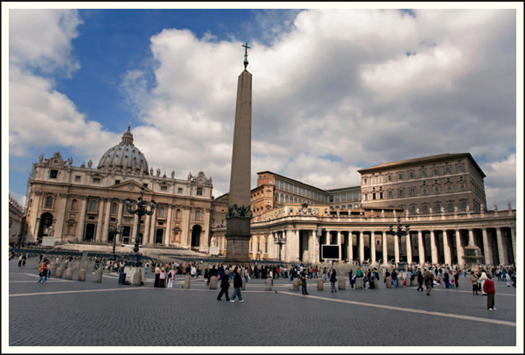
OBELISK IN ST. PETER’S SQUARE, VATICAN CITY, ROME
96.3: Scott S. Warren/National Geographic/Getty Images
One symbol above all.
Adorning her altars, vestments, spires, and Scripture was the singular image of Christianity—that of a precious, sacrificed human being. Christianity, more than any other faith, understood the transformative power of sacrifice. Even now, to honor the sacrifice made by Jesus, his followers proffered their own feeble gestures of personal sacrifice … fasting, Lenten renunciation, tithing.
All of those offerings are impotent, of course. Without blood … there is no true sacrifice.
The powers of darkness had long embraced blood sacrifice, and in doing so, they had grown so strong that the powers of goodness now struggled to keep them in check. Soon the Light would be entirely consumed, and the practitioners of darkness would move freely through the minds of men.
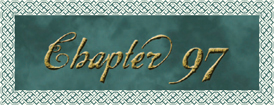
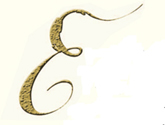 IGHT FRANKLIN SQUARE must exist,” Sato insisted. “Look it up again!”
IGHT FRANKLIN SQUARE must exist,” Sato insisted. “Look it up again!”
Nola Kaye sat at her desk and adjusted her headset. “Ma’am, I’ve checked everywhere … that address doesn’t exist in D.C.”
“But I’m on the roof of One Franklin Square,” Sato said. “There has to be an Eight!”
Director Sato’s on a roof? “Hold on.” Nola began running a new search. She was considering telling the OS director about the hacker, but Sato seemed fixated on Eight Franklin Square at the moment. Besides, Nola still didn’t have all the information. Where’s that damned sys-sec, anyway?
“Okay,” Nola said, eyeing her screen, “I see the problem. One Franklin Square is the name of the building … not the address. The address is actually 1301 K Street.”
The news seemed to confound the director. “Nola, I don’t have time to explain—the pyramid clearly points to the address Eight Franklin Square.”
Nola sat bolt upright. The pyramid points to a specific location?
“The inscription,” Sato continued, “reads: ‘The secret hides within The Order—Eight Franklin Square.’ ”
Nola could scarcely imagine. “An order like … a Masonic or fraternal order?”
“I assume so,” Sato replied.
Nola thought a moment, and then began typing again. “Ma’am, maybe the street numbers on the square changed over the years? I mean, if this pyramid is as old as legend claims, maybe the numbers on Franklin Square were different when the pyramid was built? I’m now running a search without the number eight … for … ‘the order’ … ‘Franklin Square’ … and ‘Washington, D.C.’ … and this way, we might get some idea if there’s—” She stalled midsentence as the search results appeared.
“What have you got?” Sato demanded.
Nola stared at the first result on the list—a spectacular image of the Great Pyramid of Egypt—which served as the thematic backdrop for the home page dedicated to a building on Franklin Square. The building was unlike any other building on the square.
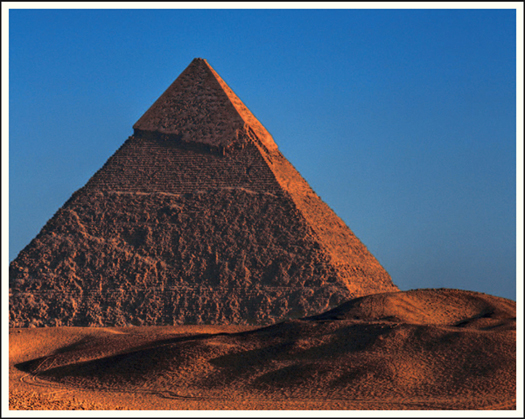
THE GREAT PYRAMID, EGYPT
97.1: Chris Nevins/Flickr/Getty Images
Or in the entire city, for that matter.
What stopped Nola cold was not the building’s bizarre architecture, but rather the description of its purpose. According to the Web site, this unusual edifice was built as a sacred mystical shrine, designed by … and designed for … an ancient secret order.
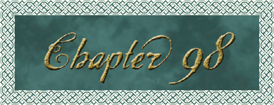
 OBERT LANGDON regained consciousness with a crippling headache.
OBERT LANGDON regained consciousness with a crippling headache.
Where am I?
Wherever he was, it was dark. Deep-cave dark, and deathly silent.
He was lying on his back with his arms at his side. Confused, he tried moving his fingers and toes, relieved to find they moved freely with no pain. What happened? With the exception of his headache and the profound darkness, everything seemed more or less normal.
Almost everything.
Langdon realized he was lying on a hard floor that felt unusually smooth, like a sheet of glass. Stranger still, he could feel that the slick surface was in direct contact with his bare flesh … shoulders, back, buttocks, thighs, calves. Am I naked? Puzzled, he ran his hands over his body.
Jesus! Where the hell are my clothes?
In the darkness, the cobwebs began to lift, and Langdon saw flashes of memory … frightening snapshots … a dead CIA agent … the face of a tattooed beast … Langdon’s head smashing into the floor. The images came faster … and now he recalled the sickening image of Katherine Solomon bound and gagged on the dining-room floor.
My God!
Langdon sat bolt upright, and as he did, his forehead smashed into something suspended only inches above him. Pain exploded through his skull and he fell back, teetering near unconsciousness. Groggy, he reached up with his hands, groping in the darkness to find the obstacle. What he found made no sense to him. It seemed this room’s ceiling was less than a foot above him. What in the world? As he spread his arms to his sides in an attempt to roll over, both of his hands hit sidewalls.
The truth now dawned on him. Robert Langdon was not in a room at all.
I’m in a box!
In the darkness of his small, coffinlike container, Langdon began pounding wildly with his fist. He shouted over and over for help. The terror that gripped him deepened with each passing instant until it was intolerable.
I have been buried alive.
The lid of Langdon’s strange coffin refused to budge, even with the full force of his arms and legs pushing upward in wild panic. The box, from all he could tell, was made of heavy fiberglass. Airtight. Soundproof. Lightproof. Escape-proof.
I am going to suffocate alone in this box.
He thought of the deep well into which he had fallen as a young boy, and of the terrifying night he spent treading water alone in the darkness of a bottomless pit. That trauma had scarred Langdon’s psyche, burdening him with an overwhelming phobia of enclosed spaces.
Tonight, buried alive, Robert Langdon was living his ultimate nightmare.
Katherine Solomon trembled in silence on the floor of Mal’akh’s dining room. The sharp wire around her wrists and ankles had already cut into her, and the slightest movements seemed only to tighten her bonds.
The tattooed man had brutally knocked Langdon unconscious and dragged his limp body across the floor along with his leather bag and the stone pyramid. Where they had gone, Katherine had no idea. The agent who had accompanied them was dead. She had not heard a sound in many minutes, and she wondered if the tattooed man and Langdon were still inside the house. She had been trying to scream for help, but with each attempt, the rag in her mouth crept back dangerously closer to her windpipe.
Now she felt approaching footsteps on the floor, and she turned her head, hoping against hope that someone was coming to help. The massive silhouette of her captor materialized in the hallway. Katherine recoiled as she flashed on the image of him standing in her family home ten years earlier.
He killed my family.
Now he strode toward her. Langdon was nowhere to be seen. The man crouched down and gripped her around the waist, hoisting her roughly onto his shoulder. The wire sliced into her wrists, and the rag muffled her muted cries of pain. He carried her down the hallway toward the living room, where, earlier today, the two of them had calmly sipped tea together.
Where is he taking me?!
He carried Katherine across the living room and stopped directly in front of the large oil painting of the Three Graces that she had admired this afternoon.
“You mentioned you liked this painting,” the man whispered, his lips practically touching her ear. “I’m glad. It may be the last thing of beauty you see.”
With that, he reached out and pressed his palm into the right side of the enormous frame. To Katherine’s shock, the painting rotated into the wall, turning on a central pivot like a revolving door. A hidden doorway.
Katherine tried to wriggle free, but the man held her firmly, carrying her through the opening behind the canvas. As the Three Graces pivoted shut behind them, she could see heavy insulation on the back of the canvas. Whatever sounds were made back here were apparently not meant to be heard by the outside world.
The space behind the painting was cramped, more like a hallway than a room. The man carried her to the far side and opened a heavy door, carrying her through it onto a small landing. Katherine found herself looking down a narrow ramp into a deep basement. She drew a breath to scream, but the rag was choking her.
The incline was steep and narrow. The walls on either side were made of cement, awash in a bluish light that seemed to emanate from below. The air that wafted up was warm and pungent, laden with an eerie blend of smells … the sharp bite of chemicals, the smooth calm of incense, the earthy musk of human sweat, and, pervading it all, a distinct aura of visceral, animal fear.
“Your science impressed me,” the man whispered as they reached the bottom of the ramp. “I hope mine impresses you.”
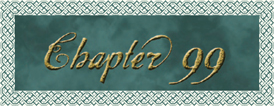
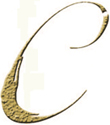 IA FIELD AGENT Turner Simkins crouched in the darkness of Franklin Park and kept his steady gaze on Warren Bellamy. Nobody had taken the bait yet, but it was still early.
IA FIELD AGENT Turner Simkins crouched in the darkness of Franklin Park and kept his steady gaze on Warren Bellamy. Nobody had taken the bait yet, but it was still early.
Simkins’s transceiver beeped, and he activated it, hoping one of his men had spotted something. But it was Sato. She had new information.
Simkins listened and agreed with her concern. “Hold on,” he said. “I’ll see if I can get a visual.” He crawled through the bushes in which he was hiding and peered back in the direction from which he had entered the square. After some maneuvering, he finally opened a sight line.
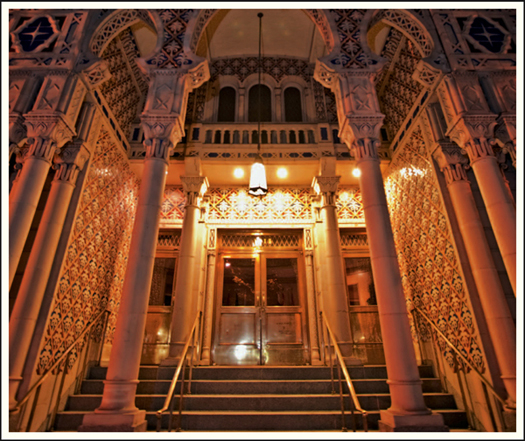
ENTRYWAY TO THE ALMAS SHRINE TEMPLE
99.1: © Richard Nowitz
Holy shit.
He was staring at a building that looked like an Old World mosque. Nestled between two much larger buildings, the Moorish facade was made of gleaming terracotta tile laid in intricate multicolored designs. Above the three massive doors, two tiers of lancet windows looked as if Arabian archers might appear and open fire if anyone approached uninvited.
“I see it,” Simkins said.
“Any activity?”
“Nothing.”
“Good. I need you to reposition and watch it very carefully. It’s called the Almas Shrine Temple, and it’s the headquarters of a mystical order.”
Simkins had worked in the D.C. area for a long time but was not familiar with this temple or any ancient mystical order headquartered on Franklin Square.
“This building,” Sato said, “belongs to a group called the Ancient Arabic Order of Nobles of the Mystic Shrine.”
“Never heard of them.”
“I think you have,“ Sato said. “They’re an appendant body of the Masons, more commonly known as the Shriners.”
Simkins shot a dubious glance at the ornate building. The Shriners? The guys who build hospitals for kids? He could imagine no “order” less ominous sounding than a fraternity of philanthropists who wore little red fezzes and marched in parades.
Even so, Sato’s concerns were valid. “Ma’am, if our target realizes that this building is in fact ‘The Order’ on Franklin Square, he won’t need the address. He’ll simply bypass the rendezvous and go directly to the correct location.”
“My thoughts exactly. Keep an eye on the entrance.”
“Yes, ma’am.”
“Any word from Agent Hartmann in Kalorama Heights?”
“No, ma’am. You asked him to phone you directly.”
“Well, he hasn’t.”
Odd, Simkins thought, checking his watch. He’s overdue.
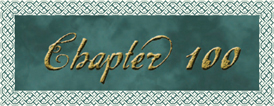
 OBERT LANGDON lay shivering, naked and alone in total blackness. Paralyzed by fear, he was no longer pounding or shouting. Instead, he had closed his eyes and was doing his best to control his hammering heart and his panicked breathing.
OBERT LANGDON lay shivering, naked and alone in total blackness. Paralyzed by fear, he was no longer pounding or shouting. Instead, he had closed his eyes and was doing his best to control his hammering heart and his panicked breathing.
You are lying beneath a vast, nighttime sky, he tried to convince himself. There is nothing above you but miles of wide-open space.
This calming visualization had been the only way he had managed to survive a recent stint in an enclosed MRI machine … that and a triple dose of Valium. Tonight, however, the visualization was having no effect whatsoever.
The rag in Katherine Solomon’s mouth had shifted backward and was all but choking her. Her captor had carried her down a narrow ramp and into a dark basement corridor. At the far end of the hall, she had glimpsed a room lit with an eerie reddish-purple light, but they’d never made it that far. The man had stopped instead at a small side room, carried her inside, and placed her on a wooden chair. He had set her down with her bound wrists behind the chair back so she could not move.
Now Katherine could feel the wire on her wrists slicing deeper into her flesh. The pain barely registered next to the rising panic she was feeling over being unable to breathe. The cloth in her mouth was slipping deeper into her throat, and she felt herself gagging reflexively. Her vision started to tunnel.
Behind her, the tattooed man closed the room’s lone door and flipped on the light. Katherine’s eyes were watering profusely now, and she could no longer differentiate objects in her immediate surroundings. Everything had become a blur.
A distorted vision of colorful flesh appeared before her, and Katherine felt her eyes starting to flutter as she teetered on the brink of unconsciousness. A scale-covered arm reached out and yanked the rag from her mouth.
Katherine gasped, inhaling deep breaths, coughing and choking as her lungs flooded with precious air. Slowly, her vision began to clear, and she found herself looking into the demon’s face. The visage was barely human. Blanketing his neck, face, and shaved head was an astounding pattern of bizarre tattooed symbols. With the exception of a small circle on top of his head, every inch of his body appeared to be decorated. A massive double-headed phoenix on his chest glared at her through nipple eyes like some kind of ravenous vulture, patiently waiting for her death.
“Open your mouth,” the man whispered.
Katherine stared at the monster with total revulsion. What?
“Open your mouth,” the man repeated. “Or the cloth goes back in.”
Trembling, Katherine opened her mouth. The man extended his thick, tattooed index finger, inserting it between her lips. When he touched her tongue, Katherine thought she would vomit. He extracted his wet finger and raised it to the top of his shaved head. Closing his eyes, he massaged her saliva into his small circular patch of untattooed flesh.
Repulsed, Katherine looked away.
The room in which she was sitting appeared to be a boiler room of some sort—pipes on the walls, gurgling sounds, fluorescent lights. Before she could take in her surroundings, though, her gaze stopped dead on something beside her on the floor. A pile of clothing—turtleneck, tweed sport coat, loafers, Mickey Mouse watch.
“My God!” She wheeled back to the tattooed animal before her. “What have you done with Robert?!”
“Shh,” the man whispered. “Or he’ll hear you.” He stepped to one side and motioned behind him.
Langdon was not there. All Katherine saw was a huge black fiberglass box. Its shape bore an unsettling resemblance to the heavy crates in which corpses were shipped back from war. Two massive clasps firmly locked the box shut.
“He’s inside?!” Katherine blurted. “But … he’ll suffocate!”
“No, he won’t,” the man said, pointing to a series of transparent pipes that ran along the wall into the bottom of the crate. “He’ll only wish he could.”
In total darkness, Langdon listened intently to the muffled vibrations he now heard from the outside world. Voices? He began pounding on the box and shouting at the top of his lungs. “Help! Can anyone hear me?!”
Far off, a muted voice called out. “Robert! My God, no! NO!”
He knew the voice. It was Katherine, and she sounded terrified. Even so, it was a welcome sound. Langdon drew a breath to call out to her, but he stopped short, feeling an unexpected sensation at the back of his neck. A faint breeze seemed to be emanating from the bottom of the box. How is that possible? He lay very still, taking stock. Yes, definitely. He could feel the tiny hairs on the back of his neck being tickled by air movement.
Instinctively, Langdon began feeling along the floor of the box, searching for the source of the air. It took only a moment to locate. There’s a tiny vent! The small perforated opening felt similar to a drain plate on a sink or tub, except that a soft, steady breeze was now coming up through it.
He’s pumping air in for me. He doesn’t want me to suffocate.
Langdon’s relief was short-lived. A terrifying sound was now emanating up through the holes in the vent. It was the unmistakable gurgle of flowing liquid … coming his way.
Katherine stared in disbelief at the clear shaft of liquid that was progressing down one of the pipes toward Langdon’s crate. The scene looked like some kind of twisted stage magician’s act.
He’s pumping water into the crate?!
Katherine strained at her bonds, ignoring the deep bite of the wires around her wrists. All she could do was look on in panic. She could hear Langdon pounding in desperation, but as the water reached the underside of the container, the pounding stopped. There was a moment of terrified silence. Then the pounding started again with renewed desperation.
“Let him out!” Katherine begged. “Please! You can’t do this!”
“Drowning is a terrible death, you know.” The man spoke calmly as he paced around her in circles. “Your assistant, Trish, could tell you that.”
Katherine heard his words, but she could barely process them.
“You may remember that I almost drowned once,” the man whispered. “It was on your family’s estate in Potomac. Your brother shot me, and I fell through the ice, out at Zach’s bridge.”
Katherine glared at him, filled with loathing. The night you killed my mother.
“The gods protected me that night,” he said. “And they showed me the way … to become one of them.”
The water gurgling into the box behind Langdon’s head felt warm … body temperature. The fluid was already several inches deep and had completely swallowed the back of his naked body. As it began creeping up his rib cage, Langdon felt a stark reality closing in fast.
I’m going to die.
With renewed panic, he raised his arms and began pounding wildly again.
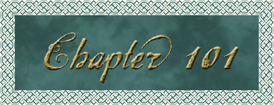
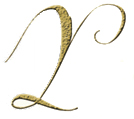 OU’VE GOT TO let him out!” Katherine begged, crying now. “We’ll do whatever you want!” She could hear Langdon pounding more frantically as the water flowed into his container.
OU’VE GOT TO let him out!” Katherine begged, crying now. “We’ll do whatever you want!” She could hear Langdon pounding more frantically as the water flowed into his container.
The tattooed man just smiled. “You’re easier than your brother. The things I had to do to get Peter to tell me his secrets …”
“Where is he?!” she demanded. “Where is Peter?! Tell me! We did exactly what you wanted! We solved the pyramid and—”
“No, you did not solve the pyramid. You played a game. You withheld information and brought a government agent to my home. Hardly behavior I intend to reward.”
“We didn’t have a choice,” she replied, choking back the tears. “The CIA is looking for you. They made us travel with an agent. I’ll tell you everything. Just let Robert out!” Katherine could hear Langdon shouting and pounding in the crate, and she could see the water flowing through the pipe. She knew he didn’t have a lot of time.
In front of her, the tattooed man spoke calmly, stroking his chin. “I assume there are agents waiting for me at Franklin Square?”
Katherine said nothing, and the man placed his massive palms on her shoulders, slowly pulling her forward. With her arms still wire-bound behind the chair back, her shoulders strained, burning with pain, threatening to dislocate.
“Yes!” Katherine said. “There are agents at Franklin Square!”
He pulled harder. “What is the address on the capstone?”
The pain in her wrists and shoulders grew unbearable, but Katherine said nothing.
“You can tell me now, Katherine, or I’ll break your arms and ask you again.”
“Eight!” she gasped in pain. “The missing number is eight! The capstone says: ‘The secret hides within The Order—Eight Franklin Square!’ I swear it. I don’t know what else to tell you! It’s Eight Franklin Square!”
The man still did not release her shoulders.
“That’s all I know!” Katherine said. “That’s the address! Let go of me! Let Robert out of that tank!”
“I would …” the man said, “but there’s one problem. I can’t go to Eight Franklin Square without being caught. Tell me, what’s at that address?”
“I don’t know!”
“And the symbols on the base of the pyramid? On the underside? Do you know their meaning?”
“What symbols on the base?” Katherine had no idea what he was talking about. “The bottom has no symbols. It’s smooth, blank stone!”
Apparently immune to the muffled cries for help emanating from the coffinlike crate, the tattooed man calmly padded over to Langdon’s daybag and retrieved the stone pyramid. Then he returned to Katherine and held it up before her eyes so she could see the base.
When Katherine saw the engraved symbols, she gasped in bewilderment.
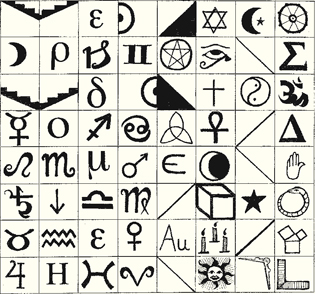
The bottom of the pyramid was entirely covered with intricate carvings. There was nothing there before! I’m sure of it! She had no idea what these symbols could possibly mean. They seemed to span every mystical tradition, including many she could not even place.
Total chaos.
“I … have no idea what this means,” she said.
“Nor do I,” her captor said. “Fortunately, we have a specialist at our disposal.” He glanced at the crate. “Let’s ask him, shall we?” He carried the pyramid toward the crate.
For a brief instant of hope, Katherine thought he was going to unclasp the lid. Instead, he sat calmly on top of the box, reached down, and slid a small panel to one side, revealing a Plexiglas window in the top of the tank.
Light!
Langdon covered his eyes, squinting into the ray of light that now streamed in from above. As his eyes adjusted, hope turned to confusion. He was looking up through what appeared to be a window in the top of his crate. Through the window, he saw a white ceiling and a fluorescent light.
Without warning, the tattooed face appeared above him, peering down.
“Where is Katherine?!” Langdon shouted. “Let me out!”
The man smiled. “Your friend Katherine is here with me,” the man said. “I have the power to spare her life. Your life as well. But your time is short, so I suggest you listen carefully.”
Langdon could barely hear him through the glass, and the water had risen higher, creeping across his chest.
“Are you aware,” the man asked, “that there are symbols on the base of the pyramid?”
“Yes!” Langdon shouted, having seen the extensive array of symbols when the pyramid had lain on the floor upstairs. “But I have no idea what they mean! You need to go to Eight Franklin Square! The answer is there! That’s what the capstone—”
“Professor, you and I both know the CIA is waiting for me there. I have no intention of walking into a trap. Besides, I didn’t need the street number. There is only one building on that square that could possibly be relevant—the Almas Shrine Temple.” He paused, staring down at Langdon. “The Ancient Arabic Order of Nobles of the Mystic Shrine.”
Langdon was confused. He was familiar with the Almas Temple, but he had forgotten it was on Franklin Square. The Shriners are … “The Order”? Their temple sits atop a secret staircase? It made no historical sense whatsoever, but Langdon was in no position at the moment to debate history. “Yes!” he shouted. “That must be it! The secret hides within The Order!”
“You’re familiar with the building?”
“Absolutely!” Langdon raised his throbbing head to keep his ears above the quickly rising liquid. “I can help you! Let me out!”
“So you believe you can tell me what this temple has to do with the symbols on the base of the pyramid?”
“Yes! Let me just look at the symbols!”
“Very well, then. Let’s see what you come up with.”
Hurry! With the warm liquid rising around him, Langdon pushed up on the lid, willing the man to unclasp it. Please! Hurry! But the lid never opened. Instead, the base of the pyramid suddenly appeared, hovering above the Plexiglas window.
Langdon stared up in panic.
“I trust this view is close enough for you?” The man held the pyramid in his tattooed hands. “Think fast, Professor. I’m guessing you have less than sixty seconds.”
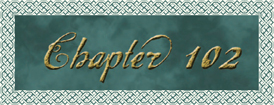
 OBERT LANGDON had often heard it said that an animal, when cornered, was capable of miraculous feats of strength. Nonetheless, when he threw his full force into the underside of his crate, nothing budged at all. Around him, the liquid continued rising steadily. With no more than six inches of breathing room left, Langdon had lifted his head into the pocket of air that remained. He was now face-to-face with the Plexiglas window, his eyes only inches away from the underside of the stone pyramid whose baffling engraving hovered above him.
OBERT LANGDON had often heard it said that an animal, when cornered, was capable of miraculous feats of strength. Nonetheless, when he threw his full force into the underside of his crate, nothing budged at all. Around him, the liquid continued rising steadily. With no more than six inches of breathing room left, Langdon had lifted his head into the pocket of air that remained. He was now face-to-face with the Plexiglas window, his eyes only inches away from the underside of the stone pyramid whose baffling engraving hovered above him.
I have no idea what this means.
Concealed for over a century beneath a hardened mixture of wax and stone dust, the Masonic Pyramid’s final inscription was now laid bare. The engraving was a perfectly square grid of symbols from every tradition imaginable—alchemical, astrological, heraldic, angelic, magical, numeric, sigilic, Greek, Latin. As a totality, this was symbolic anarchy—a bowl of alphabet soup whose letters came from dozens of different languages, cultures, and time periods.
Total chaos.
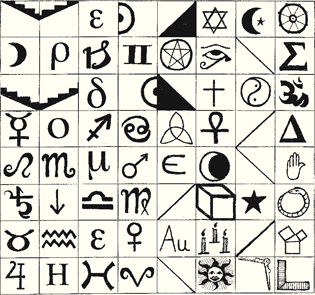
Symbologist Robert Langdon, in his wildest academic interpretations, could not fathom how this grid of symbols could be deciphered to mean anything at all. Order from this chaos? Impossible.
The liquid was now creeping over his Adam’s apple, and Langdon could feel his level of terror rising along with it. He continued banging on the tank. The pyramid stared back at him tauntingly.
In frantic desperation, Langdon focused every bit of his mental energy on the chessboard of symbols. What could they possibly mean? Unfortunately, the assortment seemed so disparate that he could not even imagine where to begin. They’re not even from the same eras in history!
Outside the tank, her voice muffled but audible, Katherine could be heard tearfully begging for Langdon’s release. Despite his failure to see a solution, the prospect of death seemed to motivate every cell in his body to find one. He felt a strange clarity of mind, unlike anything he had ever experienced. Think! He scanned the grid intensely, searching for some clue—a pattern, a hidden word, a special icon, anything at all—but he saw only a grid of unrelated symbols. Chaos.
With each passing second, Langdon had begun to feel an eerie numbness overtaking his body. It was as if his very flesh were preparing to shield his mind from the pain of death. The water was now threatening to pour into his ears, and he lifted his head as far as he could, pushing it against the top of the crate. Frightening images began flashing before his eyes. A boy in New England treading water at the bottom of a dark well. A man in Rome trapped beneath a skeleton in an overturned coffin.
Katherine’s shouts were growing more frantic. From all Langdon could hear, she was trying to reason with a madman—insisting that Langdon could not be expected to decipher the pyramid without going to visit the Almas Temple. “That building obviously holds the missing piece to this puzzle! How can Robert decipher the pyramid without all the information?!”
Langdon appreciated her efforts, and yet he felt certain that “Eight Franklin Square” was not pointing to the Almas Temple. The time line is all wrong! According to legend, the Masonic Pyramid was created in the mid-1800s, decades before the Shriners even existed. In fact, Langdon realized, it was probably before the square was even called Franklin Square. The capstone could not possibly have been pointing to an unbuilt building at a nonexistent address. Whatever “Eight Franklin Square” was pointing to … it had to exist in 1850.
Unfortunately, Langdon was drawing a total blank.
He probed his memory banks for anything that could possibly fit the time line. Eight Franklin Square? Something that was in existence in 1850? Langdon came up with nothing. The liquid was trickling into his ears now. Fighting his terror, he stared up at the grid of symbols on the glass. I don’t understand the connection! In a petrified frenzy, his mind began spewing all the far-flung parallels it could generate.
Eight Franklin Square … squares … this grid of symbols is a square … the square and the compass are Masonic symbols … Masonic altars are square … squares have ninety-degree angles. The water kept rising, but Langdon blocked it out. Eight Franklin … eight … this grid is eight-by-eight … Franklin has eight letters … “The Order” has eight letters … 8 is the rotated symbol ∞ for infinity … eight is the number of destruction in numerology …
Langdon had no idea.
Outside the tank, Katherine was still pleading, but Langdon’s hearing was now intermittent as the water was sloshing around his head.
“… impossible without knowing … capstone’s message clearly … the secret hides within—”
Then she was gone.
Water poured into Langdon’s ears, blotting out the last of Katherine’s voice. A sudden womblike silence engulfed him, and Langdon realized he truly was going to die.
The secret hides within—
Katherine’s final words echoed through the hush of his tomb.
The secret hides within …
Strangely, Langdon realized he had heard these exact words many times before.
The secret hides … within.
Even now, it seemed, the Ancient Mysteries were taunting him. “The secret hides within” was the core tenet of the mysteries, urging mankind to seek God not in the heavens above … but rather within himself. The secret hides within. It was the message of all the great mystical teachers.
The kingdom of God is within you, said Jesus Christ.
Know thyself, said Pythagoras.
Know ye not that ye are gods, said Hermes Trismegistus.
The list went on and on …
All the mystical teachings of the ages had attempted to convey this one idea. The secret hides within. Even so, mankind continued looking to the heavens for the face of God.
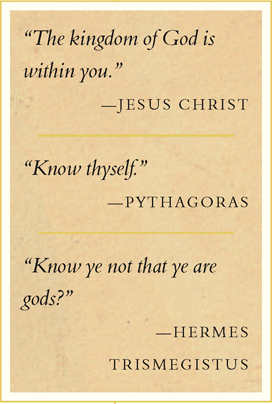
This realization, for Langdon, now became an ultimate irony. Right now, with his eyes facing the heavens like all the blind men who preceded him, Robert Langdon suddenly saw the light.
It hit him like a bolt from above.

In a flash he understood.
The message on the capstone was suddenly crystal clear. Its meaning had been staring him in the face all night. The text on the capstone, like the Masonic Pyramid itself, was a symbolon—a code in pieces—a message written in parts. The capstone’s meaning was camouflaged in so simple a manner that Langdon could scarcely believe he and Katherine had not spotted it.
More astonishing still, Langdon now realized that the message on the capstone did indeed reveal exactly how to decipher the grid of symbols on the base of the pyramid. It was so very simple. Exactly as Peter Solomon had promised, the golden capstone was a potent talisman with the power to bring order from chaos.
Langdon began pounding on the lid and shouting, “I know! I know!”
Above him, the stone pyramid lifted off and hovered away. In its place, the tattooed face reappeared, its chilling visage staring down through the small window.
“I solved it!” Langdon shouted. “Let me out!”
When the tattooed man spoke, Langdon’s submerged ears heard nothing. His eyes, however, saw the lips speak two words. “Tell me.”
“I will!” Langdon screamed, the water almost to his eyes. “Let me out! I’ll explain everything!” It’s so simple.
The man’s lips moved again. “Tell me now … or die.”
With the water rising through the final inch of air space, Langdon tipped his head back to keep his mouth above the waterline. As he did so, warm liquid poured into his eyes, blurring his vision. Arching his back, he pressed his mouth against the Plexiglas window.
Then, with his last few seconds of air, Robert Langdon shared the secret of how to decipher the Masonic Pyramid.
As he finished speaking, the liquid rose around his lips. Instinctively, Langdon drew a final breath and clamped his mouth shut. A moment later, the fluid covered him entirely, reaching the top of his tomb and spreading out across the Plexiglas.
He did it, Mal’akh realized. Langdon figured out how to solve the pyramid.
The answer was so simple. So obvious.
Beneath the window, the submerged face of Robert Langdon stared up at him with desperate and beseeching eyes.
Mal’akh shook his head at him and slowly mouthed the words: “Thank you, Professor. Enjoy the afterlife.”
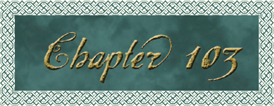
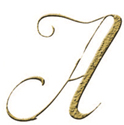 S A serious swimmer, Robert Langdon had often wondered what it would feel like to drown. He now knew he was going to learn firsthand. Although he could hold his breath longer than most people, he could already feel his body reacting to the absence of air. Carbon dioxide was accumulating in his blood, bringing with it the instinctual urge to inhale. Do not breathe! The reflex to inhale was increasing in intensity with each passing moment. Langdon knew very soon he would reach what was called the breath-hold breakpoint—that critical moment at which a person could no longer voluntarily hold his breath.
S A serious swimmer, Robert Langdon had often wondered what it would feel like to drown. He now knew he was going to learn firsthand. Although he could hold his breath longer than most people, he could already feel his body reacting to the absence of air. Carbon dioxide was accumulating in his blood, bringing with it the instinctual urge to inhale. Do not breathe! The reflex to inhale was increasing in intensity with each passing moment. Langdon knew very soon he would reach what was called the breath-hold breakpoint—that critical moment at which a person could no longer voluntarily hold his breath.
Open the lid! Langdon’s instinct was to pound and struggle, but he knew better than to waste valuable oxygen. All he could do was stare up through the blur of water above him and hope. The world outside was now only a hazy patch of light above the Plexiglas window. His core muscles had begun burning, and he knew hypoxia was setting in.
Suddenly a beautiful and ghostly face appeared, gazing down at him. It was Katherine, her soft features looking almost ethereal through the veil of liquid. Their eyes met through the Plexiglas window, and for an instant, Langdon thought he was saved. Katherine! Then he heard her muted cries of horror and realized she was being held there by their captor. The tattooed monster was forcing her to bear witness to what was about to happen.
Katherine, I’m sorry …
In this strange, dark place, trapped underwater, Langdon strained to comprehend that these would be his final moments of life. Soon he would cease to exist … everything he was … or had ever been … or would ever be … was ending. When his brain died, all of the memories held in his gray matter, along with all of the knowledge he had acquired, would simply evaporate in a flood of chemical reactions.
In this moment, Robert Langdon realized his true insignificance in the universe. It was as lonely and humbling a feeling as he had ever experienced. Almost thankfully, he could feel the breath-hold breakpoint arriving.
The moment was upon him.
Langdon’s lungs forced out their spent contents, collapsing in eager preparation to inhale. Still he held out an instant longer. His final second. Then, like a man no longer able to hold his hand to a burning stove, he gave himself over to fate.
Reflex overruled reason.
His lips parted.
His lungs expanded.
And the liquid came pouring in.
The pain that filled his chest was greater than Langdon had ever imagined. The liquid burned as it poured into his lungs. Instantly, the pain shot upward into his skull, and he felt like his head was being crushed in a vise. There was great thundering in his ears, and through it all, Katherine Solomon was screaming.
There was a blinding flash of light.
And then blackness.
Robert Langdon was gone.
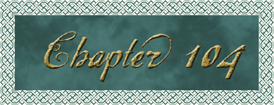
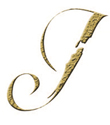 T’S OVER.
T’S OVER.
Katherine Solomon had stopped screaming. The drowning she had just witnessed had left her catatonic, virtually paralyzed with shock and despair.
Beneath the Plexiglas window, Langdon’s dead eyes stared past her into empty space. His frozen expression was one of pain and regret. The last tiny air bubbles trickled out of his lifeless mouth, and then, as if consenting to give up his ghost, the Harvard professor slowly began sinking to the bottom of the tank … where he disappeared into the shadows.
He’s gone. Katherine felt numb.
The tattooed man reached down, and with pitiless finality, he slid the small viewing window closed, sealing Langdon’s corpse inside.
Then he smiled at her. “Shall we?”
Before Katherine could respond, he hoisted her grief-stricken body onto his shoulder, turned out the light, and carried her out of the room. With a few powerful strides, he transported her to the end of the hall, into a large space that seemed to be bathed in a reddish-purple light. The room smelled like incense. He carried her to a square table in the center of the room and dropped her hard on her back, knocking the wind out of her. The surface felt rough and cold. Is this stone?
Katherine had hardly gotten her bearings before the man had removed the wire from her wrists and ankles. Instinctively, she attempted to fight him off, but her cramped arms and legs barely responded. He now began strapping her to the table with heavy leather bands, cinching one strap across her knees and then buckling a second across her hips, pinning her arms at her sides. Then he placed a final strap across her sternum, just above her breasts.
It had all taken only moments, and Katherine was again immobilized. Her wrists and ankles throbbed now as the circulation returned to her limbs.
“Open your mouth,” the man whispered, licking his own tattooed lips.
Katherine clenched her teeth in revulsion.
The man again reached out with his index finger and ran it slowly around her lips, making her skin crawl. She clenched her teeth tighter. The tattooed man chuckled and, using his other hand, found a pressure point on her neck and squeezed. Katherine’s jaw instantly dropped open. She could feel his finger entering her mouth and running along her tongue. She gagged and tried to bite it, but the finger was already gone. Still grinning, he raised his moist fingertip before her eyes. Then he closed his eyes and, once again, rubbed her saliva into the bare circle of flesh on his head.
The man sighed and slowly opened his eyes. Then, with an eerie calm, he turned and left the room.
In the sudden silence, Katherine could feel her heart pounding. Directly over her, an unusual series of lights seemed to be modulating from purple red to a deep crimson, illuminating the room’s low ceiling. When she saw the ceiling, all she could do was stare. Every inch was covered with drawings. The mind-boggling collage above her appeared to depict the celestial sky. Stars, planets, and constellations mingled with astrological symbols, charts, and formulas. There were arrows predicting elliptical orbits, geometric symbols indicating angles of ascension, and zodiacal creatures peering down at her. It looked like a mad scientist had gotten loose in the Sistine Chapel.
Turning her head, Katherine looked away, but the wall to her left was no better. A series of candles on medieval floor stands shed a flickering glow on a wall that was completely hidden beneath pages of text, photos, and drawings. Some of the pages looked like papyrus or vellum torn from ancient books; others were obviously from newer texts; mixed in were photographs, drawings, maps, and schematics; all of them appeared to have been glued to the wall with meticulous care. A spiderweb of strings had been thumbtacked across them, interconnecting them in limitless chaotic possibilities.
Katherine again looked away, turning her head in the other direction.
Unfortunately, this provided the most terrifying view of all.
Adjacent to the stone slab on which she was strapped, there stood a small side counter that instantly reminded her of an instrument table from a hospital operating room. On the counter was arranged a series of objects—among them a syringe, a vial of dark liquid … and a large knife with a bone handle and a blade hewn of iron burnished to an unusually high shine.
My God … what is he planning to do to me?
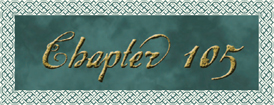
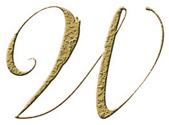 HEN CIA systems security specialist Rick Parrish finally loped into Nola Kaye’s office, he was carrying a single sheet of paper.
HEN CIA systems security specialist Rick Parrish finally loped into Nola Kaye’s office, he was carrying a single sheet of paper.
“What took you so long?!” Nola demanded. I told you to come down immediately! “Sorry,” he said, pushing up his bottle-bottom glasses on his long nose. “I was trying to gather more information for you, but—”
“Just show me what you’ve got.”
Parrish handed her the printout. “It’s a redaction, but you get the gist.”
Nola scanned the page in amazement.
“I’m still trying to figure out how a hacker got access,” Parrish said, “but it looks like a delegator spider hijacked one of our search—”
“Forget that!” Nola blurted, glancing up from the page. “What the hell is the CIA doing with a classified file about pyramids, ancient portals, and engraved symbolons?”
“That’s what took me so long. I was trying to see what document was being targeted, so I traced the file path.” Parrish paused, clearing his throat. “This document turns out to be on a partition personally assigned to … the CIA director himself.”
Nola wheeled, staring in disbelief. Sato’s boss has a file about the Masonic Pyramid? She knew that the current director, along with many other top CIA executives, was a high-ranking Mason, but Nola could not imagine any of them keeping Masonic secrets on a CIA computer.
Then again, considering what she had witnessed in the last twenty-four hours, anything was possible.
Agent Simkins was lying on his stomach, ensconced in the bushes of Franklin Square. His eyes were trained on the columned entry of the Almas Temple. Nothing. No lights had come on inside, and no one had approached the door. He turned his head and checked on Bellamy. The man was pacing alone in the middle of the park, looking cold. Really cold. Simkins could see him shaking and shivering.
His phone vibrated. It was Sato.
“How overdue is our target?” she demanded.
Simkins checked his chronograph. “Target said twenty minutes. It’s been almost forty. Something’s wrong.”
“He’s not coming,” Sato said. “It’s over.”
Simkins knew she was right. “Any word from Hartmann?”
“No, he never checked in from Kalorama Heights. I can’t reach him.”
Simkins stiffened. If this was true, then something was definitely wrong.
“I just called field support,” Sato said, “and they can’t find him either.”
Holy shit. “Do they have a GPS location on the Escalade?”
“Yeah. A residential address in Kalorama Heights,” Sato said. “Gather your men. We’re pulling out.”
Sato clicked off her phone and gazed out at the majestic skyline of her nation’s capital. An icy wind whipped through her light jacket, and she wrapped her arms around herself to stay warm. Director Inoue Sato was not a woman who often felt cold … or fear. At the moment, however, she was feeling both.
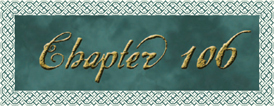
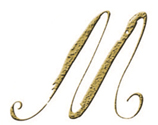 AL’AKH WORE only his silk loincloth as he dashed up the ramp, through the steel door, and out through the painting into his living room. I need to prepare quickly. He glanced over at the dead CIA agent in the foyer. This home is no longer safe.
AL’AKH WORE only his silk loincloth as he dashed up the ramp, through the steel door, and out through the painting into his living room. I need to prepare quickly. He glanced over at the dead CIA agent in the foyer. This home is no longer safe.
Carrying the stone pyramid in one hand, Mal’akh strode directly to his first-floor study and sat down at his laptop computer. As he logged in, he pictured Langdon downstairs and wondered how many days or even weeks would pass before the submerged corpse was discovered in the secret basement. It made no difference. Mal’akh would be long gone by then.
Langdon has served his role … brilliantly.
Not only had Langdon reunited the pieces of the Masonic Pyramid, he had figured out how to solve the arcane grid of symbols on the base. At first glance, the symbols seemed indecipherable … and yet the answer was simple … staring them in the face.
Mal’akh’s laptop sprang to life, the screen displaying the same e-mail he had received earlier—a photograph of a glowing capstone, partially blocked by Warren Bellamy’s finger.

Eight … Franklin Square, Katherine had told Mal’akh. She had also admitted that CIA agents were staking out Franklin Square, hoping to capture Mal’akh and also figure out what order was being referenced by the capstone. The Masons? The Shriners? The Rosicrucians?
None of these, Mal’akh now knew. Langdon saw the truth.
Ten minutes earlier, with liquid rising around his face, the Harvard professor had figured out the key to solving the pyramid. “The Order Eight Franklin Square!” he had shouted, terror in his eyes. “The secret hides within The Order Eight Franklin Square!”
At first, Mal’akh failed to understand his meaning.
“It’s not an address!” Langdon yelled, his mouth pressed to the Plexiglas window. “The Order Eight Franklin Square! It’s a magic square!” Then he said something about Albrecht Dürer … and how the pyramid’s first code was a clue to breaking this final one.
Mal’akh was familiar with magic squares—kameas, as the early mystics called them. The ancient text De Occulta Philosophia described in detail the mystical power of magic squares and the methods for designing powerful sigils based on magical grids of numbers. Now Langdon was telling him that a magic square held the key to deciphering the base of the pyramid?
“You need an eight-by-eight magic square!” the professor had been yelling, his lips the only part of his body above the liquid. “Magic squares are categorized in orders! A three-by-three square is an ‘order three’! A four-by-four square is an ‘order four’! You need an ‘order eight’!”
The liquid had been about to engulf Langdon entirely, and the professor drew one last desperate breath and shouted out something about a famous Mason … an American forefather … a scientist, mystic, mathematician, inventor … as well as the creator of the mystical kamea that bore his name to this day.
Franklin.
In a flash, Mal’akh knew Langdon was right.
Now, breathless with anticipation, Mal’akh sat upstairs at his laptop. He ran a quick Web search, received dozens of hits, chose one, and began reading.
THE ORDER EIGHT FRANKLIN SQUARE
One of history’s best-known magic squares is the order-eight square published in 1769 by American scientist Benjamin Franklin, and which became famous for its inclusion of never-before-seen “bent diagonal summations.” Franklin’s obsession with this mystical art form most likely stemmed from his personal associations with the prominent alchemists and mystics of his day, as well as his own belief in astrology, which were the underpinnings for the predictions made in his Poor Richard’s Almanack.
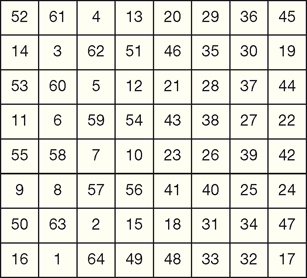
Mal’akh studied Franklin’s famous creation—a unique arrangement of the numbers 1 through 64—in which every row, column, and diagonal added up to the same magical constant. The secret hides within The Order Eight Franklin Square.
Mal’akh smiled. Trembling with excitement, he grabbed the stone pyramid and flipped it over, examining the base.
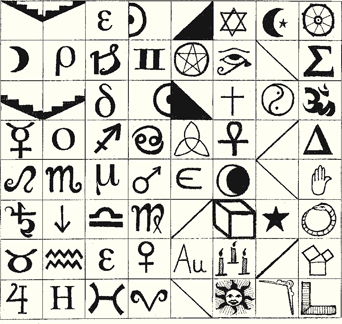
These sixty-four symbols needed to be reorganized and arranged in a different order, their sequence defined by the numbers in Franklin’s magic square. Although Mal’akh could not imagine how this chaotic grid of symbols would suddenly make sense in a different order, he had faith in the ancient promise.
Ordo ab chao.
Heart racing, he took out a sheet of paper and quickly drew an empty eight-by-eight grid. Then he began inserting the symbols, one by one, in their newly defined positions. Almost immediately, to his astonishment, the grid began making sense.
Order from chaos!
He completed the entire decryption and stared in disbelief at the solution before him. A stark image had taken shape. The jumbled grid had been transformed … reorganized … and although Mal’akh could not grasp the meaning of the entire message, he understood enough … enough to know exactly where he was now headed.
The pyramid points the way.
The grid pointed to one of the world’s great mystical locations. Incredibly, it was the same location at which Mal’akh had always fantasized he would complete his journey.
Destiny.
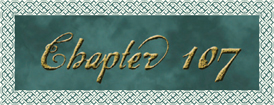
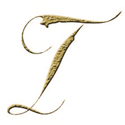 HE STONE table felt cold beneath Katherine Solomon’s back.
HE STONE table felt cold beneath Katherine Solomon’s back.
Horrifying images of Robert’s death continued to swirl through her mind, along with thoughts of her brother. Is Peter dead, too? The strange knife on the nearby table kept bringing flashes of what might lie in store for her as well. Is this really the end?
Oddly, her thoughts turned abruptly to her research … to Noetic Science … and to her recent breakthroughs. All of it lost … up in smoke. She would never be able to share with the world everything she had learned. Her most shocking discovery had taken place only a few months ago, and the results had the potential to redefine the way humans thought about death. Strangely, thinking now of that experiment … was bringing her an unexpected solace.
As a young girl, Katherine Solomon had often wondered if there was life after death. Does heaven exist? What happens when we die? As she grew older, her studies in science quickly erased any fanciful notions of heaven, hell, or the afterlife. The concept of “life after death,” she came to accept, was a human construct … a fairy tale designed to soften the horrifying truth that was our mortality.
Or so I believed …
A year ago, Katherine and her brother had been discussing one of philosophy’s most enduring questions—the existence of the human soul—specifically the issue of whether or not humans possessed some kind of consciousness capable of survival outside of the body.
They both sensed that such a human soul probably did exist. Most ancient philosophies concurred. Buddhist and Brahminical wisdom endorsed metempsychosis—the transmigration of the soul into a new body after death; Platonists defined the body as a “prison” from which the soul escaped; and the Stoics called the soul apospasma tou theu—“a particle of God”—and believed it was recalled by God upon death.
The existence of the human soul, Katherine noted with some frustration, was probably a concept that would never be scientifically proven. Confirming that a consciousness survived outside the human body after death was akin to exhaling a puff of smoke and hoping to find it years later.
After their discussion, Katherine had a strange notion. Her brother had mentioned the Book of Genesis and its description of the soul as Neshemah—a kind of spiritual “intelligence” that was separate from the body. It occurred to Katherine that the word intelligence suggested the presence of thought. Noetic Science clearly suggested that thoughts had mass, and so it stood to reason, then, that the human soul might therefore also have mass.
Can I weigh a human soul?
The notion was impossible, of course … foolish even to ponder.
It was three days later that Katherine suddenly woke up from a dead sleep and sat bolt upright in bed. She jumped up, drove to her lab, and immediately began work designing an experiment that was both startlingly simple … and frighteningly bold.
She had no idea if it would work, and she decided not to tell Peter about her idea until her work was complete. It took four months, but finally Katherine brought her brother into the lab. She wheeled out a large piece of gear that she had been keeping hidden in the back storage room.
“I designed and built it myself,” she said, showing Peter her invention. “Any guesses?”
Her brother stared at the strange machine. “An incubator?”
Katherine laughed and shook her head, although it was a reasonable guess. The machine did look a bit like the transparent incubators for premature babies one saw in hospitals. This machine, however, was adult size—a long, airtight, clear plastic capsule, like some kind of futuristic sleeping pod. It sat atop a large piece of electronic gear.
“See if this helps you guess,” Katherine said, plugging the contraption into a power source. A digital display lit up on the machine, its numbers jumping around as she carefully calibrated some dials.
When she was done, the display read:
0.0000000000 kg
“A scale?” Peter asked, looking puzzled.
“Not just any scale.” Katherine took a tiny scrap of paper off a nearby counter and laid it gently on top of the capsule. The numbers on the display jumped around again and then settled on a new reading.
“High-precision microbalance,” she said. “Resolution down to a few micrograms.”
Peter still looked puzzled. “You built a precise scale for … a person?”
“Exactly.” She lifted the transparent lid on the machine. “If I place a person inside this capsule and close the lid, the individual is in an entirely sealed system. Nothing gets in or out. No gas, no liquid, no dust particles. Nothing can escape—not the person’s breath exhalations, evaporating sweat, body fluids, nothing.”
Peter ran a hand through his thick head of silver hair, a nervous mannerism shared by Katherine. “Hmm … obviously a person would die in there pretty quickly.”
She nodded. “Six minutes or so, depending on their breathing rate.”
He turned to her. “I don’t get it.”
She smiled. “You will.”
Leaving the machine behind, Katherine led Peter into the Cube’s control room and sat him down in front of the plasma wall. She began typing and accessed a series of video files stored on the holographic drives. When the plasma wall flickered to life, the image before them looked like home-video footage.
The camera panned across a modest bedroom with an unmade bed, medication bottles, a respirator, and a heart monitor. Peter looked baffled as the camera kept panning and finally revealed, near the center of the bedroom, Katherine’s scale contraption.
Peter’s eyes widened. “What the … ?”
The capsule’s transparent lid was open, and a very old man in an oxygen mask lay inside. His elderly wife and a hospice worker stood beside the pod. The man’s breathing was labored, and his eyes were closed.
“The man in the capsule was a science teacher of mine at Yale,” Katherine said. “He and I have kept in touch over the years. He’s been very ill. He always said he wanted to donate his body to science, so when I explained my idea for this experiment, he immediately wanted to be a part of it.”
Peter was apparently mute with shock as he stared at the scene unfolding before them.
The hospice worker now turned to the man’s wife. “It’s time. He’s ready.”
The old woman dabbed her tearful eyes and nodded with a resolute calm.
“Okay.”
Very gently, the hospice worker reached into the pod and removed the man’s oxygen mask. The man stirred slightly, but his eyes remained closed. Now the worker wheeled the respirator and other equipment off to the side, leaving the old man in the capsule totally isolated in the center of the room.
The dying man’s wife now approached the pod, leaned down, and gently kissed her husband’s forehead. The old man did not open his eyes, but his lips moved, ever so slightly, into a faint, loving smile.
Without his oxygen mask, the man’s breathing was quickly becoming more labored. The end was obviously near. With an admirable strength and calm, the man’s wife slowly lowered the transparent lid of the capsule and sealed it shut, exactly as Katherine had taught her.
Peter recoiled in alarm. “Katherine, what in the name of God?!”
“It’s okay,” Katherine whispered. “There’s plenty of air in the capsule.” She had seen this video dozens of times now, but it still made her pulse race. She pointed to the scale beneath the dying man’s sealed pod. The digital numbers read:
51.4534644 kg
“That’s his body weight,” Katherine said.
The old man’s breathing became more shallow, and Peter inched forward, transfixed.
“This is what he wanted,” Katherine whispered. “Watch what happens.”
The man’s wife had stepped back and was now seated on the bed, silently looking on with the hospice worker.
Over the course of the next sixty seconds, the man’s shallow breathing grew faster, until all at once, as if the man himself had chosen the moment, he simply took his last breath. Everything stopped.
It was over.
The wife and hospice worker quietly comforted each other.
Nothing else happened.
After a few seconds, Peter glanced over at Katherine in apparent confusion.
Wait for it, she thought, redirecting Peter’s gaze to the capsule’s digital display, which still quietly glowed, showing the dead man’s weight.
Then it happened.
When Peter saw it, he jolted backward, almost falling out of his chair. “But … that’s …” He covered his mouth in shock. “I can’t …”
It was seldom that the great Peter Solomon was speechless. Katherine’s reaction had been similar the first few times she saw what had happened.
Moments after the man’s death, the numbers on the scale had decreased suddenly. The man had become lighter immediately after his death. The weight change was minuscule, but it was measurable … and the implications were utterly mind-boggling.
Katherine recalled writing in her lab notes with a trembling hand: “There seems to exist an invisible ‘material’ that exits the human body at the moment of death. It has quantifiable mass which is unimpeded by physical barriers. I must assume it moves in a dimension I cannot yet perceive.”
From the expression of shock on her brother’s face, Katherine knew he understood the implications. “Katherine …” he stammered, blinking his gray eyes as if to make sure he was not dreaming. “I think you just weighed the human soul.”
There was a long silence between them.
Katherine sensed that her brother was attempting to process all the stark and wondrous ramifications. It will take time. If what they had just witnessed was indeed what it seemed to be—that is, evidence that a soul or consciousness or life force could move outside the realm of the body—then a startling new light had just been shed on countless mystical questions: transmigration, cosmic consciousness, near-death experiences, astral projection, remote viewing, lucid dreaming, and on and on. Medical journals were filled with stories of patients who had died on the operating table, viewed their bodies from above, and then been brought back to life.
Peter was silent, and Katherine now saw he had tears in his eyes. She understood. She had cried, too. Peter and Katherine had lost loved ones, and for anyone in that position, the faintest hint of the human spirit continuing after death brought a glimmer of hope.
He’s thinking of Zachary, Katherine thought, recognizing the deep melancholy in her brother’s eyes. For years Peter had carried the burden of responsibility for his son’s death. He had told Katherine many times that leaving Zachary in prison had been the worst mistake of his life, and that he would never find a way to forgive himself.
A slamming door drew Katherine’s attention, and suddenly she was back in the basement, lying on a cold stone table. The metal door at the top of the ramp had closed loudly, and the tattooed man was coming back down. She could hear him entering one of the rooms down the hall, doing something inside, and then continuing along the hall toward the room she was in. As he entered, she could see that he was pushing something in front of him. Something heavy … on wheels. As he stepped into the light, she stared in disbelief. The tattooed man was pushing a person in a wheelchair.
Intellectually, Katherine’s brain recognized the man in the chair. Emotionally, her mind could barely accept what she was looking at.
Peter?
She didn’t know whether to be overjoyed that her brother was alive … or utterly horrified. Peter’s body had been shaved smooth. His mane of thick silver hair was all gone, as were his eyebrows, and his smooth skin glistened as if it had been oiled. He wore a black silk gown. Where his right hand should have been, he had only a stump, wrapped in a clean, fresh bandage. Her brother’s pain-laden eyes reached out to hers, filled with regret and sorrow.
“Peter!” Her voice cracked.
Her brother tried to speak but made only muffled, guttural noises. Katherine now realized he was bound to the wheelchair and had been gagged.
The tattooed man reached down and gently stroked Peter’s shaved scalp. “I’ve prepared your brother for a great honor. He has a role to play tonight.”
Katherine’s entire body went rigid. No …
“Peter and I will be leaving in a moment, but I thought you’d want to say good-bye.”
“Where are you taking him?” she said weakly.
He smiled. “Peter and I must journey to the sacred mountain. That is where the treasure lies. The Masonic Pyramid has revealed the location. Your friend Robert Langdon was most helpful.”
Katherine looked into her brother’s eyes. “He killed … Robert.”
Her brother’s expression contorted in agony, and he shook his head violently, as if unable to bear any more pain.
“Now, now, Peter,” the man said, again stroking Peter’s scalp. “Don’t let this ruin the moment. Say good-bye to your little sister. This is your final family reunion.”
Katherine felt her mind welling with desperation. “Why are you doing this?!” she shouted at him. “What have we ever done to you?! Why do you hate my family so much?!”
The tattooed man came over and placed his mouth right next to her ear. “I have my reasons, Katherine.” Then he walked to the side table and picked up the strange knife. He brought it over to her and ran the burnished blade across her cheek. “This is arguably the most famous knife in history.”
Katherine knew of no famous knives, but it looked foreboding and ancient. The blade felt razor sharp.
“Don’t worry,” he said. “I have no intention of wasting its power on you. I’m saving it for a more worthy sacrifice … in a more sacred place.” He turned to her brother. “Peter, you recognize this knife, don’t you?”
Her brother’s eyes were wide with a mixture of fear and disbelief.
“Yes, Peter, this ancient artifact still exists. I obtained it at great expense … and I have been saving it for you. At long last, you and I can end our painful journey together.”
With that, he wrapped the knife carefully in a cloth with all of his other items—incense, vials of liquid, white satin cloths, and other ceremonial objects. He then placed the wrapped items inside Robert Langdon’s leather bag along with the Masonic Pyramid and capstone. Katherine looked on helplessly as the man zipped up Langdon’s daybag and turned to her brother.
“Carry this, Peter, would you?” He set the heavy bag on Peter’s lap.
Next, the man walked over to a drawer and began rooting around. She could hear small metal objects clinking. When he returned, he took her right arm, steadying it. Katherine couldn’t see what he was doing, but Peter apparently could, and he again started bucking wildly.
Katherine felt a sudden, sharp pinch in the crook of her right elbow, and an eerie warmth ran down around it. Peter was making anguished, strangled sounds and trying in vain to get out of the heavy chair. Katherine felt a cold numbness spreading through her forearm and fingertips below the elbow.
When the man stepped aside, Katherine saw why her brother was so horrified. The tattooed man had inserted a medical needle into her vein, as if she were giving blood. The needle, however, was not attached to a tube. Instead, her blood was now flowing freely out of it … running down her elbow, forearm, and onto the stone table.
“A human hourglass,” the man said, turning to Peter. “In a short while, when I ask you to play your role, I want you to picture Katherine … dying alone here in the dark.”
Peter’s expression was one of total torment.
“She will stay alive,” the man said, “for about an hour or so. If you cooperate with me quickly, I will have enough time to save her. Of course, if you resist me at all … your sister will die here alone in the dark.”
Peter bellowed unintelligibly through his gag.
“I know, I know,” the tattooed man said, placing a hand on Peter’s shoulder, “this is hard for you. But it shouldn’t be. After all, this is not the first time you will abandon a family member.” He paused, bending over and whispering in Peter’s ear. “I’m thinking, of course, of your son, Zachary, in Soganlik prison.”
Peter pulled against his restraints and let out another muffled scream through the cloth in his mouth.
“Stop it!” Katherine shouted.
“I remember that night well,” the man taunted as he finished packing. “I heard the whole thing. The warden offered to let your son go, but you chose to teach Zachary a lesson … by abandoning him. Your boy learned his lesson, all right, didn’t he?” The man smiled. “His loss … was my gain.”
The man now retrieved a linen cloth and stuffed it deep into Katherine’s mouth. “Death,” he whispered to her, “should be a quiet thing.”
Peter struggled violently. Without another word, the tattooed man slowly backed Peter’s wheelchair out of the room, giving Peter a long, last look at his sister. Katherine and Peter locked eyes one final time.
Then he was gone.
Katherine could hear them going up the ramp and through the metal door. As they exited, she heard the tattooed man lock the metal door behind him and continue on through the painting of the Three Graces. A few minutes later, she heard a car start.
Then the mansion fell silent.
All alone in the dark, Katherine lay bleeding.
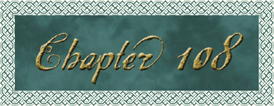
 OBERT LANGDON’S mind hovered in an endless abyss.
OBERT LANGDON’S mind hovered in an endless abyss.
No light. No sound. No feeling.
Only an infinite and silent void.
Softness.
Weightlessness.
His body had released him. He was untethered.
The physical world had ceased to exist. Time had ceased to exist.
He was pure consciousness now … a fleshless sentience suspended in the emptiness of a vast universe.
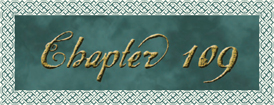
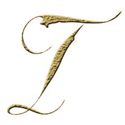 HE MODIFIED UH-60 skimmed in low over the expansive rooftops of Kalorama Heights, thundering toward the coordinates given to them by the support team. Agent Simkins was the first to spot the black Escalade parked haphazardly on a lawn in front of one of the mansions. The driveway gate was closed, and the house was dark and quiet.
HE MODIFIED UH-60 skimmed in low over the expansive rooftops of Kalorama Heights, thundering toward the coordinates given to them by the support team. Agent Simkins was the first to spot the black Escalade parked haphazardly on a lawn in front of one of the mansions. The driveway gate was closed, and the house was dark and quiet.
Sato gave the signal to touch down.
The aircraft landed hard on the front lawn amid several other vehicles … one of them a security sedan with a bubble light on top.
Simkins and his team jumped out, drew their weapons, and dashed up onto the porch. Finding the front door locked, Simkins cupped his hands and peered through a window. The foyer was dark, but Simkins could make out the faint shadow of a body on the floor.
“Shit,” he whispered. “It’s Hartmann.”
One of his agents grabbed a chair off the porch and heaved it through the bay window. The sound of shattering glass was barely audible over the roar of the helicopter behind them. Seconds later, they were all inside. Simkins rushed to the foyer and knelt over Hartmann to check his pulse. Nothing. There was blood everywhere. Then he saw the screwdriver in Hartmann’s throat.
Jesus. He stood up and motioned to his men to begin a full search.
The agents fanned out across the first floor, their laser sights probing the darkness of the luxurious house. They found nothing in the living room or study, but in the dining room, to their surprise, they discovered a strangled female security guard. Simkins was fast losing hope that Robert Langdon and Katherine Solomon were alive. This brutal killer clearly had set a trap, and if he had managed to kill a CIA agent and an armed security guard, then it seemed a professor and a scientist had no chance.
Once the first floor was secure, Simkins sent two agents to search upstairs.
Meanwhile, he found a set of basement stairs off the kitchen and descended. At the bottom of the stairs, he threw on the lights. The basement was spacious and spotless, as if it were hardly ever used. Boilers, bare cement walls, a few boxes. Nothing here at all. Simkins headed back up to the kitchen just as his men were coming down from the second floor. Everyone shook their heads.
The house was deserted.
No one home. And no more bodies.
Simkins radioed Sato with the all-clear and the grim update.
When he got to the foyer, Sato was already climbing the stairs onto the porch. Warren Bellamy was visible behind her, sitting dazed and alone in the helicopter with Sato’s titanium briefcase at his feet. The OS director’s secure laptop provided her with worldwide access to CIA computer systems via encrypted satellite uplinks. Earlier tonight, she had used this computer to share with Bellamy some kind of information that had stunned the man into cooperating fully. Simkins had no idea what Bellamy had seen, but whatever it was, the Architect had been visibly shell-shocked ever since.
As Sato entered the foyer, she paused a moment, bowing her head over Hartmann’s body. A moment later, she raised her eyes and fixed them on Simkins. “No sign of Langdon or Katherine? Or Peter Solomon?”
Simkins shook his head. “If they’re still alive, he took them with him.”
“Did you see a computer in the house?”
“Yes, ma’am. In the office.”
“Show me.”
Simkins led Sato out of the foyer and into the living room. The plush carpet was covered with broken glass from the shattered bay window. They walked past a fireplace, a large painting, and several bookshelves to an office door. The office was wood paneled, with an antique desk and a large computer monitor. Sato walked around behind the desk and eyed the screen, immediately scowling.
“Damn it,” she said under her breath.
Simkins circled around and looked at the screen. It was blank. “What’s wrong?”
Sato pointed to an empty docking station on the desk. “He uses a laptop. He took it with him.”
Simkins didn’t follow. “Does he have information you want to see?”
“No,” Sato replied, her tone grave. “He has information I want nobody to see.”
Downstairs in the hidden basement, Katherine Solomon had heard the sounds of helicopter blades followed by breaking glass and heavy boots on the floor above her.
She tried to cry out for help, but the gag in her mouth made it impossible. She could barely make a sound. The harder she tried, the faster the blood began flowing from her elbow.
She was feeling short of breath and a little dizzy.
Katherine knew she needed to calm down. Use your mind, Katherine. With all of her intention, she coaxed herself into a meditative state.
Robert Langdon’s mind floated through the emptiness of space. He peered into the infinite void, searching for any points of reference. He found nothing.
Total darkness. Total silence. Total peace.
There was not even the pull of gravity to tell him which way was up.
His body was gone.
This must be death.
Time seemed to be telescoping, stretching and compressing, as if it had no bearings in this place. He had lost all track of how much time had passed.
Ten seconds? Ten minutes? Ten days?
Suddenly, however, like distant fiery explosions in far-off galaxies, memories began to materialize, billowing toward Langdon like shock waves across a vast nothingness.
All at once, Robert Langdon began to remember. The images tore through him … vivid and disturbing. He was staring up at a face that was covered with tattoos. A pair of powerful hands lifted his head and smashed it into the floor.
Pain erupted … and then darkness.
Gray light.
Throbbing.
Wisps of memory. Langdon was being dragged, half conscious, down, down, down. His captor was chanting something.
Verbum significatium … Verbum omnificum … Verbum perdo …
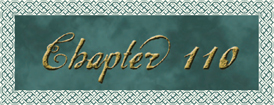
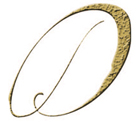 IRECTOR SATO stood alone in the study, waiting while the CIA satellite-imaging division processed her request. One of the luxuries of working in the D.C. area was the satellite coverage. With luck, one of them might have been properly positioned to get photos of this home tonight … possibly capturing a vehicle leaving the place in the last half hour.
IRECTOR SATO stood alone in the study, waiting while the CIA satellite-imaging division processed her request. One of the luxuries of working in the D.C. area was the satellite coverage. With luck, one of them might have been properly positioned to get photos of this home tonight … possibly capturing a vehicle leaving the place in the last half hour.
“Sorry, ma’am,” the satellite technician said. “No coverage of those coordinates tonight. Do you want to make a reposition request?”
“No thanks. Too late.” She hung up.
Sato exhaled, now having no idea how they would figure out where their target had gone. She walked out to the foyer, where her men had bagged Agent Hartmann’s body and were carrying it toward the chopper. Sato had ordered Agent Simkins to gather his men and prepare for the return to Langley, but Simkins was in the living room on his hands and knees. He looked like he was ill.
“You okay?”
He glanced up, an odd look on his face. “Did you see this?” He pointed at the living-room floor.
Sato came over and looked down at the plush carpet. She shook her head, seeing nothing.
“Crouch down,” Simkins said. “Look at the nap of the carpet.”
She did. After a moment, she saw it. The fibers of the carpet looked like they had been mashed down … depressed along two straight lines as if the wheels of something heavy had been rolled across the room.
“The strange thing,” Simkins said, “is where the tracks go.” He pointed.
Sato’s gaze followed the faint parallel lines across the living-room carpet. The tracks seemed to disappear beneath a large floor-to-ceiling painting that hung beside the fireplace. What in the world?
Simkins walked over to the painting and tried to lift it down from the wall. It didn’t budge. “It’s fixed,” he said, now running his fingers around the edges. “Hold on, there’s something underneath …” His finger hit a small lever beneath the bottom edge, and something clicked.
Sato stepped forward as Simkins pushed the frame and the entire painting rotated slowly on its center, like a revolving door.
He raised his flashlight and shined it into the dark space beyond.
Sato’s eyes narrowed. Here we go.
At the end of a short corridor stood a heavy metal door.
The memories that had billowed through the blackness of Langdon’s mind had come and gone. In their wake, a trail of red-hot sparks was swirling, along with the same eerie, distant whisper.
Verbum significatium … Verbum omnificum … Verbum perdo.
The chanting continued like the drone of voices in a medieval canticle.
Verbum significatium … Verbum omnificum. The words now tumbled through the empty void, fresh voices echoing all around him.
Apocalypsis … Franklin … Apocalypsis … Verbum … Apocalypsis …
Without warning, a mournful bell began tolling somewhere in the distance. The bell rang on and on, growing louder. It tolled more urgently now, as if hoping Langdon would understand, as if urging his mind to follow.
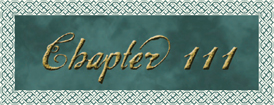
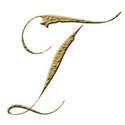 HE TOLLING BELL in the clock tower rang for three full minutes, rattling the crystal chandelier that hung above Langdon’s head. Decades ago, he had attended lectures in this well-loved assembly hall at Phillips Exeter Academy. Today, however, he was here to listen to a dear friend address the student body. As the lights dimmed, Langdon took a seat against the back wall, beneath a pantheon of headmaster portraits.
HE TOLLING BELL in the clock tower rang for three full minutes, rattling the crystal chandelier that hung above Langdon’s head. Decades ago, he had attended lectures in this well-loved assembly hall at Phillips Exeter Academy. Today, however, he was here to listen to a dear friend address the student body. As the lights dimmed, Langdon took a seat against the back wall, beneath a pantheon of headmaster portraits.
A hush fell across the crowd.
In total darkness, a tall, shadowy figure crossed the stage and took the podium. “Good morning,” the faceless voice whispered into the microphone.
Everyone sat up, straining to see who was addressing them.
A slide projector flashed to life, revealing a faded sepia photograph—a dramatic castle with a red sandstone facade, high square towers, and Gothic embellishments.
The shadow spoke again. “Who can tell me where this is?”
“England!” a girl declared in the darkness. “This facade is a blend of early Gothic and late Romanesque, making this the quintessential Norman castle and placing it in England at about the twelfth century.”
“Wow,” the faceless voice replied. “Someone knows her architecture.”
Quiet groans all around.
“Unfortunately,” the shadow added, “you missed by three thousand miles and half a millennium.”
The room perked up.
The projector now flashed a full-color, modern photo of the same castle from a different angle. The castle’s Seneca Creek sandstone towers dominated the foreground, but in the background, startlingly close, stood the majestic, white, columned dome of the U.S. Capitol Building.
“Hold on!” the girl exclaimed. “There’s a Norman castle in D.C.?!”
“Since 1855,” the voice replied. “Which is when this next photo was taken.”
A new slide appeared—a black-and-white interior shot, depicting a massive vaulted ballroom, furnished with animal skeletons, scientific display cases, glass jars with biological samples, archaeological artifacts, and plaster casts of prehistoric reptiles.
“This wondrous castle,” the voice said, “was America’s first real science museum. It was a gift to America from a wealthy British scientist who, like our forefathers, believed our fledgling country could become the land of enlightenment. He bequeathed to our forefathers a massive fortune and asked them to build at the core of our nation ‘an establishment for the increase and diffusion of knowledge.’ ” He paused a long moment. “Who can tell me the name of this generous scientist?”
A timid voice in front ventured, “James Smithson?”
A whisper of recognition rippled through the crowd.
“Smithson indeed,” the man on stage replied. Peter Solomon now stepped into the light, his gray eyes flashing playfully. “Good morning. My name is Peter Solomon, and I am secretary of the Smithsonian Institution.”
The students broke into wild applause.
In the shadows, Langdon watched with admiration as Peter captivated the young minds with a photographic tour of the Smithsonian Institution’s early history. The show began with Smithsonian Castle, its basement science labs, corridors lined with exhibits, a salon full of mollusks, scientists who called themselves “the curators of crustaceans,” and even an old photo of the castle’s two most popular residents—a pair of now-deceased owls named Diffusion and Increase. The half-hour slide show ended with an impressive satellite photo of the National Mall, now lined with enormous Smithsonian museums.
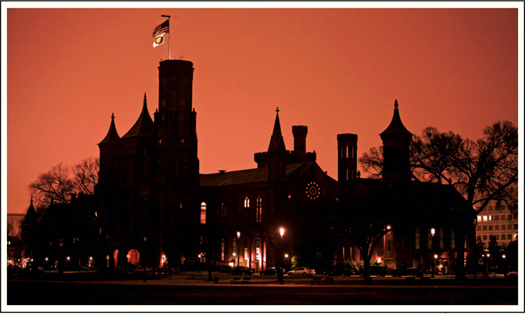
THE SMITHSONIAN CASTLE
111.1: Photo by: Randy Santos/dcstockimages.com
“As I said when I began,” Solomon stated in conclusion, “James Smithson and our forefathers envisioned our great country to be a land of enlightenment. I believe today they would be proud. Their great Smithsonian Institution stands as a symbol of science and knowledge at the very core of America. It is a living, breathing, working tribute to our forefathers’ dream for America—a country founded on the principles of knowledge, wisdom, and science.”
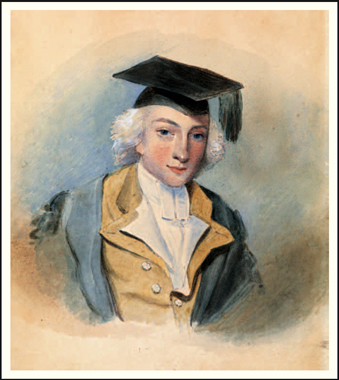
JAMES SMITHSON
111.2: Smithsonian American ArtMuseum, Washington, DC/Art Resource, NY
Solomon clicked off the slides to an energetic round of applause. The houselights came up, along with dozens of eager hands with questions.
Solomon called on a small red-haired boy in the middle.
“Mr. Solomon?” the boy said, sounding puzzled. “You said our forefathers fled the religious oppression of Europe to establish a country on the principles of scientific advancement.”
“That’s correct.”
“But … I was under the impression our forefathers were devoutly religious men who founded America as a Christian nation.”
Solomon smiled. “My friends, don’t get me wrong, our forefathers were deeply religious men, but they were Deists—men who believed in God, but in a universal and open-minded way. The only religious ideal they put forth was religious freedom.” He pulled the microphone from the podium and strode out to the edge of the stage. “America’s forefathers had a vision of a spiritually enlightened utopia, in which freedom of thought, education of the masses, and scientific advancement would replace the darkness of outdated religious superstition.”
A blond girl in back raised her hand.
“Yes?”
“Sir,” the girl said, holding up her cell phone, “I’ve been researching you online, and Wikipedia says you’re a prominent Freemason.”
Solomon held up his Masonic ring. “I could have saved you the data charges.” The students laughed.
“Yes, well,” the girl continued, hesitating, “you just mentioned ‘outdated religious superstition,’ and it seems to me that if anyone is responsible for propagating outdated superstitions … it would be the Masons.”
Solomon seemed unfazed. “Oh? How so?”
“Well, I’ve read a lot about Masonry, and I know you’ve got a lot of strange ancient rituals and beliefs. This article online even says that Masons believe in the power of some kind of ancient magical wisdom … which can elevate man to the realm of the gods?”
Everyone turned and stared at the girl as if she were nuts.
“Actually,” Solomon said, “she’s right.”
The kids all spun around and faced front, eyes widening.
Solomon suppressed a smile and asked the girl, “Does it offer any other Wikiwisdom about this magical knowledge?”
The girl looked uneasy now, but she began to read from the Web site. “ ‘To ensure this powerful wisdom could not be used by the unworthy, the early adepts wrote down their knowledge in code … cloaking its potent truth in a metaphorical language of symbols, myth, and allegory. To this day, this encrypted wisdom is all around us … encoded in our mythology, our art, and the occult texts of the ages. Unfortunately, modern man has lost the ability to decipher this complex network of symbolism … and the great truth has been lost.’ ”
Solomon waited. “That’s all?”
The girl shifted in her seat. “Actually, there is a little bit more.”
“I should hope so. Please … tell us.”
The girl looked hesitant, but she cleared her throat and continued. “ ‘According to legend, the sages who encrypted the Ancient Mysteries long ago left behind a key of sorts … a password that could be used to unlock the encrypted secrets. This magical password—known as the verbum significatium—is said to hold the power to lift the darkness and unlock the Ancient Mysteries, opening them to all human understanding.’ ”
Solomon smiled wistfully. “Ah, yes … the verbum significatium.” He stared into space for a moment and then lowered his eyes again to the blond girl. “And where is this wonderful word now?”
The girl looked apprehensive, clearly wishing she had not challenged their guest speaker. She finished reading. “ ‘Legend holds that the verbum significatium is buried deep underground, where it waits patiently for a pivotal moment in history … a moment when mankind can no longer survive without the truth, knowledge, and wisdom of the ages. At this dark crossroads, mankind will at last unearth the Word and herald in a wondrous new age of enlightenment.’ ”
The girl turned off her phone and shrank down in her seat.
After a long silence, another student raised his hand. “Mr. Solomon, you don’t actually believe that, right?”
Solomon smiled. “Why not? Our mythologies have a long tradition of magic words that provide insight and godlike powers. To this day, children still shout ‘abracadabra’ in hopes of creating something out of nothing. Of course, we’ve all forgotten that this word is not a toy; it has roots in ancient Aramaic mysticism—Avrah KaDabra—meaning ‘I create as I speak.’ ”
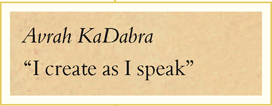
Silence.
“But, sir,” the student now pressed, “surely you don’t believe that a single word … this verbum significatium … whatever it is … has the power to unlock ancient wisdom … and bring about a worldwide enlightenment?”
Peter Solomon’s face revealed nothing. “My own beliefs should not concern you. What should concern you is that this prophecy of a coming enlightenment is echoed in virtually every faith and philosophical tradition on earth. Hindus call it the Krita Age, astrologers call it the Age of Aquarius, the Jews describe the coming of the Messiah, theosophists call it the New Age, cosmologists call it Harmonic Convergence and predict the actual date.”
“December 21, 2012!” someone called.
“Yes, unnervingly soon … if you’re a believer in Mayan math.”
Langdon chuckled, recalling how Solomon, ten years ago, had correctly predicted the current spate of television specials predicting that the year 2012 would mark the End of the World.
“Timing aside,” Solomon said, “I find it wondrous to note that throughout history, all of mankind’s disparate philosophies have all concurred on one thing—that a great enlightenment is coming. In every culture, in every era, in every corner of the world, the human dream has focused on the same exact concept—the coming apotheosis of man … the impending transformation of our human minds into their true potentiality.” He smiled. “What could possibly explain such a synchronicity of beliefs?”
“Truth,” said a quiet voice in the crowd.
Solomon wheeled. “Who said that?”
The hand that went up belonged to a tiny Asian boy whose soft features suggested he might be Nepalese or Tibetan. “Maybe there is a universal truth embedded in everyone’s soul. Maybe we all have the same story hiding inside, like a shared constant in our DNA. Maybe this collective truth is responsible for the similarity in all of our stories.”
Solomon was beaming as he pressed his hands together and bowed reverently to the boy. “Thank you.”
Everyone was quiet.
“Truth,” Solomon said, addressing the room. “Truth has power. And if we all gravitate toward similar ideas, maybe we do so because those ideas are true … written deep within us. And when we hear the truth, even if we don’t understand it, we feel that truth resonate within us … vibrating with our unconscious wisdom. Perhaps the truth is not learned by us, but rather, the truth is re-called … remembered … re-cognized … as that which is already inside us.”
The silence in the hall was complete.
Solomon let it sit for a long moment, then quietly said, “In closing, I should warn you that unveiling the truth is never easy. Throughout history, every period of enlightenment has been accompanied by darkness, pushing in opposition. Such are the laws of nature and balance. And if we look at the darkness growing in the world today, we have to realize that this means there is equal light growing. We are on the verge of a truly great period of illumination, and all of us—all of you—are profoundly blessed to be living through this pivotal moment of history. Of all the people who have ever lived, in all the eras in history … we are in that narrow window of time during which we will bear witness to our ultimate renaissance. After millennia of darkness, we will see our sciences, our minds, and even our religions unveil the truth.”
Solomon was about to get a hearty round of applause when he held up his hand for silence. “Miss?” He pointed directly to the contentious blond girl in back with the cell phone. “I know you and I didn’t agree on much, but I want to thank you. Your passion is an important catalyst in the coming changes. Darkness feeds on apathy … and conviction is our most potent antidote. Keep studying your faith. Study the Bible.” He smiled. “Especially the final pages.”
“The Apocalypse?” she said.
“Absolutely. The Book of Revelation is a vibrant example of our shared truth. The last book of the Bible tells the identical story as countless other traditions. They all predict the coming unveiling of great wisdom.”
Someone else said, “But isn’t the Apocalypse about the end of the world? You know, the Antichrist, Armageddon, the final battle between good and evil?”
Solomon chuckled. “Who here studies Greek?”
Several hands went up.
“What does the word apocalypse literally mean?”
“It means,” one student began, and then paused as if surprised. “Apocalypse means ‘to unveil’ … or ‘to reveal.’ ”
Solomon gave the boy a nod of approval. “Exactly. The Apocalypse is literally a revelation. The Book of Revelation in the Bible predicts an unveiling of great truth and unimaginable wisdom. The Apocalypse is not the end of the world, but rather it is the end of the world as we know it. The prophecy of the Apocalypse is just one of the Bible’s beautiful messages that has been distorted.” Solomon stepped to the front of the stage. “Believe me, the Apocalypse is coming … and it will be nothing like what we were taught.”
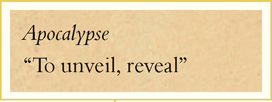
High over his head, the bell began to toll.
The students erupted into bewildered and thunderous applause.
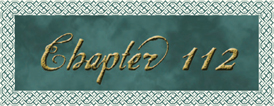
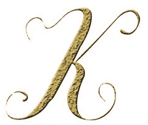 ATHERINE SOLOMON was teetering on the edge of consciousness when she was jolted by the shock wave of a deafening explosion.
ATHERINE SOLOMON was teetering on the edge of consciousness when she was jolted by the shock wave of a deafening explosion.
Moments later, she smelled smoke.
Her ears were ringing.
There were muffled voices. Distant. Shouting. Footsteps. Suddenly she was breathing more clearly. The cloth had been pulled from her mouth.
“You’re safe,” a man’s voice whispered. “Just hold on.”
She expected the man to pull the needle out of her arm but instead he was yelling orders. “Bring the medical kit … attach an IV to the needle … infuse lactated Ringer’s solution … get me a blood pressure.” As the man began checking her vital signs, he said, “Ms. Solomon, the person who did this to you … where did he go?”
Katherine tried to speak, but she could not.
“Ms. Solomon?” the voice repeated. “Where did he go?”
Katherine tried to pry her eyes open, but she felt herself fading.
“We need to know where he went,” the man urged.
Katherine whispered three words in response, although she knew they made no sense.”The … sacred … mountain.”
Director Sato stepped over the mangled steel door and descended a wooden ramp into the hidden basement. One of her agents met her at the bottom.
“Director, I think you’ll want to see this.”
Sato followed the agent into a small room off the narrow hallway. The room was brightly lit and barren, except for a pile of clothing on the floor. She recognized Robert Langdon’s tweed coat and loafers.
Her agent pointed toward the far wall at a large, casketlike container.
What in the world?
Sato moved toward the container, seeing now that it was fed by a clear plastic pipe that ran through the wall. Warily, she approached the tank. Now she could see that it had a small slider on top. She reached down and slid the covering to one side, revealing a small portal-like window.
Sato recoiled.
Beneath the Plexiglas … floated the submerged, vacant face of Professor Robert Langdon.
Light!
The endless void in which Langdon hovered was suddenly filled by a blinding sun. Rays of white-hot light streamed across the blackness of space, burning into his mind.
The light was everywhere.
Suddenly, within the radiant cloud before him, a beautiful silhouette appeared. It was a face … blurry and indistinct … two eyes staring at him across the void. Streams of light surrounded the face, and Langdon wondered if he was looking into the face of God.
Sato stared down into the tank, wondering if Professor Langdon had any idea what had happened. She doubted it. After all, disorientation was the entire purpose of this technology.
Sensory-deprivation tanks had been around since the fifties and were still a popular getaway for wealthy New Age experimenters. “Floating,” as it was called, offered a transcendental back-to-the-womb experience … a kind of meditative aid that quieted brain activity by removing all sensory input—light, sound, touch, and even the pull of gravity. In traditional tanks, the person would float on his back in a hyperbuoyant saline solution that kept his face above the water so he could breathe.
In recent years, however, these tanks had taken a quantum leap.
Oxygenated perfluorocarbons.
This new technology—known as Total Liquid Ventilation (TLV)—was so counterintuitive that few believed it existed.
Breathable liquid.
Liquid breathing had been a reality since 1966, when Leland C. Clark successfully kept alive a mouse that had been submerged for several hours in an oxygenated perfluorocarbon. In 1989, TLV technology made a dramatic appearance in the movie The Abyss, although few viewers realized that they were watching real science.
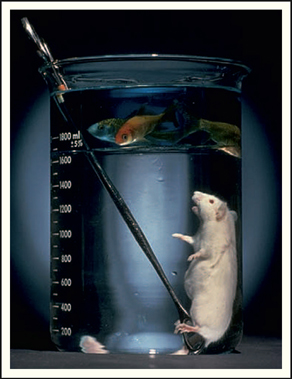
“BREATHABLE LIQUID” (OXYGENATED PERFLUOROCARBON)
112.1: © Gordon Baer/Cincinnati
Total Liquid Ventilation had been born of modern medicine’s attempts to help premature babies breathe by returning them to the liquid-filled state of the womb. Human lungs, having spent nine months in utero, were no strangers to a liquid-filled state. Perfluorocarbons had once been too viscous to be fully breathable, but modern breakthroughs had made breathable liquids almost the consistency of water.
The CIA’s Directorate of Science and Technology—“the Wizards of Langley,” as they were known within the intelligence community—had worked extensively with oxygenated perfluorocarbons to develop technologies for the U.S. military. The navy’s elite deep-ocean diving teams found that breathing oxygenated liquid, rather than the usual heliox or trimix, gave them the ability to dive to much greater depths without risk of pressure sickness. Similarly, NASA and the air force had learned that pilots equipped with a liquid breathing apparatus rather than a traditional oxygen tank could withstand far higher g-forces than usual because liquid spread the g-force more evenly throughout the internal organs than gas did.
Sato had heard that there were now “extreme experience labs” where one could try these Total Liquid Ventilation tanks—“Meditation Machines,” as they were called. This particular tank had probably been installed for its owner’s private experimentation, although the addition of heavy, lockable latches left little doubt in Sato’s mind that this tank had also been used for darker applications … an interrogation technique with which the CIA was familiar.
The infamous interrogation technique of waterboarding was highly effective because the victim truly believed he was drowning. Sato knew of several classified operations in which sensory-deprivation tanks like these had been used to enhance that illusion to terrifying new levels. A victim submerged in breathable liquid could literally be “drowned.” The panic associated with the drowning experience usually made the victim unaware that the liquid he was breathing was slightly more viscous than water. When the liquid poured into his lungs, he would often black out from fear, and then awaken in the ultimate “solitary confinement.”
Topical numbing agents, paralysis drugs, and hallucinogens were mixed with the warm oxygenated liquid to give the prisoner the sense he was entirely separated from his body. When his mind sent commands to move his limbs, nothing happened. The state of being “dead” was terrifying on its own, but the true disorientation came from the “rebirthing” process, which, with the aid of bright lights, cold air, and deafening noise, could be extremely traumatic and painful. After a handful of rebirths and subsequent drownings, the prisoner became so disorientated that he had no idea if he was alive or dead … and he would tell the interrogator absolutely anything.
Sato wondered if she should wait for a medical team to extract Langdon, but she knew she didn’t have time. I need to know what he knows.
“Turn out the lights,” she said. “And find me some blankets.”
The blinding sun had vanished.
The face had also disappeared.
The blackness had returned, but Langdon could now hear distant whispers echoing across the light-years of emptiness. Muffled voices … unintelligible words. There were vibrations now … as if the world were about to shake apart.
Then it happened.
Without warning, the universe was ripped in two. An enormous chasm opened in the void … as if space itself had ruptured at the seams. A grayish mist poured through the opening, and Langdon saw a terrifying sight. Disembodied hands were suddenly reaching for him, grabbing his body, trying to yank him out of his world.
No! He tried to fight them off, but he had no arms … no fists. Or did he? Suddenly he felt his body materializing around his mind. His flesh had returned and it was being seized by powerful hands that were dragging him upward. No! Please!
But it was too late.
Pain racked his chest as the hands heaved him through the opening. His lungs felt like they were filled with sand. I can’t breathe! He was suddenly on his back on the coldest, hardest surface he could imagine. Something was pressing on his chest, over and over, hard and painful. He was spewing out the warmth.
I want to go back.
He felt like he was a child being born from a womb.
He was convulsing, coughing up liquid. He felt pain in his chest and neck. Excruciating pain. His throat was on fire. People were talking, trying to whisper, but it was deafening. His vision was blurred, and all he could see was muted shapes. His skin felt numb, like dead leather.
His chest felt heavier now … pressure. I can’t breathe!
He was coughing up more liquid. An overwhelming gag reflex seized him, and he gasped inward. Cold air poured into his lungs, and he felt like a newborn taking his first breath on earth. This world was excruciating. All Langdon wanted was to return to the womb.
Robert Langdon had no idea how much time had passed. He could feel now that he was lying on his side, wrapped in towels and blankets on a hard floor. A familiar face was gazing down at him … but the streams of glorious light were gone. The echoes of distant chanting still hung in his mind.
Verbum significatium … Verbum omnificum …
“Professor Langdon,” someone whispered. “Do you know where you are?”
Langdon nodded weakly, still coughing.
More important, he had begun to realize what was going on tonight.
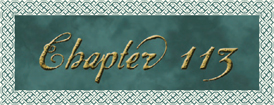
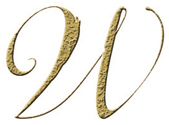 RAPPED IN wool blankets, Langdon stood on wobbly legs and stared down at the open tank of liquid. His body had returned to him, although he wished it had not. His throat and lungs burned. This world felt hard and cruel.
RAPPED IN wool blankets, Langdon stood on wobbly legs and stared down at the open tank of liquid. His body had returned to him, although he wished it had not. His throat and lungs burned. This world felt hard and cruel.
Sato had just explained the sensory-deprivation tank … adding that if she had not pulled him out, he would have died of starvation, or worse. Langdon had little doubt that Peter had endured a similar experience. Peter is in the in-between, the tattooed man had told him earlier tonight. He is in purgatory … Hamistagan. If Peter had endured more than one of those birthing processes, Langdon would not have been surprised if Peter had told his captor anything he had wanted to know.
Sato motioned for Langdon to follow her, and he did, trudging slowly down a narrow hall, deeper into this bizarre lair that he was now seeing for the first time. They entered a square room with a stone table and eerie-colored lighting. Katherine was here, and Langdon heaved a sigh of relief. Even so, the scene was worrisome.
Katherine was lying on her back on a stone table. Blood-soaked towels lay on the floor. A CIA agent was holding an IV bag above her, the tube connected to her arm.
She was sobbing quietly.
“Katherine?” Langdon croaked, barely able to speak.
She turned her head, looking disorientated and confused. “Robert?!” Her eyes widened with disbelief and then joy. “But I … saw you drown!”
He moved toward the stone table.
Katherine pulled herself to a seated position, ignoring her IV tube and the medical objections of the agent. Langdon reached the table, and Katherine reached out, wrapping her arms around his blanket-clad body, holding him close. “Thank God,” she whispered, kissing his cheek. Then she kissed him again, squeezing him as though she didn’t believe he was real. “I don’t understand … how …”
Sato began saying something about sensory-deprivation tanks and oxygenated perfluorocarbons, but Katherine clearly wasn’t listening. She just held Langdon close.
“Robert,” she said, “Peter’s alive.” Her voice wavered as she recounted her horrifying reunion with Peter. She described his physical condition—the wheelchair, the strange knife, the allusions to some kind of “sacrifice,” and how she had been left bleeding as a human hourglass to persuade Peter to cooperate quickly.
Langdon could barely speak. “Do you … have any idea where … they went?!”
“He said he was taking Peter to the sacred mountain.”
Langdon pulled away and stared at her.
Katherine had tears in her eyes. “He said he had deciphered the grid on the bottom of the pyramid, and that the pyramid told him to go to the sacred mountain.”
“Professor,” Sato pressed, “does that mean anything to you?”
Langdon shook his head. “Not at all.” Still, he felt a surge of hope. “But if he got the information off the bottom of the pyramid, we can get it, too.” I told him how to solve it.
Sato shook her head. “The pyramid’s gone. We’ve looked. He took it with him.”
Langdon remained silent a moment, closing his eyes and trying to recall what he had seen on the base of the pyramid. The grid of symbols had been one of the last images he had seen before drowning, and trauma had a way of burning memories deeper into the mind. He could recall some of the grid, definitely not all of it, but maybe enough?
He turned to Sato and said hurriedly, “I may be able to remember enough, but I need you to look up something on the Internet.”
She pulled out her BlackBerry.
“Run a search for ‘The Order Eight Franklin Square.’ ”
Sato gave him a startled look but began typing without questions.
Langdon’s vision was still blurry, and he was only now starting to process his strange surroundings. He realized that the stone table on which they were leaning was covered with old bloodstains, and the wall to his right was entirely plastered with pages of text, photos, drawings, maps, and a giant web of strings interconnecting them.
My God.
Langdon moved toward the strange collage, still clutching the blankets around his body. Tacked on the wall was an utterly bizarre collection of information—pages from ancient texts ranging from black magic to Christian Scripture, drawings of symbols and sigils, pages of conspiracy-theory Web sites, and satellite photos of Washington, D.C., scrawled with notes and question marks. One of the sheets was a long list of words in many languages. He recognized some of them as sacred Masonic words, others as ancient magic words, and others from ceremonial incantations.
Is that what he’s looking for?
A word?
Is it that simple?
Langdon’s long-standing skepticism about the Masonic Pyramid was based largely on what it allegedly revealed—the location of the Ancient Mysteries. This discovery would have to involve an enormous vault filled with thousands upon thousands of volumes that had somehow survived the long-lost ancient libraries in which they had once been stored. It all seemed impossible. A vault that big? Beneath D.C.? Now, however, his recollection of Peter’s lecture at Phillips Exeter, combined with these lists of magic words, had opened another startling possibility.
Langdon most definitely did not believe in the power of magic words … and yet it seemed pretty clear that the tattooed man did. His pulse quickened as he again scanned the scrawled notes, the maps, the texts, the printouts, and all the interconnected strings and sticky notes.
Sure enough, there was one recurring theme.
My God, he’s looking for the verbum significatium … the Lost Word. Langdon let the thought take shape, recalling fragments of Peter’s lecture. The Lost Word is what he’s looking for! That’s what he believes is buried here in Washington.
Sato arrived beside him. “Is this what you asked for?” She handed him her Black-Berry.
Langdon looked at the eight-by-eight grid of numbers on the screen. “Exactly.” He grabbed a piece of scrap paper. “I’ll need a pen.”
Sato handed him one from her pocket. “Please hurry.”
Inside the basement office of the Directorate of Science and Technology, Nola Kaye was once again studying the redacted document brought to her by sys-sec Rick Parrish. What the hell is the CIA director doing with a file about ancient pyramids and secret underground locations?
She grabbed the phone and dialed.
Sato answered instantly, sounding tense. “Nola, I was just about to call you.”
“I have new information,” Nola said. “I’m not sure how this fits, but I’ve discovered there’s a redacted—”
“Forget it, whatever it is,” Sato interrupted. “We’re out of time. We failed to apprehend the target, and I have every reason to believe he’s about to carry out his threat.”
“The good news is we know exactly where he’s going.” Sato took a deep breath. “The bad news is that he’s carrying a laptop with him.”
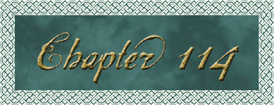
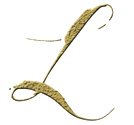 ESS THAN ten miles away, Mal’akh tucked the blanket around Peter Solomon and wheeled him across a moonlit parking lot into the shadow of an enormous building.
ESS THAN ten miles away, Mal’akh tucked the blanket around Peter Solomon and wheeled him across a moonlit parking lot into the shadow of an enormous building.
The structure had exactly thirty-three outer columns … each precisely thirty-three feet tall. The mountainous structure was deserted at this hour, and nobody would ever see them back here. Not that it mattered. From a distance, no one would think twice about a tall, kindly-looking man in a long black coat taking a bald invalid for an evening stroll.
When they reached the rear entrance, Mal’akh wheeled Peter up close to the security keypad. Peter stared at it defiantly, clearly having no intention of entering the code.
Mal’akh laughed. “You think you’re here to let me in? Have you forgotten so soon that I am one of your brethren?” He reached out and typed the access code that he had been given after his initiation to the thirty-third degree.
The heavy door clicked open.
Peter groaned and began struggling in the wheelchair.
“Peter, Peter,” Mal’akh cooed. “Picture Katherine. Be cooperative, and she will live. You can save her. I give you my word.”
Mal’akh wheeled his captive inside and relocked the door behind them, his heart racing now with anticipation. He pushed Peter through some hallways to an elevator and pressed the call button. The doors opened, and Mal’akh backed in, pulling the wheelchair along with him. Then, making sure Peter could see what he was doing, he reached out and pressed the uppermost button.
A look of deepening dread crossed Peter’s tortured face.
“Shh …” Mal’akh whispered, gently stroking Peter’s shaved head as the elevator doors closed. “As you well know … the secret is how to die.”
I can’t remember all the symbols!
Langdon closed his eyes, doing his best to recall the precise locations of the symbols on the bottom of the stone pyramid, but even his eidetic memory did not have that degree of recall. He wrote down the few symbols he could remember, placing each one in the location indicated by Franklin’s magic square.
So far, however, he saw nothing that made any sense.
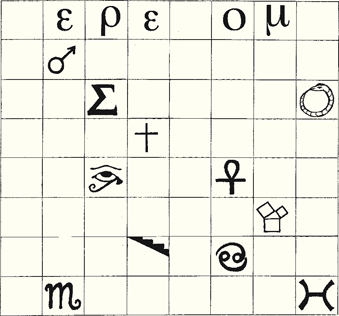
“Look!” Katherine urged. “You must be on the right track. The first row is all Greek letters—the same kinds of symbols are being arranged together!”
Langdon had noticed this, too, but he could not think of any Greek word that fit that configuration of letters and spaces. I need the first letter. He glanced again at the magic square, trying to recall the letter that had been in the number one spot near the lower left corner. Think! He closed his eyes, trying to picture the base of the pyramid. The bottom row … next to the left-hand corner … what letter was there?
For an instant, Langdon was back in the tank, racked with terror, staring up through the Plexiglas at the bottom of the pyramid.
Now, suddenly, he saw it. He opened his eyes, breathing heavily. “The first letter is H!”
Langdon turned back to the grid and wrote in the first letter. The word was still incomplete, but he had seen enough. Suddenly he realized what the word might be.

Pulse pounding, Langdon typed a new search into the BlackBerry. He entered the English equivalent of this well-known Greek word. The first hit that appeared was an encyclopedia entry. He read it and knew it had to be right.
HEREDOM n. a significant word in “high degree”
Freemasonry, from French Rose Croix rituals, where it refers to a mythical mountain in Scotland, the legendary site of the first such Chapter. From the Greek  originating from Hieros-domos, Greek for Holy House.
originating from Hieros-domos, Greek for Holy House.
“That’s it!” Langdon exclaimed, incredulous. “That’s where they went!”
Sato had been reading over his shoulder and looked lost. “To a mythical mountain in Scotland?!”
Langdon shook his head. “No, to a building in Washington whose code name is Heredom.”
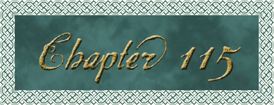
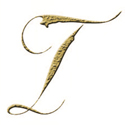 HE HOUSE of the Temple—known among its brethren as Heredom—had always been the crown jewel of the Masonic Scottish Rite in America. With its steeply sloped, pyramidical roof, the building was named for an imaginary Scottish mountain. Mal’akh knew, however, there was nothing imaginary about the treasure hidden here.
HE HOUSE of the Temple—known among its brethren as Heredom—had always been the crown jewel of the Masonic Scottish Rite in America. With its steeply sloped, pyramidical roof, the building was named for an imaginary Scottish mountain. Mal’akh knew, however, there was nothing imaginary about the treasure hidden here.
This is the place, he knew. The Masonic Pyramid has shown the way.
As the old elevator slowly made its way to the third floor, Mal’akh took out the piece of paper on which he had reorganized the grid of symbols using the Franklin Square. All the Greek letters had now shifted to the first row … along with one simple symbol.

The message could not have been more clear.
Beneath the House of the Temple.
Heredom↓
The Lost Word is here … somewhere.
Although Mal’akh did not know precisely how to locate it, he was confident that the answer lay in the remaining symbols on the grid. Conveniently, when it came to unlocking the secrets of the Masonic Pyramid and of this building, no one was more qualified to help than Peter Solomon. The Worshipful Master himself.
Peter continued to struggle in the wheelchair, making muffled sounds through his gag.
“I know you’re worried about Katherine,” Mal’akh said. “But it’s almost over.”
For Mal’akh, the end felt like it had arrived very suddenly. After all the years of pain and planning, waiting and searching … the moment had now arrived.
The elevator began to slow, and he felt a rush of excitement.
The carriage jolted to a stop.
The bronze doors slid open, and Mal’akh gazed out at the glorious chamber before them. The massive square room was adorned with symbols and bathed in moonlight, which shone down through the oculus at the pinnacle of the ceiling high above.
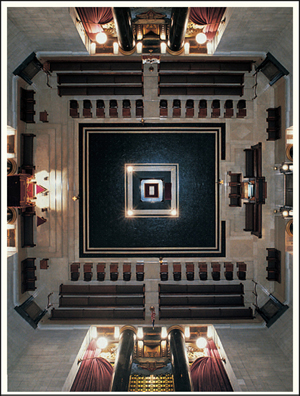
THE TEMPLE ROOM, HOUSE OF THE TEMPLE, AS SEEN FROM THE SKYLIGHT 100 FEET ABOVE © Maxwell MacKenzie
I have come full circle, Mal’akh thought.
The Temple Room was the same place in which Peter Solomon and his brethren had so foolishly initiated Mal’akh as one of their own. Now the Masons’ most sublime secret—something that most of the brethren did not even believe existed—was about to be unearthed.

“He won’t find anything,” Langdon said, still feeling groggy and disorientated as he followed Sato and the others up the wooden ramp out of the basement. “There is no actual Word. It’s all a metaphor—a symbol of the Ancient Mysteries.”
Katherine followed, with two agents assisting her weakened body up the ramp.
As the group moved gingerly through the wreckage of the steel door, through the rotating painting, and into the living room, Langdon explained to Sato that the Lost Word was one of Freemasonry’s most enduring symbols—a single word, written in an arcane language that man could no longer decipher. The Word, like the Mysteries themselves, promised to unveil its hidden power only to those enlightened enough to decrypt it. “It is said,” Langdon concluded, “that if you can possess and understand the Lost Word … then the Ancient Mysteries will become clear to you.”
Sato glanced over. “So you believe this man is looking for a word?”
Langdon had to admit it sounded absurd at face value, and yet it answered a lot of questions. “Look, I’m no specialist in ceremonial magic,” he said, “but from the documents on his basement walls … and from Katherine’s description of the untattooed flesh on his head … I’d say he’s hoping to find the Lost Word and inscribe it on his body.”
Sato moved the group toward the dining room. Outside, the helicopter was warming up, its blades thundering louder and louder.
Langdon kept talking, thinking aloud. “If this guy truly believes he is about to unlock the power of the Ancient Mysteries, no symbol would be more potent in his mind than the Lost Word. If he could find it and inscribe it on the top of his head—a sacred location in itself—then he would no doubt consider himself perfectly adorned and ritualistically prepared to …” He paused, seeing Katherine blanch at the thought of Peter’s impending fate.
“But, Robert,” she said weakly, her voice barely audible over the helicopter blades. “This is good news, right? If he wants to inscribe the Lost Word on the top of his head before he sacrifices Peter, then we have time. He won’t kill Peter until he finds the Word. And, if there is no Word …”
Langdon tried to look hopeful as the agents helped Katherine into a chair. “Unfortunately, Peter still thinks you’re bleeding to death. He thinks the only way to save you is to cooperate with this lunatic … probably to help him find the Lost Word.”
“So what?” she insisted. “If the Word doesn’t exist—”
“Katherine,” Langdon said, staring deeply into her eyes. “If I believed you were dying, and if someone promised me I could save you by finding the Lost Word, then I would find this man a word—any word—and then I’d pray to God he kept his promise.”

“Director Sato!” an agent shouted from the next room. “You’d better see this!”
Sato hurried out of the dining room and saw one of her agents coming down the stairs from the bedroom. He was carrying a blond wig. What the hell?
“Man’s hairpiece,” he said, handing it to her. “Found it in the dressing room. Have a close look.”
The blond wig was much heavier than Sato expected. The skullcap seemed to be molded of a thick gel. Strangely, the underside of the wig had a wire protruding from it.
“Gel-pack battery that molds to your scalp,” the agent said. “Powers a fiber-optic pinpoint camera hidden in the hair.”
“What?” Sato felt around with her fingers until she found the tiny camera lens nestled invisibly within the blond bangs. “This thing’s a hidden camera?”
“Video camera,” the agent said. “Stores footage on this tiny solid-state card.” He pointed to a stamp-size square of silicon embedded in the skullcap. “Probably motion activated.”
Jesus, she thought. So that’s how he did it.
This sleek version of the “flower in the lapel” secret camera had played a key role in the crisis the OS director was facing tonight. She glared at it a moment longer and then handed it back to the agent.
“Keep searching the house,” she said. “I want every bit of information you can find on this guy. We know his laptop is missing, and I want to know exactly how he plans to connect it to the outside world while he’s on the move. Search his study for manuals, cables, anything at all that might give us a clue about his hardware.”
“Yes, ma’am.” The agent hurried off.
Time to move out. Sato could hear the whine of the helicopter blades at full pitch. She hurried back to the dining room, where Simkins had now ushered Warren Bellamy in from the helicopter and was gathering intel from him about the building to which they believed their target had gone.
House of the Temple.
“The front doors are sealed from within,” Bellamy was saying, still wrapped in a foil blanket and shivering visibly from his time outside in Franklin Square. “The building’s rear entrance is your only way in. It’s got a keypad with an access PIN known only to the brothers.”
“What’s the PIN?” Simkins demanded, taking notes.
Bellamy sat down, looking too feeble to stand. Through chattering teeth, he recited his access code and then added, “The address is 1733 Sixteenth, but you’ll want the access drive and parking area, behind the building. Kind of tricky to find, but—”
“I know exactly where it is,” Langdon said. “I’ll show you when we get there.”
Simkins shook his head. “You’re not coming, Professor. This is a military—”
“The hell I’m not!” Langdon fired back. “Peter’s in there! And that building’s a labyrinth! Without someone to lead you in, you’ll take ten minutes to find your way up to the Temple Room!”
“He’s right,” Bellamy said. “It’s a maze. There is an elevator, but it’s old and loud and opens in full view of the Temple Room. If you hope to move in quietly, you’ll need to ascend on foot.”
“You’ll never find your way,” Langdon warned. “From that rear entrance, you’re navigating through the Hall of Regalia, the Hall of Honor, the middle landing, the Atrium, the Grand Stair—”
“Enough,” Sato said. “Langdon’s coming.”
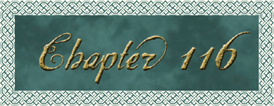
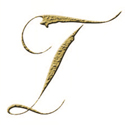 HE ENERGY was growing.
HE ENERGY was growing.
Mal’akh could feel it pulsing within him, moving up and down his body as he wheeled Peter Solomon toward the altar. I will exit this building infinitely more powerful than when I entered. All that remained now was to locate the final ingredient.
“Verbum significatium,” he whispered to himself. “Verbum omnificum.”
Mal’akh parked Peter’s wheelchair beside the altar and then circled around and unzipped the heavy daybag that sat on Peter’s lap. Reaching inside, he lifted out the stone pyramid and held it up in the moonlight, directly in front of Peter’s eyes, showing him the grid of symbols engraved on the bottom. “All these years,” he taunted, “and you never knew how the pyramid kept her secrets.” Mal’akh set the pyramid carefully on the corner of the altar and returned to the bag. “And this talisman,” he continued, extracting the golden capstone, “did indeed bring order from chaos, exactly as promised.” He placed the metal capstone carefully atop the stone pyramid, and then stepped back to give Peter a clear view. “Behold, your symbolon is complete.”
Peter’s face contorted, and he tried in vain to speak.
“Good. I can see you have something you’d like to tell me.” Mal’akh roughly yanked out the gag.
Peter Solomon coughed and gasped for several seconds before he finally managed to speak. “Katherine …”
“Katherine’s time is short. If you want to save her, I suggest you do exactly as I say.” Mal’akh suspected she was probably already dead, or if not, very close. It made no difference. She was lucky to have lived long enough to say good-bye to her brother.
“Please,” Peter begged, his voice ragged. “Send an ambulance for her …”
“I will do exactly that. But first you must tell me how to access the secret staircase.”
Peter’s expression turned to one of disbelief. “What?!”
“The staircase. Masonic legend speaks of stairs that descend hundreds of feet to the secret location where the Lost Word is buried.”
Peter now looked panicked.
“You know the legend,” Mal’akh baited. “A secret staircase hidden beneath a stone.” He pointed to the central altar—a huge block of granite with a gilded inscription in Hebrew: GOD SAID, “LET THERE BE LIGHT” AND THERE WAS LIGHT. “Obviously, this is the right place. The entrance to the staircase must be hidden on one of the floors beneath us.”
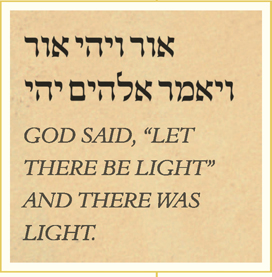
“There is no secret staircase in this building!” Peter shouted.
Mal’akh smiled patiently and motioned upward. “This building is shaped like a pyramid.” He pointed to the four-sided vaulted ceiling that angled up to the square oculus in the center.
“Yes, the House of the Temple is a pyramid, but what does—”
“Peter, I have all night.” Mal’akh smoothed his white silk robe over his perfect body. “Katherine, however, does not. If you want her to live, you will tell me how to access the staircase.”
“I already told you,” he declared, “there is no secret staircase in this building!”
“No?” Mal’akh calmly produced the sheet of paper on which he had reorganized the grid of symbols from the base of the pyramid. “This is the Masonic Pyramid’s final message. Your friend Robert Langdon helped me decipher it.”
Mal’akh raised the paper and held it in front of Peter’s eyes. The Worshipful Master inhaled sharply when he saw it. Not only had the sixty-four symbols been organized into clearly meaningful groups … but an actual image had materialized out of the chaos.
An image of a staircase … beneath a pyramid.

Peter Solomon stared in disbelief at the grid of symbols before him. The Masonic Pyramid had kept its secret for generations. Now, suddenly, it was being unveiled, and he felt a cold sense of foreboding in the pit of his stomach.
The pyramid’s final code.
At a glance, the true meaning of these symbols remained a mystery to Peter, and yet he could immediately understand why the tattooed man believed what he believed.
He thinks there is a hidden staircase beneath the pyramid called Heredom.
He misunderstands these symbols.
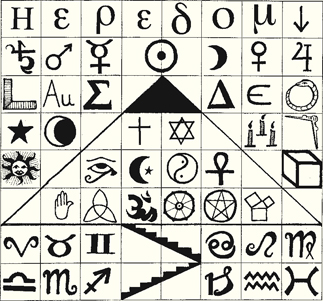
“Where is it?” the tattooed man demanded. “Tell me how to find the staircase, and I will save Katherine.”
I wish I could do that, Peter thought. But the staircase is not real. The myth of the staircase was purely symbolic … part of the great allegories of Masonry. The Winding Staircase, as it was known, appeared on the second-degree tracing boards. It represented man’s intellectual climb toward the Divine Truth. Like Jacob’s ladder, the Winding Staircase was a symbol of the pathway to heaven … the journey of man toward God … the connection between the earthly and spiritual realms. Its steps represented the many virtues of the mind.
He should know that, Peter thought. He endured all the initiations.
Every Masonic initiate learned of the symbolic staircase that he could ascend, enabling him “to participate in the mysteries of human science.” Freemasonry, like Noetic Science and the Ancient Mysteries, revered the untapped potential of the human mind, and many of Masonry’s symbols related to human physiology.
The mind sits like a golden capstone atop the physical body. The Philosopher’s Stone. Through the staircase of the spine, energy ascends and descends, circulating, connecting the heavenly mind to the physical body.
Peter knew it was no coincidence that the spine was made up of exactly thirty-three vertebrae. Thirty-three are the degrees of Masonry. The base of the spine, or sacrum, literally meant “sacred bone.” The body is indeed a temple. The human science that Masons revered was the ancient understanding of how to use that temple for its most potent and noble purpose.
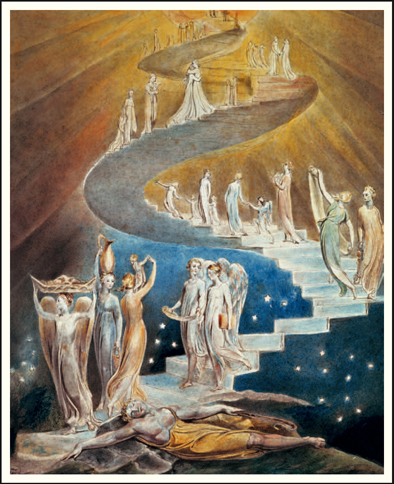
JACOB’S LADDER, WILLIAM BLAKE
116.1: British Museum, London, UK/The Bridgeman Art Library
Unfortunately, explaining the truth to this man was not going to help Katherine at all. Peter gazed down at the grid of symbols and gave a defeated sigh. “You’re right,” he lied. “There is indeed a secret staircase beneath this building. And as soon as you send help to Katherine, I’ll take you to it.”
The man with the tattoos simply stared at him.
Solomon glared back, eyes defiant. “Either save my sister and learn the truth … or kill us both and remain ignorant forever!”
The man quietly lowered the paper and shook his head. “I’m not happy with you, Peter. You failed your test. You still take me for a fool. Do you truly believe I don’t understand what it is I seek? Do you think I have not yet grasped my true potential?”
With that, the man turned his back and slipped off his robe. As the white silk fluttered to the floor, Peter saw for the first time the long tattoo running up the man’s spine.
Dear God …
Winding up from the man’s white loincloth, an elegant spiral staircase ascended the middle of his muscular back. Each stair was positioned on a different vertebra. Speechless, Peter let his eyes ascend the staircase, all the way up to the base of the man’s skull.
Peter could only stare.
The tattooed man now tipped his shaved head backward, revealing the circle of bare flesh on the pinnacle of his skull. The virgin skin was bordered by a single snake, looped in a circle, consuming itself.
At-one-ment.
Slowly now, the man lowered his head and turned to face Peter. The massive double-headed phoenix on his chest stared out through dead eyes.
“I am looking for the Lost Word,” the man said. “Are you going to help me … or are you and your sister going to die?”
You know how to find it, Mal’akh thought. You know something you’re not telling me.
Peter Solomon had revealed things under interrogation that he probably didn’t even recall now. The repeated sessions in and out of the deprivation tank had left him delirious and compliant. Incredibly, when he spilled his guts, everything he told Mal’akh had been consistent with the legend of the Lost Word.
The Lost Word is not a metaphor … it is real. The Word is written in an ancient language … and has been hidden for ages. The Word is capable of bringing unfathomable power to anyone who grasps its true meaning. The Word remains hidden to this day … and the Masonic Pyramid has the power to unveil it.
“Peter,” Mal’akh now said, staring into his captive’s eyes, “when you looked at that grid of symbols … you saw something. You had a revelation. This grid means something to you. Tell me.”
“I will tell you nothing until you send help to Katherine!”
Mal’akh smiled at him. “Believe me, the prospect of losing your sister is the least of your worries right now.” Without another word, he turned to Langdon’s daybag and started removing the items he had packed in his basement. Then he began meticulously arranging them on the sacrificial altar.
A folded silk cloth. Pure white.
A silver censer. Egyptian myrrh.
A vial of Peter’s blood. Mixed with ash.
A black crow’s feather. His sacred stylus.
The sacrificial knife. Forged of iron from a meteorite in the desert of Canaan.
“You think I am afraid to die?” Peter shouted, his voice racked with anguish. “If Katherine is gone, I have nothing left! You’ve murdered my entire family! You’ve taken everything from me!”
“Not everything,” Mal’akh replied. “Not yet.” He reached into the daybag and pulled out the laptop from his study. He turned it on and looked over at his captive. “I’m afraid you have not yet grasped the true nature of your predicament.”
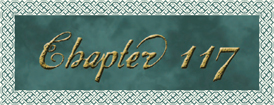
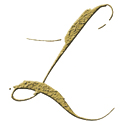 ANGDON FELT his stomach drop as the CIA helicopter leaped off the lawn, banked hard, and accelerated faster than he ever imagined a helicopter could move.
ANGDON FELT his stomach drop as the CIA helicopter leaped off the lawn, banked hard, and accelerated faster than he ever imagined a helicopter could move.
Katherine had stayed behind to recuperate with Bellamy while one of the CIA agents searched the mansion and waited for a backup team.
Before Langdon left, she had kissed him on the cheek and whispered, “Be safe, Robert.”
Now Langdon was holding on for dear life as the military helicopter finally leveled out and raced toward the House of the Temple.
Seated beside him, Sato was yelling up to the pilot. “Head for Dupont Circle!” she shouted over the deafening noise. “We’ll set down there!”
Startled, Langdon turned to her. “Dupont?! That’s blocks from the House of the Temple! We can land in the Temple parking lot!”
Sato shook her head. “We need to enter the building quietly. If our target hears us coming—”
“We don’t have time!” Langdon argued. “This lunatic is about to murder Peter! Maybe the sound of the helicopter will scare him and make him stop!”
Sato stared at him with ice-cold eyes. “As I have told you, Peter Solomon’s safety is not my primary objective. I believe I’ve made that clear.”
Langdon was in no mood for another national-security lecture. “Look, I’m the only one on board who knows his way through that building—”
“Careful, Professor,” the director warned. “You are here as a member of my team, and I will have your complete cooperation.” She paused a moment and then added, “In fact, it might be wise if I now apprised you fully of the severity of our crisis tonight.”
Sato reached under her seat and pulled out a sleek titanium briefcase, which she opened to reveal an unusually complicated-looking computer. When she turned it on, a CIA logo materialized along with a log-in prompt.
As Sato logged in, she asked, “Professor, do you remember the blond hairpiece we found in the man’s home?”
“Yes.”
“Well, hidden within that wig was a tiny fiber-optic camera … concealed in the bangs.”
“A hidden camera? I don’t understand.”
Sato looked grim. “You will.” She launched a file on the laptop.
ONE MOMENT PLEASE …
DECRYPTING FILE …
A video window popped up, filling the entire screen. Sato lifted the briefcase and set it on Langdon’s thighs, giving him a front-row seat.
An unusual image materialized on the screen.
Langdon recoiled in surprise. What the hell?!
Murky and dark, the video was of a blindfolded man. He was dressed in the garb of a medieval heretic being led to the gallows—noose around his neck, left pant leg rolled up to the knee, right sleeve rolled up to the elbow, and his shirt gaping open to reveal his bare chest.
Langdon stared in disbelief. He had read enough about Masonic rituals to recognize exactly what he was looking at.
A Masonic initiate … preparing to enter the first degree.
The man was very muscular and tall, with a familiar blond hairpiece and deeply tanned skin. Langdon recognized his features at once. The man’s tattoos had obviously been concealed beneath bronzing makeup. He was standing before a full-length mirror videotaping his reflection through the camera concealed in his wig.
But … why?
The screen faded to black.
New footage appeared. A small, dimly lit, rectangular chamber. A dramatic chessboard floor of black-and-white tile. A low wooden altar, flanked on three sides by pillars, atop which burned flickering candles.
Langdon felt a sudden apprehension.
Oh my God.
Filming in the erratic style of an amateur home video, the camera now panned up to the periphery of the room to reveal a small group of men observing the initiate. The men were dressed in ritual Masonic regalia. In the darkness, Langdon could not make out their faces, but he had no doubt where this ritual was taking place.
The traditional layout of this Lodge Room could have been anywhere in the world, but the powder-blue triangular pediment above the master’s chair revealed it as the oldest Masonic lodge in D.C.—Potomac Lodge No. 5—home of George Washington and the Masonic forefathers who laid the cornerstone for the White House and the Capitol Building.
The lodge was still active today.
Peter Solomon, in addition to overseeing the House of the Temple, was the master of his local lodge. And it was at lodges like this one that a Masonic initiate’s journey always began … where he underwent the first three degrees of Freemasonry.
“Brethren,” Peter’s familiar voice declared, “in the name of the Great Architect of the Universe, I open this lodge for the practice of Masonry in the first degree!”
A gavel rapped loudly.
Langdon watched in utter disbelief as the video progressed through a quick series of dissolves featuring Peter Solomon performing some of the ritual’s starker moments.
Pressing a shining dagger to the initiate’s bare chest … threatening impalement should the initiate “inappropriately reveal the Mysteries of Masonry” … describing the black-and-white floor as representing “the living and the dead” … outlining punishments that included “having one’s throat cut across, one’s tongue torn out by its roots, and one’s body buried in the rough sands of the sea …”
Langdon stared. Am I really witnessing this? Masonic initiation rites had remained shrouded in secrecy for centuries. The only descriptions that had ever been leaked were written by a handful of estranged brothers. Langdon had read those accounts, of course, and yet to see an initiation with his own eyes … this was a much different story.
Especially edited this way. Langdon could already tell that the video was an unfair piece of propaganda, omitting all the noblest aspects of the initiation and highlighting only the most disconcerting. If this video were released, Langdon knew it would become an Internet sensation overnight. The anti-Masonic conspiracy theorists would feed on this like sharks. The Masonic organization, and especially Peter Solomon, would find themselves embroiled in a firestorm of controversy and a desperate effort at damage control … even though the ritual was innocuous and purely symbolic.
Eerily, the video included a biblical reference to human sacrifice … “the submission of Abraham to the Supreme Being by proffering Isaac, his firstborn son.” Langdon thought of Peter and willed the helicopter to fly faster.
The video footage shifted now.
Same room. Different night. A larger group of Masons looking on. Peter Solomon was observing from the master’s chair. This was the second degree. More intense now. Kneeling at the altar … vowing to “forever conceal the enigmas existing within Freemasonry” … consenting to the penalty of “having one’s chest cavity ripped open and pulsing heart cast upon the surface of the earth as offal for the ravenous beasts” …
Langdon’s own heart was pulsing wildly now as the video shifted yet again. Another night. A much larger crowd. A coffin-shaped “tracing board” on the floor.
The third degree.
This was the death ritual—the most rigorous of all the degrees—the moment in which the initiate was forced “to face the final challenge of personal extinction.” This grueling interrogation was in fact the source of the common phrase to give someone the third degree. And although Langdon was very familiar with academic accounts of it, he was in no way prepared for what he now saw.
The murder.
In violent, rapid intercuts, the video displayed a chilling, victim’s point-of-view account of the initiate’s brutal murder. There were simulated blows to his head, including one with a Mason’s stone maul. All the while, a deacon mournfully told the story of “the widow’s son”—Hiram Abiff—the master Architect of King Solomon’s temple, who chose to die rather than reveal the secret wisdom he possessed.
The attack was mimed, of course, and yet its effect on camera was bloodcurdling. After the deathblow, the initiate—now “dead to his former self”—was lowered into his symbolic coffin, where his eyes were shut and his arms were crossed like those of a corpse. The Masonic brothers rose and mournfully circled his dead body while a pipe organ played a march of the dead.
The macabre scene was deeply disturbing.
And it only got worse.
As the men gathered around their slain brother, the hidden camera clearly displayed their faces. Langdon now realized that Solomon was not the only famous man in the room. One of the men peering down at the initiate in his coffin was on television almost daily.
A prominent U.S. senator.
Oh God …
The scene changed yet again. Outside now … nighttime … the same jumpy video footage … the man was walking down a city street … strands of blond hair blowing in front of the camera … turning a corner … the camera angle lowering to something in the man’s hand … a dollar bill … a close-up focusing on the Great Seal … the all-seeing eye … the unfinished pyramid … and then, abruptly, pulling away to reveal a similar shape in the distance … a massive pyramidical building … with sloping sides rising to a truncated top.
The House of the Temple.
A soul-deep dread swelled within him.
The video kept moving … the man hurrying toward the building now … up the multitiered staircase … toward the giant bronze doors … between the two seventeen-ton sphinx guardians.
A neophyte entering the pyramid of initiation.
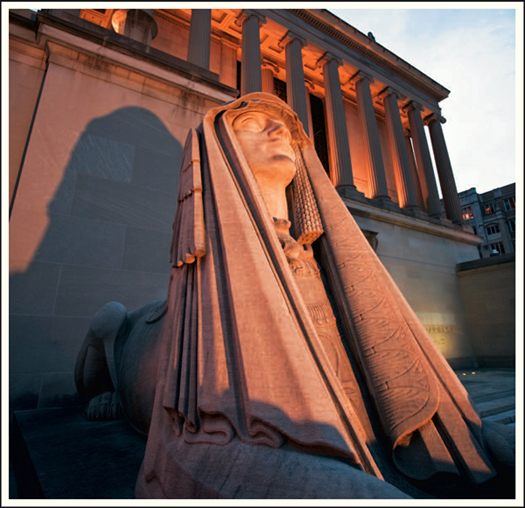
SPHINX OUTSIDE THE HOUSE OF THE TEMPLE
117.1: © Richard Nowitz
Darkness now.
A powerful pipe organ played in the distance … and a new image materialized.
The Temple Room.
Langdon swallowed hard.
On-screen, the cavernous space was alive with electricity. Beneath the oculus, the black marble altar shone in the moonlight. Assembled around it, seated on hand-tooled pigskin chairs, awaited a somber council of distinguished thirty-third-degree Masons, present to bear witness. The video now panned across their faces with slow and deliberate intention.
Although he had not seen this coming, what he was looking at made perfect sense. A gathering of the most decorated and accomplished Masons in the most powerful city on earth would logically include many influential and well-known individuals. Sure enough, seated around the altar, adorned in their long silk gloves, Masonic aprons, and glistening jewels, were some of the country’s most powerful men.
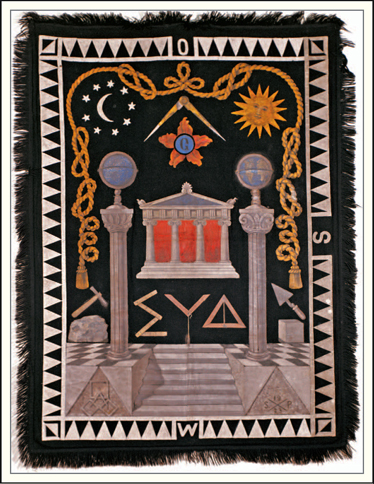
A TYPICAL FREEMASON’S LODGE RUG, PAINTED WITH SYMBOLS OF A MASONIC TEMPLE AND PILLARS OF BOAZ AND JACHIN
117.2: Erich Lessing/Art Resource, NY
Two Supreme Court justices …
The secretary of defense …
The speaker of the House …
Langdon felt ill as the video continued panning across the faces of those in attendance.
Three prominent senators … including the majority leader …
The secretary of homeland security …
And …
The director of the CIA …
Langdon wanted only to look away, but he could not. The scene was utterly mesmerizing, alarming even to him. In an instant, he had come to understand the source of Sato’s anxiety and concern.
Now, on-screen, the shot dissolved into a single shocking image.
A human skull … filled with dark crimson liquid. The famed caput mortuum was being offered forth to the initiate by the slender hands of Peter Solomon, whose gold Masonic ring glinted in the candlelight. The red liquid was wine … and yet it shimmered like blood. The visual effect was frightful.
The Fifth Libation, Langdon realized, having read firsthand accounts of this sacrament in John Quincy Adams’s Letters on the Masonic Institution. Even so, to see it happen … to see it calmly witnessed by America’s most powerful men … this was as arresting an image as any Langdon had ever seen.
The initiate took the skull in his hands … his face reflected in the calm surface of the wine. “May this wine I now drink become a deadly poison to me,” he declared, “should I ever knowingly or willfully violate my oath.”
Obviously, this initiate had intended to violate his oath beyond all imagination.
Langdon could barely get his mind around what would happen if this video were made public. No one would understand. The government would be thrown into upheaval. The airwaves would be filled with the voices of anti-Masonic groups, fundamentalists, and conspiracy theorists spewing hatred and fear, launching a Puritan witch hunt all over again.
The truth will be twisted, Langdon knew. As it always is with the Masons.
The truth was that the brotherhood’s focus on death was in fact a bold celebration of life. Masonic ritual was designed to awaken the slumbering man inside, lifting him from his dark coffin of ignorance, raising him into the light, and giving him eyes to see. Only through the death experience could man fully understand his life experience. Only through the realization that his days on earth were finite could he grasp the importance of living those days with honor, integrity, and service to his fellow man.
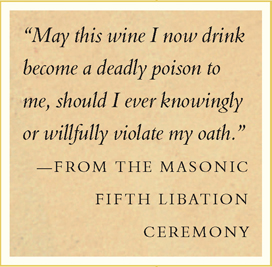
Masonic initiations were startling because they were meant to be transformative. Masonic vows were unforgiving because they were meant to be reminders that man’s honor and his “word” were all he could take from this world. Masonic teachings were arcane because they were meant to be universal … taught through a common language of symbols and metaphors that transcended religions, cultures, and races … creating a unified “worldwide consciousness” of brotherly love.
For a brief instant, Langdon felt a glimmer of hope. He tried to assure himself that if this video were to leak out, the public would be open-minded and tolerant, realizing that all spiritual rituals included aspects that would seem frightening if taken out of context—crucifixion reenactments, Jewish circumcision rites, Mormon baptisms of the dead, Catholic exorcisms, Islamic niqab, shamanic trance healing, the Jewish Kaparot ceremony, even the eating of the figurative body and blood of Christ.
I’m dreaming, Langdon knew. This video will create chaos. He could imagine what would happen if the prominent leaders of Russia or the Islamic world were seen in a video, pressing knives to bare chests, swearing violent oaths, performing mock murders, lying in symbolic coffins, and drinking wine from a human skull. The global outcry would be instantaneous and overwhelming.
God help us …
On-screen now, the initiate was raising the skull to his lips. He tipped it backward … draining the blood-red wine … sealing his oath. Then he lowered the skull and gazed out at the assembly around him. America’s most powerful and trusted men gave contented nods of acceptance.
“Welcome, brother,” Peter Solomon said.
As the image faded to black, Langdon realized he had stopped breathing.
Without a word, Sato reached over, closed the briefcase, and lifted it off his lap. Langdon turned to her trying to speak, but he could find no words. It didn’t matter. Understanding was written all over his face. Sato was right. Tonight was a national-security crisis … of unimaginable proportions.
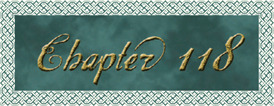
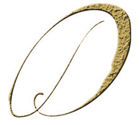 RESSED IN his loincloth, Mal’akh padded back and forth in front of Peter Solomon’s wheelchair. “Peter,” he whispered, enjoying every moment of his captive’s horror, “you forgot you have a second family … your Masonic brothers. And I will destroy them, too … unless you help me.”
RESSED IN his loincloth, Mal’akh padded back and forth in front of Peter Solomon’s wheelchair. “Peter,” he whispered, enjoying every moment of his captive’s horror, “you forgot you have a second family … your Masonic brothers. And I will destroy them, too … unless you help me.”
Solomon looked almost catatonic in the glow of the laptop sitting atop his thighs. “Please,” he finally stammered, glancing up. “If this video gets out …”
“If?” Mal’akh laughed. “If it gets out?” He motioned to the small cellular modem plugged into the side of his laptop. “I’m connected to the world.”
“You wouldn’t …”
I will, Mal’akh thought, enjoying Solomon’s horror. “You have the power to stop me,” he said. “And to save your sister. But you have to tell me what I want to know. The Lost Word is hidden somewhere, Peter, and I know this grid reveals exactly where to find it.”
Peter glanced at the grid of symbols again, his eyes revealing nothing.
“Perhaps this will help to inspire you.” Mal’akh reached over Peter’s shoulders and hit a few keys on the laptop. An e-mail program launched on the screen, and Peter stiffened visibly. The screen now displayed an e-mail that Mal’akh had cued earlier tonight—a video file addressed to a long list of major media networks.
Mal’akh smiled. “I think it’s time we share, don’t you?”
“Don’t!”
Mal’akh reached down and clicked the send button on the program. Peter jerked against his bonds, trying unsuccessfully to knock the laptop to the floor.
“Relax, Peter,” Mal’akh whispered. “It’s a massive file. It will take a few minutes to go out.” He pointed to the progress bar:
SENDING MESSAGE: 2% COMPLETE
“If you tell me what I want to know, I’ll stop the e-mail, and nobody will ever see this.”
Peter was ashen as the task bar inched forward.
SENDING MESSAGE: 4% COMPLETE
Mal’akh now lifted the computer from Peter’s lap and set it on one of the nearby pigskin chairs, turning the screen so the other man could watch the progress. Then he returned to Peter’s side and laid the page of symbols in his lap. “The legends say the Masonic Pyramid will unveil the Lost Word. This is the pyramid’s final code. I believe you know how to read it.”
Mal’akh glanced over at the laptop.
SENDING MESSAGE: 8% COMPLETE
Mal’akh returned his eyes to Peter. Solomon was staring at him, his gray eyes blazing now with hatred.
Hate me, Mal’akh thought. The greater the emotion, the more potent the energy that will be released when the ritual is completed.
At Langley, Nola Kaye pressed the phone to her ear, barely able to hear Sato over the noise of the helicopter.
“They said it’s impossible to stop the file transfer!” Nola shouted. “To shut down local ISPs would take at least an hour, and if he’s got access to a wireless provider, killing the ground-based Internet won’t stop him from sending it anyway.”
Nowadays, stopping the flow of digital information had become nearly impossible. There were too many access routes to the Internet. Between hard lines, Wi-Fi hot spots, cellular modems, SAT phones, superphones, and e-mail-equipped PDAs, the only way to isolate a potential data leak was by destroying the source machine.
“I pulled the spec sheet on the UH-60 you’re flying,” Nola said, “and it looks like you’re equipped with EMP.”
Electromagnetic-pulse or EMP guns were now commonplace among law enforcement agencies, which used them primarily to stop car chases from a safe distance. By firing a highly concentrated pulse of electromagnetic radiation, an EMP gun could effectively fry the electronics of any device it targeted—cars, cell phones, computers. According to Nola’s spec sheet, the UH-60 had a chassis-mounted, laser-sighted, six-gigahertz magnetron with a fifty-dB-gain horn that yielded a tengigawatt pulse. Discharged directly at a laptop, the pulse would fry the computer’s motherboard and instantly erase the hard drive.
“EMP will be useless,” Sato yelled back. “Target is inside a stone building. No sight lines and thick EM shielding. Do you have any indication yet if the video has gone out?”
Nola glanced at a second monitor, which was running a continuous search for breaking news stories about the Masons. “Not yet, ma’am. But if it goes public, we’ll know within seconds.”
“Keep me posted.” Sato signed off.
Langdon held his breath as the helicopter dropped from the sky toward Dupont Circle. A handful of pedestrians scattered as the aircraft descended through an opening in the trees and landed hard on the lawn just south of the famous two-tiered fountain designed by the same two men who created the Lincoln Memorial.
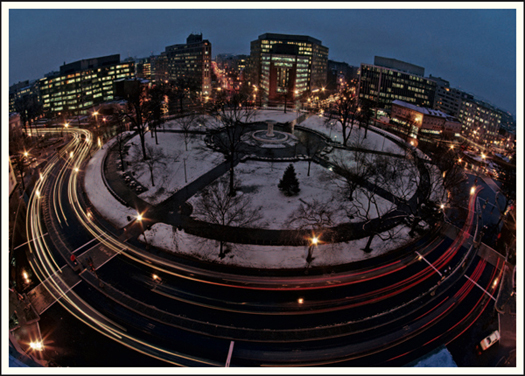
DUPONT CIRCLE
118.1: Sisse Brimberg/National Geographic/Getty Images
Thirty seconds later, Langdon was riding shotgun in a commandeered Lexus SUV, tearing up New Hampshire Avenue toward the House of the Temple.
Peter Solomon was desperately trying to figure out what to do. All he could see in his mind were the images of Katherine bleeding in the basement … and of the video he had just witnessed. He turned his head slowly toward the laptop on the pigskin chair several yards away. The progress bar was almost a third of the way filled.
SENDING MESSAGE: 29% COMPLETE
The tattooed man was now walking slow circles around the square altar, swinging a lit censer and chanting to himself. Thick puffs of white smoke swirled up toward the skylight. The man’s eyes were wide now, and he seemed to be in a demonic trance. Peter turned his gaze to the ancient knife that sat waiting on the white silk cloth spread across the altar.
Peter Solomon had no doubt that he would die in this temple tonight. The question was how to die. Would he find a way to save his sister and his brotherhood … or would his death be entirely in vain?
He glanced down at the grid of symbols. When he had first laid eyes on the grid, the shock of the moment had blinded him … preventing his vision from piercing the veil of chaos … to glimpse the startling truth. Now, however, the real significance of these symbols had become crystal clear to him. He had seen the grid in an entirely new light.
Peter Solomon knew exactly what he needed to do.
Taking a deep breath, he gazed up at the moon through the oculus above. Then he began to speak.
All great truths are simple.
Mal’akh had learned that long ago.
The solution that Peter Solomon was now explaining was so graceful and pure that Mal’akh was sure that it could only be true. Incredibly, the solution to the pyramid’s final code was far simpler than he had ever imagined.
The Lost Word was right before my eyes.
In an instant, a bright ray of light pierced the murkiness of the history and myth surrounding the Lost Word. As promised, the Lost Word was indeed written in an ancient language and bore mystical power in every philosophy, religion, and science ever known to man. Alchemy, astrology, Kabbalah, Christianity, Buddhism, Rosicrucianism, Freemasonry, astronomy, physics, Noetics …
Standing now in this initiation chamber atop the great pyramid of Heredom, Mal’akh gazed upon the treasure he had sought all these years, and he knew he could not have prepared himself more perfectly.
Soon I am complete.
The Lost Word is found.
In Kalorama Heights, a lone CIA agent stood amid a sea of garbage that he had dumped out of the trash bins that had been found in the garage.
“Ms. Kaye?” he said, speaking to Sato’s analyst on the phone. “Good thinking to search his garbage. I think I just found something.”
Inside the house, Katherine Solomon was feeling stronger with every passing moment. The infusion of lactated Ringer’s solution had successfully raised her blood pressure and quelled her throbbing headache. She was resting now, seated in the dining room, with explicit instructions to remain still. Her nerves felt frayed, and she was increasingly anxious for news about her brother.
Where is everybody? The CIA’s forensics team had not yet arrived, and the agent who had stayed behind was still off searching the premises. Bellamy had been sitting with her in the dining room, still wrapped in a foil blanket, but he, too, had wandered off to look for any information that might help the CIA save Peter.
Unable to sit idly, Katherine pulled herself to her feet, teetered, and then inched slowly toward the living room. She found Bellamy in the study. The Architect was standing at an open drawer, his back to her, apparently too engrossed in its contents to hear her enter.
She walked up behind him. “Warren?”
The old man lurched and turned, quickly shutting the drawer with his hip. His face was lined with shock and grief, his cheeks streaked with tears.
“What’s wrong?!” She glanced down at the drawer. “What is it?”
Bellamy seemed unable to speak. He had the look of a man who had just seen something he deeply wished he had not.
“What’s in the drawer?” she demanded.
Bellamy’s tear-filled eyes held hers for a long, sorrowful moment. Finally he spoke. “You and I wondered why … why this man seemed to hate your family.”
Katherine’s brow furrowed. “Yes?”
“Well … “Bellamy’s voice caught. “I just found the answer.”
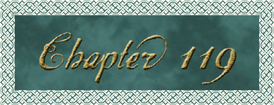
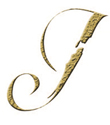 N THE chamber at the top of the House of the Temple, the one who called himself Mal’akh stood before the great altar and gently massaged the virgin skin atop his head. Verbum significatium, he chanted in preparation. Verbum omnificum. The final ingredient had been found at last.
N THE chamber at the top of the House of the Temple, the one who called himself Mal’akh stood before the great altar and gently massaged the virgin skin atop his head. Verbum significatium, he chanted in preparation. Verbum omnificum. The final ingredient had been found at last.
The most precious treasures are often the simplest.
Above the altar, wisps of fragrant smoke now swirled, billowing up from the censer. The suffumigations ascended through the shaft of moonlight, clearing a channel skyward through which a liberated soul could travel freely.
The time had come.
Mal’akh retrieved the vial of Peter’s darkened blood and uncorked it. With his captive looking on, he dipped the nib of the crow’s feather into the crimson tincture and raised it to the sacred circle of flesh atop his head. He paused a moment … thinking of how long he had waited for this night. His great transformation was finally at hand. When the Lost Word is written on the mind of man, he is then ready to receive unimaginable power. Such was the ancient promise of apotheosis. So far, mankind had been unable to realize that promise, and Mal’akh had done what he could to keep it that way.
With a steady hand, Mal’akh touched the nib of the feather to his skin. He needed no mirror, no assistance, only his sense of touch, and his mind’s eye. Slowly, meticulously, he began inscribing the Lost Word inside the circular ouroboros on his scalp.
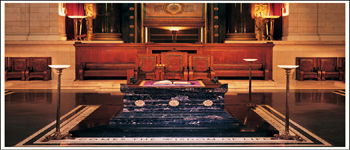
THE ALTAR OF THE TEMPLE ROOM, HOUSE OF THE TEMPLE, HEWN FROM A SOLID BLOCK OF POLISHED BELGIAN BLACK MARBLE © Maxwell MacKenzie
Peter Solomon looked on with an expression of horror.
When Mal’akh finished, he closed his eyes, set down the feather, and let the air out of his lungs entirely. For the first time in his life, he felt a sensation he had never known.
I am complete.
I am at one.
Mal’akh had worked for years on the artifact that was his body, and now, as he neared his moment of final transformation, he could feel every line that had ever been inscribed on his flesh. I am a true masterpiece. Perfect and complete.
“I gave you what you asked for.” Peter’s voice intruded. “Send help to Katherine. And stop that file.”
Mal’akh opened his eyes and smiled. “You and I are not quite finished.” He turned to the altar and picked up the sacrificial knife, running his finger across the sleek iron blade. “This ancient knife was commissioned by God,” he said, “for use in a human sacrifice. You recognized it earlier, no?”
Solomon’s gray eyes were like stone. “It is unique, and I’ve heard the legend.”
“Legend? The account appears in Holy Scripture. You don’t believe it’s true?”
Peter just stared.
Mal’akh had spent a fortune locating and obtaining this artifact. Known as the Akedah knife, it had been crafted over three thousand years ago from an iron meteorite that had fallen to earth. Iron from heaven, as the early mystics called it. It was believed to be the exact knife used by Abraham at the Akedah—the near sacrifice of his son Isaac on Mount Moriah—as depicted in Genesis. The knife’s astounding history included possession by popes, Nazi mystics, European alchemists, and private collectors.
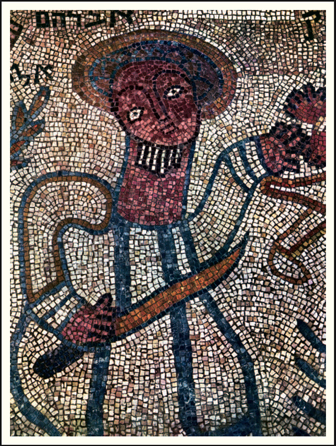
THE SACRIFICE OF ISAAC WITH THE AKEDAH KNIFE, FROM THE PAVEMENT OF THE BETH ALPHA SYNAGOGUE, ISRAEL (6TH CENT.)
119.1: Erich Lessing/Art Resource, NY
They protected and admired it, Mal’akh thought, but none dared unleash its true power by using it for its real purpose. Tonight, the Akedah knife would fulfill its destiny.
The Akedah had always been sacred in Masonic ritual. In the very first degree, Masons celebrated “the most august gift ever offered to God … the submission of Abraham to the volitions of the supreme being by proffering Isaac, his firstborn …”
The weight of the blade felt exhilarating in Mal’akh’s hand as he crouched down and used the freshly sharpened knife to sever the ropes binding Peter to his wheelchair. The bonds fell to the floor.
Peter Solomon winced in pain as he attempted to shift his cramped limbs. “Why are you doing this to me? What do you think this will accomplish?”
“You of all people should understand,” Mal’akh replied. “You study the ancient ways. You know that the power of the mysteries relies on sacrifice … on releasing a human soul from its body. It has been this way since the beginning.”
“You know nothing of sacrifice,” Peter said, his voice seething with pain and loathing.
Excellent, Mal’akh thought. Feed your hatred. It will only make this easier.
Mal’akh’s empty stomach growled as he paced before his captive. “There is enormous power in the shedding of human blood. Everyone understood that, from the early Egyptians, to the Celtic Druids, to the Chinese, to the Aztecs. There is magic in human sacrifice, but modern man has become weak, too fearful to make true offerings, too frail to give the life that is required for spiritual transformation. The ancient texts are clear, though. Only by offering what is most sacred can man access the ultimate power.”
“You consider me a sacred offering?”
Mal’akh now laughed out loud. “You really don’t understand yet, do you?”
Peter gave him an odd look.
“Do you know why I have a deprivation tank in my home?” Mal’akh placed his hands on his hips and flexed his elaborately decorated body, which was still covered only by a loincloth. “I have been practicing … preparing … anticipating the moment when I am only mind … when I am released from this mortal shell … when I have offered up this beautiful body to the gods in sacrifice. I am the precious one! I am the pure white lamb!”
Peter’s mouth fell open but no words came out.
“Yes, Peter, a man must offer to the gods that which he holds most dear. His purest white dove … his most precious and worthy offering. You are not precious to me. You are not a worthy offering.” Mal’akh glared at him. “Don’t you see? You are not the sacrifice, Peter … I am. Mine is the flesh that is the offering. I am the gift. Look at me. I have prepared, made myself worthy for my final journey. I am the gift!”
Peter remained speechless.
“The secret is how to die,” Mal’akh now said. “Masons understand that.” He pointed to the altar. “You revere the ancient truths, and yet you are cowards. You understand the power of sacrifice and yet you keep a safe distance from death, performing your mock murders and bloodless death rituals. Tonight, your symbolic altar will bear witness to its true power … and its actual purpose.”
Mal’akh reached down and grasped Peter Solomon’s left hand, pressing the handle of the Akedah knife into his palm. The left hand serves the darkness. This, too, had been planned. Peter would have no choice in the matter. Mal’akh could fathom no sacrifice more potent and symbolic than one performed on this altar, by this man, with this knife, plunged into the heart of an offering whose mortal flesh was wrapped like a gift in a shroud of mystical symbols.
With this offering of self, Mal’akh would establish his rank in the hierarchy of demons. Darkness and blood were where the true power lay. The ancients knew this, the Adepts choosing sides consistent with their individual natures. Mal’akh had chosen sides wisely. Chaos was the natural law of the universe. Indifference was the engine of entropy. Man’s apathy was the fertile ground in which the dark spirits tended their seeds.
I have served them, and they will receive me as a god.
Peter did not move. He simply stared down at the ancient knife gripped in his hand.
“I will you,” Mal’akh taunted. “I am a willing sacrifice. Your final role has been written. You will transform me. You will liberate me from my body. You will do this, or you will lose your sister and your brotherhood. You will truly be all alone.” He paused, smiling down at his captive. “Consider this your final punishment.”
Peter’s eyes rose slowly to meet Mal’akh’s. “Killing you? A punishment? Do you think I will hesitate? You murdered my son. My mother. My entire family.”
“No!” Mal’akh exploded with a force that startled even himself. “You are wrong! I did not murder your family! You did! It was you who made the choice to leave Zachary in prison! And from there, the wheels were in motion! You killed your family, Peter, not me!”
Peter’s knuckles turned white, his fingers clenching the knife in rage. “You know nothing of why I left Zachary in prison.”
“I know everything!” Mal’akh fired back. “I was there. You claimed you were trying to help him. Were you trying to help him when you offered him the choice between wealth or wisdom? Were you trying to help him when you gave him the ultimatum to join the Masons? What kind of father gives a child the choice between ‘wealth or wisdom’ and expects him to know how to handle it! What kind of father leaves his own son in a prison instead of flying him home to safety!” Mal’akh now moved in front of Peter and crouched down, placing his tattooed face only inches from his face. “But most important … what kind of father can look his own son in the eyes … even after all these years … and not even recognize him!”
Mal’akh’s words echoed for several seconds in the stone chamber.
Then silence.
In the abrupt stillness, Peter Solomon seemed to have been jolted from his trance. His face clouded now with a visage of total incredulity.
Yes, Father. It’s me. Mal’akh had waited years for this moment … to take revenge on the man who had abandoned him … to stare into those gray eyes and speak the truth that had been buried all these years. Now the moment was here, and he spoke slowly, longing to watch the full weight of his words gradually crush Peter Solomon’s soul. “You should be happy, Father. Your prodigal son has returned.”
Peter’s face was now as pale as death.
Mal’akh savored every moment. “My own father made the decision to leave me in prison … and in that instant, I vowed that he had rejected me for the last time. I was no longer his son. Zachary Solomon ceased to exist.”
Two glistening teardrops welled suddenly in his father’s eyes, and Mal’akh thought they were the most beautiful thing he had ever seen.
Peter choked back tears, staring up at Mal’akh’s face as if seeing him for the very first time.
“All the warden wanted was money,” Mal’akh said, “but you refused. It never occurred to you, though, that my money was just as green as yours. The warden did not care who paid him, only that he was paid. When I offered to pay him handsomely, he selected a sickly inmate about my size, dressed him in my clothes, and beat him beyond all recognition. The photos you saw … and the sealed casket you buried … they were not mine. They belonged to a stranger.”
Peter’s tear-streaked face contorted now with anguish and disbelief. “Oh my God … Zachary.”
“Not anymore. When Zachary walked out of prison, he was transformed.”
His adolescent physique and childlike face had drastically mutated when he flooded his young body with experimental growth hormones and steroids. Even his vocal cords had been ravaged, transforming his boyish voice into a permanent whisper.
Zachary became Andros.
Andros became Mal’akh.
And tonight … Mal’akh will become his greatest incarnation of all.
At that moment in Kalorama Heights, Katherine Solomon stood over the open desk drawer and gazed down at what could be described only as a fetishist’s collection of old newspaper articles and photographs.
“I don’t understand,” she said, turning to Bellamy. “This lunatic was obviously obsessed with my family, but—”
“Keep going …” urged Bellamy, taking a seat and still looking deeply shaken.
Katherine dug deeper into the newspaper articles, every one of which related to the Solomon family—Peter’s many successes, Katherine’s research, their mother Isabel’s terrible murder, Zachary Solomon’s widely publicized drug use, incarceration, and brutal murder in a Turkish prison.
The fixation this man had on the Solomon family was beyond fanatical, and yet Katherine saw nothing yet to suggest why.
It was then that she saw the photographs. The first showed Zachary standing knee-deep in azure water on a beach dotted with whitewashed houses. Greece? The photo, she assumed, could have been taken only during Zach’s freewheeling drug days in Europe. Strangely, though, Zach looked healthier than he did in the paparazzi shots of an emaciated kid partying with the drug crowd. He looked more fit, stronger somehow, more mature. Katherine never recalled him looking so healthy.
Puzzled, she checked the date stamp on the photo.
But that’s … impossible.
The date was almost a full year after Zachary had died in prison.
Suddenly Katherine was flipping desperately through the stack. All of the photos were of Zachary Solomon … gradually getting older. The collection appeared to be some kind of pictorial autobiography, chronicling a slow transformation. As the pictures progressed, Katherine saw a sudden and dramatic change. She looked on in horror as Zachary’s body began mutating, his muscles bulging, and his facial features morphing from the obvious heavy use of steroids. His frame seemed to double in mass, and a haunting fierceness crept into his eyes.
I don’t even recognize this man!
He looked nothing like Katherine’s memories of her young nephew.
When she reached a picture of him with a shaved head, she felt her knees begin to buckle. Then she saw a photo of his bare body … adorned with the first traces of tattoos.
Her heart almost stopped. “Oh my God …”
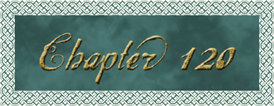
 IGHT TURN!” Langdon shouted from the backseat of the commandeered Lexus SUV.
IGHT TURN!” Langdon shouted from the backseat of the commandeered Lexus SUV.
Simkins swerved onto S Street and gunned the vehicle through a tree-lined residential neighborhood. As they neared the corner of Sixteenth Street, the House of the Temple rose like a mountain on the right.
Simkins stared up at the massive structure. It looked like someone had built a pyramid on top of Rome’s Pantheon. He prepared to turn right on Sixteenth toward the front of the building.
“Don’t turn!” Langdon ordered. “Go straight! Stay on S!”
Simkins obeyed, driving alongside the east side of the building.
“At Fifteenth,” Langdon said, “turn right!”
Simkins followed his navigator, and moments later, Langdon had pointed out a nearly invisible, unpaved access road that bisected the gardens behind the House of the Temple. Simkins turned in to the drive and gunned the Lexus toward the rear of the building.
“Look!” Langdon said, pointing to the lone vehicle parked near the rear entrance. It was a large van. “They’re here.”
Simkins parked the SUV and killed the engine. Quietly, everyone got out and prepared to move in. Simkins stared up at the monolithic structure. “You say the Temple Room is at the top?”
Langdon nodded, pointing all the way to the pinnacle of the building. “That flat area on top of the pyramid is actually a skylight.”
Simkins spun back to Langdon. “The Temple Room has a skylight?”
Langdon gave him an odd look. “Of course. An oculus to heaven … directly above the altar.”
The UH-60 sat idling at Dupont Circle.
In the passenger seat, Sato gnawed at her fingernails, awaiting news from her team.
Finally, Simkins’s voice crackled over the radio. “Director?”
“Sato here,” she barked.
“We’re entering the building, but I have some additional recon for you.”
“Go ahead.”
“Mr. Langdon just informed me that the room in which the target is most likely located has a very large skylight.”
Sato considered the information for several seconds. “Understood. Thank you.”
Simkins signed off.
Sato spit out a fingernail and turned to the pilot. “Take her up.”
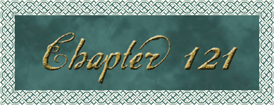
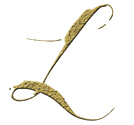 IKE ANY parent who had lost a child, Peter Solomon had often imagined how old his boy would be now … what he would look like … and what he would have become.
IKE ANY parent who had lost a child, Peter Solomon had often imagined how old his boy would be now … what he would look like … and what he would have become.
Peter Solomon now had his answers.
The massive tattooed creature before him had begun life as a tiny, precious infant … baby Zach curled up in a wicker bassinette … taking his first fumbling steps across Peter’s study … learning to speak his first words. The fact that evil could spring from an innocent child in a loving family remained one of the paradoxes of the human soul. Peter had been forced to accept early on that although his own blood flowed in his son’s veins, the heart pumping that blood was his son’s own. Unique and singular … as if randomly chosen from the universe.
My son … he killed my mother, my friend Robert Langdon, and possibly my sister.
An icy numbness flooded Peter’s heart as he searched his son’s eyes for any connection … anything familiar. The man’s eyes, however, although gray like Peter’s, were those of a total stranger, filled with a hatred and a vengefulness that were almost otherworldly.
“Are you strong enough?” his son taunted, glancing at the Akedah knife gripped in Peter’s hand. “Can you finish what you started all those years ago?”
“Son …” Solomon barely recognized his own voice. “I loved … you.”
“Twice you tried to kill me. You abandoned me in prison. You shot me on Zach’s bridge. Now finish it!”
For an instant, Solomon felt like he was floating outside his own body. He no longer recognized himself. He was missing a hand, was totally bald, dressed in a black robe, sitting in a wheelchair, and clutching an ancient knife.
“Finish it!” the man shouted again, the tattoos on his naked chest rippling. “Killing me is the only way you can save Katherine … the only way to save your brotherhood!”
Solomon felt his gaze move to the laptop and cellular modem on the pigskin chair.
SENDING MESSAGE: 92% COMPLETE
His mind could not shake the images of Katherine bleeding to death … or of his Masonic brothers.
“There is still time,” the man whispered. “You know it’s the only choice. Release me from my mortal shell.”
“Please,” Solomon said. “Don’t do this …”
“You did this!” the man hissed. “You forced your child to make an impossible choice! Do you remember that night? Wealth or wisdom? That was the night you pushed me away forever. But I’ve returned, Father … and tonight it is your turn to choose. Zachary or Katherine? Which will it be? Will you kill your son to save your sister? Will you kill your son to save your brotherhood? Your country? Or will you wait until it’s too late? Until Katherine is dead … until the video is public … until you must live the rest of your life knowing you could have stopped these tragedies. Time is running out. You know what must be done.”
Peter’s heart ached. You are not Zachary, he told himself. Zachary died long, long ago. Whatever you are … and wherever you came from … you are not of me. And although Peter Solomon did not believe his own words, he knew he had to make a choice.
He was out of time.
Find the Grand Staircase!
Robert Langdon dashed through darkened hallways, winding his way toward the center of the building. Turner Simkins remained close on his heels. As Langdon had hoped, he burst out into the building’s main atrium.
Dominated by eight Doric columns of green granite, the atrium looked like a hybrid sepulcher—Greco-Roman-Egyptian—with black marble statues, chandelier fire bowls, Teutonic crosses, double-headed phoenix medallions, and sconces bearing the head of Hermes.
Langdon turned and ran toward the sweeping marble staircase at the far end of the atrium. “This leads directly to the Temple Room,” he whispered as the two men ascended as quickly and quietly as possible.
On the first landing, Langdon came face-to-face with a bronze bust of Masonic luminary Albert Pike, along with the engraving of his most famous quote:
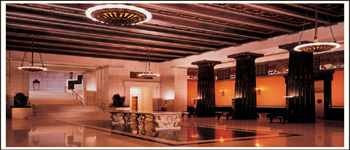
THE ATRIUM, HOUSE OF THE TEMPLE: DORIC COLUMNS, CHANDELIER FIRE BOWLS, AND THE GRAND STAIRCASE. © Maxwell MacKenzie

Mal’akh had sensed a palpable shift in the atmosphere of the Temple Room, as if all the frustration and pain Peter Solomon had ever felt was now boiling to the surface … focusing itself like a laser on Mal’akh.
Yes … it is time.
Peter Solomon had risen from his wheelchair and was standing now, facing the altar, gripping the knife.
“Save Katherine,” Mal’akh coaxed, luring him toward the altar, backing up, and finally laying his own body down on the white shroud he had prepared. “Do what you need to do.”
As if moving through a nightmare, Peter inched forward.
Mal’akh reclined fully now onto his back, gazing up through the oculus at the wintry moon. The secret is how to die. This moment could not be any more perfect. Adorned with the Lost Word of the ages, I offer myself by the left hand of my father.
Mal’akh drew a deep breath.
Receive me, demons, for this is my body, which is offered for you.
Standing over Mal’akh, Peter Solomon was trembling. His tear-soaked eyes shone with desperation, indecision, anguish. He looked one last time toward the modem and laptop across the room.
“Make the choice,” Mal’akh whispered. “Release me from my flesh. God wants this. You want this.” He laid his arms at his side and arched his chest forward, offering up his magnificent double-headed phoenix. Help me shed the body that clothes my soul.
Peter’s tearful eyes seemed to be staring through Mal’akh now, not even seeing him.
“I killed your mother!” Mal’akh whispered. “I killed Robert Langdon! I’m murdering your sister! I’m destroying your brotherhood! Do what you have to do!”
Peter Solomon’s visage now contorted into a mask of absolute grief and regret. He threw his head back and screamed in anguish as he raised the knife.
Robert Langdon and Agent Simkins arrived breathless outside the Temple Room doors as a bloodcurdling scream erupted from within. It was Peter’s voice. Langdon was certain.
Peter’s cry was one of absolute agony.
I’m too late!
Ignoring Simkins, Langdon seized the handles and yanked open the doors. The horrific scene before him confirmed his worst fears. There, in the center of the dimly lit chamber, the silhouette of a man with a shaved head stood at the great altar. He wore a black robe, and his hand was clutching a large blade.
Before Langdon could move, the man was driving the knife down toward the body that lay outstretched on the altar.
Mal’akh had closed his eyes.
So beautiful. So perfect.
The ancient blade of the Akedah knife had glinted in the moonlight as it arched over him. Scented wisps of smoke had spiraled upward above him, preparing a pathway for his soon-to-be-liberated soul. His killer’s lone scream of torment and desperation still rang through the sacred space as the knife came down.
I am besmeared with the blood of human sacrifice and parents’ tears.
Mal’akh braced for the glorious impact.
His moment of transformation had arrived.
Incredibly, he felt no pain.
A thunderous vibration filled his body, deafening and deep. The room began shaking, and a brilliant white light blinded him from above. The heavens roared.
And Mal’akh knew it had happened.
Exactly as he had planned.
Langdon did not remember sprinting toward the altar as the helicopter appeared overhead. Nor did he remember leaping with his arms outstretched … soaring toward the man in the black robe … trying desperately to tackle him before he could plunge the knife down a second time.
Their bodies collided, and Langdon saw a bright light sweep down through the oculus and illuminate the altar. He expected to see the bloody body of Peter Solomon on the altar, but the naked chest that shone in the light had no blood on it at all … only a tapestry of tattoos. The knife lay broken beside him, apparently having been driven into the stone altar rather than into flesh.
As he and the man in the black robe crashed together onto the hard stone floor, Langdon saw the bandaged nub on the end of the man’s right arm, and he realized to his bewilderment that he had just tackled Peter Solomon.
As they slid together across the stone floor, the helicopter’s searchlights blazed down from above. The chopper thundered in low, its skids practically touching the expansive wall of glass.
On the front of the helicopter, a strange-looking gun rotated, aiming downward through the glass. The red beam of its laser scope sliced through the skylight and danced across the floor, directly toward Langdon and Solomon.
No!
But there was no gunfire from above … only the sound of the helicopter blades.
Langdon felt nothing but an eerie ripple of energy that shimmered through his cells. Behind his head, on the pigskin chair, the laptop hissed strangely. He spun in time to see its screen suddenly flash to black. Unfortunately, the last visible message had been clear.
SENDING MESSAGE: 100% COMPLETE
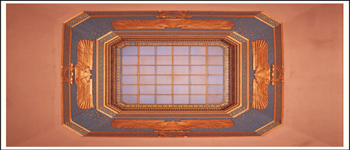
THE SKYLIGHT, HOUSE OF THE TEMPLE © Maxwell MacKenzie

Pull up! Damn it! Up!
The UH-60 pilot threw his rotors into overdrive, trying to keep his skids from touching any part of the large glass skylight. He knew the six thousand pounds of lift force that surged downward from his rotors was already straining the glass to its breaking point. Unfortunately, the incline of the pyramid beneath the helicopter was efficiently shedding the thrust sideways, robbing him of lift.
Up! Now!
He tipped the nose, trying to skim away, but the left strut hit the center of the glass. It was only for an instant, but that was all it took.
The Temple Room’s massive oculus exploded in a swirl of glass and wind … sending a torrent of jagged shards plummeting into the room below.
Stars falling from heaven.
Mal’akh stared up into the beautiful white light and saw a veil of shimmering jewels fluttering toward him … accelerating … as if racing to shroud him in their splendor.
Suddenly there was pain.
Everywhere.
Stabbing. Searing. Slashing. Razor-sharp knives piercing soft flesh. Chest, neck, thighs, face. His body tightened all at once, recoiling. His blood-filled mouth cried out as the pain ripped him from his trance. The white light above transformed itself, and suddenly, as if by magic, a dark helicopter was suspended above him, its thundering blades driving an icy wind down into the Temple Room, chilling Mal’akh to the core and dispersing the wisps of incense to the distant corners of the room.
Mal’akh turned his head and saw the Akedah knife lying broken by his side, smashed upon the granite altar, which was covered in a blanket of shattered glass. Even after everything I did to him … Peter Solomon averted the knife. He refused to spill my blood.
With welling horror, Mal’akh raised his head and peered down along the length of his own body. This living artifact was to have been his great offering. But it lay in tatters. His body was drenched in blood … huge shards of glass protruding from his flesh in all directions.
Weakly, Mal’akh lowered his head back to the granite altar and stared up through the open space in the roof. The helicopter was gone now, in its place a silent, wintry moon.
Wide-eyed, Mal’akh lay gasping for breath … all alone on the great altar.
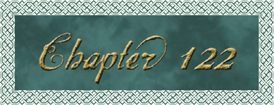
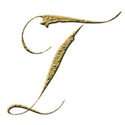 HE SECRET is how to die.
HE SECRET is how to die.
Mal’akh knew it had all gone wrong. There was no brilliant light. No wondrous reception. Only darkness and excruciating pain. Even in his eyes. He could see nothing, and yet he sensed movement all around him. There were voices … human voices … one of them, strangely, belonging to Robert Langdon. How can this be?
“She’s okay,” Langdon kept repeating. “Katherine is fine, Peter. Your sister is okay.”
No, Mal’akh thought. Katherine is dead. She must be.
Mal’akh could no longer see, could not tell if his eyes were even open, but he heard the helicopter banking away. An abrupt calm settled through the Temple Room. Mal’akh could feel the smooth rhythms of the earth becoming uneven … as if the ocean’s natural tides were being disrupted by a gathering storm.
Chao ab ordo.
Unfamiliar voices were shouting now, talking urgently with Langdon about the laptop and video file. It’s too late, Mal’akh knew. The damage is done. By now the video was spreading like wildfire into every corner of a shocked world, destroying the future of the brotherhood. Those most capable of spreading the wisdom must be destroyed. The ignorance of mankind is what helped the chaos grow. The absence of Light on earth is what nourished the Darkness that awaited Mal’akh.
I have done great deeds, and soon I will be received as a king.
Mal’akh sensed that a lone individual had quietly approached. He knew who it was. He could smell the sacred oils he had rubbed into his father’s shaved body.
“I don’t know if you can hear me,” Peter Solomon whispered in his ear. “But I want you to know something.” He touched a finger to the sacred spot atop Mal’akh’s skull. “What you wrote here …” He paused. “This is not the Lost Word.”
Of course it is, Mal’akh thought. You convinced me of that beyond a doubt.
According to legend, the Lost Word was written in a language so ancient and arcane that mankind had all but forgotten how to read it. This mysterious language, Peter had revealed, was in fact the oldest language on earth.
The language of symbols.
In the idiom of symbology, there was one symbol that reigned supreme above all others. The oldest and most universal, this symbol fused all the ancient traditions in a single solitary image that represented the illumination of the Egyptian sun god, the triumph of alchemical gold, the wisdom of the Philosopher’s Stone, the purity of the Rosicrucian Rose, the moment of Creation, the All, the dominance of the astrological sun, and even the omniscient all-seeing eye that hovered atop the unfinished pyramid.
The circumpunct. The symbol of the Source. The origin of all things.
This is what Peter had told him moments ago. Mal’akh had been skeptical at first, but then he had looked again at the grid, realizing that the image of the pyramid was pointing directly at the lone symbol of the circumpunct—a circle with a dot in its center. The Masonic Pyramid is a map, he thought, recalling the legend, which points to the Lost Word. It seemed his father was telling the truth after all.
All great truths are simple.
The Lost Word is not a word … it is a symbol.
Eagerly, Mal’akh had inscribed the great symbol of the circumpunct on his scalp. As he did so, he felt an upwelling of power and satisfaction. My masterpiece and offering are complete. The forces of darkness were waiting for him now. He would be rewarded for his work. This was to be his moment of glory …
And yet, at the last instant, everything had gone horribly wrong.
Peter was still behind him now, speaking words that Mal’akh could barely fathom. “I lied to you,” he was saying. “You left me no choice. If I had revealed to you the true Lost Word, you would not have believed me, nor would you have understood.”
The Lost Word is … not the circumpunct?
“The truth is,” said Peter, “the Lost Word is known to all … but recognized by very few.”
The words echoed in Mal’akh’s mind.
“You remain incomplete,” Peter said, gently placing his palm on top of Mal’akh’s head. “Your work is not yet done. But wherever you are going, please know this … you were loved.”
For some reason, the gentle touch of his father’s hand felt like it was burning through him like a potent catalyst that was initiating a chemical reaction inside Mal’akh’s body. Without warning, he felt a rush of blistering energy surging through his physical shell, as if every cell in his body were now dissolving.
In an instant, all of his worldly pain evaporated.
Transformation. It’s happening.
I am gazing down upon myself, a wreck of bloody flesh on the sacred slab of granite. My father is kneeling behind me, holding my lifeless head with his one remaining hand.
I feel an upwelling of rage … and confusion.
This is not a moment for compassion … it is for revenge, for transformation … and yet still my father refuses to submit, refuses to fulfill his role, refuses to channel his pain and anger through the knife blade and into my heart.
I am trapped here, hovering … tethered to my earthly shell.
My father gently runs a soft palm across my face to close my fading eyes.
I feel the tether release.
A billowing veil materializes around me, thickening and dimming the light, hiding the world from view. Suddenly time accelerates, and I am plunging into an abyss far darker than any I have ever imagined. Here, in the barren void, I hear a whispering … I sense a gathering force. It strengthens, mounting at a startling rate, surrounding me. Ominous and powerful. Dark and commanding.
I am not alone here.
This is my triumph, my grand reception. And yet, for some reason, I am filled not with joy, but rather with boundless fear.
It is nothing like I expect.
The force is churning now, swirling around me with commanding strength, threatening to tear me apart. Suddenly, without warning, the blackness gathers itself like a great prehistoric beast and rears up before me.
I am facing all the dark souls who have gone before.
I am screaming in infinite terror … as the darkness swallows me whole.
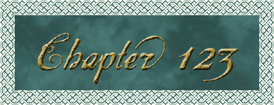
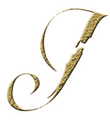 NSIDE THE NATIONAL Cathedral, Dean Galloway sensed a strange change in the air. He was not sure why, but he felt as if a ghostly shadow had evaporated … as if a weight had been lifted … far away and yet right here.
NSIDE THE NATIONAL Cathedral, Dean Galloway sensed a strange change in the air. He was not sure why, but he felt as if a ghostly shadow had evaporated … as if a weight had been lifted … far away and yet right here.
Alone at his desk, he was deep in thought. He was not sure how many minutes had passed when his phone rang. It was Warren Bellamy.
“Peter’s alive,” his Masonic brother said. “I just heard the news. I knew you’d want to know immediately. He’s going to be okay.”
“Thank God.” Galloway exhaled. “Where is he?”
Galloway listened as Bellamy recounted the extraordinary tale of what had transpired after they had left Cathedral College.
“But all of you are okay?”
“Recuperating, yes,” Bellamy said. “There is one thing, though.” He paused.
“Yes?”
“The Masonic Pyramid … I think Langdon may have solved it.”
Galloway had to smile. Somehow he was not surprised. “And tell me, did Langdon discover whether or not the pyramid kept its promise? Whether or not it revealed what legend always claimed it would reveal?”
“I don’t know yet.”
It will, Galloway thought. “You need to rest.”
“As do you.”
No, I need to pray.
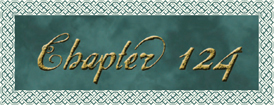
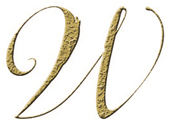 HEN THE elevator door opened, the lights in the Temple Room were all ablaze.
HEN THE elevator door opened, the lights in the Temple Room were all ablaze.
Katherine Solomon’s legs still felt rubbery as she hurried in to find her brother. The air in this enormous chamber was cold and smelled of incense. The scene that greeted her stopped her in her tracks.
In the center of this magnificent room, on a low stone altar, lay a bloody, tattooed corpse, a body perforated by spears of broken glass. High above, a gaping hole in the ceiling opened to the heavens.
My God. Katherine immediately looked away, her eyes scanning for Peter. She found her brother sitting on the other side of the room, being tended to by a medic while talking with Langdon and Director Sato.
“Peter!” Katherine called, running over. “Peter!”
Her brother glanced up, his expression filling with relief. He was on his feet at once, moving toward her. He was wearing a simple white shirt and dark slacks, which someone had probably gotten for him from his office downstairs. His right arm was in a sling, and their gentle embrace was awkward, but Katherine barely noticed. A familiar comfort surrounded her like a cocoon, as it always had, even in childhood, when her protective older brother embraced her.
They held each other in silence.
Finally Katherine whispered, “Are you okay? I mean … really?” She released him, looking down at the sling and bandage where his right hand used to be. Tears welled again in her eyes. “I’m so … so sorry.”
Peter shrugged as if it were nothing of consequence. “Mortal flesh. Bodies don’t last forever. The important thing is that you’re okay.”
Peter’s lighthearted response tore at her emotions, reminding her of all the reasons she loved him. She stroked his head, feeling the unbreakable bonds of family … the shared blood that flowed in their veins.
Tragically, she knew there was a third Solomon in the room tonight. The corpse on the altar drew her gaze, and Katherine shuddered deeply, trying to block out the photos she had seen.
She looked away, her eyes now finding Robert Langdon’s. There was compassion there, deep and perceptive, as if Langdon somehow knew exactly what she was thinking. Peter knows. Raw emotion gripped Katherine—relief, sympathy, despair. She felt her brother’s body begin trembling like a child’s. It was something she had never witnessed in her entire life.
“Just let it go,” she whispered. “It’s okay. Just let it go.”
Peter’s trembling grew deeper.
She held him again, stroking the back of his head. “Peter, you’ve always been the strong one … you’ve always been there for me. But I’m here for you now. It’s okay. I’m right here.”
Katherine eased his head gently onto her shoulder … and the great Peter Solomon collapsed sobbing in her arms.
Director Sato stepped away to take an incoming call.
It was Nola Kaye. Her news, for a change, was good.
“Still no signs of distribution, ma’am.” She sounded hopeful. “I’m confident we would have seen something by now. It looks like you contained it.”
Thanks to you, Nola, Sato thought, glancing down at the laptop, which Langdon had seen complete its transmission. A very close call.
At Nola’s suggestion, the agent searching the mansion had checked the garbage cans, discovering packaging for a newly purchased cellular modem. With the exact model number, Nola had been able to cross-reference compatible carriers, band-widths, and service grids, isolating the laptop’s most likely access node—a small transmitter on the corner of Sixteenth and Corcoran—three blocks from the Temple.
Nola quickly relayed the information to Sato in the helicopter. On approach toward the House of the Temple, the pilot had performed a low-altitude flyover and pulsed the relay node with a blast of electromagnetic radiation, knocking it off-line only seconds before the laptop completed its transfer.
“Great work tonight,” Sato said. “Now get some sleep. You’ve earned it.”
“Thank you, ma’am.” Nola hesitated.
“Was there something else?”
Nola was silent a long moment, apparently considering whether or not to speak. “Nothing that can’t wait till morning, ma’am. Have a good night.”
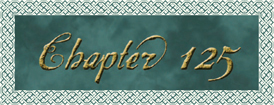
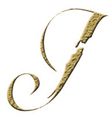 N THE silence of an elegant bathroom on the ground floor of the House of the Temple, Robert Langdon ran warm water into a tile sink and eyed himself in the mirror. Even in the muted light, he looked like he felt … utterly spent.
N THE silence of an elegant bathroom on the ground floor of the House of the Temple, Robert Langdon ran warm water into a tile sink and eyed himself in the mirror. Even in the muted light, he looked like he felt … utterly spent.
His daybag was on his shoulder again, much lighter now … empty except for his personal items and some crumpled lecture notes. He had to chuckle. His visit to D.C. tonight to give a lecture had turned out a bit more grueling than he’d anticipated.
Even so, Langdon had a lot to be grateful for.
Peter is alive.
And the video was contained.
As Langdon scooped handfuls of warm water onto his face, he gradually felt himself coming back to life. Everything was still a blur, but the adrenaline in his body was finally dissipating … and he was feeling like himself again. After drying his hands, he checked his Mickey Mouse watch.
My God, it’s late.
Langdon exited the bathroom and wound his way along the curved wall of the Hall of Honor—a gracefully arched passageway, lined with portraits of accomplished Masons … U.S. presidents, philanthropists, luminaries, and other influential Americans. He paused at an oil painting of Harry S. Truman and tried to imagine the man undergoing the rites, rituals, and studies required to become a Mason.
There is a hidden world behind the one we all see. For all of us.
“You slipped away,” a voice said down the hall.
Langdon turned.
It was Katherine. She’d been through hell tonight, and yet she looked suddenly radiant … rejuvenated somehow.
Langdon gave a tired smile. “How’s he doing?”
Katherine walked up and embraced him warmly. “How can I ever thank you?”
He laughed. “You know I didn’t do anything, right?”
Katherine held him for a long time. “Peter’s going to be fine …” She let go and looked deep into Langdon’s eyes. “And he just told me something incredible … something wonderful.” Her voice trembled with anticipation. “I need to go see it for myself. I’ll be back in a bit.”
“What? Where are you going?”
“I won’t be long. Right now, Peter wants to speak with you … alone. He’s waiting in the library.”
“Did he say why?”
Katherine chuckled and shook her head. “You know Peter and his secrets.”
“But—”
“I’ll see you in a bit.”
Then she was gone.
Langdon sighed heavily. He felt like he’d had enough secrets for one night. There were unanswered questions, of course—the Masonic Pyramid and the Lost Word among them—but he sensed that the answers, if they even existed, were not for him. Not as a non-Mason.
Mustering the last of his energy, Langdon made his way to the Masonic library. When he arrived, Peter was sitting all alone at a table with the stone pyramid before him.
“Robert?” Peter smiled and waved him in. “I’d like a word.”
Langdon managed a grin. “Yes, I hear you lost one.”
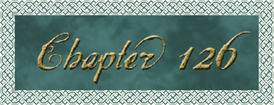
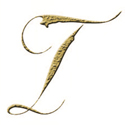 HE LIBRARY in the House of the Temple was D.C.’s oldest public reading room. Its elegant stacks burgeoned with over a quarter of a million volumes, including a rare copy of the Ahiman Rezon, The Secrets of a Prepared Brother. In addition, the library displayed precious Masonic jewels, ritual artifacts, and even a rare volume that had been hand-printed by Benjamin Franklin.
HE LIBRARY in the House of the Temple was D.C.’s oldest public reading room. Its elegant stacks burgeoned with over a quarter of a million volumes, including a rare copy of the Ahiman Rezon, The Secrets of a Prepared Brother. In addition, the library displayed precious Masonic jewels, ritual artifacts, and even a rare volume that had been hand-printed by Benjamin Franklin.
Langdon’s favorite library treasure, however, was one few ever noticed.
The illusion.
Solomon had shown him long ago that from the proper vantage point, the library’s reading desk and golden table lamp created an unmistakable optical illusion … that of a pyramid and shining golden capstone. Solomon said he always considered the illusion a silent reminder that the mysteries of Freemasonry were perfectly visible to anyone and everyone if they were seen from the proper perspective.
Tonight, however, the mysteries of Freemasonry had materialized front and center. Langdon now sat opposite the Worshipful Master Peter Solomon and the Masonic Pyramid.
Peter was smiling. “The ‘word’ you refer to, Robert, is not a legend. It is a reality.”
Langdon stared across the table and finally spoke. “But … I don’t understand. How is that possible?”
“What is so difficult to accept?”
All of it! Langdon wanted to say, searching his old friend’s eyes for any hint of common sense. “You’re saying you believe the Lost Word is real … and that it has actual power?”
“Enormous power,” Peter said. “It has the power to transform humankind by unlocking the Ancient Mysteries.”
“A word?” Langdon challenged. “Peter, I can’t possibly believe a word—”
“You will believe,” Peter stated calmly.
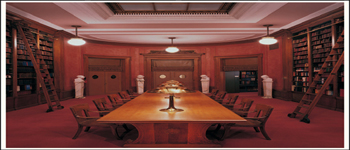
THE MAIN LIBRARY, HOUSE OF THE TEMPLE © Maxwell MacKenzie
“As you know,” Solomon continued, standing now and pacing around the table, “it has long been prophesied that there will come a day when the Lost Word will be rediscovered … a day when it will be unearthed … and mankind will once again have access to its forgotten power.”
Langdon flashed on Peter’s lecture about the Apocalypse. Although many people erroneously interpreted apocalypse as a cataclysmic end of the world, the word literally signified an “unveiling,” predicted by the ancients to be that of great wisdom. The coming age of enlightenment. Even so, Langdon could not imagine such a vast change being ushered in by … a word.
Peter motioned to the stone pyramid, which sat on the table beside its golden capstone. “The Masonic Pyramid,” he said. “The legendary symbolon. Tonight it stands unified … and complete.” Reverently, he lifted the golden capstone and set it atop the pyramid. The heavy gold piece clicked softly into place.
“Tonight, my friend, you have done what has never been done before. You have assembled the Masonic Pyramid, deciphered all of its codes, and in the end, unveiled … this.”
Solomon produced a sheet of paper and laid it on the table. Langdon recognized the grid of symbols that had been reorganized using the Order Eight Franklin Square. He had studied it briefly in the Temple Room.
Peter said, “I am curious to know if you can read this array of symbols. After all, you are the specialist.”
Langdon eyed the grid.
Heredom, circumpunct, pyramid, staircase …
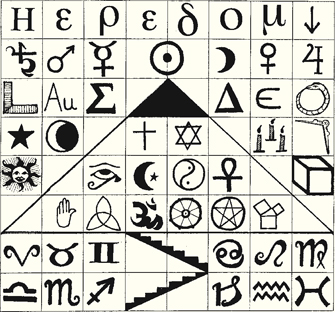
Langdon sighed. “Well, Peter, as you can probably see, this is an allegorical pictogram. Clearly its language is metaphorical and symbolic rather than literal.”
Solomon chuckled. “Ask a symbologist a simple question … Okay, tell me what you see.”
Peter really wants to hear this? Langdon pulled the page toward him. “Well, I looked at it earlier, and, in simple terms, I see that this grid is a picture … depicting heaven and earth.”
Peter arched his eyebrows, looking surprised. “Oh?”
“Sure. At the top of the image, we have the word Heredom—the ‘Holy House’—which I interpret as the House of God … or heaven.”
“Okay.”
“The downward-facing arrow after Heredom signifies that the rest of the pictogram clearly lies in the realm beneath heaven … that being … earth.” Langdon’s eyes glided now to the bottom of the grid. “The lowest two rows, those beneath the pyramid, represent the earth itself—terra firma—the lowest of all the realms. Fittingly, these lower realms contain the twelve ancient astrological signs, which represent the primordial religion of those first human souls who looked to the heavens and saw the hand of God in the movement of the stars and planets.”
Solomon slid his chair closer and studied the grid. “Okay, what else?”
“On a foundation of astrology,” Langdon continued, “the great pyramid rises from the earth … stretching toward heaven … the enduring symbol of lost wisdom. It is filled with history’s great philosophies and religions … Egyptian, Pythagorean, Buddhist, Hindu, Islamic, Judeo-Christian, and on and on … all flowing upward, merging together, funneling themselves up through the transformative gateway of the pyramid … where they finally fuse into a single, unified human philosophy.” He paused. “A single universal consciousness … a shared global vision of God … represented by the ancient symbol that hovers over the capstone.”
“The circumpunct,” Peter said. “A universal symbol for God.”
“Right. Throughout history, the circumpunct has been all things to all people—it is the sun god Ra, alchemical gold, the all-seeing eye, the singularity point before the Big Bang, the—”
“The Great Architect of the Universe.”
Langdon nodded, sensing this was probably the same argument Peter had used in the Temple Room to sell the idea of the circumpunct as the Lost Word.
“And finally?” Peter asked. “What about the staircase?”
Langdon glanced down at the image of the stairs beneath the pyramid. “Peter, I’m sure you know as well as anyone, this symbolizes the Winding Staircase of Freemasonry … leading upward out of the earthly darkness into the light … like Jacob’s ladder climbing to heaven … or the tiered human spine that connects man’s mortal body to his eternal mind.” He paused. “As for the rest of the symbols, they appear to be a blend of celestial, Masonic, and scientific, all lending support to the Ancient Mysteries.”
Solomon stroked his chin. “An elegant interpretation, Professor. I agree, of course, that this grid can be read as allegory, and yet …” His eyes flashed with deepening mystery. “This collection of symbols tells another story as well. A story that is far more revealing.”
“Oh?”
Solomon began pacing again, circling the table. “Earlier tonight, inside the Temple Room, when I believed I was going to die, I looked at this grid, and somehow I saw past the metaphor, past the allegory, into the very heart of what these symbols are telling us.” He paused, turning abruptly to Langdon. “This grid reveals the exact location where the Lost Word is buried.”
“Come again?” Langdon shifted uneasily in his chair, suddenly fearing that the trauma of the evening had left Peter disorientated and confused.
“Robert, legend has always described the Masonic Pyramid as a map—a very specific map—a map that could guide the worthy to the secret location of the Lost Word.” Solomon tapped the grid of symbols in front of Langdon. “I guarantee you, these symbols are exactly what legend says they are … a map. A specific diagram that reveals exactly where we will find the staircase that leads down to the Lost Word.”
Langdon gave an uneasy laugh, treading carefully now. “Even if I believed the Legend of the Masonic Pyramid, this grid of symbols can’t possibly be a map. Look at it. It looks nothing like a map.”
Solomon smiled. “Sometimes all it takes is a tiny shift of perspective to see something familiar in a totally new light.”
Langdon looked again but saw nothing new.
“Let me ask you a question,” Peter said. “When Masons lay cornerstones, do you know why we lay them in the northeast corner of a building?”
“Sure, because the northeast corner receives the first rays of morning light. It is symbolic of the power of architecture to climb out of the earth into the light.”
“Right,” Peter said. “So perhaps you should look there for the first rays of light.” He motioned to the grid. “In the northeast corner.”
Langdon returned his eyes to the page, moving his gaze to the upper right or northeast corner. The symbol in that corner was ↓.
“A downward-pointing arrow,” Langdon said, trying to grasp Solomon’s point.
“Which means … beneath Heredom.”
“No, Robert, not beneath,” Solomon replied. “Think. This grid is not a metaphorical maze. It’s a map. And on a map, a directional arrow that points down means—”
“South,” Langdon exclaimed, startled.
“Exactly!” Solomon replied, grinning now with excitement. “Due south! On a map, down is south. Moreover, on a map, the word Heredom would not be a metaphor for heaven, it would be the name of a geographic location.”
“The House of the Temple? You’re saying this map is pointing … due south of this building?”
“Praise God!” Solomon said, laughing. “Light dawns at last.”
Langdon studied the grid. “But, Peter … even if you’re right, due south of this building could be anywhere on a longitude that’s over twenty-four thousand miles long.”
“No, Robert. You are ignoring the legend, which claims the Lost Word is buried in D.C. That shortens the line substantially. In addition, legend also claims that a large stone sits atop the opening of the staircase … and that this stone is engraved with a message in an ancient language … as a kind of marker so the worthy can find it.”
Langdon was having trouble taking any of this seriously, and while he didn’t know D.C. well enough to picture what was due south of their current location, he was pretty certain there was no huge engraved stone atop a buried staircase.
“The message inscribed on the stone,” Peter said, “is right here before our eyes.” He tapped the third row of the grid before Langdon. “This is the inscription, Robert! You’ve solved the puzzle!”
Dumbfounded, Langdon studied the seven symbols.

Solved? Langdon had no idea whatsoever what these seven disparate symbols could possibly mean, and he was damned sure they were not engraved anywhere in the nation’s capital … particularly on a giant stone over a staircase.
“Peter,” he said, “I don’t see how this sheds any light at all. I know of no stone in D.C. engraved with this … message.”
Solomon patted him on the shoulder. “You have walked past it and never seen it. We all have. It is sitting in plain view, like the mysteries themselves. And tonight, when I saw these seven symbols, I realized in an instant that the legend was true. The Lost Word is buried in D.C …. and it does rest at the bottom of a long staircase beneath an enormous engraved stone.”
Mystified, Langdon remained silent.
“Robert, tonight I believe you have earned the right to know the truth.”
Langdon stared at Peter, trying to process what he had just heard. “You’re going to tell me where the Lost Word is buried?”
“No,” Solomon said, standing up with a smile. “I’m going to show you.”
Five minutes later, Langdon was buckling himself into the backseat of the Escalade beside Peter Solomon. Simkins climbed in behind the wheel as Sato approached across the parking lot.
“Mr. Solomon?” the director said, lighting a cigarette as she arrived. “I’ve just made the call you requested.”
“And?” Peter asked through his open window.
“I ordered them to give you access. Briefly.”
“Thank you.”
Sato studied him, looking curious. “I must say, it’s a most unusual request.”
Solomon gave an enigmatic shrug.
Sato let it go, circling around to Langdon’s window and rapping with her knuckles.
Langdon lowered the window.
“Professor,” she said, with no hint of warmth. “Your assistance tonight, while reluctant, was critical to our success … and for that, I thank you.” She took a long drag on her cigarette and blew it sideways. “However, one final bit of advice. The next time a senior administrator of the CIA tells you she has a national-security crisis …” Her eyes flashed black. “Leave the bullshit in Cambridge.”
Langdon opened his mouth to speak, but Director Inoue Sato had already turned and was headed off across the parking lot toward a waiting helicopter.
Simkins glanced over his shoulder, stone-faced. “Are you gentlemen ready?”
“Actually,” Solomon said, “just one moment.” He produced a small, folded piece of dark fabric and handed it to Langdon. “Robert, I’d like you to put this on before we go anywhere.”
Puzzled, Langdon examined the cloth. It was black velvet. As he unfolded it, he realized he was holding a Masonic hoodwink—the traditional blindfold of a first-degree initiate. What the hell?
Peter said, “I’d prefer you not see where we’re going.”
Langdon turned to Peter. “You want to blindfold me for the journey?”
Solomon grinned. “My secret. My rules.”
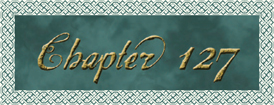
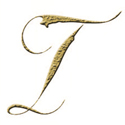 HE BREEZE felt cold outside CIA headquarters in Langley. Nola Kaye was shivering as she followed sys-sec Rick Parrish across the agency’s moonlit central courtyard.
HE BREEZE felt cold outside CIA headquarters in Langley. Nola Kaye was shivering as she followed sys-sec Rick Parrish across the agency’s moonlit central courtyard.
Where is Rick taking me?
The crisis of the Masonic video had been averted, thank God, but Nola still felt uneasy. The redacted file on the CIA director’s partition remained a mystery, and it was nagging at her. She and Sato would debrief in the morning, and Nola wanted all the facts. Finally, she had called Rick Parrish and demanded his help.
Now, as she followed Rick to some unknown location outside, Nola could not push the bizarre phrases from her memory:
Secret location underground where the … somewhere in Washington, D.C., the coordinates … uncovered an ancient portal that led … warning the pyramid holds dangerous … decipher this engraved symbolon to unveil …
“You and I agree,” Parrish said as they walked, “that the hacker who spidered those keywords was definitely searching for information about the Masonic Pyramid.”
Obviously, Nola thought.
“It turns out, though, the hacker stumbled onto a facet of the Masonic mystery I don’t think he expected.”
“What do you mean?”
“Nola, you know how the CIA director sponsors an internal discussion forum for Agency employees to share their ideas about all kinds of things?”
“Of course.” The forums provided Agency personnel a safe place to chat online about various topics and gave the director a kind of virtual gateway to his staff.
“The director’s forums are hosted on his private partition, and yet in order to provide access to employees of all clearance levels, they’re located outside the director’s classified firewall.”
“What are you getting at?” she demanded as they rounded a corner near the Agency cafeteria.
“In a word …” Parrish pointed into the darkness. “That.”
Nola glanced up. Across the plaza in front of them was a massive metal sculpture glimmering in the moonlight.
In an agency that boasted over five hundred pieces of original art, this sculpture—titled Kryptos—was by far the most famous. Greek for “hidden,” Kryptos was the work of American artist James Sanborn and had become something of a legend here at the CIA.
The work consisted of a massive S-shaped panel of copper, set on its edge like a curling metal wall. Engraved into the expansive surface of the wall were nearly two thousand letters … organized into a baffling code. As if this were not enigmatic enough, positioned carefully in the area around the encrypted S-wall were numerous other sculptural elements—granite slabs at odd angles, a compass rose, a magnetic lodestone, and even a message in Morse code that referenced “lucid memory” and “shadow forces.” Most fans believed that these pieces were clues that would reveal how to decipher the sculpture.
Kryptos was art … but it was also an enigma.
Attempting to decipher its encoded secret had become an obsession for cryptologists both inside and outside the CIA. Finally, a few years back, a portion of the code had been broken, and it became national news. Although much of Kryptos’s code remained unsolved to this day, the sections that had been deciphered were so bizarre that they made the sculpture only more mysterious. It referenced secret underground locations, portals that led into ancient tombs, longitudes and latitudes …
Nola could still recall bits and pieces of the deciphered sections: The information was gathered and transmitted underground to an unknown location … It was totally invisible … hows that possible … they used the earths magnetic field …
Nola had never paid much attention to the sculpture or cared if it was ever fully deciphered. At the moment, however, she wanted answers. “Why are you showing me Kryptos?”
Parrish gave her a conspiratorial smile and dramatically extracted a folded sheet of paper from his pocket. “Voilà, the mysterious redacted document you were so concerned about. I accessed the complete text.”
Nola jumped. “You snooped the director’s classified partition?”
“No. That’s what I was getting at earlier. Have a look.” He handed her the file.
Nola seized the page and unfolded it. When she saw the standard Agency headers at the top of the page, she cocked her head in surprise.
This document was not classified. Not even close.
EMPLOYEE DISCUSSION BOARD: KRYPTOS
COMPRESSED STORAGE: THREAD #2456282.5
Nola found herself looking at a series of postings that had been compressed into a single page for more efficient storage.
“Your keyword document,” Rick said, “is some cipher-punks rambling about Kryptos.”
Nola scanned down the document until she spotted a sentence containing a familiar set of keywords.
Jim, the sculpture says it was transmitted to a secret location UNDERGROUND where the info was hidden.
“This text is from the director’s online Kryptos forum,” Rick explained. “The forum’s been going for years. There are literally thousands of postings. I’m not surprised one of them happened to contain all the keywords.”
Nola kept scanning down until she spotted another posting containing keywords.
Even though Mark said the code’s lat/long headings point somewhere in WASHINGTON, D.C., the coordinates he used were off by one degree–Kryptos basically points back to itself.
Parrish walked over to the statue and ran his palm across the cryptic sea of letters. “A lot of this code has yet to be deciphered, and there are plenty of people who think the message might actually relate to ancient Masonic secrets.”
Nola now recalled murmurs of a Masonic/Kryptos link, but she tended to ignore the lunatic fringe. Then again, looking around at the various pieces of the sculpture arranged around the plaza, she realized that it was a code in pieces—a symbolon—just like the Masonic Pyramid.
Odd.
For a moment, Nola could almost see Kryptos as a modern Masonic Pyramid—a code in many pieces, made of different materials, each playing a role. “Do you think there’s any way Kryptos and the Masonic Pyramid might be hiding the same secret?”
“Who knows?” Parrish shot Kryptos a frustrated look. “I doubt we’ll ever know the whole message. That is, unless someone can convince the director to unlock his safe and sneak a peek at the solution.”
Nola nodded. It was all coming back to her now. When Kryptos was installed, it arrived with a sealed envelope containing a complete decryption of the sculpture’s codes. The sealed solution was entrusted to then-CIA director William Webster, who locked it in his office safe. The document was allegedly still there, having been transferred from director to director over the years.
Strangely, Nola’s thoughts of William Webster sparked her memory, bringing back yet another portion of Kryptos’s deciphered text:
IT’S BURIED OUT THERE SOMEWHERE.
WHO KNOWS THE EXACT LOCATION?
ONLY WW.
Although nobody knew exactly what was buried out there, most people believed the WW was a reference to William Webster. Nola had heard whispers once that it referred in fact to a man named William Whiston—a Royal Society theologian—although she had never bothered to give it much thought.
Rick was talking again. “I’ve got to admit, I’m not really into artists, but I think this guy Sanborn’s a serious genius. I was just looking online at his Cyrillic Projector project? It shines giant Russian letters from a KGB document on mind control. Freaky.”
Nola was no longer listening. She was examining the paper, where she had found the third key phrase in another posting.
Right, that whole section is verbatim from some famous archaeologist’s diary, telling about the moment he dug down and uncovered an ANCIENT PORTAL that led to the tomb of Tutankhamen.
The archaeologist who was quoted on Kryptos, Nola knew, was in fact famed Egyptologist Howard Carter. The next posting referenced him by name.
I just skimmed the rest of Carter’s field notes online, and it sounds like he found a clay tablet warning the PYRAMID holds dangerous consequences for anyone who disturbs the peace of the pharaoh. A curse! Should we be worried? 
Nola scowled. “Rick, for God’s sake, this idiot’s pyramid reference isn’t even right. Tutankhamen wasn’t buried in a pyramid. He was buried in the Valley of the Kings. Don’t cryptologists watch the Discovery Channel?”
Parrish shrugged. “Techies.”
Nola now saw the final key phrase.
Guys, you know I’m not a conspiracy theorist, but Jim and Dave had better decipher this ENGRAVED SYMBOLON to unveil its final secret before the world ends in 2012 … Ciao.
“Anyhow,” Parrish said, “I figured you’d want to know about the Kryptos forum before you accused the CIA director of harboring classified documentation about an ancient Masonic legend. Somehow, I doubt a man as powerful as the CIA director has time for that sort of thing.”
Nola pictured the Masonic video and its images of all the influential men participating in an ancient rite. If Rick had any idea …
In the end, she knew, whatever Kryptos ultimately revealed, the message definitely had mystical undertones. She gazed up at the gleaming piece of art—a three-dimensional code standing silently at the heart of one of the nation’s premier intelligence agencies—and she wondered if it would ever give up its final secret.
As she and Rick headed back inside, Nola had to smile.
It’s buried out there somewhere.
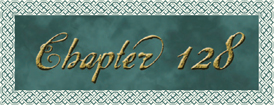
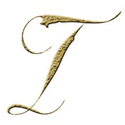 HIS IS CRAZY.
HIS IS CRAZY.
Blindfolded, Robert Langdon could see nothing as the Escalade sped southward along the deserted streets. On the seat beside him, Peter Solomon remained silent.
Where is he taking me?
Langdon’s curiosity was a mix of intrigue and apprehension, his imagination in overdrive as it tried desperately to put the pieces together. Peter had not wavered from his claim. The Lost Word? Buried at the bottom of a staircase that’s covered by a massive, engraved stone? It all seemed impossible.
The stone’s alleged engraving was still lodged in Langdon’s memory … and yet the seven symbols, as far as he could tell, made no sense together at all.

The Stonemason’s Square: the symbol of honesty and being “true.”
The letters Au: the scientific abbreviation for the element gold.
The Sigma: the Greek letter S, the mathematical symbol for the sum of all parts.
The Pyramid: the Egyptian symbol of man reaching heavenward.
The Delta: the Greek letter D, the mathematical symbol for change.
Mercury: as depicted by its most ancient alchemical symbol.
The Ouroboros: the symbol of wholeness and at-one-ment.
Solomon still insisted these seven symbols were a “message.” But if this was true, then it was a message Langdon had no idea how to read.
The Escalade slowed suddenly and turned sharply right, onto a different surface, as if into a driveway or access road. Langdon perked up, listening intently for clues as to their whereabouts. They’d been driving for less than ten minutes, and although Langdon had tried to follow in his mind, he had lost his bearings quickly. For all he knew, they were now pulling back into the House of the Temple.
The Escalade came to a stop, and Langdon heard the window roll down.
“Agent Simkins, CIA,” their driver announced. “I believe you’re expecting us.”
“Yes, sir,” a sharp military voice replied. “Director Sato phoned ahead. One moment while I move the security barricade.”
Langdon listened with rising confusion, now sensing they were entering a military base. As the car began moving again, along an unusually smooth stretch of pavement, he turned his head blindly toward Solomon. “Where are we, Peter?” he demanded.
“Do not remove your blindfold.” Peter’s voice was stern.
The vehicle continued a short distance and again slowed to a stop. Simkins killed the engine. More voices. Military. Someone asked for Simkins’s identification. The agent got out and spoke to the men in hushed tones.
Langdon’s door was suddenly being opened, and powerful hands assisted him out of the car. The air felt cold. It was windy.
Solomon was beside him. “Robert, just let Agent Simkins lead you inside.”
Langdon heard metal keys in a lock … and then the creak of a heavy iron door swinging open. It sounded like an ancient bulkhead. Where the hell are they taking me?!
Simkins’s hands guided Langdon in the direction of the metal door. They stepped over a threshold. “Straight ahead, Professor.”
It was suddenly quiet. Dead. Deserted. The air inside smelled sterile and processed.
Simkins and Solomon flanked Langdon now, guiding him blindly down a reverberating corridor. The floor felt like stone beneath his loafers.
Behind them, the metal door slammed loudly, and Langdon jumped. The locks turned. He was sweating now beneath his blindfold. He wanted only to tear it off.
They stopped walking now.
Simkins let go of Langdon’s arm, and there was a series of electronic beeps followed by an unexpected rumble in front of them, which Langdon imagined had to be a security door sliding open automatically.
“Mr. Solomon, you and Mr. Langdon continue on alone. I’ll wait for you here,” Simkins said. “Take my flashlight.”
“Thank you,” Solomon said. “We won’t be long.”
Flashlight?! Langdon’s heart was pounding wildly now.
Peter took Langdon’s arm in his own and inched forward. “Walk with me, Robert.”
They moved slowly together across another threshold, and the security door rumbled shut behind them.
Peter stopped short. “Is something wrong?”
Langdon was suddenly feeling queasy and off balance. “I think I just need to take off this blindfold.”
“Not yet, we’re almost there.”
“Almost where?” Langdon felt a growing heaviness in the pit of his stomach.
“I told you—I’m taking you to see the staircase that descends to the Lost Word.”
“Peter, this isn’t funny!”
“It’s not meant to be. It’s meant to open your mind, Robert. It’s meant to remind you that there are mysteries in this world that even you have yet to lay eyes upon. And before I take one more step with you, I want you to do something for me. I want you to believe … just for an instant … believe in the legend. Believe that you are about to peer down a winding staircase that plunges hundreds of feet to one of humankind’s greatest lost treasures.”
Langdon felt dizzy. As much as he wanted to believe his dear friend, he could not. “Is it much farther?” His velvet hoodwink was drenched in sweat.
“No. Only a few more steps, actually. Through one last door. I’ll open it now.”
Solomon let go of him for a moment, and as he did so, Langdon swayed, feeling light-headed. Unsteady, he reached out for stability, and Peter was quickly back at his side. The sound of a heavy automatic door rumbled in front of them. Peter took Langdon’s arm and they moved forward again.
“This way.”
They inched across another threshold, and the door slid closed behind them.
Silence. Cold.
Langdon immediately sensed that this place, whatever it was, had nothing to do with the world on the other side of the security doors. The air was dank and chilly, like a tomb. The acoustics felt dull and cramped. He felt an irrational bout of claustrophobia settling in.
“A few more steps.” Solomon guided him blindly around a corner and positioned him precisely. Finally, he said, “Take off your blindfold.”
Langdon seized the velvet hoodwink and tore it from his face. He looked all around to find out where he was, but he was still blind. He rubbed his eyes. Nothing. “Peter, it’s pitch-black!”
“Yes, I know. Reach in front of you. There’s a railing. Grasp it.”
Langdon groped in the darkness and found an iron railing.
“Now watch.” He could hear Peter fumbling with something, and suddenly a blazing flashlight beam pierced the darkness. It was pointed at the floor, and before Langdon could take in his surroundings, Solomon directed the flashlight out over the railing and pointed the beam straight down.
Langdon was suddenly staring into a bottomless shaft … an endless winding staircase that plunged deep into the earth. My God! His knees nearly buckled, and he gripped the railing for support. The staircase was a traditional square spiral, and he could see at least thirty landings descending into the earth before the flashlight faded to nothing. I can’t even see the bottom!
“Peter …” he stammered. “What is this place!”
“I’ll take you to the bottom of the staircase in a moment, but before I do, you need to see something else.”
Too overwhelmed to protest, Langdon let Peter guide him away from the stairwell and across the strange little chamber. Peter kept the flashlight trained on the worn stone floor beneath their feet, and Langdon could get no real sense of the space around them … except that it was small.
A tiny stone chamber.
They arrived quickly at the room’s opposite wall, in which was embedded a rectangle of glass. Langdon thought it might be a window into a room beyond, and yet from where he stood, he saw only darkness on the other side.
“Go ahead,” Peter said. “Have a look.”
“What’s in there?” Langdon flashed for an instant on the Chamber of Reflection beneath the Capitol Building, and how he had believed, for a moment, that it might contain a portal to some giant underground cavern.
“Just look, Robert.” Solomon inched him forward. “And brace yourself, because the sight will shock you.”
Having no idea what to expect, Langdon moved toward the glass. As he neared the portal, Peter turned out the flashlight, plunging the tiny chamber into total darkness.
As his eyes adjusted, Langdon groped in front of him, his hands finding the wall, finding the glass, his face moving closer to the transparent portal.
Still only darkness beyond.
He leaned closer … pressing his face to the glass.
Then he saw it.
The wave of shock and disorientation that tore through Langdon’s body reached down inside and spun his internal compass upside down. He nearly fell backward as his mind strained to accept the utterly unanticipated sight that was before him. In his wildest dreams, Robert Langdon would never have guessed what lay on the other side of this glass.
The vision was a glorious sight.
There in the darkness, a brilliant white light shone like a gleaming jewel.
Langdon now understood it all—the barricade on the access road … the guards at the main entrance … the heavy metal door outside … the automatic doors that rumbled open and closed … the heaviness in his stomach … the lightness in his head … and now this tiny stone chamber.
“Robert,” Peter whispered behind him, “sometimes a change of perspective is all it takes to see the light.”
Speechless, Langdon stared out through the window. His gaze traveled into the darkness of the night, traversing more than a mile of empty space, dropping lower … lower … through the darkness … until it came to rest atop the brilliantly illuminated, stark white dome of the U.S. Capitol Building.
Langdon had never seen the Capitol from this perspective—hovering 555 feet in the air atop America’s great Egyptian obelisk. Tonight, for the first time in his life, he had ridden the elevator up to the tiny viewing chamber … at the pinnacle of the Washington Monument.
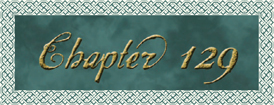
 OBERT LANGDON stood mesmerized at the glass portal, absorbing the power of the landscape below him. Having ascended unknowingly hundreds of feet into the air, he was now admiring one of the most spectacular vistas he had ever seen.
OBERT LANGDON stood mesmerized at the glass portal, absorbing the power of the landscape below him. Having ascended unknowingly hundreds of feet into the air, he was now admiring one of the most spectacular vistas he had ever seen.
The shining dome of the U.S. Capitol rose like a mountain at the east end of the National Mall. On either side of the building, two parallel lines of light stretched toward him … the illuminated facades of the Smithsonian museums … beacons of art, history, science, culture.
Langdon now realized to his astonishment that much of what Peter had declared to be true … was in fact true. There is indeed a winding staircase … descending hundreds of feet beneath a massive stone. The huge capstone of this obelisk sat directly over his head, and Langdon now recalled a forgotten bit of trivia that seemed to have eerie relevance: the capstone of the Washington Monument weighed precisely thirty-three hundred pounds.
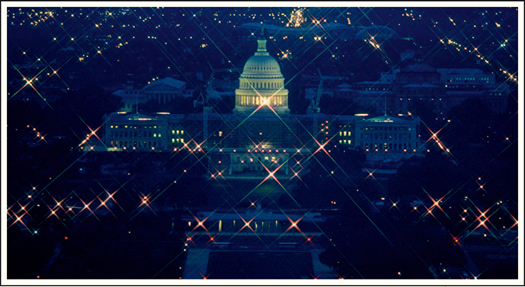
VIEW OF THE U.S. CAPITOL BUILDING, FROM ATOP THE WASHINGTON MONUMENT
129.1: Stock Connection Blue/Alamy
Again, the number 33.
More startling, however, was the knowledge that this capstone’s ultimate peak, the zenith of this obelisk, was crowned by a tiny, polished tip of aluminum—a metal as precious as gold in its day. The shining apex of the Washington Monument was only about a foot tall, the same size as the Masonic Pyramid. Incredibly, this small metal pyramid bore a famous engraving—Laus Deo—and Langdon suddenly understood. This is the true message of the base of the stone pyramid.

The seven symbols are a transliteration!
The simplest of ciphers.
The symbols are letters.
The stonemason’s square—L
The element gold—AU
The Greek Sigma—S
The Greek Delta—D
Alchemical mercury—E
The Ouroboros—O
“Laus Deo,” Langdon whispered. The well-known Latin phrase—meaning “praise God”—was inscribed on the tip of the Washington Monument in script letters only one inch tall. On full display … and yet invisible to all.
Laus Deo.
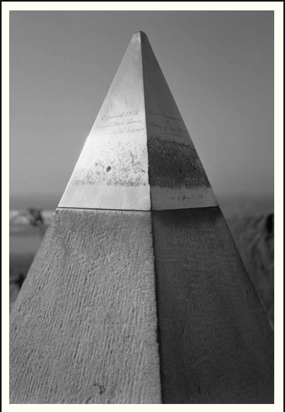
TEN-INCH TALL ALUMINUM TIP OF THE WASHINGTON MONUMENT CAPSTONE
129.2: Theodor Horydczak Collection, Prints & Photographs Division, Library of Congress, LC-H824-T-M04-045
“Praise God,” Peter said behind him, flipping on the soft lighting in the chamber. “The Masonic Pyramid’s final code.”
Langdon turned. His friend was grinning broadly, and Langdon recalled that Peter had actually spoken the words “praise God” earlier inside the Masonic library. And I still missed it.
Langdon felt a chill to realize how apt it was that the legendary Masonic Pyramid had guided him here … to America’s great obelisk—the symbol of ancient mystical wisdom—rising toward the heavens at the heart of a nation.
In a state of wonder, Langdon began moving counterclockwise around the perimeter of the tiny square room, arriving now at another viewing window.
North.
Through this northward-facing window, Langdon gazed down at the familiar silhouette of the White House directly in front of him. He raised his eyes to the horizon, where the straight line of Sixteenth Street ran due north toward the House of the Temple.
I am due south of Heredom.
He continued around the perimeter to the next window. Looking west, Langdon’s eyes traced the long rectangle of the reflecting pool to the Lincoln Memorial, its classical Greek architecture inspired by the Parthenon in Athens, Temple to Athena—goddess of heroic undertakings.
Annuit coeptis, Langdon thought. God favors our undertaking.
Continuing to the final window, Langdon gazed southward across the dark waters of the Tidal Basin, where the Jefferson Memorial shone brightly in the night. The gently sloping cupola, Langdon knew, was modeled after the Pantheon, the original home to the great Roman gods of mythology.
Having looked in all four directions, Langdon now thought about the aerial photos he had seen of the National Mall—her four arms outstretched from the Washington Monument toward the cardinal points of the compass. I am standing at the crossroads of America.
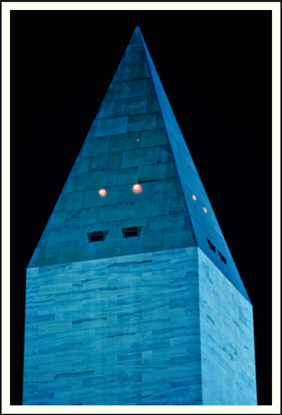
WASHINGTON MONUMENT, UPPER SECTION AND CAPSTONE
129.3: Vito Palmisano/Photographer’s Choice/Getty Images
Langdon continued back around to where Peter was standing. His mentor was beaming. “Well, Robert, this is it. The Lost Word. This is where it’s buried. The Masonic Pyramid led us here.”
Langdon did a double take. He had all but forgotten about the Lost Word.
“Robert, I know of nobody more trustworthy than you. And after a night like tonight, I believe you deserve to know what this is all about. As promised in legend, the Lost Word is indeed buried at the bottom of a winding staircase.” He motioned to the mouth of the monument’s long stairwell.
Langdon had finally started to get his feet back under him, but now he was puzzled.
Peter quickly reached into his pocket and pulled out a small object. “Do you remember this?”
Langdon took the cube-shaped box that Peter had entrusted to him long ago. “Yes … but I’m afraid I didn’t do a very good job of protecting it.”
Solomon chuckled. “Perhaps the time had come for it to see the light of day.”
Langdon eyed the stone cube, wondering why Peter had just handed it to him.
“What does this look like to you?” Peter asked.
Langdon eyed the 1514 and recalled his first impression when Katherine had unwrapped the package. “A cornerstone.”
and recalled his first impression when Katherine had unwrapped the package. “A cornerstone.”
“Exactly,” Peter replied. “Now, there are a few things you might not know about cornerstones. First, the concept of laying a cornerstone comes from the Old Testament.”
Langdon nodded. “The Book of Psalms.”
“Correct. And a true cornerstone is always buried beneath the ground—symbolizing the building’s initial step upward out of the earth toward the heavenly light.”
Langdon glanced out at the Capitol, recalling that its cornerstone was buried so deep in the foundation that, to this day, excavations had been unable to find it.
“And finally,” Solomon said, “like the stone box in your hand, many cornerstones are little vaults … and have hollow cavities so that they can hold buried treasures … talismans, if you will—symbols of hope for the future of the building about to be erected.”
Langdon was well aware of this tradition, too. Even today, Masons laid cornerstones in which they sealed meaningful objects—time capsules, photos, proclamations, even the ashes of important people.
“My purpose in telling you this,” Solomon said, glancing over at the stairwell, “should be clear.”
“You think the Lost Word is buried in the cornerstone of the Washington Monument?”
“I don’t think, Robert. I know. The Lost Word was buried in the cornerstone of this monument on July 4, 1848, in a full Masonic ritual.”
Langdon stared at him. “Our Masonic forefathers buried a word?!”
Peter nodded. “They did indeed. They understood the true power of what they were burying.”
All night, Langdon had been trying to wrap his mind around sprawling, ethereal concepts … the Ancient Mysteries, the Lost Word, the Secrets of the Ages. He wanted something solid, and despite Peter’s claims that the key to it all was buried in a cornerstone 555 feet beneath him, Langdon was having a hard time accepting it. People study the mysteries for entire lifetimes and are still unable to access the power allegedly hidden there. Langdon flashed on Dürer’s Melencolia I—the image of the dejected Adept, surrounded by the tools of his failed efforts to unveil the mystical secrets of alchemy. If the secrets can actually be unlocked, they will not be found in one place!
Any answer, Langdon had always believed, was spread across the world in thousands of volumes … encoded into writings of Pythagoras, Hermes, Heraclitus, Paracelsus, and hundreds of others. The answer was found in dusty, forgotten tomes on alchemy, mysticism, magic, and philosophy. The answer was hidden in the ancient library of Alexandria, the clay tablets of Sumer, and the hieroglyphs of Egypt.
“Peter, I’m sorry,” Langdon said quietly, shaking his head. “To understand the Ancient Mysteries is a lifelong process. I can’t imagine how the key could possibly rest within a single word.”
Peter placed a hand on Langdon’s shoulder. “Robert, the Lost Word is not a ‘word.’ ” He gave a sage smile. “We only call it the ‘Word’ because that’s what the ancients called it … in the beginning.”
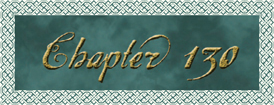
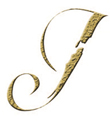 N THE beginning was the Word.
N THE beginning was the Word.
Dean Galloway knelt at the Great Crossing of the National Cathedral and prayed for America. He prayed that his beloved country would soon come to grasp the true power of the Word—the recorded collection of the written wisdom of all the ancient masters—the spiritual truths taught by the great sages.
History had blessed mankind with the wisest of teachers, profoundly enlightened souls whose understanding of the spiritual and mental mysteries exceeded all understanding. The precious words of these Adepts—Buddha, Jesus, Muhammad, Zoroaster, and countless others—had been transmitted through history in the oldest and most precious of vessels.
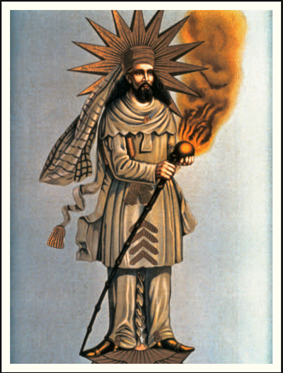
THE PERSIAN PROPHET ZOROASTER
130.1: Private Collection/Ann & Bury Peerless Picture Library/The Bridgeman Art Library
Books.
Every culture on earth had its own sacred book—its own Word—each one different and yet each one the same. For Christians, the Word was the Bible, for Muslims the Koran, for Jews the Torah, for Hindus the Vedas, and on and on it went.
The Word shall light the way.
For America’s Masonic forefathers, the Word had been the Bible. And yet few people in history have understood its true message.
Tonight, as Galloway knelt alone within the great cathedral, he placed his hands upon the Word—a well-worn copy of his own Masonic Bible. This treasured book, like all Masonic Bibles, contained the Old Testament, the New Testament, and a treasure trove of Masonic philosophical writings.
Although Galloway’s eyes could no longer read the text, he knew the preface by heart. Its glorious message had been read by millions of his brethren in countless languages around the world. The text read:
TIME IS A RIVER … AND BOOKS ARE BOATS. MANY VOLUMES START DOWN THAT STREAM, ONLY TO BE WRECKED AND LOST BEYOND RECALL IN ITS SANDS. ONLY A FEW, A VERY FEW, ENDURE THE TESTINGS OF TIME AND LIVE TO BLESS THE AGES FOLLOWING.
There is a reason these volumes survived, while others vanished. As a scholar of faith, Dean Galloway had always found it astonishing that the ancient spiritual texts—the most studied books on earth—were, in fact, the least understood.
Concealed within those pages, there hides a wondrous secret.
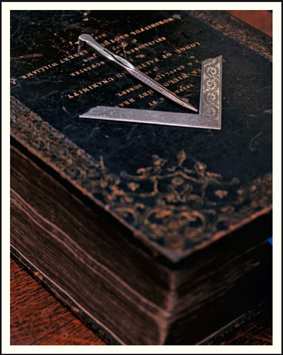
THE MASONIC BIBLE
130.2: Jack Sullivan/Alamy
One day soon the light would dawn, and mankind would finally begin to grasp the simple, transformative truth of the ancient teachings … and take a quantum leap forward in understanding his own magnificent nature.
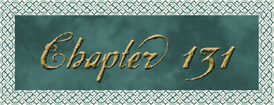
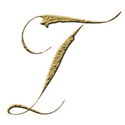 HE WINDING staircase that descends the spine of the Washington Monument consists of 896 stone steps that spiral around an open elevator shaft. Langdon and Solomon were making their way down, Langdon still grappling with the startling fact that Peter had shared with him only moments ago: Robert, buried within the hollow cornerstone of this monument, our forefathers placed a single copy of the Word—the Bible—which waits in darkness at the foot of this staircase.
HE WINDING staircase that descends the spine of the Washington Monument consists of 896 stone steps that spiral around an open elevator shaft. Langdon and Solomon were making their way down, Langdon still grappling with the startling fact that Peter had shared with him only moments ago: Robert, buried within the hollow cornerstone of this monument, our forefathers placed a single copy of the Word—the Bible—which waits in darkness at the foot of this staircase.
As they descended, Peter suddenly stopped on a landing and swung his flashlight beam to illuminate a large stone medallion embedded in the wall.
What in the world?! Langdon jumped when he saw the carving.
The medallion depicted a frightening cloaked figure holding a scythe and kneeling beside an hourglass. The figure’s arm was raised, and his index finger was extended, pointing directly at a large open Bible, as if to say: “The answer is in there!”
Langdon stared at the carving and then turned to Peter.
His mentor’s eyes shone with mystery. “I’d like you to consider something, Robert.” His voice echoed down the empty stairwell. “Why do you think the Bible has survived thousands of years of tumultuous history? Why is it still here? Is it because its stories are such compelling reading? Of course not … but there is a reason. There is a reason Christian monks spend lifetimes attempting to decipher the Bible. There is a reason that Jewish mystics and Kabbalists pore over the Old Testament. And that reason, Robert, is that there exist powerful secrets hidden in the pages of this ancient book … a vast collection of untapped wisdom waiting to be unveiled.”
Langdon was no stranger to the theory that the Scriptures contained a hidden layer of meaning, a concealed message that was veiled in allegory, symbolism, and parable.
“The prophets warn us,” Peter continued, “that the language used to share their secret mysteries is a cryptic one. The Gospel of Mark tells us, ‘Unto you is given to know the mystery … but it will be told in parable.’ Proverbs cautions that the sayings of the wise are ‘riddles,’ while Corinthians talks of ‘hidden wisdom.’ The Gospel of John forewarns: ‘I will speak to you in parable … and use dark sayings.’ ”
Dark sayings, Langdon mused, knowing this strange phrase made numerous odd appearances in Proverbs as well as in Psalm 78. I will open my mouth in a parable and utter dark sayings of old. The concept of a “dark saying,” Langdon had learned, did not mean that the saying was “evil” but rather that its true meaning was shadowed or obscured from the light.
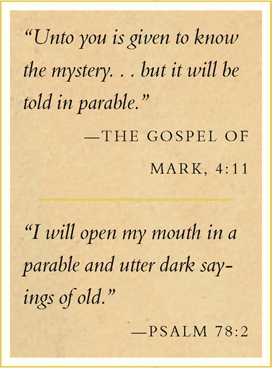
“And if you have any doubts,” Peter added, “Corinthians overtly tells us that the parables have two layers of meaning: ‘milk for babes and meat for men’—where the milk is a watered-down reading for infantile minds, and the meat is the true message, accessible only to mature minds.”
Peter raised the flashlight, again illuminating the carving of the cloaked figure pointing intently at the Bible. “I know you are a skeptic, Robert, but consider this. If the Bible does not contain hidden meaning, then why have so many of history’s finest minds—including brilliant scientists at the Royal Society—become so obsessed with studying it? Sir Isaac Newton wrote more than a million words attempting to decipher the true meaning of the Scripture, including a 1704 manuscript that claimed he had extracted hidden scientific information from the Bible!”
Langdon knew this was true.
“And Sir Francis Bacon,” Peter continued, “the luminary hired by King James to literally create the authorized King James Bible, became so utterly convinced that the Bible contained cryptic meaning that he wrote in his own codes, which are still studied today! Of course, as you know, Bacon was a Rosicrucian and penned The Wisdom of the Ancients.” Peter smiled. “Even the iconoclastic poet William Blake hinted that we should read between the lines.”
Langdon was familiar with the verse:
BOTH READ THE BIBLE DAY AND NIGHT,
BUT THOU READ BLACK WHERE I READ WHITE.
“And it wasn’t just the European luminaries,” Peter continued, descending faster now. “It was here, Robert, at the very core of this young American nation, that our brightest forefathers—John Adams, Ben Franklin, Thomas Paine—all warned of the profound dangers of interpreting the Bible literally. In fact, Thomas Jefferson was so convinced the Bible’s true message was hidden that he literally cut up the pages and reedited the book, attempting, in his words, ‘to do away with the artificial scaffolding and restore the genuine doctrines.’ ”
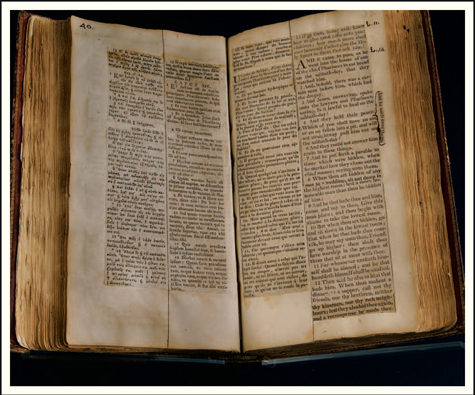
THE JEFFERSON BIBLE: JEFFERSON’S CUT-AND-PASTED VERSION OF THE TRADITIONAL KING JAMES BIBLE
131.1: Division of Political History, National Museum of American History, Smithsonian Institution
Langdon was well aware of this strange fact. The Jeffersonian Bible was still in print today and included many of his controversial revisions, among them the removal of the virgin birth and the resurrection. Incredibly, the Jeffersonian Bible had been presented to every incoming member of Congress during the first half of the nineteenth century.
“Peter, you know I find this topic fascinating, and I can understand that it might be tempting for bright minds to imagine the Scriptures contain hidden meaning, but it makes no logical sense to me. Any skilled professor will tell you that teaching is never done in code.”
“I’m sorry?”
“Teachers teach, Peter. We speak openly. Why would the prophets—the greatest teachers in history—obscure their language? If they hoped to change the world, why would they speak in code? Why not speak plainly so the world could understand?”
Peter glanced back over his shoulder as he descended, looking surprised by the question. “Robert, the Bible does not talk openly for the same reason the Ancient Mystery Schools were kept hidden … for the same reason the neophytes had to be initiated before learning the secret teachings of the ages … for the same reason the scientists in the Invisible College refused to share their knowledge with others. This information is powerful, Robert. The Ancient Mysteries cannot be shouted from the rooftops. The mysteries are a flaming torch, which, in the hands of a master, can light the way, but which, in the hands of a madman, can scorch the earth.”
Langdon stopped short. What is he saying? “Peter, I’m talking about the Bible. Why are you talking about the Ancient Mysteries?”
Peter turned. “Robert, don’t you see? The Ancient Mysteries and the Bible are the same thing.”
Langdon stared in bewilderment.
Peter was silent for several seconds, waiting for the concept to soak in. “The Bible is one of the books through which the mysteries have been passed down through history. Its pages are desperately trying to tell us the secret. Don’t you understand? The ‘dark sayings’ in the Bible are the whispers of the ancients, quietly sharing with us all of their secret wisdom.”
Langdon said nothing. The Ancient Mysteries, as he understood them, were a kind of instruction manual for harnessing the latent power of the human mind … a recipe for personal apotheosis. He had never been able to accept the power of the mysteries, and certainly the notion that the Bible was somehow hiding a key to these mysteries was an impossible stretch.
“Peter, the Bible and the Ancient Mysteries are total opposites. The mysteries are all about the god within you … man as god. The Bible is all about the God above you … and man as a powerless sinner.”
“Yes! Exactly! You’ve put your finger on the precise problem! The moment mankind separated himself from God, the true meaning of the Word was lost. The voices of the ancient masters have now been drowned out, lost in the chaotic din of self-proclaimed practitioners shouting that they alone understand the Word … that the Word is written in their language and none other.”
Peter continued down the stairs.
“Robert, you and I both know that the ancients would be horrified if they saw how their teachings have been perverted … how religion has established itself as a tollbooth to heaven … how warriors march into battle believing God favors their cause. We’ve lost the Word, and yet its true meaning is still within reach, right before our eyes. It exists in all the enduring texts, from the Bible to the Bhagavad Gita to the Koran and beyond. All of these texts are revered upon the altars of Freemasonry because Masons understand what the world seems to have forgotten … that each of these texts, in its own way, is quietly whispering the exact same message.” Peter’s voice welled with emotion. “ ‘Know ye not that ye are gods?’ ”
Langdon was struck by the way this famous ancient saying kept surfacing tonight. He had reflected on it while talking to Galloway and also at the Capitol Building while trying to explain The Apotheosis of Washington.
Peter lowered his voice to a whisper. “The Buddha said, ‘You are God yourself.’ Jesus taught that ‘the kingdom of God is within you’ and even promised us, ‘The works I do, you can do … and greater.’ Even the first antipope—Hippolytus of Rome—quoted the same message, first uttered by the gnostic teacher Monoimus:
“Abandon the search for God … instead, take yourself as the starting place.”
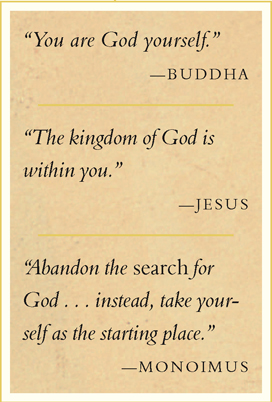
Langdon flashed on the House of the Temple, where the Masonic Tyler’s chair bore two words of guidance carved across its back: KNOW THYSELF.
“A wise man once told me,” Peter said, his voice faint now, “the only difference between you and God is that you have forgotten you are divine.”
“Peter, I hear you—I do. And I’d love to believe we are gods, but I see no gods walking our earth. I see no superhumans. You can point to the alleged miracles of the Bible, or any other religious text, but they are nothing but old stories fabricated by man and then exaggerated over time.”
“Perhaps,” Peter said. “Or perhaps we simply need our science to catch up with the wisdom of the ancients.” He paused. “Funny thing is … I believe Katherine’s research may be poised to do just that.”
Langdon suddenly remembered that Katherine had dashed off from the House of the Temple earlier. “Hey, where did she go, anyway?”
“She’ll be here shortly,” Peter said, grinning. “She went to confirm a wonderful bit of good fortune.”

Outside, at the base of the monument, Peter Solomon felt invigorated as he inhaled the cold night air. He watched in amusement as Langdon stared intently at the ground, scratching his head and looking around at the foot of the obelisk.
“Professor,” Peter joked, “the cornerstone that contains the Bible is underground. You can’t actually access the book, but I assure you it’s there.”
“I believe you,” Langdon said, appearing lost in thought. “It’s just … I noticed something.”
Langdon stepped back now and surveyed the giant plaza on which the Washington Monument stood. The circular concourse was made entirely of white stone … except for two decorative courses of dark stone, which formed two concentric circles around the monument.
“A circle within a circle,” Langdon said. “I never realized the Washington Monument stands at the center of a circle within a circle.”
Peter had to laugh. He misses nothing. “Yes, the great circumpunct … the universal symbol for God … at the crossroads of America.” He gave a coy shrug. “I’m sure it’s just a coincidence.”
Langdon seemed far off, gazing skyward now, his eyes ascending the illuminated spire, which shone stark white against the black winter sky.
Peter sensed Langdon was beginning to see this creation for what it truly was … a silent reminder of ancient wisdom … an icon of enlightened man at the heart of a great nation. Even though Peter could not see the tiny aluminum tip at the top, he knew it was there, man’s enlightened mind straining toward heaven.
Laus Deo.
“Peter?” Langdon approached, looking like a man who’d endured some kind of mystical initiation. “I almost forgot,” he said, reaching into his pocket and producing Peter’s gold Masonic ring. “I’ve been wanting to return this to you all night.”
“Thank you, Robert.” Peter held out his left hand and took the ring, admiring it. “You know, all the secrecy and mystery surrounding this ring and the Masonic Pyramid … it had an enormous effect on my life. When I was a young man, the pyramid was given to me with the promise that it hid mystical secrets. Its mere existence made me believe there were great mysteries in the world. It piqued my curiosity, fueled my sense of wonder, and inspired me to open my mind to the Ancient Mysteries.” He smiled quietly and slipped the ring into his pocket. “I now realize that the Masonic Pyramid’s true purpose was not to reveal the answers, but rather to inspire a fascination with them.”
The two men stood in silence for a long while at the foot of the monument.
When Langdon finally spoke, his tone was serious. “I need to ask you a favor, Peter … as a friend.”
“Of course. Anything.”
Langdon made his request … firmly.
Solomon nodded, knowing he was right. “I will.”
“Right away,” Langdon added, motioning to the waiting Escalade.
“Okay … but one caveat.”
Langdon rolled his eyes, chuckling. “Somehow you always get the last word.”
“Yes, and there is one final thing I want you and Katherine to see.”
“At this hour?” Langdon checked his watch.
Solomon smiled warmly at his old friend. “It is Washington’s most spectacular treasure … and something very, very few people have ever seen.”
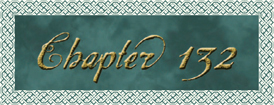
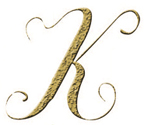 ATHERINE SOLOMON’S heart felt light as she hurried up the hill toward the base of the Washington Monument. She had endured great shock and tragedy tonight, and yet her thoughts were refocused now, if only temporarily, on the wonderful news Peter had shared with her earlier … news she had just confirmed with her very own eyes.
ATHERINE SOLOMON’S heart felt light as she hurried up the hill toward the base of the Washington Monument. She had endured great shock and tragedy tonight, and yet her thoughts were refocused now, if only temporarily, on the wonderful news Peter had shared with her earlier … news she had just confirmed with her very own eyes.
My research is safe. All of it.
Her lab’s holographic data drives had been destroyed tonight, but earlier, at the House of the Temple, Peter had informed her that he had been secretly keeping backups of all her Noetic research in the SMSC executive offices. You know I’m utterly fascinated with your work, he had explained, and I wanted to follow your progress without disturbing you.
“Katherine?” a deep voice called out.
She looked up.
A lone figure stood in silhouette at the base of the illuminated monument.
“Robert!” She hurried over and hugged him.
“I heard the good news,” Langdon whispered. “You must be relieved.”
Her voice cracked with emotion. “Incredibly.” The research Peter had saved was a scientific tour de force—a massive collection of experiments that proved human thought was a real and measurable force in the world. Katherine’s experiments demonstrated the effect of human thought on everything from ice crystals to random-event generators to the movement of subatomic particles. The results were conclusive and irrefutable, with the potential to transform skeptics into believers and affect global consciousness on a massive scale. “Everything is going to change, Robert. Everything.”
“Peter certainly thinks so.”
Katherine glanced around for her brother.
“Hospital,” Langdon said. “I insisted he go as a favor to me.”
Katherine exhaled, relieved. “Thank you.”
“He told me to wait for you here.”
Katherine nodded, her gaze climbing the glowing white obelisk. “He said he was bringing you here. Something about ‘Laus Deo’? He didn’t elaborate.”
Langdon gave a tired chuckle. “I’m not sure I entirely understand it myself.” He glanced up at the top of the monument. “Your brother said quite a few things tonight that I couldn’t get my mind around.”
“Let me guess,” Katherine said. “Ancient Mysteries, science, and the Holy Scriptures?”
“Bingo.”
“Welcome to my world.” She winked. “Peter initiated me into this long ago. It fueled a lot of my research.”
“Intuitively, some of what he said made sense.” Langdon shook his head. “But intellectually …”
Katherine smiled and put her arm around him. “You know, Robert, I may be able to help you with that.”
Deep inside the Capitol Building, Architect Warren Bellamy was walking down a deserted hallway.
Only one thing left to do tonight, he thought.
When he arrived at his office, he retrieved a very old key from his desk drawer. The key was black iron, long and slender, with faded markings. He slid it into his pocket and then prepared himself to welcome his guests.
Robert Langdon and Katherine Solomon were on their way to the Capitol. At Peter’s request, Bellamy was to provide them with a very rare opportunity—the chance to lay eyes upon this building’s most magnificent secret … something that could be revealed only by the Architect.
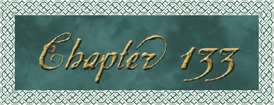
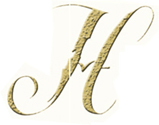 IGH ABOVE the floor of the Capitol Rotunda, Robert Langdon inched nervously around the circular catwalk that extended just beneath the ceiling of the dome. He peered tentatively over the railing, dizzied by the height, still unable to believe it had been less than ten hours since Peter’s hand had appeared in the middle of the floor below.
IGH ABOVE the floor of the Capitol Rotunda, Robert Langdon inched nervously around the circular catwalk that extended just beneath the ceiling of the dome. He peered tentatively over the railing, dizzied by the height, still unable to believe it had been less than ten hours since Peter’s hand had appeared in the middle of the floor below.
On that same floor, the Architect of the Capitol was now a tiny speck some hundred and eighty feet below, moving steadily across the Rotunda and then disappearing. Bellamy had escorted Langdon and Katherine up to this balcony, leaving them here with very specific instructions.
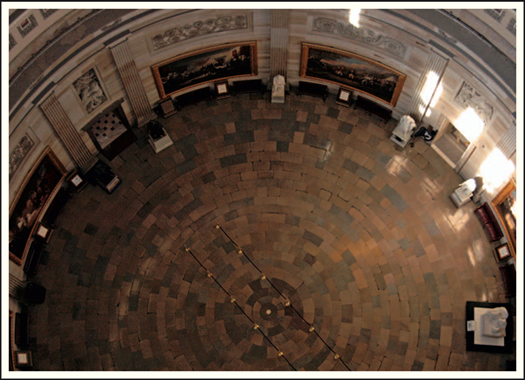
THE U.S. CAPITOL ROTUNDA, VIEWED FROM THE CATWALK ABOVE
133.1: Brian M. Williams
Peter’s instructions.
Langdon eyed the old iron key that Bellamy had handed to him. Then he glanced over at a cramped stairwell that ascended from this level … climbing higher still. God help me. These narrow stairs, according to the Architect, led up to a small metal door that could be unlocked with the iron key in Langdon’s hand.
Beyond the door lay something that Peter insisted Langdon and Katherine see. Peter had not elaborated, but rather had left strict instructions regarding the precise hour at which the door was to be opened. We have to wait to open the door? Why?
Langdon checked his watch again and groaned.
Slipping the key into his pocket, he gazed across the gaping void before him at the far side of the balcony. Katherine had walked fearlessly ahead, apparently unfazed by the height. She was now halfway around the circumference, admiring every inch of Brumidi’s The Apotheosis of Washington, which loomed directly over their heads. From this rare vantage point, the fifteen-foot-tall figures that adorned the nearly five thousand square feet of the Capitol Dome were visible in astonishing detail.
Langdon turned his back to Katherine, faced the outer wall, and whispered very quietly, “Katherine, this is your conscience speaking. Why did you abandon Robert?”
Katherine was apparently familiar with the dome’s startling acoustical properties … because the wall whispered back. “Because Robert is being a chicken. He should come over here with me. We have plenty of time before we’re allowed to open that door.”
Langdon knew she was right and reluctantly made his way around the balcony, hugging the wall as he went.
“This ceiling is absolutely amazing,” Katherine marveled, her neck craned to take in the enormous splendor of the Apotheosis overhead. “Mythical gods all mixed in with scientific inventors and their creations? And to think this is the image at the center of our Capitol.”
Langdon turned his eyes upward to the sprawling forms of Franklin, Fulton, and Morse with their technological inventions. A shining rainbow arched away from these figures, guiding his eye to George Washington ascending to heaven on a cloud. The great promise of man becoming God.
Katherine said, “It’s as if the entire essence of the Ancient Mysteries is hovering over the Rotunda.”
Langdon had to admit, not many frescoes in the world fused scientific inventions with mythical gods and human apotheosis. This ceiling’s spectacular collection of images was indeed a message of the Ancient Mysteries, and it was here for a reason. The founding fathers had envisioned America as a blank canvas, a fertile field on which the seeds of the mysteries could be sown. Today, this soaring icon—the father of our country ascending to heaven—hung silently above our lawmakers, leaders, and presidents … a bold reminder, a map to the future, a promise of a time when man would evolve to complete spiritual maturity.
“Robert,” Katherine whispered, her gaze still fixated on the massive figures of America’s great inventors accompanied by Minerva. “It’s prophetic, really. Today, man’s most advanced inventions are being used to study man’s most ancient ideas. The science of Noetics may be new, but it’s actually the oldest science on earth—the study of human thought.” She turned to him now, her eyes filled with wonder. “And we’re learning that the ancients actually understood thought more profoundly than we do today.”
“Makes sense,” Langdon replied. “The human mind was the only technology the ancients had at their disposal. The early philosophers studied it relentlessly.”
“Yes! The ancient texts are obsessed with the power of the human mind. The Vedas describe the flow of mind energy. The Pistis Sophia describes universal consciousness. The Zohar explores the nature of mind spirit. The Shamanic texts predict Einstein’s ‘remote influence’ in terms of healing at a distance. It’s all there! And don’t even get me started about the Bible.”
“You, too?” Langdon said, chuckling. “Your brother tried to convince me that the Bible is encoded with scientific information.”
“It certainly is,” she said. “And if you don’t believe Peter, read some of Newton’s esoteric texts on the Bible. When you start to understand the cryptic parables in the Bible, Robert, you realize it’s a study of the human mind.”
Langdon shrugged. “I guess I’d better go back and read it again.”
“Let me ask you something,” she said, clearly not appreciating his skepticism. “When the Bible tells us to ‘go build our temple’ … a temple that we must ‘build with no tools and making no noise,’ what temple do you think it’s talking about?”
“Well, the text does say your body is a temple.”
“Yes, Corinthians 3:16. You are the temple of God.” She smiled at him. “And the Gospel of John says the exact same thing. Robert, the Scriptures are well aware of the power latent within us, and they are urging us to harness that power … urging us to build the temples of our minds.”
“Unfortunately, I think much of the religious world is waiting for a real temple to be rebuilt. It’s part of the Messianic Prophecy.”
“Yes, but that overlooks an important point. The Second Coming is the coming of man—the moment when mankind finally builds the temple of his mind.”
“I don’t know,” Langdon said, rubbing his chin. “I’m no Bible scholar, but I’m pretty sure the Scriptures describe in detail a physical temple that needs to be built. The structure is described as being in two parts—an outer temple called the Holy Place and an inner sanctuary called the Holy of Holies. The two parts are separated from each other by a thin veil.”
Katherine grinned. “Pretty good recall for a Bible skeptic. By the way, have you ever seen an actual human brain? It’s built in two parts—an outer part called the dura mater and an inner part called the pia mater. These two parts are separated by the arachnoid—a veil of weblike tissue.”
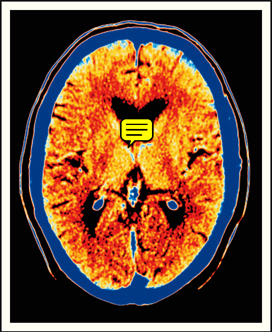
HUMAN BRAIN SCAN AND PINEAL GLAND (IRREGULAR BLUE SHAPE AT CENTER)
133.2: Scott Camazine/Photo Researchers, Inc.
Langdon cocked his head in surprise.
Gently, she reached up and touched Langdon’s temple. “There’s a reason they call this your temple, Robert.”
As Langdon tried to process what Katherine had said, he flashed unexpectedly on the gnostic Gospel of Mary: Where the mind is, there is the treasure.
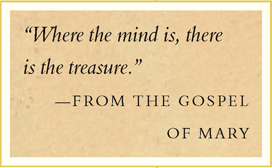
“Perhaps you’ve heard,” Katherine said, softly now, “about the brain scans taken of yogis while they meditate? The human brain, in advanced states of focus, will physically create a waxlike substance from the pineal gland. This brain secretion is unlike anything else in the body. It has an incredible healing effect, can literally regenerate cells, and may be one of the reasons yogis live so long. This is real science, Robert. This substance has inconceivable properties and can be created only by a mind that is highly tuned to a deeply focused state.”
“I remember reading about that a few years back.”
“Yes, and on that topic, you’re familiar with the Bible’s account of ‘manna from heaven’?”
Langdon saw no connection. “You mean the magical substance that fell from heaven to nourish the hungry?”
“Exactly. The substance was said to heal the sick, provide everlasting life, and, strangely, cause no waste in those who consumed it.” Katherine paused, as if waiting for him to understand. “Robert?” she prodded. “A kind of nourishment that fell from heaven?” She tapped her temple. “Magically heals the body? Creates no waste? Don’t you see? These are code words, Robert! Temple is code for ‘body.’ Heaven is code for ‘mind.’ Jacob’s ladder is your spine. And manna is this rare brain secretion. When you see these code words in Scripture, pay attention. They are often markers for a more profound meaning concealed beneath the surface.”
Katherine’s words were coming out in rapid-fire succession now, explaining how this same magical substance appeared throughout the Ancient Mysteries: Nectar of the Gods, Elixir of Life, Fountain of Youth, Philosopher’s Stone, ambrosia, dew, ojas, soma. Then she launched into an explanation about the brain’s pineal gland representing the all-seeing eye of God. “According to Matthew 6:22,” she said excitedly, “ ‘when your eye is single, your body fills with light.’ This concept is also represented by the Ajna chakra and the dot on a Hindu’s forehead, which—”
Katherine stopped short, looking sheepish. “Sorry … I know I’m rambling. I just find this all so exhilarating. For years I’ve studied the ancients’ claims of man’s awesome mental power, and now science is showing us that accessing that power is an actual physical process. Our brains, if used correctly, can call forth powers that are quite literally superhuman. The Bible, like many ancient texts, is a detailed exposition of the most sophisticated machine ever created … the human mind.” She sighed. “Incredibly, science has yet to scratch the surface of the mind’s full promise.”
“It sounds like your work in Noetics will be a quantum leap forward.”
“Or backward,” she said. “The ancients already knew many of the scientific truths we’re now rediscovering. Within a matter of years, modern man will be forced to accept what is now unthinkable: our minds can generate energy capable of transforming physical matter.” She paused. “Particles react to our thoughts … which means our thoughts have the power to change the world.”
Langdon smiled softly.
“What my research has brought me to believe is this,” Katherine said. “God is very real—a mental energy that pervades everything. And we, as human beings, have been created in that image—”
“I’m sorry?” Langdon interrupted. “Created in the image of … mental energy?”
“Exactly. Our physical bodies have evolved over the ages, but it was our minds that were created in the image of God. We’ve been reading the Bible too literally. We learn that God created us in his image, but it’s not our physical bodies that resemble God, it’s our minds.”
Langdon was silent now, fully engrossed.
“This is the great gift, Robert, and God is waiting for us to understand it. All around the world, we are gazing skyward, waiting for God … never realizing that God is waiting for us.” Katherine paused, letting her words soak in. “We are creators, and yet we naively play the role of ‘the created.’ We see ourselves as helpless sheep buffeted around by the God who made us. We kneel like frightened children, begging for help, for forgiveness, for good luck. But once we realize that we are truly created in the Creator’s image, we will start to understand that we, too, must be Creators. When we understand this fact, the doors will burst wide open for human potential.”
Langdon recalled a passage that had always stuck with him from the work of the philosopher Manly P. Hall: If the infinite had not desired man to be wise, he would not have bestowed upon him the faculty of knowing. Langdon gazed up again at the image of The Apotheosis of Washington—the symbolic ascent of man to deity. The created … becoming the Creator.
“The most amazing part,” Katherine said, “is that as soon as we humans begin to harness our true power, we will have enormous control over our world. We will be able to design reality rather than merely react to it.”
Langdon lowered his gaze. “That sounds … dangerous.”
Katherine looked startled … and impressed. “Yes, exactly! If thoughts affect the world, then we must be very careful how we think. Destructive thoughts have influence, too, and we all know it’s far easier to destroy than it is to create.”
Langdon thought of all the lore about needing to protect the ancient wisdom from the unworthy and share it only with the enlightened. He thought of the Invisible College, and the great scientist Isaac Newton’s request to Robert Boyle to keep “high silence” about their secret research. It cannot be communicated, Newton wrote in 1676, without immense damage to the world.
“There’s an interesting twist here,” Katherine said. “The great irony is that all the religions of the world, for centuries, have been urging their followers to embrace the concepts of faith and belief. Now science, which for centuries has derided religion as superstition, must admit that its next big frontier is quite literally the science of faith and belief … the power of focused conviction and intention. The same science that eroded our faith in the miraculous is now building a bridge back across the chasm it created.”
Langdon considered her words for a long time. Slowly he raised his eyes again to the Apotheosis. “I have a question,” he said, looking back at Katherine. “Even if I could accept, just for an instant, that I have the power to change physical matter with my mind, and literally manifest all that I desire … I’m afraid I see nothing in my life to make me believe I have such power.”
She shrugged. “Then you’re not looking hard enough.”
“Come on, I want a real answer. That’s the answer of a priest. I want the answer of a scientist.”
“You want a real answer? Here it is. If I hand you a violin and say you have the capability to use it to make incredible music, I am not lying. You do have the capability, but you’ll need enormous amounts of practice to manifest it. This is no different from learning to use your mind, Robert. Well-directed thought is a learned skill. To manifest an intention requires laserlike focus, full sensory visualization, and a profound belief. We have proven this in a lab. And just like playing a violin, there are people who exhibit greater natural ability than others. Look to history. Look to the stories of those enlightened minds who performed miraculous feats.”
“Katherine, please don’t tell me you actually believe in the miracles. I mean, seriously … turning water into wine, healing the sick with the touch of a hand?”
Katherine took a long breath and blew it out slowly. “I have witnessed people transform cancer cells into healthy cells simply by thinking about them. I have witnessed human minds affecting the physical world in myriad ways. And once you see that happen, Robert, once this becomes part of your reality, then some of the miracles you read about become simply a matter of degree.”
Langdon was pensive. “It’s an inspiring way to see the world, Katherine, but for me, it just feels like an impossible leap of faith. And as you know, faith has never come easily for me.”
“Then don’t think of it as faith. Think of it simply as changing your perspective, accepting that the world is not precisely as you imagine. Historically, every major scientific breakthrough began with a simple idea that threatened to overturn all of our beliefs. The simple statement ‘the earth is round’ was mocked as utterly impossible because most people believed the oceans would flow off the planet. Heliocentricity was called heresy. Small minds have always lashed out at what they don’t understand. There are those who create … and those who tear down. That dynamic has existed for all time. But eventually the creators find believers, and the number of believers reaches a critical mass, and suddenly the world becomes round, or the solar system becomes heliocentric. Perception is transformed, and a new reality is born.”
Langdon nodded, his thoughts drifting now.
“You have a funny look on your face,” she said.
“Oh, I don’t know. For some reason I was just remembering how I used to canoe out into the middle of the lake late at night, lie down under the stars, and think about stuff like this.”
She nodded knowingly. “I think we all have a similar memory. Something about lying on our backs staring up at the heavens … opens the mind.” She glanced up at the ceiling and then said, “Give me your jacket.”
“What?” He took it off and gave it to her.
She folded it twice and laid it down on the catwalk like a long pillow. “Lie down.”
Langdon lay on his back, and Katherine positioned his head on half of the folded jacket. Then she lay down beside him—two kids, shoulder to shoulder on the narrow catwalk, staring up at Brumidi’s enormous fresco.
“Okay,” she whispered. “Put yourself in that same mind-set … a kid lying out in a canoe … looking up at the stars … his mind open and full of wonder.”
Langdon tried to obey, although at the moment, prone and comfortable, he was feeling a sudden wave of exhaustion. As his vision blurred, he perceived a muted shape overhead that immediately woke him. Is that possible? He could not believe he hadn’t noticed it before, but the figures in The Apotheosis of Washington were clearly arranged in two concentric rings—a circle within a circle. The Apotheosis is also a circumpunct? Langdon wondered what else he had missed tonight.
“There’s something important I want to tell you, Robert. There’s another piece to all this … a piece that I believe is the single most astonishing aspect of my research.”
There’s more?
Katherine propped herself on her elbow. “And I promise … if we as humans can honestly grasp this one simple truth … the world will change overnight.”
She now had his full attention.
“I should preface this,” she said, “by reminding you of the Masonic mantras to ‘gather what is scattered’ … to bring ‘order from chaos’ … to find ‘at-one-ment.’ ”
“Go on.” Langdon was intrigued.
Katherine smiled down at him. “We have scientifically proven that the power of human thought grows exponentially with the number of minds that share that thought.”
Langdon remained silent, wondering where she was going with this idea.
“What I’m saying is this … two heads are better than one … and yet two heads are not twice better, they are many, many times better. Multiple minds working in unison magnify a thought’s effect … exponentially. This is the inherent power of prayer groups, healing circles, singing in unison, and worshipping en masse. The idea of universal consciousness is no ethereal New Age concept. It’s a hard-core scientific reality … and harnessing it has the potential to transform our world. This is the underlying discovery of Noetic Science. What’s more, it’s happening right now. You can feel it all around you. Technology is linking us in ways we never imagined possible: Twitter, Google, Wikipedia, and others—all blend to create a web of interconnected minds.” She laughed. “And I guarantee you, as soon as I publish my work, the Twitterati will all be sending tweets that say, ‘learning about Noetics,‘ and interest in this science will explode exponentially.”
Langdon’s eyelids felt impossibly heavy. “You know, I still haven’t learned how to send a twitter.”
“A tweet,” she corrected, laughing.
“I’m sorry?”
“Never mind. Close your eyes. I’ll wake you when it’s time.”
Langdon realized he had all but forgotten the old key the Architect had given them … and why they had come up here. As a new wave of exhaustion engulfed him, Langdon shut his eyes. In the darkness of his mind, he found himself thinking about universal consciousness … about Plato’s writings on “the mind of the world” and “gathering God” … Jung’s “collective unconscious.” The notion was as simple as it was startling.
God is found in the collection of Many … rather than in the One.
“Elohim,” Langdon said suddenly, his eyes flying open again as he made an unexpected connection.
“I’m sorry?” Katherine was still gazing down at him.
“Elohim,” he repeated. “The Hebrew word for God in the Old Testament! I’ve always wondered about it.”
Katherine gave a knowing smile. “Yes. The word is plural.”
Exactly! Langdon had never understood why the very first passages of the Bible referred to God as a plural being. Elohim. The Almighty God in Genesis was described not as One … but as Many.
“God is plural,” Katherine whispered, “because the minds of man are plural.”
Langdon’s thoughts were spiraling now … dreams, memories, hopes, fears, revelations … all swirling above him in the Rotunda dome. As his eyes began to close again, he found himself staring at three words in Latin, painted within the Apotheosis.
E PLURIBUS UNUM.
“Out of many, one,” he thought, slipping off into sleep.
My profound thanks to three dear friends with whom I have the great luxury of working: my editor, Jason Kaufman; my agent, Heide Lange; and my counselor, Michael Rudell. In addition, I would like to express my immense gratitude to Doubleday, to my publishers around the world, and, of course, to my readers.
This novel could not have been written without the generous assistance of countless individuals who shared their knowledge and expertise. To all of you, I extend my deep appreciation.

Grateful acknowledgment is made to the following sources for permission to use the images in this book:
0.1: © Richard Nowitz
0.2: Foto Marburg/Art Resource, NY
0.3: blickwinkel/Alamy
1.1: Paul Chesley/Photographer’s Choice/Getty Images
1.2: Bruce Dale/National Geographic/Getty Images
2.1: Werner Forman/HIP/The Image Works
2.2: Brooklyn Museum of Art, New York, USA/Frank L. Babbott Fund and Carll H. de Silver Fund/The Bridgeman Art Library
2.3: © John Heseltine
3.1: VisionsofAmerica/Joe Sohm/Digital Vision/Getty Images
3.2: James P. Blair/Photodisc/Getty Images
4.1: © Photo DC
6.1: Photo by Scott J. Ferrell/Congressional Quarterly/Getty Images
6.2: Photo by Alex Wong/Getty Images
6.3: Sandra Baker/Alamy
6.4: Prints & Photographs Division, Library of Congress, cph 3b32779
6.5: Prints & Photographs Division, Library of Congress, cph 3a01226
6.6: TIM SLOAN/AFP/Getty Images
6.7: Photo by Herbert Orth/Time Life Pictures/Getty Images
7.1: © Richard Nowitz
8.1: © Photo DC
9.1: British Library, London/HIP/Art Resource, NY
10.1: © Robert Bull
11.1: © Richard Nowitz
11.2: AP Photo/Purdue News Service
11.3: National Anthropological Archives, Smithsonian Institution
13.1: KAREN BLEIER/AFP/Getty Images
13.2: © Per Haagensen
15.1: Scott Hess Photography
15.2: © The Trustees of the Chester Beatty Library, Dublin/The Bridgeman Art Library
16.1: Chris Pinchbeck/Aurora/Getty Images
16.2: Courtesy National Archives, 210-G-C839
17.1 T: © iStockphoto.com/RonyGraphics
17.2 TC: © iStockphoto.com/ggodby
17.3 C: © iStockphoto.com/johnwoodcock
17.4 BC: © Robert Bull
17.5 B: © iStockphoto.com/Thirteen-Fifty
17.6: Library of Congress, Rare Book and Special Collections Division
18.1: Richard Merritt FRPS/Flickr/Getty Images
19.1: Biblioteca Estense Universitaria, Modena, Italy/The Bridgeman Art Library
19.2: Bibliotheque des Arts Decoratifs, Paris, France/The Bridgeman Art Library
19.3: Topham/The Image Works
19.4: V&A Images, London/Art Resource, NY
20.1: imagebroker/Alamy
20.2: Cameron Davidson/Workbook Stock/Getty Images
20.3: Imagno/Hulton Archive/Getty Images
21.1: © Photo DC
21.2: © Rachele Pearce
21.3: © Rachele Pearce
21.4: Santa Maria della Grazie, Milan, Italy/The Bridgeman Art Library
21.5: Ashmolean Museum, University of Oxford, UK/The Bridgeman Art Library
21.6: Smithsonian American Art Museum, Washington, DC/Art Resource, NY
21.7: Private Collection/ Archives Charmet/The Bridgeman Art Library
22.1: © Richard Nowitz
22.2: “The Three Graces” © 2004, a painting by Michael Parkes. All Rights Reserved. Represented exclusively by Swan King Editions, LLC.
23.1: Private Collection/Ken Welsh/The Bridgeman Art Library
28.1: © Dennis Brack/DanitaDelimont.com
29.1: JHP Public Safety/Alamy
30.1: Academie des Sciences, Paris, France/Giraudon/The Bridgeman Art Library
30.2: Vatican Museums and Galleries, Vatican City, Italy/The Bridgeman Art Library
32.1: Courtesy of the author
34.1: © Richard Nowitz
36.1: Doug Blane (www.DougBlane.com)/Alamy
37.1: © Richard Nowitz
38.1: © Carlos Carrion/Sygma/Corbis
39.1: Steve Allen/Brand X Pictures/Getty Images
41.1: Archaeological Museum of Heraklion, Crete, Greece/Bernard Cox/The Bridgeman Art Library
41.2: Beinecke Rare Book and Manuscript Library, Yale University
42.1: Photo by Scott J. Ferrell/Congressional Quarterly/Getty Images
46.1: © Richard Nowitz
46.2: John Grant/The Image Bank/Getty Images
46.3: The Library of Congress, Carol M. Highsmith Archive, LC-DIGhighsm-02096
46.4: Prints & Photographs Division, Library of Congress, LC-DIGppmsca-22306
46.5: Library of Congress Photo/ Micheala McNichol
46.6: John Grant/The Image Bank/Getty Images
49.1: The Library of Congress, Carol M. Highsmith Archive, LC-DIGhighsm-02070
49.2: The Library of Congress, Carol M. Highsmith Archive, LC-DIGhighsm-02120
49.3: San Pietro in Vincoli, Rome, Italy/Alinari/The Bridgeman Art Library
50.1: Stock Connection Blue/Alamy
52.1: Private Collection/Courtesy of Swann Auction Galleries/The Bridgeman Art Library
53.1: LHB Photo/Alamy
55.1: The Library of Congress, Carol M. Highsmith Archive, LC-DIGhighsm-02785
56.1: The Library of Congress, Carol M. Highsmith Archive, LC-DIGhighsm-02782
57.1: Ann Rayworth/Alamy
58.1: Jose CABEZAS/AFP/Getty Images
58.2: SNL/DOE/Photo Researchers, Inc.
59.1: Library of Congress, LC-DIG-ppmsca-15563
62.1: © Richard Nowitz
63.1: © Richard Nowitz
68.1: Alte Pinakothek, Munich, Germany/The Bridgeman Art Library
70.1: Ann Ronan Picture Library, London/HIP/Art Resource, NY
71.1: Dorling Kindersley/Getty Images
73.1: © Richard Nowitz
73.2: Bacon, Francis, Sylva sylvarum: or, A natural history in ten centuries (1664), Rare Books and Special Collections, University of Sydney Library
74.1: © Richard Nowitz
75.1: Library of Congress, Geography and Map Division
76.1: © Richard Nowitz
76.2: Purestock/Getty Images
77.1: Joan Baron/Photo Researchers, Inc.
77.2: Topham/The Image Works
77.3: Mary Evans Picture Library/The Image Works
77.4: Charles Walker/Topham/The Image Works
78.1: Philip Scalia/Alamy
78.2: O’Shea Gallery, London, UK/The Bridgeman Art Library
78.3: William S. Kuta/Alamy
78.4: Bible Society, London, UK/The Bridgeman Art Library
79.1: Nadia M.B. Hughes/National Geographic/Getty Images
79.2: public domain image by Cyraxote
80.1: Courtesy of National Sportswear & Emblem, Ltd.
81.1: C. Walker/Topham/The Image Works
81.2: © iStockphoto.com/wings
82.1: Corbis Premium RF/Alamy
82.2: The Stapleton Collection/Art Resource, NY
82.3: Private Collection/The Bridgeman Art Library
84.1: Stock Connection Blue/Alamy
85.1: Charles Walker/Topfoto /The Image Works (detail)
85.2: Louvre, Paris, France/Giraudon/The Bridgeman Art Library
85.3: Private Collection/The Bridgeman Art Library
86.1: Alinari Archives/The Image Works
87.1: © Richard Nowitz
87.2: Irene Abdou/Alamy
89.1: © Photo DC
89.2: SSPL/Science Museum/The Image Works
93.1: © Richard Nowitz
96.1: Erich Lessing/Art Resource, NY
96.2: Réunion des Musées Nationaux/Art Resource, NY
96.3: Scott S. Warren/National Geographic/Getty Images
97.1: Chris Nevins/Flickr/Getty Images
99.1: © Richard Nowitz
111.1: Photo by: Randy Santos/dcstockimages.com
111.2: Smithsonian American ArtMuseum, Washington,DC/Art Resource, NY
112.1: © Gordon Baer/Cincinnati
116.1: British Museum, London, UK/The Bridgeman Art Library
117.1: © Richard Nowitz
117.2: Erich Lessing/Art Resource, NY
118.1: Sisse Brimberg/National Geographic/Getty Images
119.1: Erich Lessing/Art Resource, NY
129.1: Stock Connection Blue/Alamy
129.2: Theodor Horydczak Collection, Prints & Photographs Division, Library of Congress, LC-H824-T-M04-045
129.3: Vito Palmisano/Photographer’s Choice/Getty Images
130.1: Private Collection/Ann & Bury Peerless Picture Library/The Bridgeman Art Library
130.2: Jack Sullivan/Alamy
131.1: Division of Political History, National Museum of American History, Smithsonian Institution
133.1: Brian M. Williams
133.2: Scott Camazine/Photo Researchers, Inc.
EPI.1: Walter Bibikow/Taxi/Getty Images

Dan Brown is the author of The Da Vinci Code, one of the most widely read novels of all time, as well as the international bestsellers Angels & Demons, Deception Point, and Digital Fortress. He lives in New England with his wife.

In 1991, a document was locked in the safe of the director of the CIA. The document is still there today. Its cryptic text includes references to an ancient portal and an unknown location underground. The document also contains the phrase “It’s buried out there somewhere.”
All organizations in this novel exist, including the Freemasons, the Invisible College, the Office of Security, the SMSC, and the Institute of Noetic Sciences.
All rituals, science, artwork, and monuments in this novel are real.
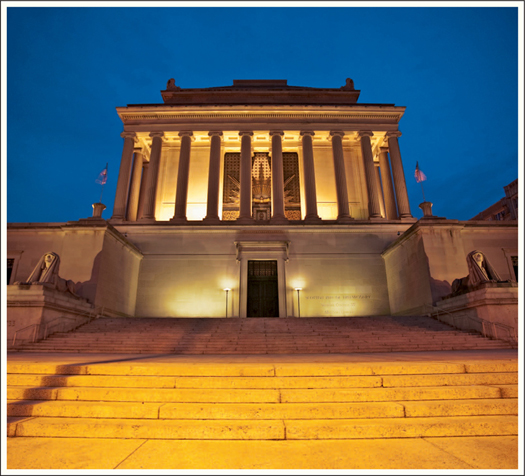
HOUSE OF THE TEMPLE
0.1: © Richard Nowitz
To live in the world without becoming aware of the meaning of the world is like wandering about in a great library without touching the books.

